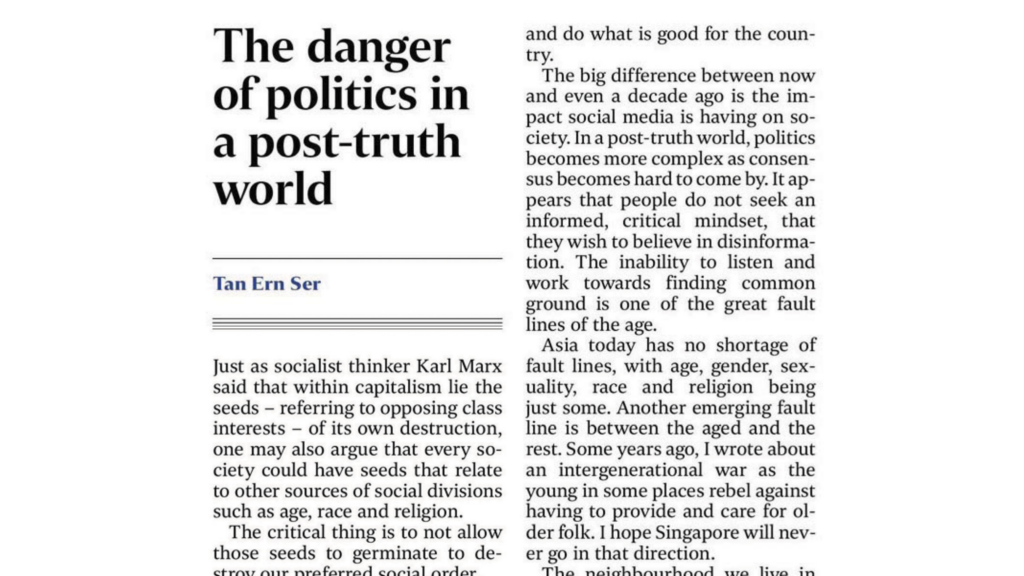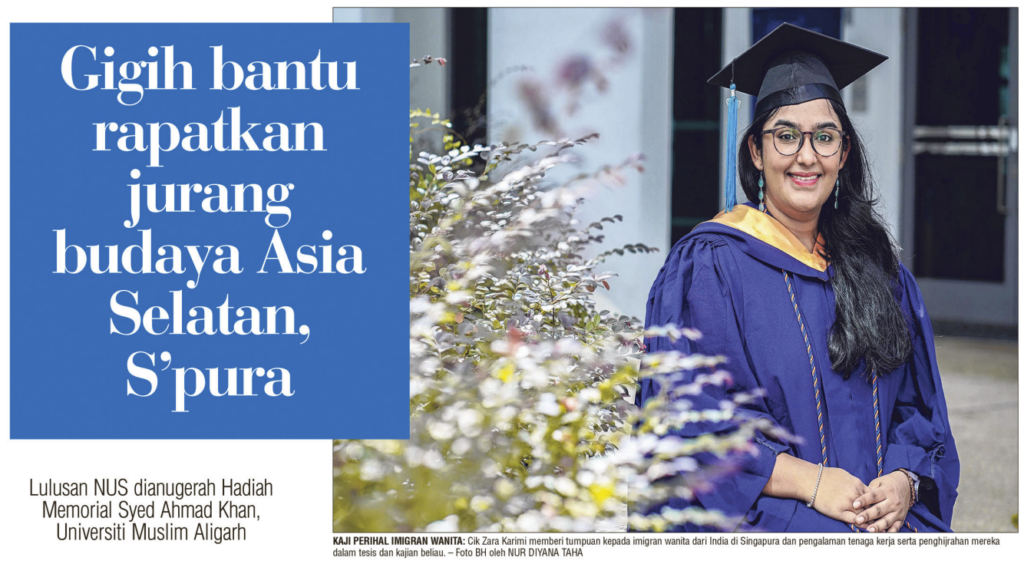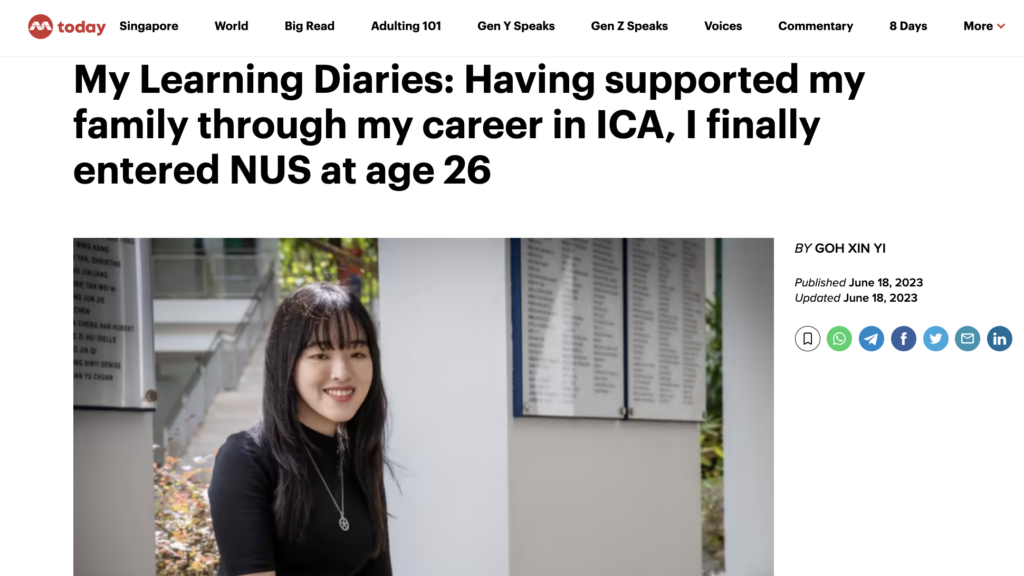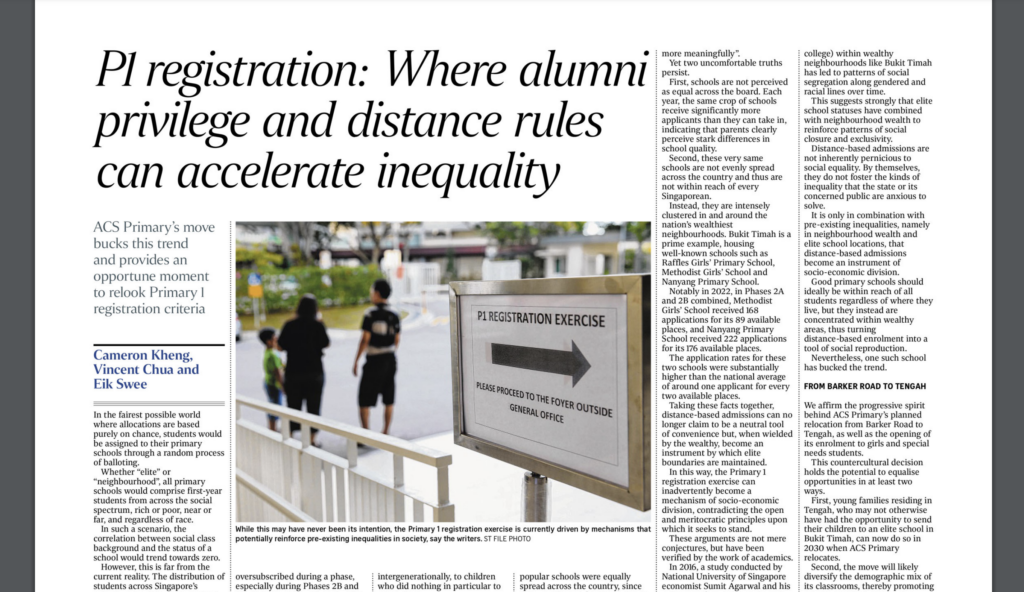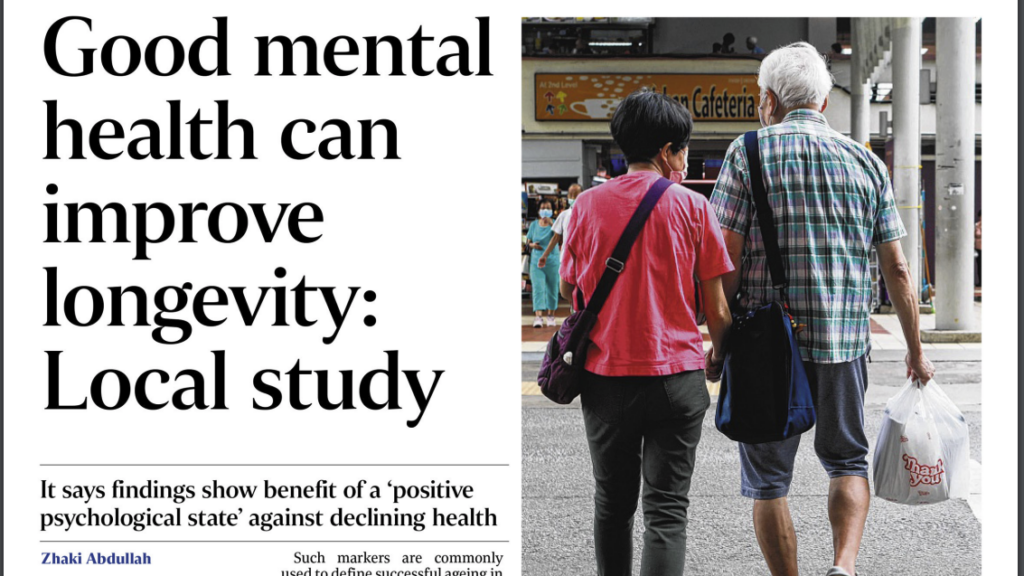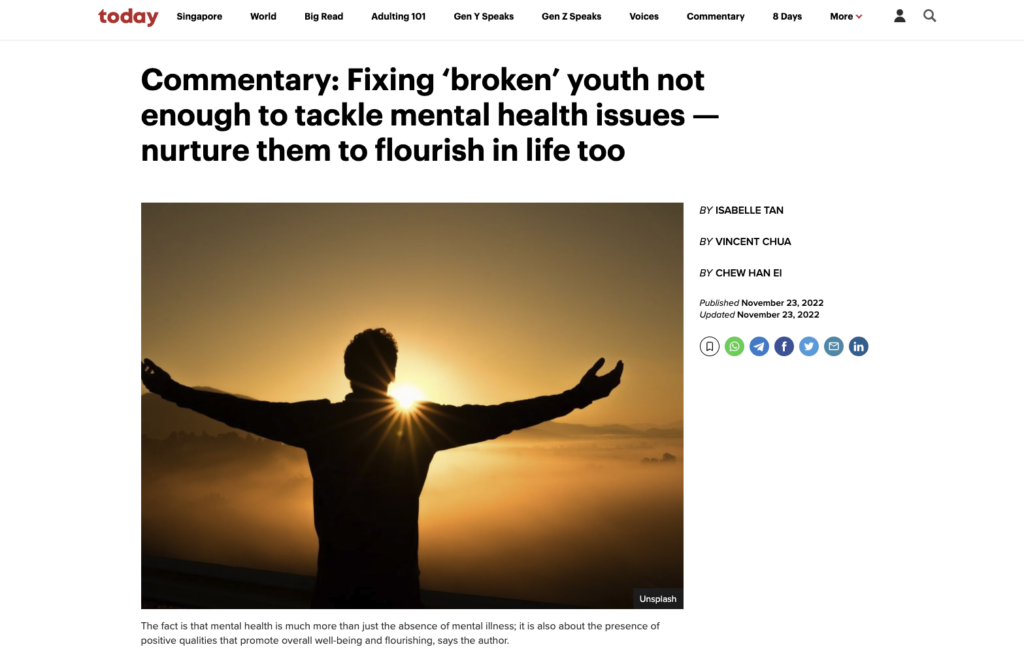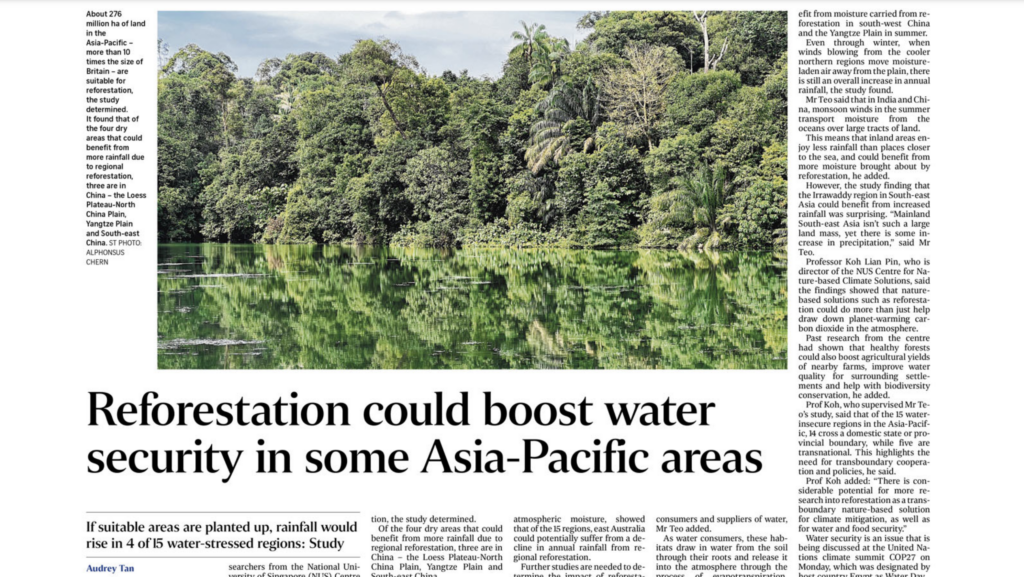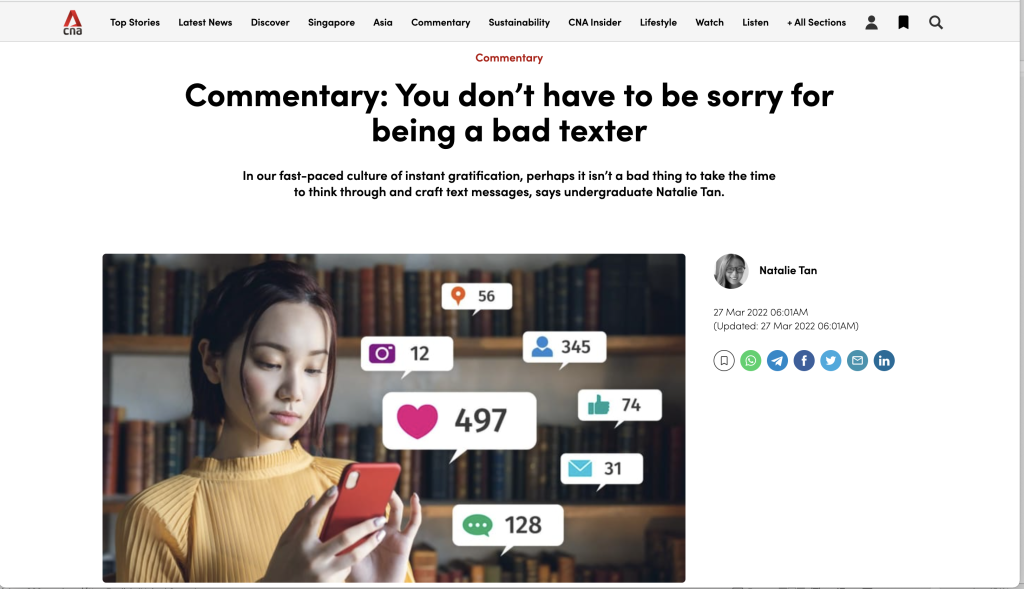News
NUS Faculty of Arts and Social Sciences alumni honoured for contributions to public service, education, literature and the corporate sector
IN BRIEF | 10 min read
- The four awardees were Mr Bilahari Kausikan, an iconic veteran of diplomacy; Professor Paul Cheung, a highly regarded statistician; Ms Suchen Christine Lim, a critically acclaimed writer; and Mr Tan Yam Pin, a prominent businessman and corporate heavyweight.
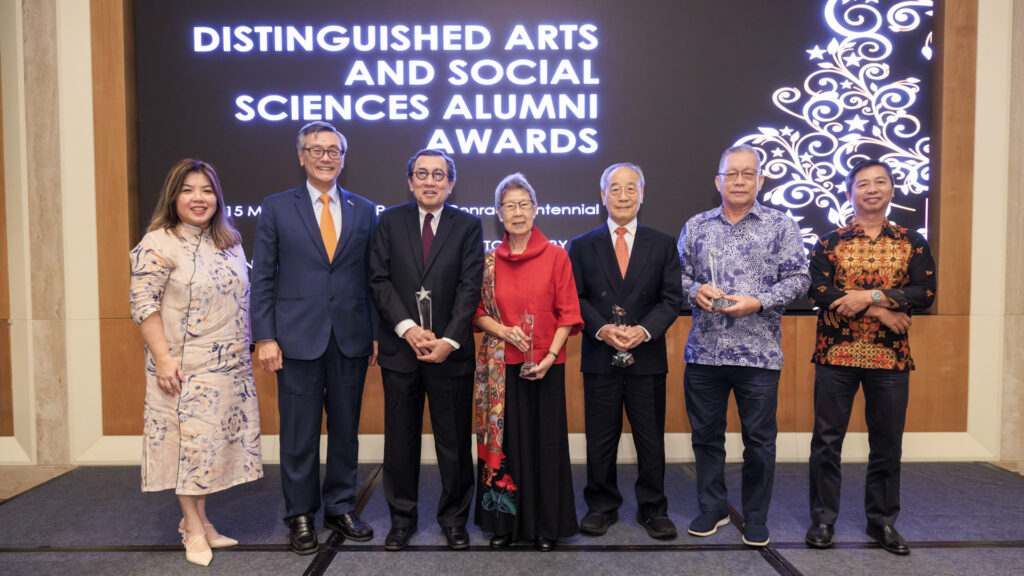
The NUS Faculty of Arts and Social Sciences (FASS) paid tribute on 15 May 2024 to four eminent alumni for their outstanding contributions towards nation-building, growth of the university, the promotion of the arts and social sciences, and impact in the private sector. The four were Mr Bilahari Kausikan, an iconic veteran of diplomacy; Professor Paul Cheung, a highly regarded statistician; Ms Suchen Christine Lim, a critically acclaimed writer; and Mr Tan Yam Pin, a prominent businessman and corporate heavyweight.
Established in 2015, the Distinguished Arts and Social Sciences Alumni Award lauds notable FASS alumni who have made exemplary contributions to the nation, community, University, or the faculty, and who have dedicated themselves to the betterment and promotion of the arts and social sciences.
The trailblazers who inspire young generations of FASS students and alumni
In his speech, FASS Dean Professor Lionel Lim highlighted how each of the recipients has pursued their passions with tenacity and purpose. They have made an incredible impact in their respective fields, and have done so "with integrity, compassion, and a dedication to excellence," he said.
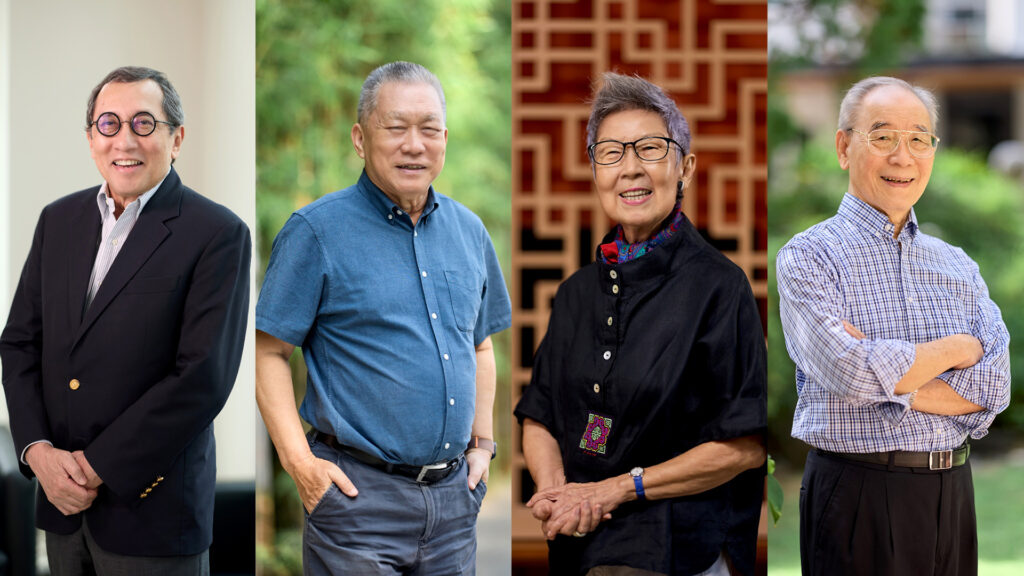
A diplomat for over three decades, Mr Kausikan has been an influential voice in shaping Singapore's positions on regional and international issues. His 37 years in the Ministry of Foreign Affairs (MFA) saw him serving in a variety of appointments at home and abroad, including as Ambassador to the Russian Federation, Permanent Representative to the United Nations (UN) in New York, and notably as the Permanent Secretary of the MFA from 2010 to 2013. He is actively engaged in ASEAN forums, facilitating dialogue, cooperation, and conflict resolution among member states. His articles and speeches, which provide thought-provoking analyses of regional issues, have influenced policymakers and scholars alike. He is currently Chairman of the NUS Middle East Institute.
Professor Paul Cheung is Director of the Asia Competitiveness Institute at the NUS Lee Kuan Yew School of Public Policy and is well-known for his pioneering research in the fields of official statistics, social planning, manpower and population. In a previous role as Chief Statistician of Singapore, he transformed the national statistical system - the 2000 Singapore population census was the first in Asia to make full use of population and business registers and the Internet to collect data. As Chief Statistician of the UN from 2004 to 2012, he played a pivotal role in developing the global statistical system and establishing an inter-governmental platform on Global Geospatial Information Management.
A 2023 Cultural Medallion winner, highly accomplished author Ms Suchen Christine Lim's critically acclaimed fiction explores themes of cultural identity, the complexities of history, and Singapore society's diverse cultural and linguistic tensions. Her 1984 debut novel Rice Bowl established her as a significant voice in Singapore's literary scene. Her third novel, Fistful of Colours, was awarded the inaugural Singapore Literature Prize in 1992. Another, The River's Song, was featured in Kirkus Reviews (US) as one of the "100 Best Books of 2015". She was also awarded the Southeast Asian Writers Award in 2012 for her body of work. Keen on fostering the next generation of literary talent, she mentors, teaches and provides platforms for young writers to showcase their work.
Mr Tan Yam Pin is a prominent business leader who built an illustrious career spanning three decades in the corporate world - he led the Cold Storage group of companies in Singapore and Malaysia; the Fraser & Neave group of companies, including Centrepoint Properties Ltd; and the Asia Pacific Breweries Ltd group of companies across Asia. Post-retirement, Mr Tan served on the boards of prominent companies in Singapore. Mr Tan also has a scholarly bent. Before his foray into business, he taught in the Department of Economics under the then University of Singapore's Faculty of Arts. Together with three colleagues, he subsequently established the Department of Business Administration, now known as the NUS Business School.
Congratulating the recipients at the ceremony, NUS President Professor Tan Eng Chye noted that their contributions to Singapore and passion for what they do will inspire many, especially current and future FASS students who will follow in their footsteps and create their own legacies.
He added, "As educators, it is deeply encouraging when we see our graduates achieve success in their endeavours. It reaffirms the transformative power of education, and it inspires us to continually improve how we teach, how our students learn, and how the student life experience can set our graduates up to thrive and contribute positively to society."
More information on the award recipients can be found here.
This story first appeared in NUSNews on 16 May 2024.
Preserving Flesh and Spanning Families
Tamils celebrate the Tamil New Year, Puthandu, on the 14th of April. As part of the festivities, Tamils gather with their families and partake in a vegetarian feast. Vegetarian foodways play a significant role in Tamil culture and have featured in academic scholarship. However, Asst. Prof. Indira Arumugam (NUS Sociology and Anthropology) directs the focus to the cultural significance of preserved meat and fish in Tamil Nadu societies instead.
In her article ‘Preserving Flesh and Spanning Families’ (Gastronomica, May 2022), she sheds light on the role of preserved food in preserving kinship in the Tamil Nadu village of Vaduvur where her extended family resides. Asst. Prof. Arumugam’s research and ruminations on the binding power of preserved meat and fish thereby highlight the crucial role they play in connecting kin.
Tapping on personal anecdotes regarding her family’s process of the preparation of meat and fish, Asst. Prof. Arumugam makes the point that preserved food functions as a social connector that binds families together. Through explaining the arduous process by which meat and fish are preserved, she asserts that one can only rely on village kin to share and obtain preserved meats, highlighting the centrality of family ties in the importance of preserved meat in Tamil Nadu culture.
Broadly, she posits that the familial rites surrounding preserved food and its preparation reflect the idiosyncrasies of Tamil intimacy and affection. She highlights that the act of serving and preparing preserved meat and fish is a testament to familial hospitality and a means of welcoming relatives who have long been separated.
In a reflection on the interaction between her ethnic identity rooted in Vaduvur and her Singaporean upbringing, Asst. Prof. Arumugam discusses the role of preserved meat as an identity marker that is capable of making distinct separations between villager and urban citizen.
Preserved foods evoke memory and nostalgia, and their taste serves to bridge the symbolic separation of the urban from the rural, the city from the village, and the relationships between family members that have been wrought by distance and time.
Read ‘Preserving Flesh and Spanning Families’ here: https://online.ucpress.edu/gastronomica/article-abstract/22/2/92/169808/Preserving-Flesh-and-Spanning-Families?redirectedFrom=fulltext
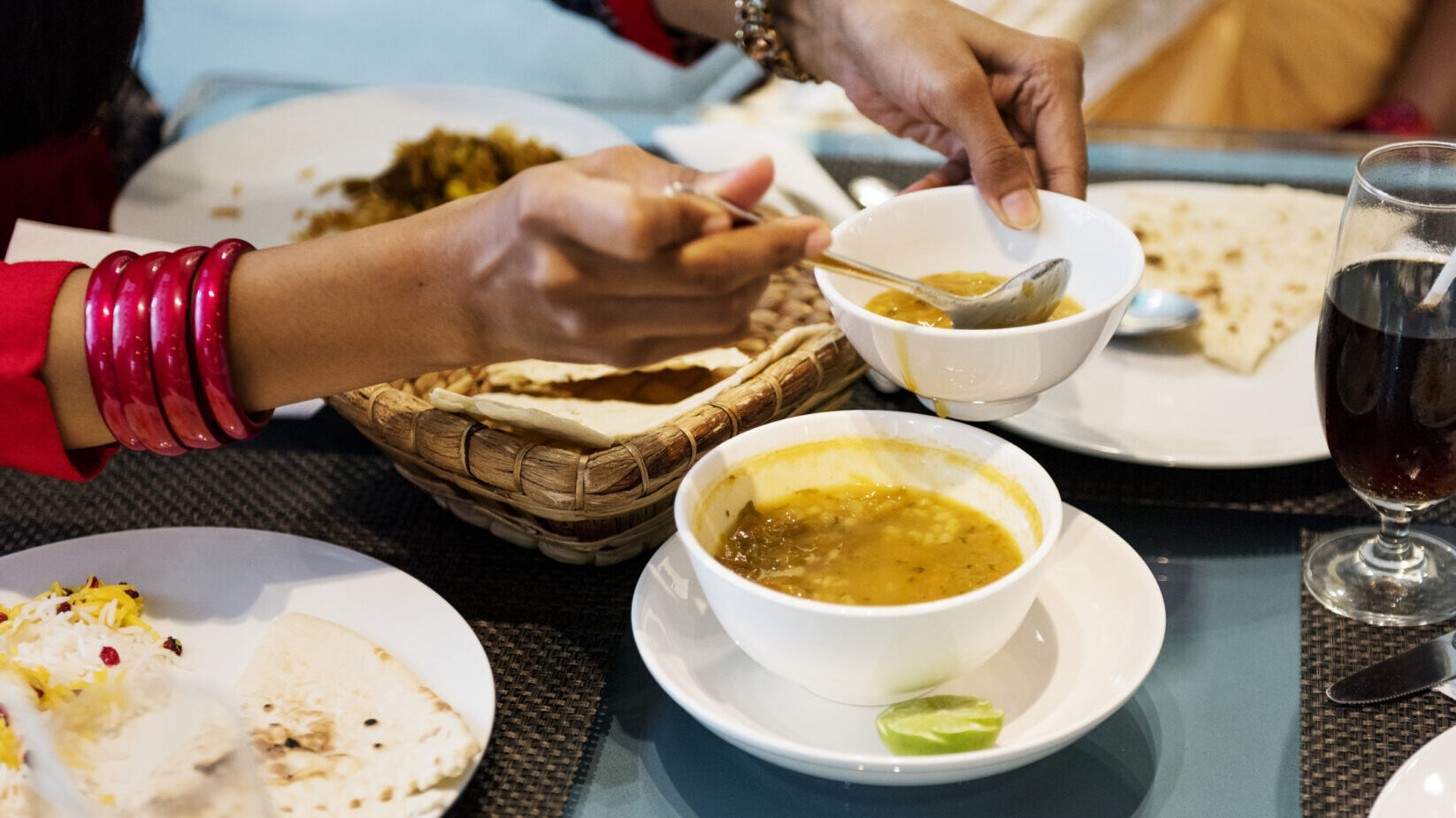
Qualifications v Skills: Is One Just Paper, the Other the Real Deal?
IN BRIEF | 10 min read
- Column in The Straits Times by Associate Professor Tan Ern Ser from NUS Sociology and Anthropology and Academic Adviser to the Social Lab at the Institute of Policy Studies at NUS, and Mr Hanniel Lim, Research Assistant at Institute of Policy Studies at NUS.
Click through image below to read this piece.
This story first appeared in The Straits Times and NUSNews on 3 April 2024.
Study: Elderly Residents Often Return to Tanglin Halt after Relocating
IN BRIEF | 4 min read
- A study led by NUS Asia Research Institute Senior Research Fellow Professor Elaine Ho (NUS Geography) finds that although there are supermarkets and coffee shops at Dawson Estate, the elderly residents who were relocated there a few years under the Selective En-Bloc Redevelopment Scheme (SERS) continue to return to Tanglin Halt to meet up and reminisce with their former neighbours.
Click through image below to read this piece.
These stories first appeared in Lianhe Zaobao and NUSNews on 21 March 2024.
Singaporeans prefer to have just one child, instead of being childless: Study
Fertility rates continue to fall worldwide, with more and more individuals choosing to have fewer children or forgo parenthood altogether. Singapore is no exception and currently has one of the lowest total fertility rates (TFR) in the world, with the resident TFR having declined to below 1.0 in 2023. The low birth rate is a pressing issue for economies, with a smaller labour force and a rapidly ageing population. To understand why individuals are having fewer children, studies have been done to examine perceptions towards child-rearing. One such study was recently conducted by Provost-Chair Professor Jean Yeung (NUS Yong Loo Lin School of Medicine and A*STAR Singapore Institute for Clinical Sciences), Assistant Professor Wang Senhu (NUS Sociology & Anthropology), and fellow international researchers, looking to understand individuals’ perceived family ideals, as reported in ‘Singaporeans prefer to have just one child, instead of being childless: Study’ (The Straits Times, March 2024). The researchers find that Singaporeans tend to favour having one child as opposed to having none. The study was done across eight countries (Japan, South Korea, Singapore, Italy, Spain, Norway, the United States, and China) with over 22,000 participants polled about their thoughts on parenthood. In Singapore alone, 3,500 people were interviewed, with similar results to the findings of the other countries. Although a trend was seen globally, the findings marked a shift in mindsets locally, as previous research had indicated that Singaporeans tended to prefer having two children instead. The researchers also note that their updated methodology aimed to produce more authentic answers from participants, reflecting a more accurate understanding of parenthood ideals in Singapore and the other countries. Read the article here.
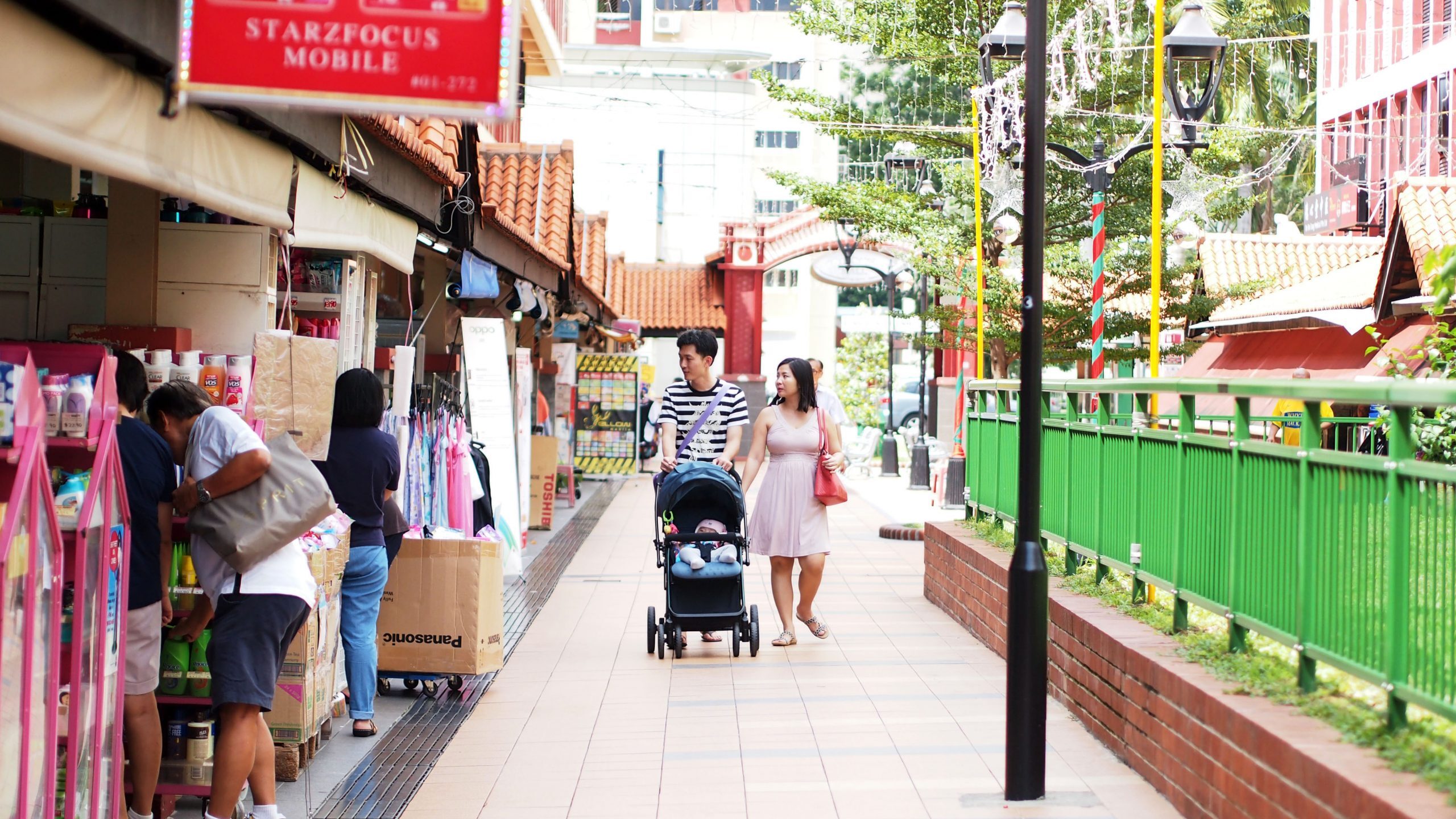
Exploring the Impact of Taylor Swift: NUS FASS TA Presents Academic Paper on Pop Icon’s Influence at Swiftposium
IN BRIEF | 8 min read
- A paper authored by Ms Aimee-Sophia Lim, a full-time teaching assistant at the NUS Faculty of Arts and Social Sciences Department of Sociology and Anthropology was among the 130 papers presented by academics analysing Swift's influence across diverse disciplines including economics, business, media studies, health, as well as the societal and cultural spheres.

Taylor-mania will sweep Singapore's shores when American superstar Taylor Swift's six concerts kick off on 2 March 2024. But in Australia, which hosted the Grammy-winning musician's shows for seven nights ahead of her arrival here, it was not just her record-breaking Eras Tour that made headlines. There was also an event known as Swiftposium 2024 - an international academic conference bringing together scholars who know the musician all too well to study the singer's outsized impact on music, culture and society.
Hosted by the University of Melbourne from 11 to 13 February 2024, the three-day conference was a collaboration between scholars from six universities across Australia and New Zealand. A paper authored by Ms Aimee-Sophia Lim, a full-time teaching assistant at the NUS Faculty of Arts and Social Sciences Department of Sociology and Anthropology was among the 130 papers presented by academics analysing Swift's influence across diverse disciplines including economics, business, media studies, health, as well as the societal and cultural spheres.
When it was first announced last September, the conference received more than 400 academic papers for discussion, spanning 60 academic disciplines, from nearly 80 institutions worldwide.
"Being a Swiftie since the age of eight, I was really thrilled when I received the email informing me that I had been accepted to present at Swiftposium, especially after realising that the competition was steep due to the media coverage it had received," said Ms Lim, an FASS alumna and a former Global Studies major from the Class of 2023, referring to the term used to describe Swift's devoted fanbase. As the conference was a hybrid event, Ms Lim presented her paper virtually so that she can continue her teaching duties at NUS.

The enthusiastic response from the academic community to the conference was not unlike the reception to her wildly successful Eras Tour that pays homage to the 10 albums across her 17-year career.
Since the world tour began in March 2023, her fans have been pulling out all the stops to snap up concert tickets, flying across countries to see the singer in action and booking hotel rooms. In December, Swift's Eras Tour became the first music tour to surpass US$1 billion dollars in revenue, making it the highest-grossing tour ever, according to data from Pollstar, a trade publication for the concert industry. Meanwhile, online research firm QuestionPro in August projected that in the US alone, the tour could have generated close to US$5 billion in consumer spending from expenses for tickets, travel, clothing, food and merchandise.
Ms Lim noted that with 281 million followers on Instagram and 151 concert dates for her Eras Tour - some drawing up to 96,000 spectators - Swift has an undeniably large influence and platform both online and offline.
There is evidence of her influence on sociopolitical advocacy too, observed Ms Lim. "One of Swift's defining moments was when she broke her political silence on the Tennessee 2018 midterm elections where she spoke out against US senator Marsha Blackburn via an Instagram post and sparked a 65,000 increase in vote registration according to Vote.org."
All of this made for rich material for academics at the conference to study Swift's wide-ranging impact through the lens of their various disciplines.
Examining the pop icon's impact on economics, psychology, sociology and even neuroscience
"Most people would assume that the study of Swift and popular culture would be explored from the perspective of Media and Communications Studies or Literature, but at Swiftposium, there were presentations from fields such as Economics, Psychology, Neuroscience and of course, Sociology, making it a truly interdisciplinary experience," Ms Lim recounted.
Notable presentations included one that examined Swiftonomics, a term used to describe the economic benefits she brings to cities by boosting consumer spending and stimulating local businesses. Another presentation explored Swift's contribution to the body image discourse by studying how she infuses her personal experiences into her music and applying perspectives from Economics and Psychology.
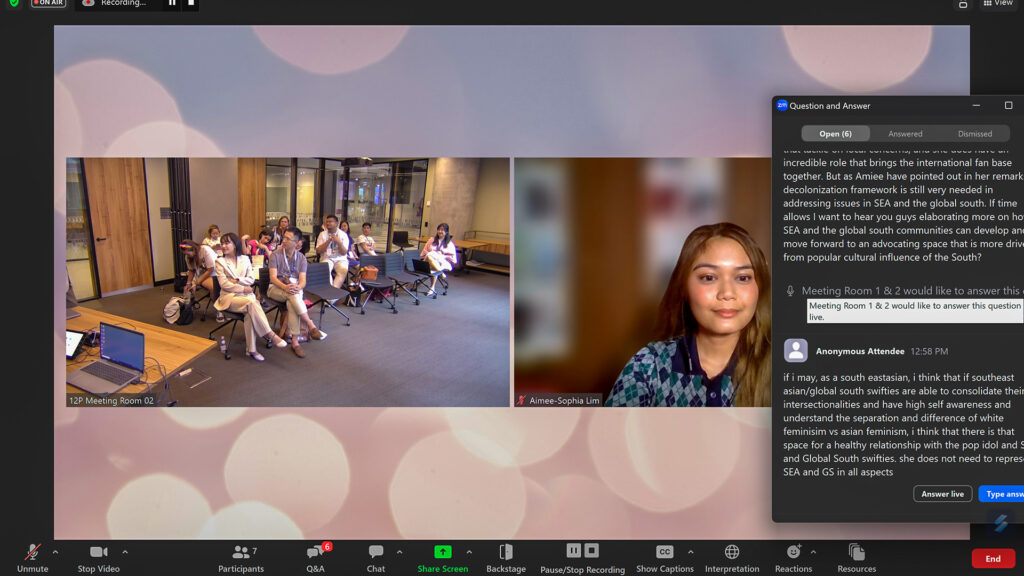
Many presenters drew upon their experiences within their societies to determine the scope and topics of their research. For example, one presentation centred on how her songs are received by an international audience, investigating how Chinese listeners interpret her lyrics and what is lost or gained in translation.
Others discussed feminism and why Swift's advocacy for gender equality should go beyond meeting the 'alpha-male' standard, whether Swifties would feel the same connection if the lyrics to her songs were written by artificial intelligence, and how Swift's redefinition of fan engagement in the digital age could necessitate calling out instances of unacceptable behaviour among the fandom.
"It was truly heartening and inspiring to witness how we had all come together from different fields to critically analyse the impact of the artist we all adore," said Ms Lim.
Titled "Miss Americana's Influence on Southeast Asian Swifties' Socio-Political Activism", Ms Lim's paper was one of two that discussed Swift's influence on the sociopolitical activism of her fans in Southeast Asia.
Combining her research interests in global social movements, decolonisation, feminism, and visual culture, she studied how Swift is inspiring political activism in the region, citing examples such as her influence on the campaign efforts by Filipino Swifties in the 2022 Philippine presidential election, while acknowledging the critiques of Swift's "US-centric, white brand of feminism".
These preliminary findings link closely to the study of social movements, examining what brings people together to rally for a common cause, and the many ways in which to connect with social issues and get involved in advocacy.
Ms Lim's research stems from her own adoration for Swift's music, her representation of female empowerment and how she encourages her fans to stay authentic to their own identities in spite of any negativity they may encounter along the way.
Through her work, she hopes that these findings can also be applied to understanding the potential and pitfalls of celebrity and pop culture advocacy as a whole, a subject that has often been criticised for being overly reductive and commercialised.
"After my presentation, I received messages from fellow attendees and presenters with feedback regarding my research, which even led to further discussions on the subject matter. Overall, this experience has inspired me to continue researching and to submit other proposals to academic conferences due to the enriching takeaways," said Ms Lim.
This story first appeared in NUSNews on 28 February 2024.
Governing Diverse Cities in Europe and Asia
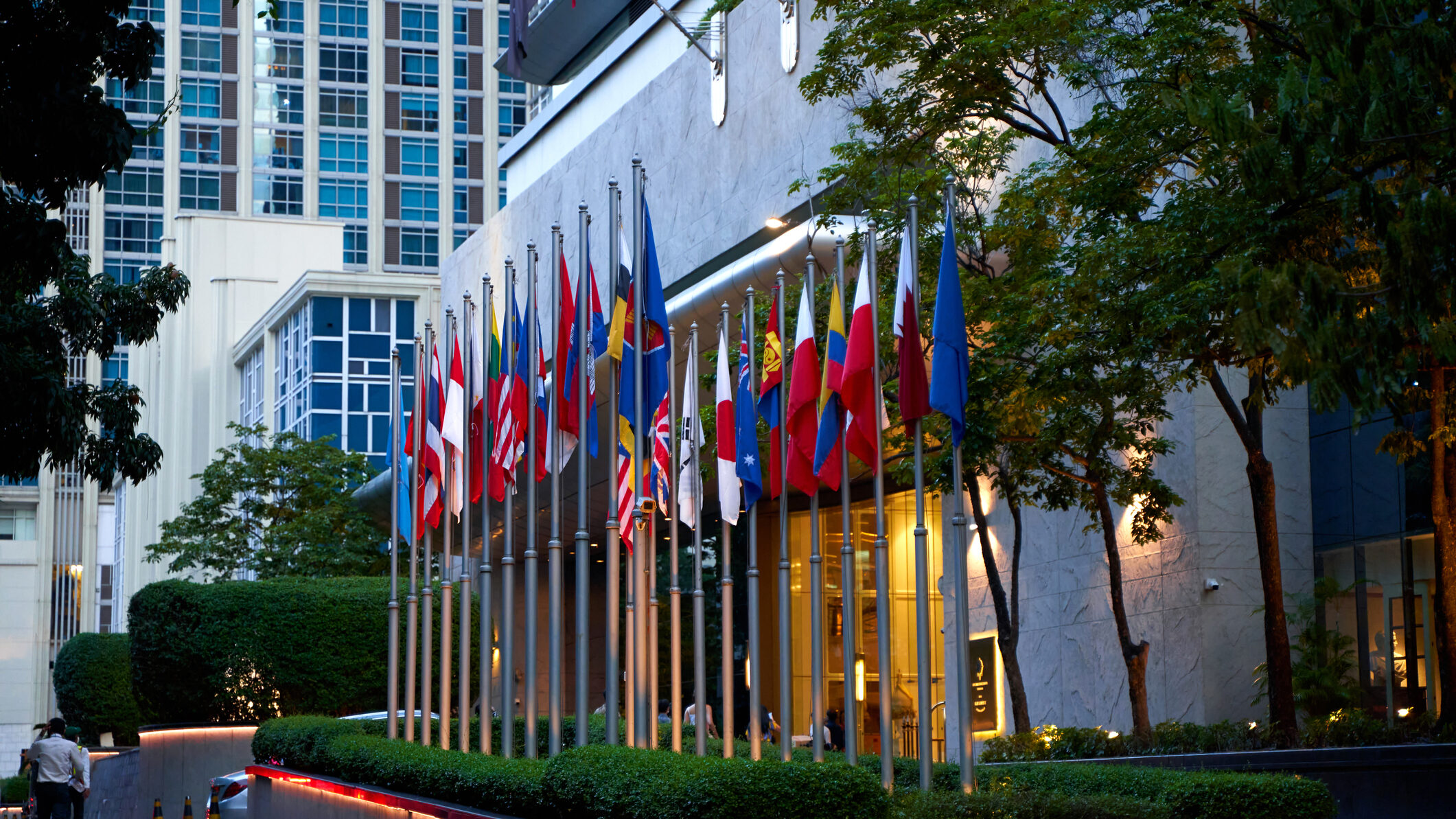
Rewriting the Family Rulebook
IN BRIEF | 8 min read
- NUS alumni Mr Darius Cheung (Engineering '04) and Dr Shannon Ang (Sociology '15) recently shared their insights at Institute of Policy Studies' annual flagship Singapore Perspectives conference, exploring the hopes, fears, expectations of youths in relation to family life.

"I think it is impossible for society to agree on the definition of a successful family," said Mr Darius Cheung. "We have to accept that we won't have the same definition, and that is OK."
Mr Cheung was speaking at Singapore Perspectives - the annual flagship conference by NUS Lee Kuan Yew School of Public Policy's autonomous research centre, the Institute of Policy Studies (IPS). Held on 22 and 29 January 2024, the latest edition of the conference (SP24) saw six sessions that centred on the perspectives of youths in Singapore on areas including politics, work and wellbeing.
Mr Cheung, together with fellow NUS alumnus Dr Shannon Ang, Assistant Professor from School of Social Sciences, Nanyang Technological University; and Mr Yuvan Mohan, a member of the Families for Life and National Youth Council, were part of a panel for a session focusing on the topic of "Youth and Family", moderated by Institute of Policy Studies Senior Research Fellow Dr Tan Poh Lin.

Tackling New Norms and Relative Scarcity
Leveraging his expertise as co-founder and chief executive officer of online property marketplace 99.co, Mr Cheung observed that rising property prices are a deterrent for youths planning to start a family of their own. Yet the real issue isn't with absolute, but relative scarcity.
"We live in the top one to five per cent of the world: [most parents] in Singapore [don't worry] about feeding their child or putting a roof over their family's head. [More often] the problem is relative scarcity, such as choosing between a public or private preschool." Mr Cheung elaborated: "This relative scarcity gets worse when you have more than one kid and have to split your resources. The fear of inadequacy - of not providing your child with the best - is very real."
The father of a seven-year-old child also highlighted that the situation is even worse for single mums and other non-traditional family units who do not qualify for baby bonus or tax incentives.
Dr Ang agreed, noting that many surveys have shown that youths aspire to have children, but do not act on this: "There is a widening gap between reality and the ideal young people want. When young people say that it is expensive to raise a child, they are not talking about just monetary but opportunity costs, and this cost constantly inflates. This isn't just because they have crazy ideas of their child being at the top - even being average is expensive."

Family vs Work: What Comes First?
The tension between pro-family and economy-first positions has to be recognised: "Family and work cannot be both first," Dr Ang stressed. "If our society values economic success more, we cannot blame young people from having that perspective."
He also questioned the sustainability of hiring foreign domestic help so that both parents can work to sustain standards of living; or how realistic it is to see grandparents as "free childcare labour", especially when the population is expected to work for longer. "I don't know how the math works," he conceded.

Echoing Dr Ang's point, fellow panel member Mr Yuvan Mohan said that tension between prioritising family above economic interests need to be addressed in the shaping of public policies - from housing to CPF usage to leave allowance.
Mr Yuvan proposed a holistic approach to youths dealing with having families - a community of care. This means having institutionalised elder- and childcare facilities, recreational and lifestyle options, alongside high- calibre schools within easy access from a person's place of residence, so that the physical environment of the community can support all aspects of family life.
Drawing parallels to mentorship systems in the corporate world, he also proposed that youths could benefit from intergenerational conversations - and with peers who have been-there-done-that - when it comes to dealing with family responsibilities.

This story first appeared in the AlumNUS on 7 February 2024. It was written by Koh Yuen Lin; photos courtesy of Jacky Ho, for the Institute of Policy Studies, NUS.
Japanese, Chinese Students Follow the Rhythm of the NUS Malay Dance Group
IN BRIEF | 10 min read
- Report in Berita Harian on the multicultural, multinational membership of the NUS Malay dance group Ilsa Tari by student Nur Zakirah Rosman (NUS Sociology and Anthropology and NUS Malay Studies).
Click through image below to read this piece.
This article first appeared in Berita Harian and on NUSNews on 6 February 2024.
RECORDING | Book Launch - Rights Refused: Grassroots Activism and State Violence in Myanmar
Here is the Zoom recording of the book launch of Rights Refused: Grassroots Activism and State Violence in Myanmar by Dr Elliott Prasse-Freeman (NUS Sociology and Anthropology). If you could not make it to the live event or wish to relive the engaging discussions, simply access the recording here. https://youtu.be/e0OHHwUStqU
Looking to 2024: Health Issues on the Horizon – from Ageing to Mental Well-being and Digital Medicine
IN BRIEF | 8 min read
- The rising number of seniors living alone and the growing proportion of one-person households are changing Singapore's household structures, and these shifts in living arrangements will have a bearing on the social connections and mental well-being of individuals, presenting challenges for Singapore's mental health landscape in the coming years, according to Associate Professor Feng Qiushi (Deputy Head of NUS Sociology and Anthropology and Assistant Dean of Research, FASS).
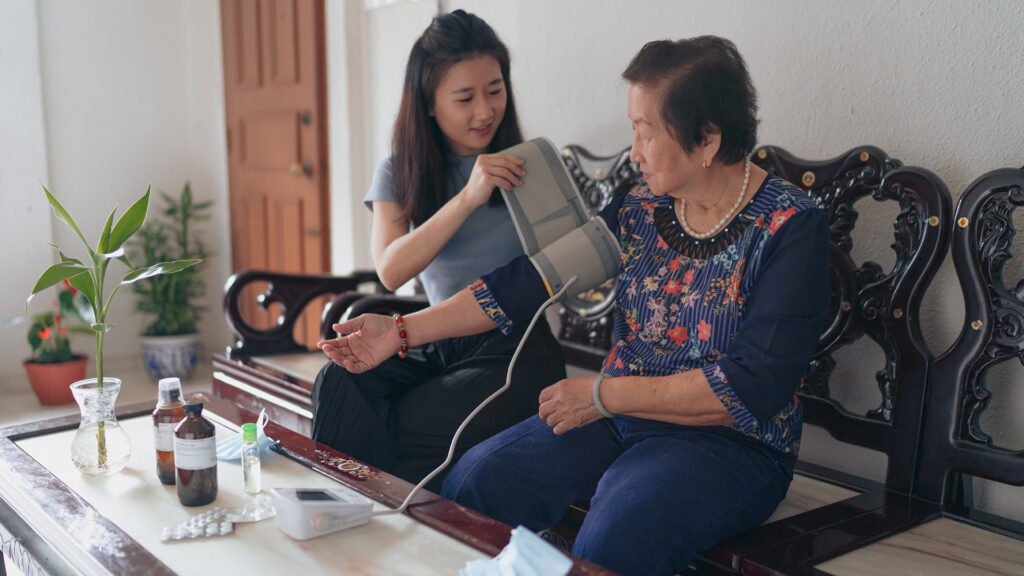
The world marked an important milestone in 2023 - the end of COVID-19 as a global health emergency. The World Health Organization's (WHO) announcement in May came more than three years after the coronavirus crisis, although it cautioned that the virus was here to stay.
Progress was also made in other areas. New vaccines were approved for malaria, dengue and meningitis, while more than 120 countries signed a declaration to accelerate efforts to protect people's health from the growing impact of climate change, the WHO's chief noted in a year-end message.
In Singapore, the Healthier SG initiative was launched, focusing on preventive and holistic care for residents to deter chronic conditions, while the new National Mental Health and Well-being Strategy aims to enable individuals with mental health needs to seek help without stigma.
Looking to 2024 and beyond, what public health challenges will need to be addressed? What emerging trends could shape the landscape for mental health and well-being, and how can we leverage the potential of digital medicine to improve healthcare? NUS researchers from the Saw Swee Hock School of Public Health (SSHSPH), Department of Biomedical Engineering at the College of Design and Engineering (CDE), Department of Sociology and Anthropology at the NUS Faculty of Arts and Social Sciences (FASS), as well as the Lee Kuan Yew School of Public Policy (LKYSPP) share their insights.
Ageing Population, Mental Health and Infectious Disease Management among Singapore's Health Concerns; Health Equity Key to Complex Global Challenges
In 2024, Singapore will continue to face significant public health challenges related to its ageing population, mental health, and ongoing efforts to manage and prepare for infectious disease outbreaks, says Associate Professor Natasha Howard from SSHSPH. Globally, Dr Howard highlights the importance of ensuring equitable vaccine access in underserved regions, mitigating antibiotic resistance, addressing non-communicable diseases, as well as safeguarding public health in the face of climate change.
Singapore's growing elderly will put increasing pressure on the health system, particularly for age-related illnesses and long-term care, requiring a whole-of-society approach to positive lifestyle management and healthy ageing. Mental health advocacy and support will remain important to address familial and societal stressors or more existential pressures, such as geopolitical events and climate change. Meanwhile, the aftermath of the COVID-19 pandemic will not only require managing potential variants, but also balancing economic recovery with health safety, supporting global improvements in vaccination equity, and ongoing vigilance to mitigate emerging infectious diseases and potential outbreaks.
On the global front, health priorities are complex and require concerted efforts from both governments and civil society in healthcare innovation, with a focus on prioritising health equity.
Equitable global vaccine access - particularly against diseases such as COVID-19, measles, and polio - is crucial to save lives and reduce potential epidemics. Mitigating antibiotic resistance requires prudent national usage, robust surveillance and novel treatment research. Addressing non-communicable diseases requires preventive measures beyond the health sector to emphasise structural lifestyle changes (such as reducing the availability of ultra-processed food) and early disease detection. Meanwhile, environmental resilience will necessitate bold national and international policies to mitigate climate change's health impacts.

Role of Digital medicine in Delivering Healthcare through Personalised Treatments, Empowering Patients and Improving Preventive Health
Dr Dean Ho, Provost's Chair Professor and Head of the Department of Biomedical Engineering at CDE, points to the growing applications of digital medicine in healthcare delivery. Drawing upon his work co-developing CURATE.AI, an artificial intelligence platform that provides personalised drug dosage recommendations for chemotherapy patients by studying their responses to a medication regimen, Dr Ho adds that such solutions will also play a vital role in improving population health.
The field of digital medicine, when aligned with a broader ecosystem of disciplines that collectively understand the intended user, is poised to change the prestige of medicine at scale, sustainably. One example of how we are applying digital medicine to healthcare and health is by harnessing our CURATE.AI platform to use only a patient's own data to dynamically adjust his or her own cancer drug dosing to optimise treatment outcomes. We are also developing a CURATE.DTx, a digital therapeutics platform that can personalise multi-tasking training for brain cancer patients, with software serving as the treatment. As cognitive decline may be a concern following brain radiation treatment for these patients, the software seeks to personalise training difficulty to optimise the cognitive performance of its users.
Moving forward, digital solutions will also be critical to address population health. At the heart of this challenge is the ability to empower long-term behavioural change in patients, an essential component of realising improved preventive health and treatment outcomes for our community. The field of digital medicine can play a critical role towards achieving this objective through holistic, user-centred innovation. Realising frameworks that drive innovation in this manner will require insights from engineers, clinicians, behavioural and implementing scientists, health economists, and beyond. Empowering these highly diverse stakeholders will ultimately accelerate our community towards actionable solutions that span key domains such as ideation, innovation, validation, implementation, and ultimately, adoption and beyond.
Impact on mental health as Singapore shifts towards smaller household sizes and more people living alone
The rising number of seniors living alone and the growing proportion of one-person households are changing Singapore's household structures, notes Associate Professor Feng Qiushi of FASS. He adds that these shifts in living arrangements would have a bearing on the social connections and mental well-being of individuals, presenting challenges for Singapore's mental health landscape in the coming years.
2024 marks the 30th anniversary year for the International Conference on Population and Development (ICPD), based on which the Millennium Development Goals (MDGs) and the Sustainable Development Goals (SDGs) were consecutively proposed to guide global development. Almost all issues mentioned by MDGs and SDGs are related to the mental health and well-being of human beings.
Specific to Singapore, it seems timely to pay special attention to the issue of household structure. Among many other countries, Singaporeans are experiencing a rapid transformation towards smaller household sizes, which is changing the dynamics of how Singaporeans are maintaining their family and social connections. Specifically, we may see more older people living without children or spouses, more youth choosing to remain single, and in particular, an increasing number of people living solo among the various age groups.
As living arrangements are indicative of the essential social interactions in daily life and thus a foundational parameter of mental health and well-being, such a demographic change may pose significant challenges to Singapore in the years ahead.
Digital Well-being Faces Risk of Rising Trust Deficit Due to Generative AI
The growth of generative AI (artificial intelligence), along with its capacity to be used for producing deepfake videos and misinformation, will make it harder for users to discern the authenticity of content they encounter online. This erosion of trust in online interactions could have adverse effects on digital well-being, says Dr Chew Han Ei, Adjunct Senior Research Fellow at the Institute of Policy Studies, at LKYSPP.
The rise of generative AI, exemplified by tools such as ChatGPT, will exert a profound impact on digital well-being in 2024. While the benefits and opportunities are promising, the risks linked to unchecked development and application of generative AI cast a foreboding shadow over the horizon, posing a significant threat to trust in the digital realm. As an academic, I am deeply concerned about the escalating trust deficit stemming from the darker implications of unregulated AI development.
Generative AI introduces unique challenges that amplify the existing trust deficit in our digital activities. Its ability to produce highly convincing and hyper-personalised content raises concerns about misinformation, deepfakes, and manipulation. The subtle nuances of its language generation capabilities create difficulty for users in distinguishing between authentic and AI-generated content, thereby eroding trust in digital communication channels.
Preserving trust has become a pivotal factor to maintaining digital well-being. Establishing and maintaining digital trust is non-negotiable. Transparent frameworks, stringent security measures, and ethical guidelines must take precedence. Navigating the evolving terrain of technological progress in 2024 demands constant vigilance, ensuring that trust is not compromised in the face of potential pitfalls associated with generative AI.
In the 'Looking to 2024' series, our NUS experts weigh in on what readers can expect in the new year.
This story first appeared in NUSNews on 29 January 2024.
Capitals of the Future: Place, Power, and Possibility in Southeast Asia
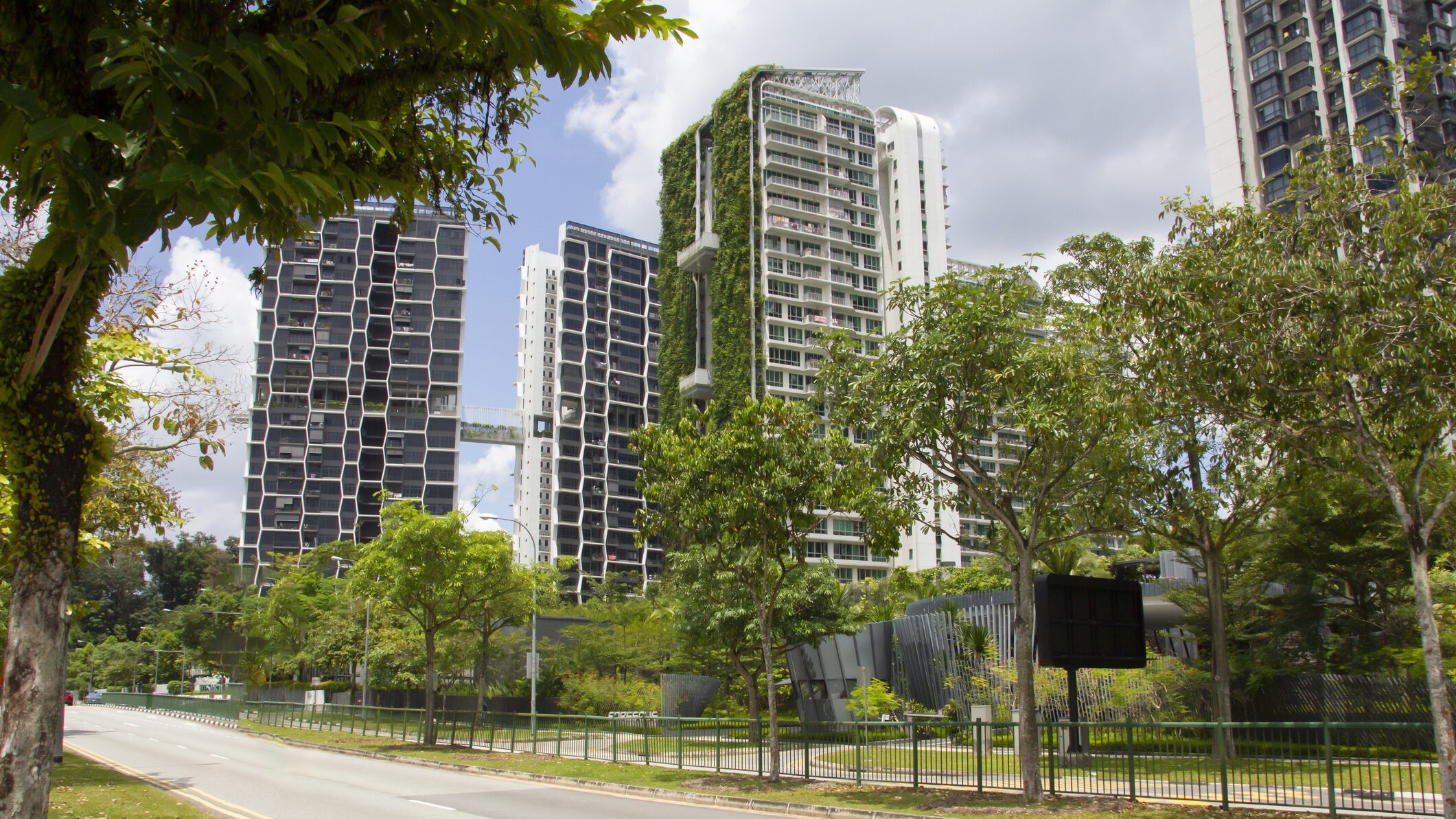
(Cr)Immigration and Merit-Based Migration in Singapore: The Permanent 'State of Exception'
As the world observes International Migrants Day on 18 December, Singapore is once again reminded of its dependence on migrant labour, as well as the issues surrounding migrant workers in the city-state. Dr George B. Radics (NUS Sociology and Anthropology) reckons with the state of precarity that migrant labourers live in in Singapore, and delves deep into this subject in his chapter titled ‘(Cr)Immigration and Merit-Based Migration in Singapore: The Permanent 'State of Exception’ in the book Criminal Legalities and Minorities in the Global South: Rights and Resistance in a Decolonial World (Palgrave Macmillan, 2023).
Dr Radics examines Singapore's merit-based immigration system, which he argues intensifies the marginalization of temporary migrant workers. He sheds light on the hierarchy of foreign workers, whose rights and permissions are tied to their employment status. Dr Radics then posits that migrants at the bottom rungs of this hierarchy are often denied fundamental rights that are otherwise granted to other migrants and citizens.
The chapter investigates the plight of migrant workers, particularly labourers from India and Bangladesh who are low-income and on temporary work permits. Dr Radics explains that these workers are positioned at the bottom of the skills hierarchy and hence find themselves in a perpetually precarious condition in Singapore’s criminal justice system. Because of this, their status fluctuates according to their behaviours and whether they are perceived to be security threats.
Dr Radics provides compelling examples of how legal protections for migrants are often suspended during times of crisis. In particular, he highlights the Little India riot of 2013, the swift detention and subsequent deportation of Bangladeshi migrant workers under the Internal Security Act (ISA), and the stringent regulations imposed on construction workers during the COVID-19 pandemic as testament to his claims. These instances underscore an unsettling reality – that in emergencies, migrant workers are often the first to be stripped of their rights, their residence in Singapore being in constant jeopardy.
To explain how these power asymmetries and systems of hierarchy came to be, Dr Radics explores the history of South-South migration and its entanglement with Singapore’s immigration laws. He delves into the history of colonial migration to Singapore, which he points out led to the evolution of Singapore’s merit-based migration system. This system, he explains, was designed to regulate the influx of foreign workers based on their country of origin.
Dr Radics also brings attention to the Singaporean government’s prioritisation of order over justice. He posits that the government's paternalistic approach entangles crime and criminal justice with immigration policies, and argues that while Singapore's laws may seem excessively harsh, they are ultimately a product of deep-rooted colonial racialized migration practices combined with the demands of a competitive globalized economy.
The chapter concludes with a cautionary note on the global implications of merit-based migration systems. Such systems, the Dr Radics asserts, dehumanize low-skilled migrant workers and exacerbate the state of precarity they face.
In the spirit of International Migrants Day, Dr Radics’ book chapter serves as a poignant reminder of the challenges faced by migrant workers and urges readers to re-evaluate their attitudes towards them.
Read the chapter here.
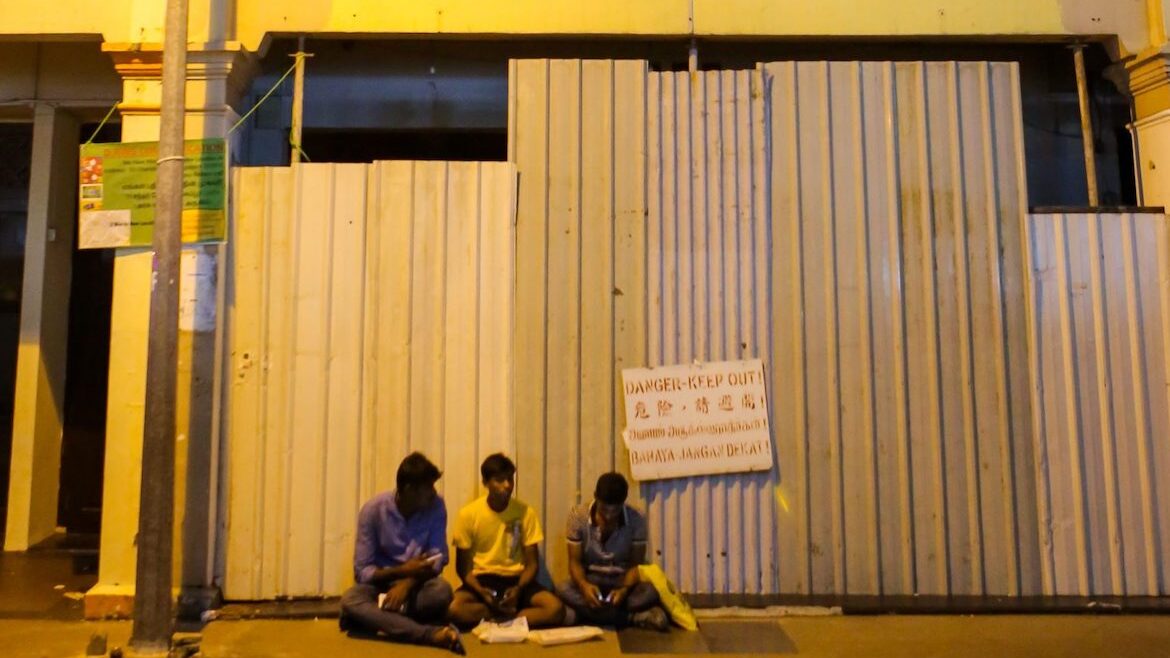
NUS Alumni Awards 2023: Celebrating Outstanding Changemakers and Trailblazers
IN BRIEF | 8 min read
- NUS honoured the achievements of 21 outstanding alumni and three alumni teams comprising another 14 alumni, at the prestigious NUS Alumni Awards 2023.
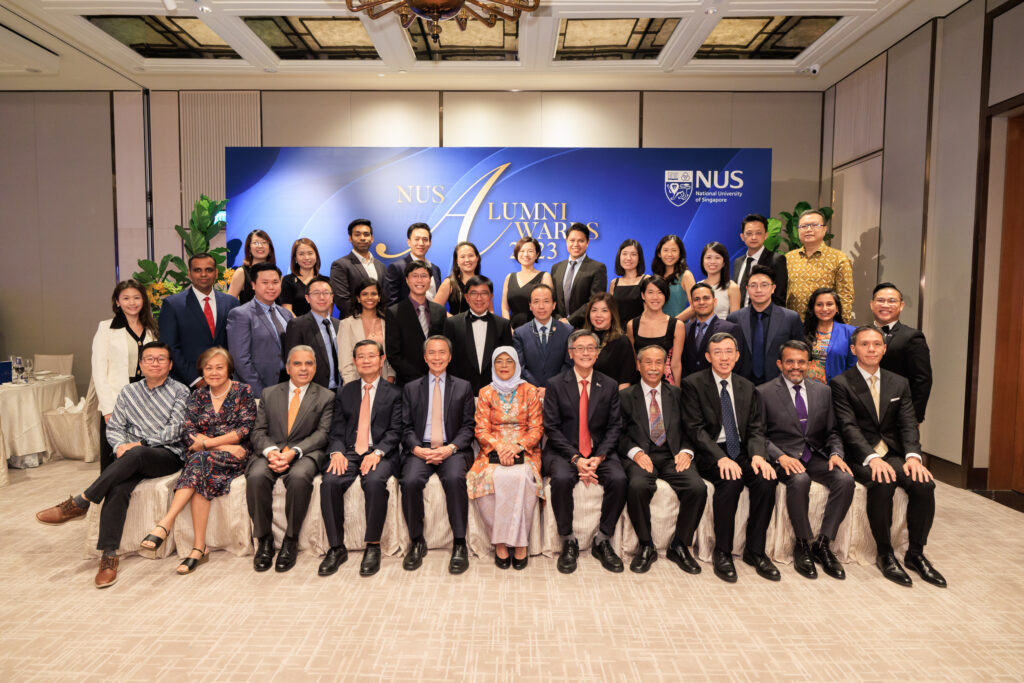
Twenty-one individual alumni and three alumni teams, comprising another 14 individuals, were honoured at the NUS Alumni Awards 2023 on 2 November.
Now in its 10th edition, the biennial NUS Alumni Awards recognise alumni who have distinguished themselves through significant and impactful contributions to their alma mater, society and the world.
Speaking at the celebratory event, NUS President Professor Tan Eng Chye noted that the award recipients have, “not only found success in their respective fields, but elevated what it means to be an alumnus or alumna of our institution: their achievements have enriched our culture, advanced our science, deepened our humanity, and bettered our society”. Read Prof Tan's speech here.
Eminent Alumni AwardThe Eminent Alumni Award was conferred on Mdm Halimah Yacob, former President of the Republic of Singapore, for her achievements in public service, as well as her exemplary service to the University as the former Chancellor of NUS from 2017 to 2023. Mdm Halimah Yacob
Mdm Halimah graduated in 1978 with a Bachelor of Laws from the University of Singapore and obtained her Master of Laws from NUS in 2001. She spent 33 years with the labour movement, rising to become Deputy Secretary-General of the National Trades Union Congress (NTUC). In 1999, she became the first Singaporean elected to the International Labour Organisation (ILO), where she served for 12 years, representing workers globally. She entered politics in 2001, serving as a Member of Parliament until 2017. In a career filled with firsts, she became the first woman appointed Speaker of Parliament in 2013; and the first woman to be elected President of Singapore in 2017, a role she held until 2023. For her service, she was conferred the Order of Temasek (With High Distinction), the nation’s highest civilian honour, this year.
As Chancellor of the University, Mdm Halimah conferred close to 76,000 undergraduate, master’s, doctorate and honorary degrees over six years, and presided over the Main Commencement ceremonies for graduates and honorary graduates. She also graced various NUS events, including NUSSU Rag & Flag Day 2018, NUS Bizad Charity Run 2020, the Bukit Timah Homecomings of 2018 and 2022, the Institute of Policy Studies’ Women’s Conference in 2021, and the 52nd UM-NUS Inter-University Tunku Chancellor Golf Tournament in 2023.
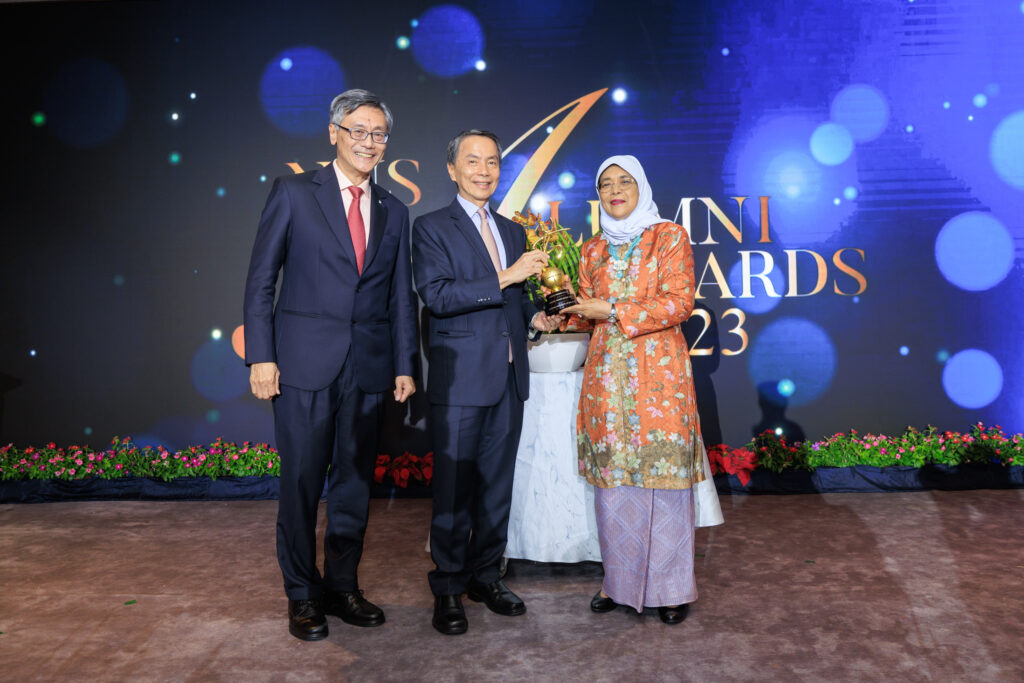
Delivering the citation for Mdm Halimah’s conferment, Prof Tan commended Mdm Halimah as an “inspiring leader” and “trailblazing alumna”, noting her “unwavering dedication to advancing the lives of individuals and communities, particularly the underprivileged”. Read the citation here.
“I am deeply honoured to receive the Eminent Alumni Award from my alma mater. NUS has played a formative role in my life, shaping not only my academic development but the values I have carried throughout my career,” said Mdm Halimah.
Watch this tribute video on Mdm Halimah’s contributions to the University and Singapore.
Distinguished Alumni Service AwardEight NUS alumni were conferred the Distinguished Alumni Service Award for their achievements in their chosen fields, as well as their excellent volunteer service to NUS, its predecessor institutions and/or the community.
These award recipients were:
- Professor Kishore Mahbubani (NUS Philosophy '71), Distinguished Fellow at NUS Asia Research Institute
- Mr Kok Heng Leun, founder of the Drama Box theatre group
- Ms Janet Lim Yuen Kheng (NUS Sociology, 75), former Assistant High Commissioner (Operations) at the United Nations High Commissioner for Refugees (UNHCR)
- Justice Andrew Phang Boon Leong, Senior Judge of the Supreme Court of Singapore
- Mr Ravi Menon (NUS Economics '87), Managing Director of the Monetary Authority of Singapore
- Mr Brian Tan Kai Piang, Regional President of Applied Materials Southeast Asia
- Mr Wong Kan Seng (NUS History and English '70), former Deputy Prime Minister of Singapore
- Mr Yatiman Bin Yusof (NUS Geography and Malay Studies '72), High Commissioner of Singapore to Kenya and Malay language champion
Twelve young NUS alumni were honoured for their achievements and outstanding contributions to their chosen fields.
These award recipients were:
- Dr Aishwarya Bandla, Regional R&D Manager at Paxman Coolers
- Ms Akanksha Batura Pai, Head of Strategy and Growth at Sinoda Shipping Agency
- Dr Rena Dharmawan, Assistant Dean and Assistant Professor at Duke-NUS Medical School
- Mr Faris Bin Ridzuan (NUS Sociology '15), academic tutor at the National University of Singapore
- Dr Izzuddin Bin Mohd Aris, Assistant Professor at Harvard Medical School and Harvard Pilgrim Healthcare Institute
- Mr Khoo Yi Feng (NUS Southeast Asian Studies and Psychology '17, Social Work (postgraduate diploma) '20), social worker and mental health advocate
- Mr Kwok Ka Ming Andre, founder of Good City Foundation
- Mr Samson Leo, Chief Legal Officer of Fazz
- Mr Raghuram Natarajan, Chief Executive Officer of Blueleaf Energy
- Mr Seah Li Song Shawn (NUS Economics '10), local history author
- Dr Shravan Verma, Co-founder of Speedoc
- Ms Frances Tho Siao Ting, Vice President of Sales at Numerix
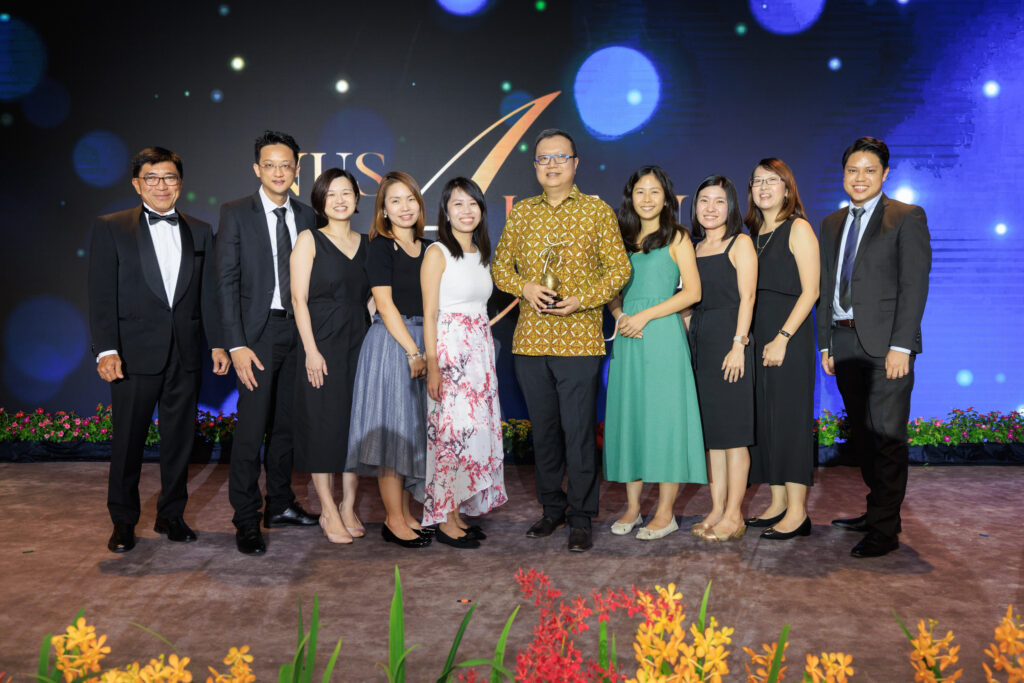
Team (Alumni) Award Recipients
The Team (Alumni) Award recognises the outstanding achievements of alumni teams who have collectively distinguished themselves in their chosen fields.
Three awards recipients were:
- Co-founders of Growthbeans: Ms Shamantha Yan Shiya (NUS Sociology '09) and Ms Shane Yan Shiyan (NUS Psychology '09)
- Co-founders of Janio Asia: Mr Ng Jun Kai and Mr Nathaniel Asher Yim
- REACH (Response, Early Intervention and Assessment in Community mental Health) Team, Institute of Mental Health: Ms Esther Chew Yuki (FASS '14), Dr Daniel Fung Shuen Sheng, Mr Ho Weng Siong (FASS '16), Ms Li Jiaying Grace, Mr Ong Guo Xiong Jeffrey (FASS '09), Ms Ong Tze-I Cheryl (FASS '08), Ms Sim Si Lin (FASS '12), Ms Tan Ke Jia (FASS '03), Mr Tan Zheng Xin, Jason (FASS '08) and Ms Kelly Yeo (FASS '07)
Read more about the NUS Alumni Awards 2023 recipients here and here.
This story by the NUS Office of Alumni Relations first appeared in NUSNews on 2 November 2023.
Mind the Gap — Divergent Expectations About University Degrees Among Youth Could Have Domino Effect
IN BRIEF | 5 min read
- Column by Assoc Prof Vincent Chua (NUS Sociology and Anthropology) in TODAY.
Click through image below to read this piece.
This article first appeared on TODAY and in NUSNews on 24 October 2023.
Long Education Journey Not Affecting Determination to Study at NUS
IN BRIEF | 5 min read
- Mr Marzuki Nooranas Sarip (Year 2, NUS Communications and New Media and NUS Sociology and Anthropology) on never giving up on his goal of academic excellence in university.
Click through image below to read this piece.
This article first appeared in Berita Harian and NUSNews on 14 October 2023.
Coming Together in a Whole-of-Society Approach to Address Singapore's Ageing Population Challenges
IN BRIEF | 5 min read
- The profiled alumna Ms Siti Adriana Muhamad Rasip is the co-founder of Empowered Families Initiative, which seeks to harness the strengths and abilities of low-income families by investing in their aspirations, and took home the top honours at the inaugural =Dreams Asia Breakthrough Prize Competition, a nationwide contest of ideas to eradicate poverty.
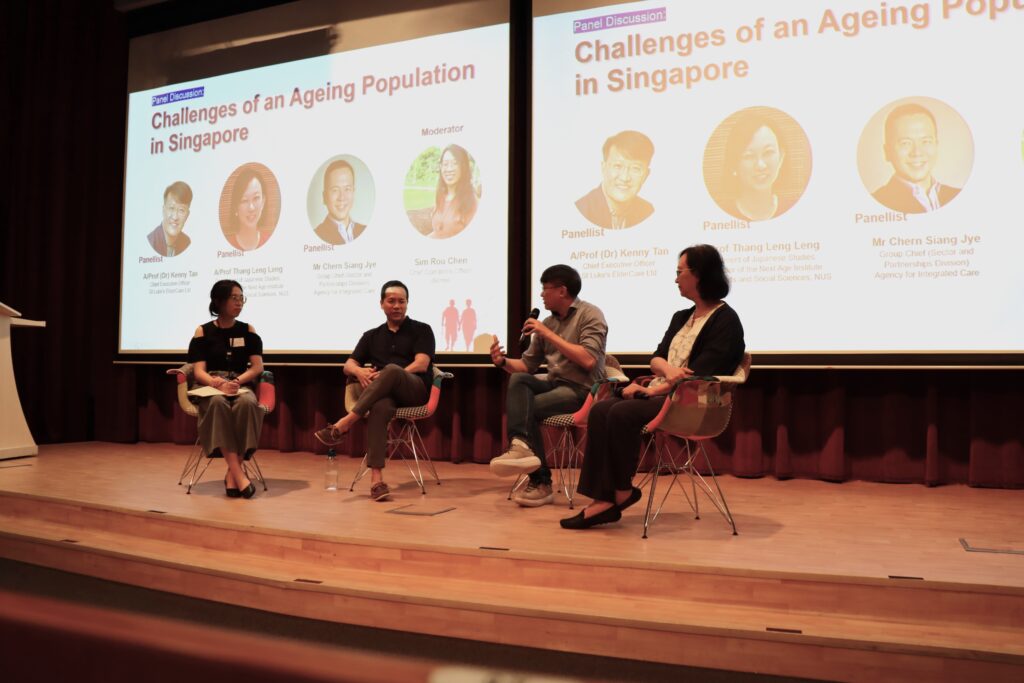
How can the whole of society be mobilised to tackle the challenges of an ageing population in Singapore? As the Singapore population demographic greys progressively, this question was at the centre of discussion at the annual symposium of the NUS Chua Thian Poh Community Leadership Centre (CTPCLC).
Held on 30 September at NUS University Town, the symposium gathered more than 120 attendees consisting of NUS students, staff and alumni, as well as stakeholders from the public and social sectors. Now in its 11th iteration, the in-person event saw changemakers, community leaders, and thought leaders discussing the issue of 'Challenges of an Ageing Population in Singapore', and how different organisations and individuals are doing their part to tackle this challenge.
The event was graced by Guest-of-Honour Mr Tan Kiat How, Senior Minister of State for Ministry of Communications and Information and for National Development, and Adviser to East Coast GRC Grassroots Organisations.
Noting that Singapore is home to some of the world’s longest living persons, Mr Tan highlighted the importance of closing the gap between life span and health span, adding that this is where everyone has a role. Mr Tan also reflected on his experiences of encountering seniors forming social networks and actively volunteering in the community, to overcome social isolation.
Expressing his delight that the CTPCLC curriculum has offered undergraduates a path to support these initiatives with their research and involvement in the community, Mr Tan expressed that this would bode well for our community, as it takes an all-of-community approach to tackle the challenges of an ageing society like Singapore.
Holistic Approaches to AgeingAttendees at the symposium delved into a thought-provoking hour-long panel discussion elaborating on efforts and plans to address the challenges of the ageing population in Singapore. Moderated by CTPCLC alumna Ms Sim Rou Chen, Chief Operating Officer of WeHiro, panellists Mr Chern Siang Jye, Group Chief, Sector and Partnerships Division, Agency for Integrated Care; Associate Professor (Dr) Kenny Tan, Chief Executive Officer of St Luke's ElderCare Ltd; and Associate Professor Thang Leng Leng from the NUS Japanese Studies and Co-Director of the Next Age Institute, NUS Faculty of Arts and Social Sciences), exchanged stories, insights, and recommendations on effectively addressing the challenges posed by an ageing population.
The discussion explored topics such as healthcare management, social support systems, and policy interventions, all designed to address key challenges faced by the elderly in our community. Assoc Prof (Dr) Kenny Tan captured the challenges succinctly in three words: helplessness, loneliness and boredom.
These thoughts were also echoed by Assoc Prof Thang Leng Leng, who spoke about loneliness and social isolation, even for elderly parents who may be living with their children, when conversations within the home could be limited to routine check-ins such as “Have you taken your medicine today?”
The discussion underscored the real need for elderly among the community to be actively engaged – and that the community can play a part through raising awareness of the former’s needs and supporting befrienders’ programmes, in ensuring that seniors can age amidst a strong social support network.
From Engagement to EffortSince its establishment in 2011, CTPCLC has continually challenged and empowered its students to explore the many facets of Singapore society and consider solutions to alleviate and address societal issues. CTPCLC students’ thoughtful analyses and implementations were showcased at the symposium through presentations, demonstrations and poster displays.

CTPCLC students and project partners Charmaine Song (Business, Year 4) and Tong Hui Yi (Social Work and Sociology, Year 4) took to the stage to elaborate on a year-long project they had embarked on in partnership with Thye Hua Kwan Moral Charities Limited.
During their project, which was titled ‘Reimagining the Active Ageing Centres (AACs) of Thye Hua Kwan’, Charmaine and Hui Yi interacted with seniors who were service users at Active Ageing Centres (AACs) in Ang Mo Kio. From the conversations, they gathered the seniors’ various opinions and hopes on how the AAC could further develop to serve Singapore’s ageing population.
Adopting a mixed methods approach that incorporated the use of observation work, semi-structured interviews, focus group discussions and online surveys, their study revealed that future AACs can play a vital role in serving as important sources of social, cultural and spatial capital for seniors: AACs provide social capital through important networks and social support among seniors; cultural capital by being a hub for acquiring new knowledge that will empower them; and spatial capital by being a potential ‘home away from home’, enabling seniors’ access to additional spaces of emotional and physical comfort.
The study also put forth key recommendations that highlighted how AACs can be further developed as a space for intergenerational communal socialisation, while serving as a rallying site for proactive seniors to engage in community-related volunteerism.

Beyond talks and discussions, attendees at the symposium also engaged with passionate CTPCLC alumni and students at a series of live demonstrations and poster displays detailing their various engagements with the community.
Amongst these was a demonstration by CTPCLC alumnus Mr Willoughby Niki Lee (College of Design and Engineering, Class of 2022) of his brainchild BoomBox - AI-based gamified activities innovated to help in seniors’ wellbeing, inspired by his love for the community and his engineering knowledge.

Ms Sim Rou Chen (Social Work and Psychology '22) also led an ageing simulation demonstration which allowed participants to experience what ageing could feel like, through the use of props and equipment like goggles, walking sticks and sandbags which hinder physical movement. Through this, participants developed a greater understanding and empathy of the physical, and thereafter, social and emotional, encounters and challenges that seniors could be facing in their daily lives.
Celebrating Tomorrow’s ChangemakersA ceremony was also held at the symposium to honour the achievements of CTPCLC’s Class of 2023, acknowledging their completion of the community development and leadership programme in NUS and celebrating their achievements in driving positive change within communities in Singapore.

“The Symposium has come at an opportune time as I begin my career in the community care sector,” said CTPCLC alumni Mr Kho Yong Xiang (Communications and New Media '23).
“CPTCLC has once again proven to be an invaluable platform for addressing the priorities of today. I heard peers discussing their ground-up research as well as connecting with partners and experts in the eldercare space. I am thankful for my time at the Centre and hope for more students to embrace the opportunities offered by CTPCLC,“ he added.
Beyond academics, the annual CTPCLC symposium provides a platform for like-minded individuals to share knowledge, foster collaboration, and inspire future leaders to address pressing community issues, making a difference to those around them. From their first tentative steps of taking courses at CTPCLC, the symposium also documents how students have been empowered to develop themselves further into passionate community builders and future leaders.
“In addition to the good work our alumni and students are doing in the community, it is really heartening that they continue to engage the Centre at an event like this one,” said Associate Professor Chng Huang Hoon, Director of CTPCLC. “I feel very proud to have been a part of their wonderful journey."
This story by NUS Chua Thian Poh Community Leadership Centre first appeared in NUSNews on 16 October 2023.
The danger of politics in a post-truth world
An op-ed by Associate Professor Tan Ern Ser (NUS Sociology and Anthropology) entitled ‘The danger of politics in a post-truth world’ (September 2023) was recently featured in The Straits Times. The article comments on the increasingly complicated nature of politics in the face of social media; and the need for Singapore to unify to out-maneuver such threats. A/P Tan discusses how social divisions endanger societal stability. This is seen from the increasing political polarization and the challenges of maintaining civil discourse among different interest groups. The predominant approach of zero-sum games in politics, combined with the advent and influence of social media, makes consensus-building difficult in a post-truth era. Disinformation is rife, and the public's general unwillingness towards fact-checking creates further conflicts. A/P Tan points out how the recent shift in American politics from a democratic model to a more authoritarian trend highlights the importance of unity, especially in Asian societies like Singapore. Asia faces concerning social divides, from age and gender to race and religion; most notably an emerging tension between younger and older generations. The region exhibits such tensions, with mixed success at mitigation; Indonesia has successfully managed religious extremism under President Widodo, whereas Malaysia continues to experience increasingly polarized racial and religious divides. Read the article here: https://www.straitstimes.com/world/the-danger-of-politics-in-a-post-truth-world

The Danger of Politics in a Post-truth World
IN BRIEF | 5 min read
- Op-Ed in The Straits Times by Associate Professor Tan Ern Ser, from NUS Sociology and Anthropology; Academic Convener, Singapore Studies; and Chair of the Social Science and Policy Cluster, at the Faculty of Arts and Social Sciences at NUS; and Academic Adviser at the Social Lab, Institute of Policy Studies, Lee Kuan Yew School of Public Policy at NUS.
Click through image below to read this piece.
This article first appeared in The Straits Times and NUSNews on 21 September 2023.
The Cleansed Hearts Initiative Honours Cleaning Workers
IN BRIEF | 3 min read
- About FASS undergraduate Nabil Zulkefly (NUS Social Work and NUS Sociology and Anthropology) and his initiative devoted to lifting the spirits of NUS campus cleaners, "The Cleansed Hearts".
Click through image below to read this piece.
This article first appeared in Suria News Online and on NUSNews on 3 August 2023.
Determined to Help Bridge the Cultural Gap between South Asia and Singapore
IN BRIEF | 7 min read
- Recipient of the Syed Ahmad Khan AMU Memorial Prize Ms Zara Karimi (NUS College and NUS Sociology and Anthropology ’23) and her commitment to studying issues facing South Asian migrants.
.
Click through image below to read this piece.
This article first appeared in Berita Harian and on NUSNews on 17 July 2023.
Having Supported my Family through my Career in ICA, I finally Entered NUS at Age 26
IN BRIEF | 10 min read
- A column in TODAY (18 June 2023) by Goh Xin Yi, a management executive at the Immigration and Checkpoints Authority of Singapore and undergraduate from NUS Sociology and Anthropology.
Click through image below to read this piece.
This article first appeared in TODAY and NUSNews on 18 June 2023.
Is Population Change as Serious a Threat as Climate Change?
IN BRIEF | 5 min read
- At the recently held inaugural Population of Singapore Annual Meeting conference, public and private sector leaders as well as researchers discussed major issues such as Singapore’s ageing population, the impact of the COVID-19 pandemic on the Singapore population, and strategies for narrowing the disparity in learning outcomes between children from higher- and lower-income families.

Why has the issue of population change been superseded by climate change, which has become a “household word for perhaps the biggest existential crisis of our time”, asked Mr Ho Kwon Ping.
Posing this question at the inaugural conference of the Population Association of Singapore organised by the National University of Singapore’s (NUS) Centre for Family and Population Research (CFPR) and PAS, he believes that population issues should be accorded the same high priority as national defence and climate change.
Calling for a “mental paradigm shift” in his keynote address, Mr Ho, the Institute of Policy Studies’ first S R Nathan Fellow, noted that population change “remains a largely technical term” that does not reflect the intensity of the problem.
Instead, it should be “a holistic concept describing a host of complex, integrated and even global trends that also may potentially threaten, if not the existence of humanity, at least its sustainability,” added Mr Ho, who is also the Founder and Executive Chairman of hospitality chain Banyan Tree Holdings.
The importance of population issues was also raised by Professor Wei-Jun Jean Yeung, Provost-Chair Professor at the Department of Sociology and Anthropology at the NUS Faculty of Arts and Social Sciences and President of PAS, at the opening event of the two-day population conference on 11 May.
Launched in 2021, the non-profit PAS, whose set up was driven largely by members of the CFPR academe, aims to promote policy-relevant research in the area. The conference was a milestone in this regard, drawing 150 scholars and participants from about a dozen countries to shape perspectives and policymaking on population matters.
“Currently, maintaining sustainable population development is a high national priority for many countries, including Singapore,” noted Prof Yeung, who is also founding director of CFPR.

Building for the Future
Associate Professor Bussarawan Teerawichitchainan, Co-Director of CFPR, likewise emphasised the urgency of demographic issues.
“As we gather here today, we are reminded of the critical importance of population research in shaping policy, improving social welfare, and enhancing our understanding of the complex challenges facing our society and our region,” she said in her welcome speech.
Guest-of-Honour, Ms Indranee Rajah, who oversees Singapore’s National Population and Talent Division as Minister in the Prime Minister’s Office, outlined in her address the challenges of declining fertility rates, an ageing demographic, and the goal of having a “happy and fulfilled” population.
Strategies to achieve this range from caregiving support to flexible work arrangements, she noted, in line with the conference’s theme of “Building Singapore’s Population Towards a Better Future”.
The theme “captures the very relevant issues of how to grow our population to ensure future generations of Singaporeans, how to ensure the wellbeing of the current population, and how to ensure that tomorrow is better than today for both generations”, she added.
The issues raised also struck a chord with Dr Liu Houlian, Associate Researcher from the China Center for Population and Development Research. “Low fertility and ageing are common trends in population development faced by countries around the world, and building a better population future is something we need to work together on,” he said.
COVID’s Multidimensional Impact on the Singapore Population
The trends across various demographic groups were further explored during the conference’s 23 breakout sessions, where more than 100 research papers were presented across two days. Among the sessions on Singapore was one on the impact of COVID-19 on the city-state, which saw academics such as Ms Melisa Tan share their findings.
Inclusivity and equity in the government’s pandemic response was crucial as it affected everyone differently, said Ms Tan, Research Associate at the NUS Saw Swee Hock School of Public Health, who presented her paper, “The Role of Contextual Factors, Actors, and Governance in the Policy Responses to COVID-19 in Singapore”.
“It’s not just about the numbers,” she said of the costs and benefits of policies. “Policymakers should incorporate softer components to ensure inclusive national responses.” This includes principles such as equity, trust, and leadership as the pandemic has demanded greater attention on governance and multisectoral action like working with the community.
Such cooperation across stakeholders is critical to ensure all groups are cared for. In her paper “COVID-19 Learning Gap Effect on Young Children in Singapore”, Prof Yeung found that the disparity in learning outcomes between children from higher- and lower-income families widened during the pandemic.
This led the participants to reflect on what actions should be taken to address this gap, whether they were public subsidies or flexible work options that could alleviate emotional stress at home.
These discussions during the conference were examples of how academia met practice, a goal of the conference stated by Prof Yeung. It also allowed participants such as Professor Aris Ananta from the Faculty of Economics and Business at Universitas Indonesia to reconnect with peers and advance his domain knowledge.
“The meeting was an excellent platform for sharing demographic research on Singapore and beyond. I had the opportunity to connect with both familiar faces and new colleagues,” said Prof Ananta, who is also visiting Professor at the Centre for Advanced Research, Universiti Brunei Darussalam.
“I learnt a lot from all the presentations and informal discussions outside the rooms. It was wonderful to see scholars from various generations, ranging from beginners to established scholars.”
This story first appeared in NUSnews on 26 May 2023.
Anthropology and the Future
IN BRIEF | 3 min read
- Courses in anthropology have been offered at the Department of Sociology and Anthropology since 1965 but now, students can study for a degree in Anthropology at the NUS Faculty of the Arts and Social Sciences. This new degree comes on the back of nearly 60 years of anthropological research and teaching experience.

With growing interest in the study and understanding of the diversity of human experience and cultures, NUS converted its well-established Anthropology courses into a full-fledged major in August 2022.
Courses in anthropology have been offered at the Department of Sociology and Anthropology since 1965 but now, students can study for a degree in Anthropology at the NUS Faculty of the Arts and Social Sciences. This new degree comes on the back of nearly 60 years of anthropological research and teaching experience.
As part as an expanded curriculum to meet the growing interest amongst undergraduates to specialise in anthropology, new anthropology courses such as those on anthropological theories and methods, as well as the anthropologies of technology, media, finance, and even happiness, are also being added.
Anthropology students at NUS will now also have far more opportunities to practise fieldwork ethnography. This highly valued skillset is anthropology’s hallmark approach to learning about the world through sustained and intimate social interactions on the ground, equipping them with analytical and methodological skills to better understand contemporary social issues and problems faced around the world today.
Understanding of human culture and behaviour an important key to solving increasingly complex problems
Associate Professor Kelvin Low, Head of the Department of Sociology and Anthropology at NUS said that the programme will continue to evolve to address the latest developments in the field and emerging trends and areas of study.
With most of the challenges facing societies and economies being increasingly complex and interconnected, Assoc Prof Low said that anthropology has a lot to offer in helping to solve these problems, given its long history of learning from societies and cultures the world over.
“What makes anthropology graduates so flexible is not just their disciplinary knowledge, but also how they have been trained to develop context-rich understanding of the problems at hand - grasping the world from the perspectives of others, being culturally aware and thinking holistically,” he said. “Even businesses are also increasingly tapping on anthropology specialists to tackle the emergence of disruptive technologies to optimise organisational culture, design user-friendly products and interfaces, and even study consumer behaviour in foreign markets.”
Today, anthropology graduates are finding their footing and making their mark in a wide range of industries beyond museums and the heritage industry, into design and consumer research, journalism and media, community work, public administration, and even business consultancy.
Citing climate change as an example of a global challenge that is interconnected and multifaceted, Dr Canay Ozden-Schilling, Assistant Professor at the Department of Sociology and Anthropology says, “An anthropology student can address how different groups comprehend it and experience it, from (the) affected communities to policy makers to scientists, and then work towards bridging those perspectives. When you understand the diversity of the human experience, you can come up with solutions that are inclusive and sustainable.”
Senior Lecturer Dr Ivan Kwek who has been teaching anthropology and sociology for over a decade said that students often express surprise at how liberating anthropology can be. “As a science, it is the most humanistic. As humanism, it is the most scientific. In anthropology, we strive to understand the world scientifically – but it is not science as usual. For in anthropology, people matter – and this includes their relationships, emotions, biographies, stories and hopes. What distinguishes anthropology is not just what we learn but also how."
This story first appeared on NUSnews on 28 April 2023.
P1 Registration: Where Alumni Privilege and Distance Rules can Accelerate Inequality
IN BRIEF | 10 min read
- The Primary 1 registration exercise is currently driven by mechanisms that potentially reinforce pre-existing inequalities in society, according to Associate Professor Vincent Chua (NUS Sociology and Anthropology), Cameron Kheng (Department of Sociology, Nanyang Technological University) and Dr Eik Leong Swee (Department of Economics, University of Melbourne).
Click through image below to read this piece.
This article first appeared in The Straits Times and NUSNews on 22 April 2023.
NUS Open House: More than 7.7M Visitors Drawn to Action-Packed Showcase over 10 Days
IN BRIEF | 25 min read
- NUS Open House 2023 saw a strong showing by visitors eager to find out about the University’s academic programmes, as it returned in from 25 February to 6 March. Some 7.71 million visitors attended the physical and online showcase which involved 3,071 faculty and staff, students and alumni.
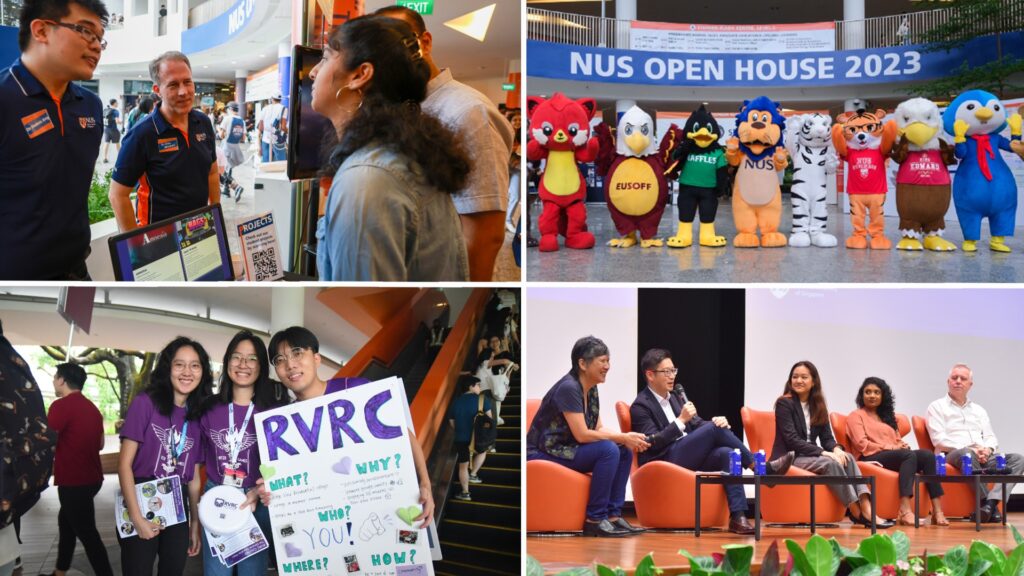
NUS Open House 2023 saw a strong showing by visitors eager to find out about the University’s academic programmes, as it returned from 25 February to 6 March. Some 7.71 million visitors attended the physical and online showcase which involved 3,071 faculty and staff, students and alumni.
Kicking off the 10 action-packed days were the informative virtual talks, webinars, and social media sessions. The on-campus event on 4 March saw packed crowds at the programme booths, talks, special classes, campus tours, student life performances and residential venues despite the heavy downpour. Prospective students gained valuable insights from faculty members, explored the University’s extensive global opportunities, as well as its diverse entrepreneurship platforms and lifelong learning courses, giving them a comprehensive overview of what NUS has to offer.
“I really enjoyed meeting the professors and students who are from the courses I'm interested in as I gained many insights from them on life in NUS and the various possibilities that are open for exploration,” said prospective student Karthika Warrier, an alumna from Raffles Institution who is considering applying to NUS Computing or the College of Humanities and Sciences (CHS).
Jasmine Chiam, an alumna from Nanyang Junior College (NYJC) who is interested in applying to CHS and NUS College, agreed. “The programme was well-run despite the fact that it was raining,” she said. “I felt that it was well-curated for students with different interests.”
A draw for many prospective students were CHS, the newly launched NUS College, and the College of Design and Engineering (CDE) – the University’s recent interdisciplinary pathways aimed at meeting the evolving demands of the workforce.
Addressing Shared Challenges with the Humanities and Sciences
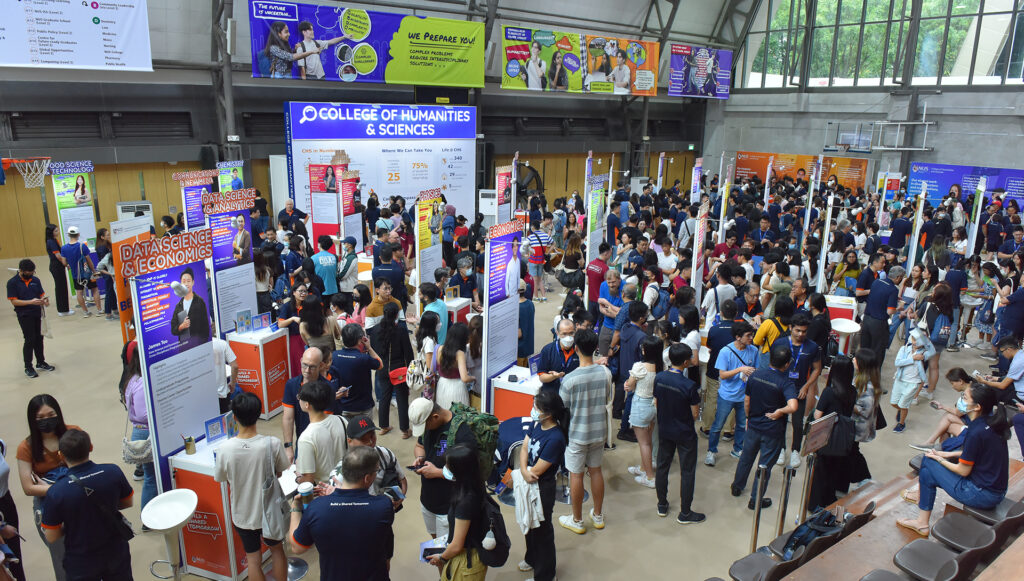
CHS, which provides an enhanced undergraduate experience for students of the Faculty of Science (FOS) and the Faculty of Arts and Social Sciences to pursue breadth and depth across academic disciplines, showcased its Common Curriculum throughout the Open House.
Currently accepting its third intake, it held talks on hot topics such as sustainability, food science and technology, and mental health to demonstrate how students can apply various perspectives to address complex real-world issues.
The panel entitled “Why Sustainability and Climate Change Matter” saw speakers from the Geography, Japanese Studies, Anthropology and English, Linguistics and Theatre Studies departments weighing in on the topic from their respective disciplines. Another session by the Department of Food Science and Technology explained how its programme applies principles from chemistry, biology, engineering and nutrition to address issues such as food safety and security, as well as the careers its graduates can pursue.

In the same vein, the panel “What Mental Wellness and Health Means in the 21st Century” saw speakers from the Social Work, Sociology and Psychology departments discuss perceptions of mental health in society. Dr Lee Jungup, an Assistant Professor in Social Work, pointed out the close relationship between social work and psychology. “Many of our Social Work students consider a double major with Psychology,” she said, noting that social work emphasises the practical while psychology is more theoretical and clinical in nature.
Jasmine, the NYJC alumna, said the various informative talks reaffirmed her decision to apply to NUS. “The NUS College tour as well as the CHS Common Curriculum sharing were particularly informative. They made the programmes seem quite appealing and I am looking forward to applying for both,” she said.
For some like Christian Chua, an alumnus from the NUS High School of Math and Science, attending the Open House talks helped clarify the career options available for the different programmes.
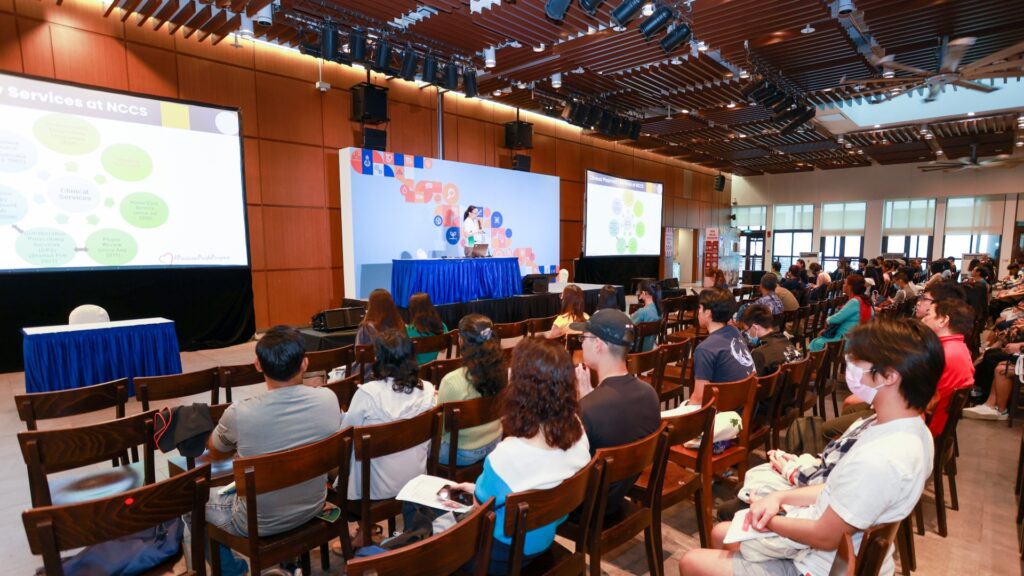
Christian, who is currently considering the Medicine, Pharmacy, and Pharmaceutical Science programmes, attended the Pharmacy talk and booth, where faculty members of different specialisations touched on the various career pathways and the collaborative practices of the discipline.
“It was useful that they discussed the different careers that Pharmacy graduates had gone into so I knew a degree in Pharmacy wouldn't just limit me to community or hospital pharmacy but also to the R&D, drug approval side, or the business side as well,” he said.
Shaping the Future of Design and Engineering
Meanwhile, there was action aplenty over at both the online and in-person Open House by CDE, which is accepting its second intake. Officially launched in November 2021, CDE was a merger of the Faculty of Engineering and the School of Design and Environment, ramping up the distinctive interdisciplinary experience at NUS.
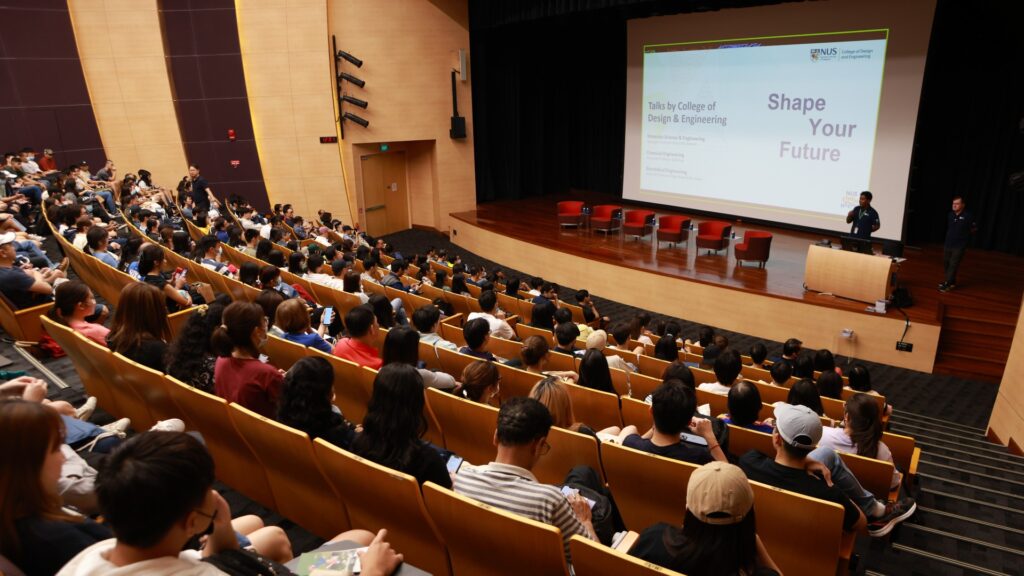
From the Common Curriculum and the multidisciplinary education model, to the Student Exchange Programme and future career prospects, CDE faculty and students shared their insights on a plethora of topics with prospective students.
The talks, such as the one on Biomedical Engineering, Chemical Engineering and Materials Science & Engineering, also provided valuable information. Prospective students learnt how undergraduates are exposed to a range of interdisciplinary topics with global-scale applications in class, and how NUS engineers are taking on the world’s biggest challenges, such as clean energy.
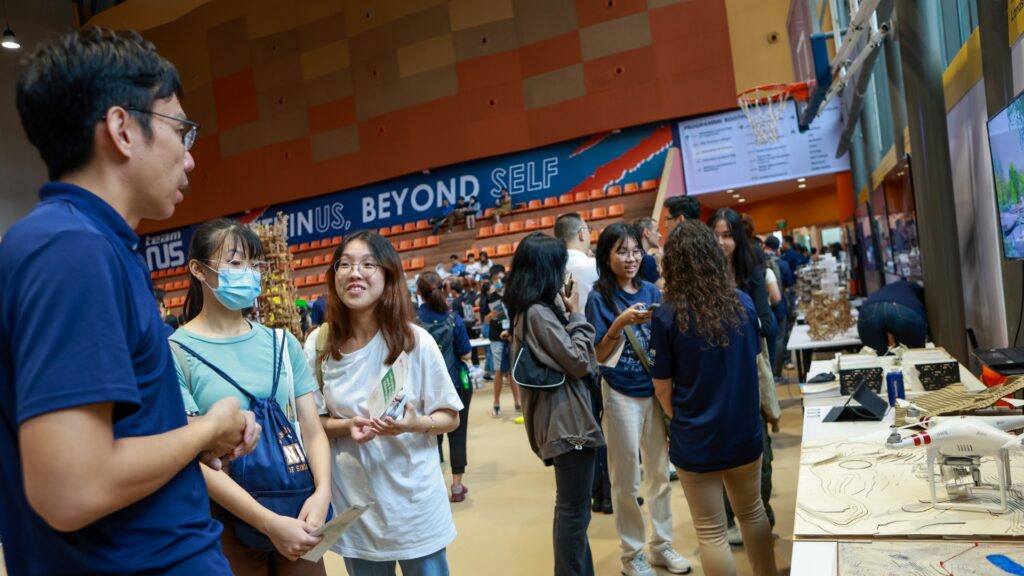
The talk on Architecture, Industrial Design and Landscape Architecture also saw a large turn-out. Discussing the breadth and depth of CDE’s curriculum, it touched on how students will be equipped to face the 21st-century challenges through their education in CDE.
Kaisyn, who is graduating from Nanyang Polytechnic this year, said, “I appreciated that they covered the basic skills and activities done throughout the curriculum. It allowed me to confirm that the Industrial Design course is relevant to my study and career plan.”
The in-person Ask-Me-Anything sessions with student panels also allowed participants to get their burning questions answered.
Tee Jia Hong, a graduate of Anglo-Chinese Junior College who intends to apply to Industrial and Systems Engineering (ISE) and attended the student sharing, said, “By listening to the experience from the ISE senior, I am able to get the hang of the academic and co-curricular prospect of being an ISE student.”
Over at CDE’s Rise of the Robots campus tour, participants were given a look at the Advanced Robotics Centre, which displayed projects such as an autonomous wheelchair, an artificial robotic arm, and a haptic feedback machine.
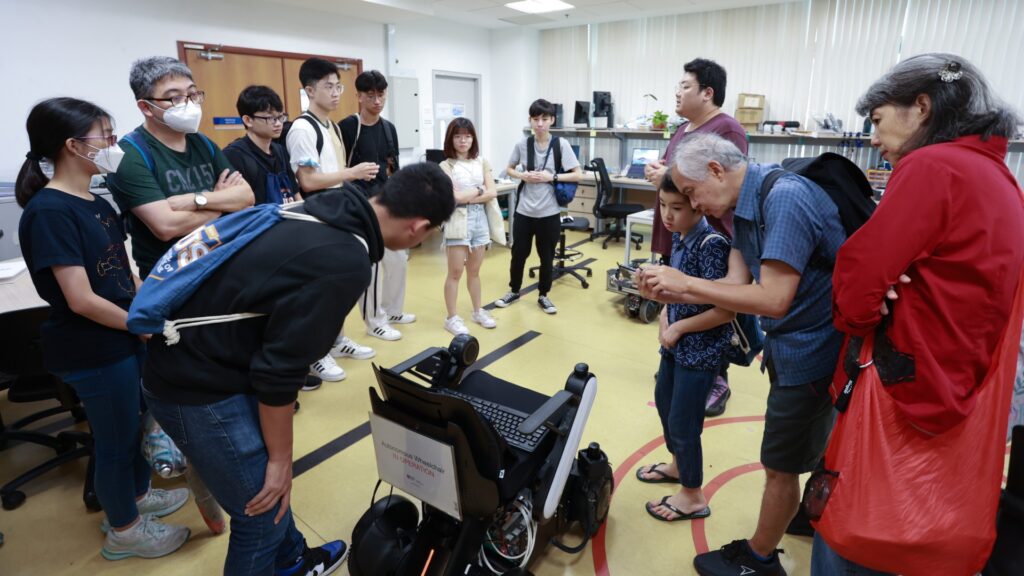
Robert Lim from Singapore Polytechnic, who attended the tour, said, “It was a memorable experience . . . I was able to learn more about what the courses have to offer and what undergrad students have accomplished in NUS.”
Exploring experiential learning
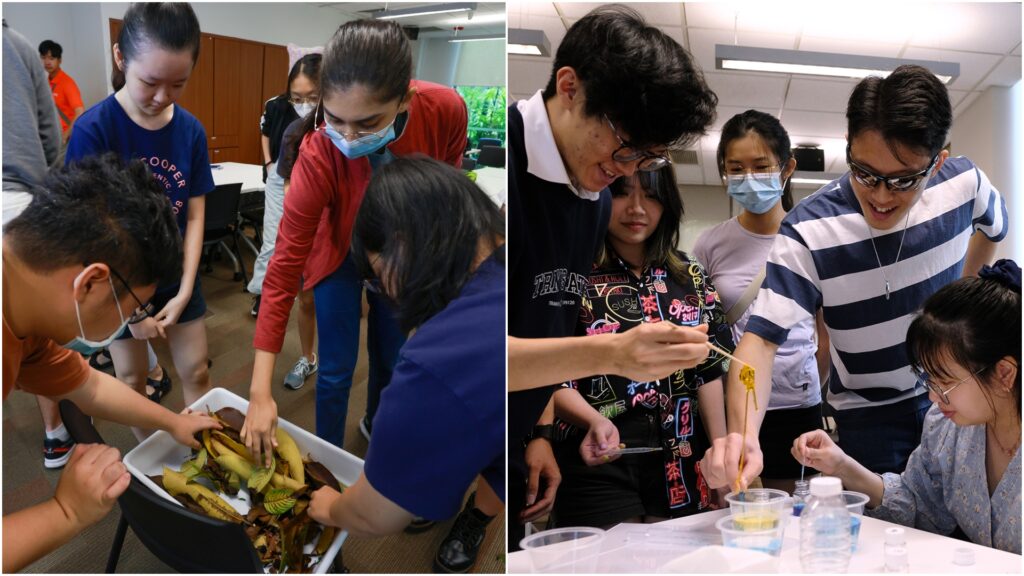
NUS College, Singapore’s first honours college, offered a glimpse of its flagship experiential learning programmes during its online and physical showcase. Faculty members highlighted the Impact Experience programme, where students develop solutions to real-world issues with community partners, and the Global Experience programme, which immerses them in global cities for specially curated courses and field visits based on specific themes.
The college, which is accepting its second intake, also held special classes for prospective students to get a feel of its small-group seminar-style lessons. Dr Ang Yuchen’s special class introduced his field course Biodiversity and Natural History in Singapore, which combines scientific concepts with the visual and language arts and environmental philosophy.
“I found the sample lessons useful in helping me not just get a sense of how lessons are conducted over at NUS College, but also how my potential Profs are like as teachers and facilitators,” said Eugene Teo, an alumnus of Raffles Institution, explaining that small, collaborative discussions was better suited to his learning style. Attending the Open House “also gave me a better understanding of the people I will be interacting with and the environment in which I would be studying in upon entering university life”, he added.
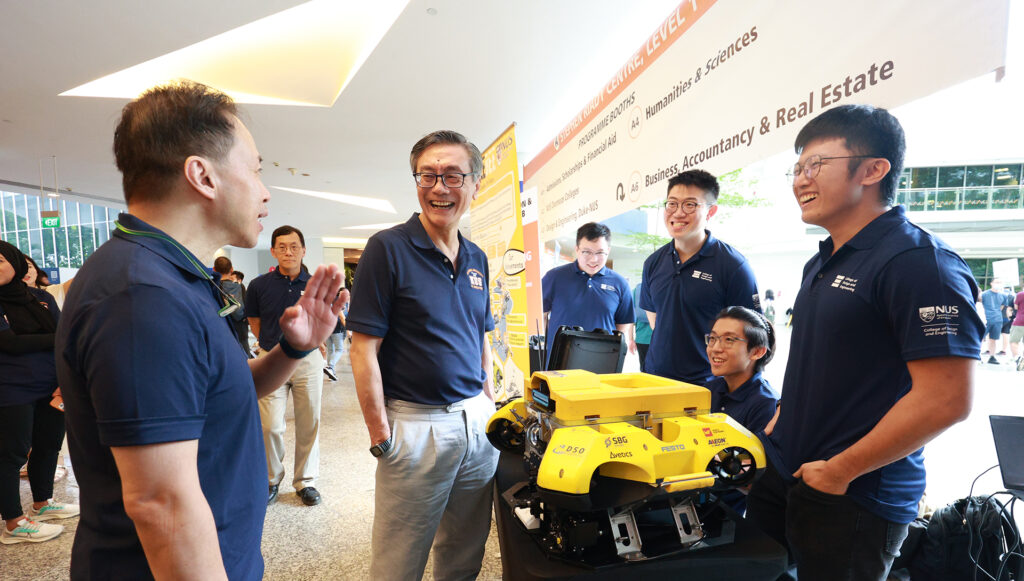
Interactivity was a prominent feature of the Open House. NUS Nursing offered visitors a chance to try basic wound treatment and resuscitation, while NUS Law held moot demonstrations at its Bukit Timah Campus.
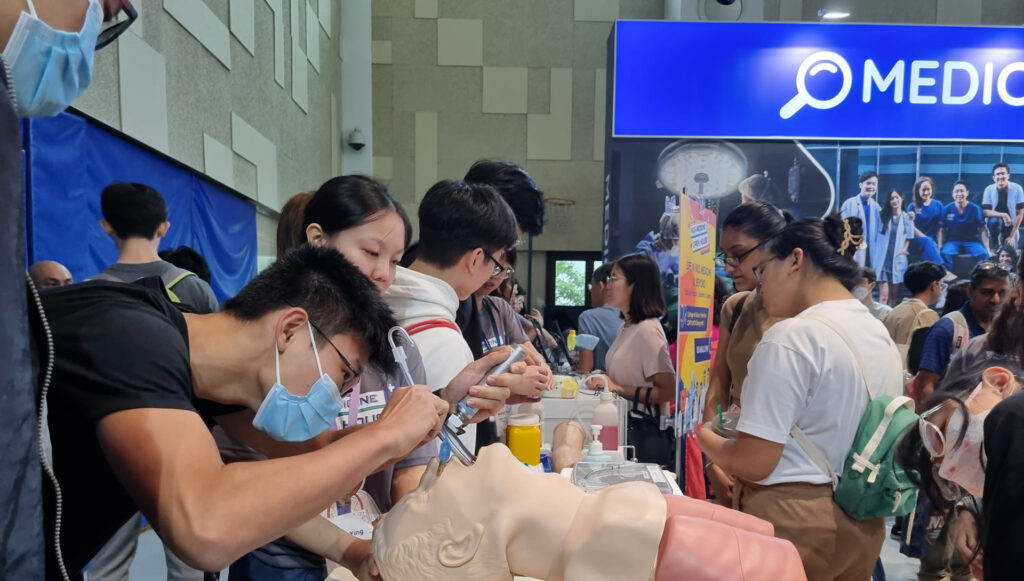 |
 |
Aqirah Bte Azam, who will be graduating from Temasek Polytechnic in May, had the chance to see the Nursing students in action and attended a talk by its alumni. “Hearing their experiences in NUS and their careers have given me the courage to pursue my aspirations in nursing”, she said.
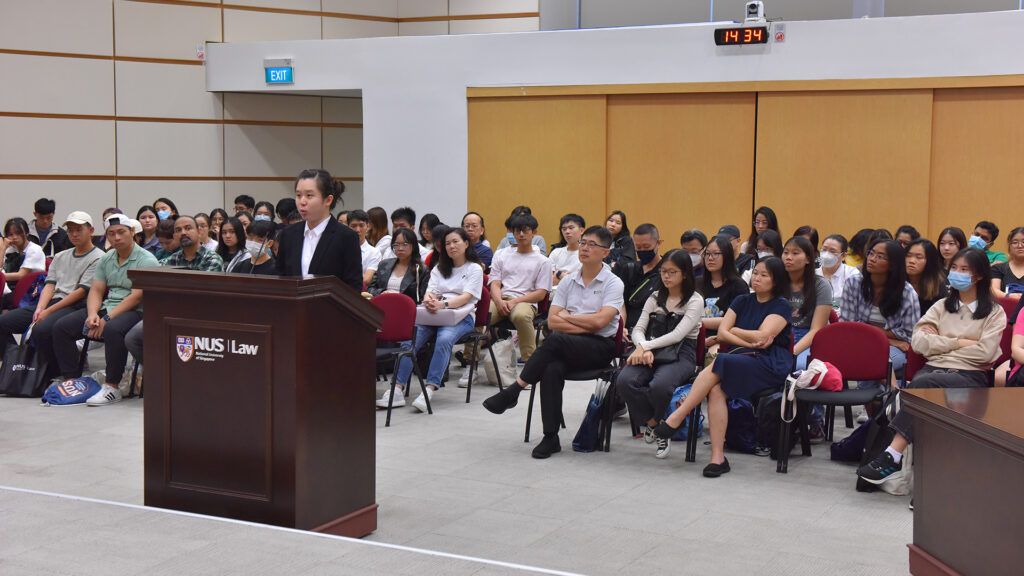
Smorgasbord of Student Life
Visitors also got a taste of the vibrant NUS student life on display. Student clubs and societies, as well as the Hall and Residential College (RC) interest groups, put their best foot forward at the Student Village.

Visitors were wowed by the striking moves of NUS Wushu, the energetic cheerleading displays of King Edward VII Hall’s KE Titans, and the snazzy K-pop dance moves of the Korean Cultural Interest Group. They were also treated to renditions of catchy tunes from Mandopop group NUS CAC Voices, acapella group NUS Resonance, Raffles Hall rock and jazz band RHockerfellas, and many more.
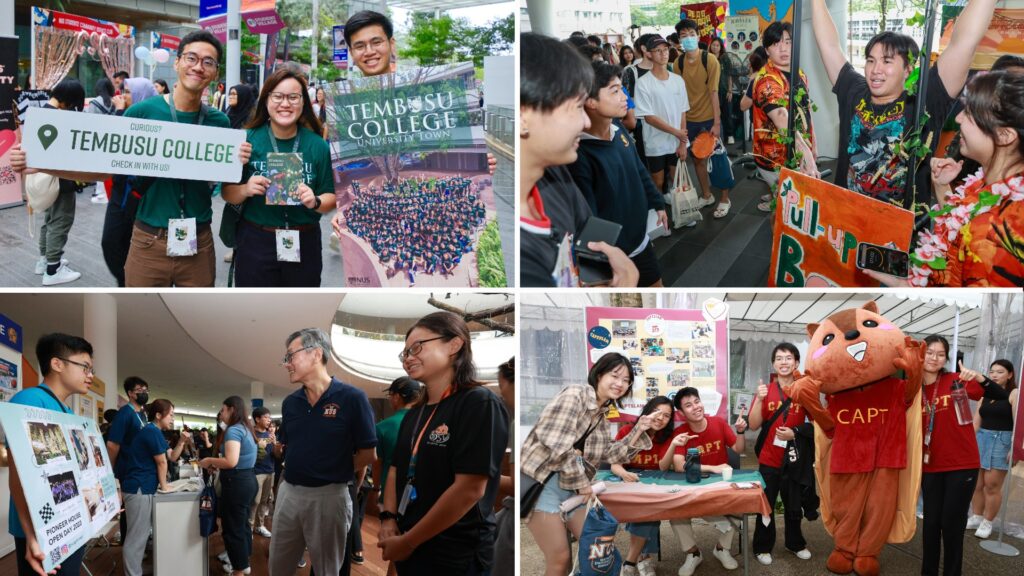
Representatives from the RCs, halls, and houses were present to offer prospective students the inside scoop on the on-campus experience. Complemented by A-Day-in-the-Life videos and 360° virtual tours, the booths, talks, and Ask-Me-Anything panels by student leaders gave participants a sense of the residential options at their fingertips.
“The House Life talk was the most enjoyable and informative event to me since the masters and students really explained to me what living in houses was like, while keeping us engaged through jokes and videos,” said Jia Hong.
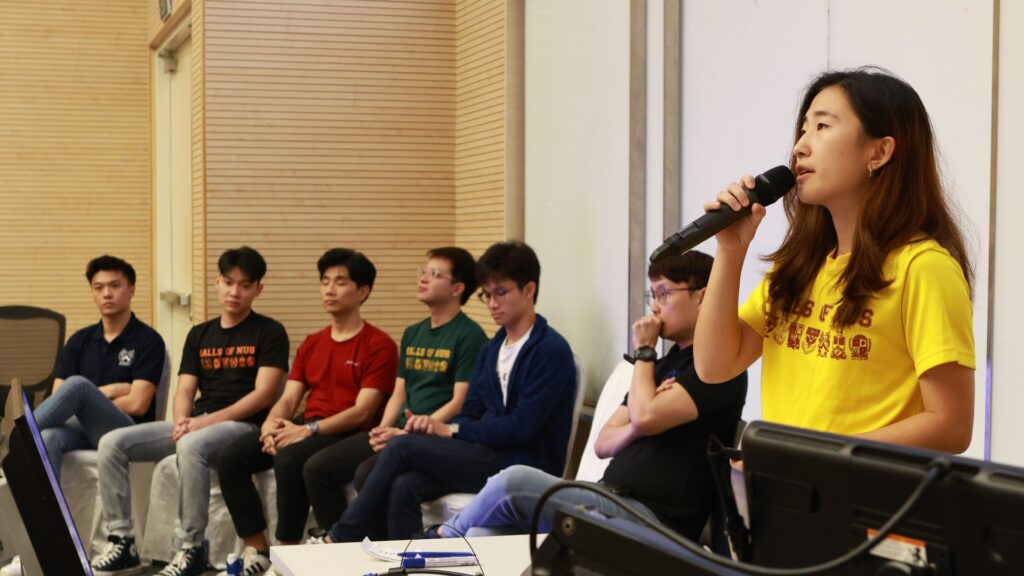
Charlotte Toh from Singapore Polytechnic, said the Halls talk helped her better understand the hall culture and admission criteria.
Guided in-person tours of the various halls and residences, such as King Edward VII Hall, Tembusu College, Ridge View Residential College, and Residential College 4, opened a window to the close-knit community of residential life.
Samuel Liu, who graduated from National Junior College, said, “The well-guided tours and booths set up for each RC that I visited gave me a good indication of which RC would be most suitable for my character and goals.”
This story first appeared on NUSnews on 9 March 2023.
FASS Inspiring Mentor 2022 Award Winners Announced

The NUS Faculty of Arts and Social Sciences is proud to announce the winners of the 2022 FASS Inspiring Mentor Awards.
Congratulations to:
- Assoc Prof Melvin Yap Ju-Min, Associate Professor, Department of Psychology
- Assoc Prof Robin Loon Seong Yun, Associate Professor, Department of English Language and Literature
- Dr Amazaki Osamu, Senior Lecturer, Centre for Language Studies
- Dr Natalie Pang Lee San, Senior Lecturer, Department of Communications and New Media
- Dr Kamalini Ramdas, Senior Lecturer, Department of Geography
What would it take to snap Singapore out of its obsession with grades?
Commentary in CNA by Friedel Wong
Click on image below to read this piece
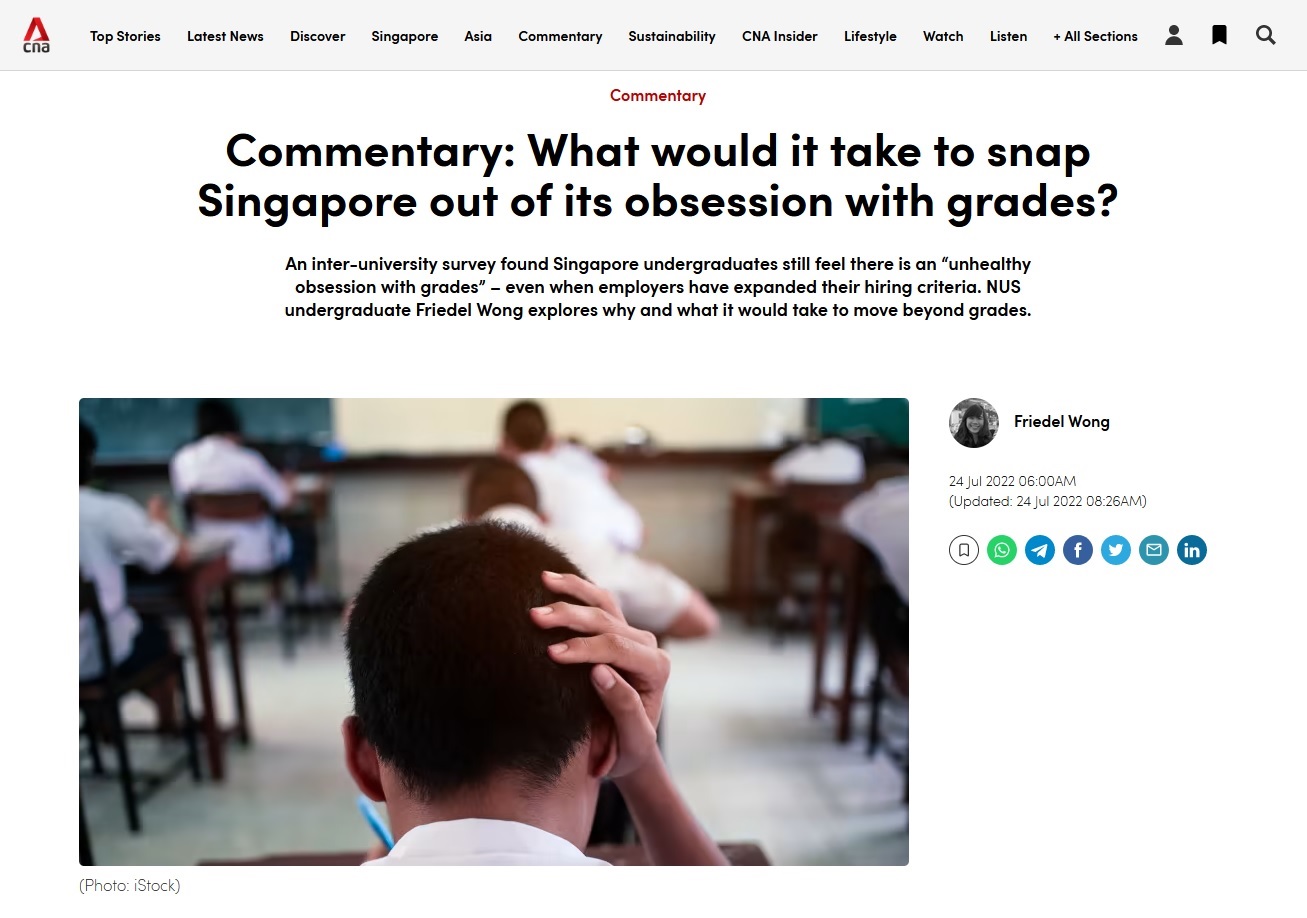
Paternity leave has doubled, but do fathers dare take more it?
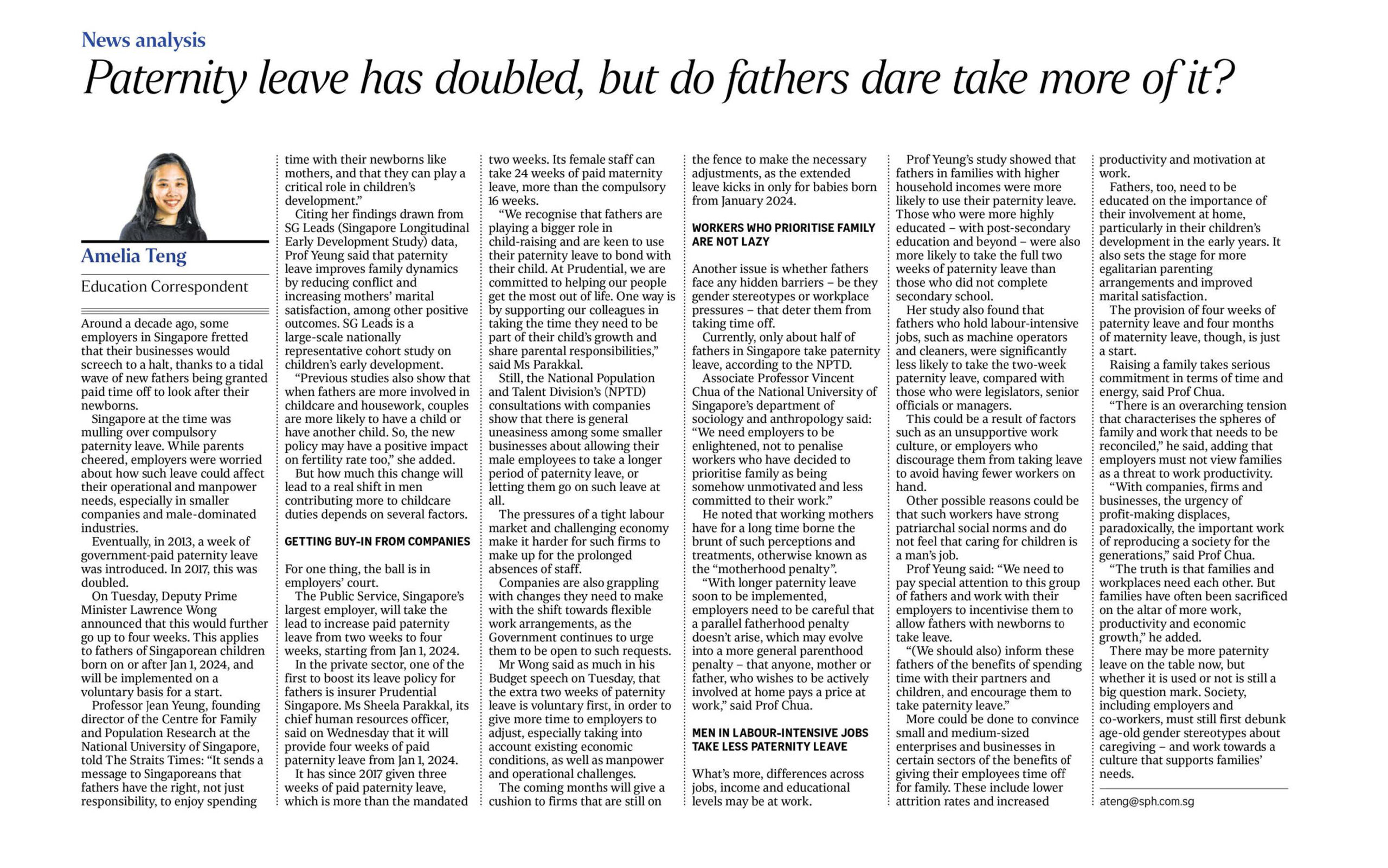
This article first appeared in The Straits Times and NUSNews on 17 February 2023.
The NUS Career Compass 2023
IN BRIEF | 5 min read
- Find out how the University has developed and broadened our curriculum to better prepare our graduates for the swiftly evolving workplace, and how interdisciplinary learning can help students solve complex issues in our society.

In collaboration with CNA938
How does NUS cultivate highly sought-after talents in the workforce of the future?
Find out how the University has developed and broadened our curriculum to better prepare our graduates for the swiftly evolving workplace, and how interdisciplinary learning can help students solve complex issues in our society.
This story first appeared on NUSnews on 23 February 2023.
Good Mental Health Can Improve Longevity: Local Study
IN BRIEF | 10 min read
- A study of the Chinese elderly in Singapore by NUS Medicine and FASS has found that good mental health can help enhance longevity in spite of poor physicial health.
Click through image below to read this piece.
This article first appeared in The Straits Times and NUSNews on 22 February 2023.
CHS at NUS Open House 2023: Download the FASS Essentials on 27 February 2023
IN BRIEF | 10 min read
- On 27 February, get the full download on the essentials of academic programmes, student life, career preparation, overseas opportunities and financial aid at CHS via Zoom in the ‘virtual’ edition of CHS@NUS Open House 2023.
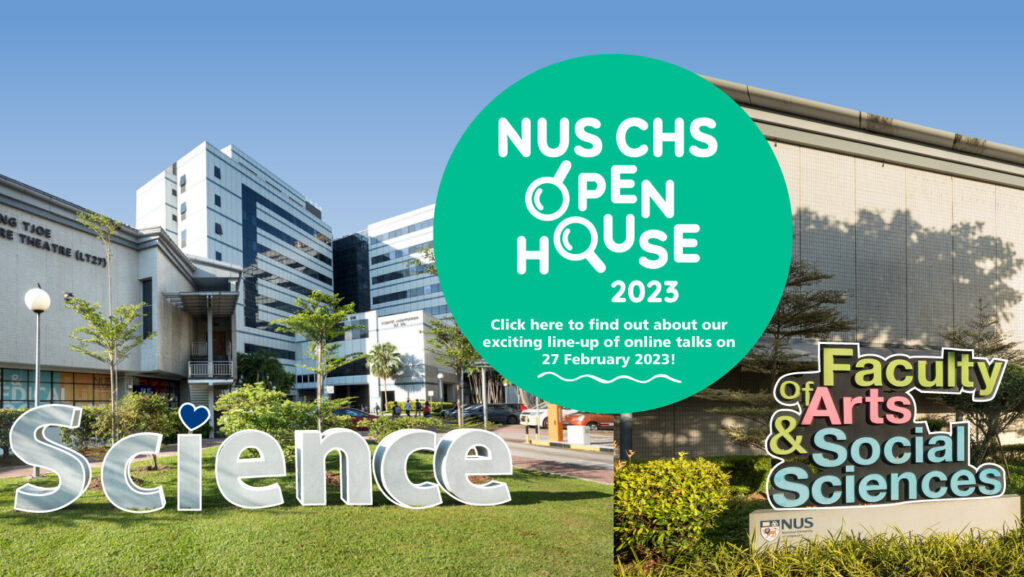
If you have not already marked your calendars for two dates with the NUS College of Humanities (CHS) during NUS Open House 2023, do it now!
On 27 February, get the full download on the essentials of academic programmes, student life, career preparation, overseas opportunities and financial aid at CHS via Zoom in the ‘virtual’ edition of CHS@NUS Open House 2023. Go to https://bit.ly/CHSatNUSOH2023-Virtual for the full 27 February programme.
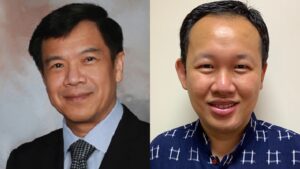
Then prepare to come on-campus on 4 March to engage with our award-winning faculty members, advisors and students to experience interdisciplinary education and explore your future vocation. Go to https://bit.ly/CHSatNUSOH2023-OnCampus for the full 4 March programme.
To help you plan your way through the lineup of FASS-specific talks and activities, read on for some of our highlights on 27 February 2023 that ought not to be missed.
Academics at the Forefront
The online edition of CHS@NUS Open House is meant to provide you with as comprehensive a briefing of what CHS, and its component Faculties of Arts and Social Sciences, and Science, have to offer students.
Academics is at the forefront and the day starts with a session devoted to the CHS Core Curriculum (9:00 – 11:00 am), a specially curated interdisciplinary programme that provides unprecedented freedom to choose the pursuit of breadth and depth across a broad spectrum of disciplines. This session will be led by Professor Sow Chorng Haur, Vice Dean (Outreach & Admissions), NUS Faculty of Science (FoS), and Dr Noorman Abdullah, Assistant Dean (External Relations & Student Life), FASS.

Associate Professor Luke O'Sullivan
The CHS Cross-Disciplinary Programmes
Three one-hour talks devoted to introducing Cross-Disciplinary Programmes (XDPs) offered by CHS will be running concurrently from 11:00 am. One programme FASS offers that embodies the concept of interdisciplinarity is the Philosophy, Politics, and Economics XDP, and the session for that will be led by Associate Professor Luke O’Sullivan (NUS Political Science) in discussion with fellow PPE Joint Programme Committee member, Dr Joel Chow (NUS Philosophy).
"This session is an opportunity to ask questions about the PPE-XDP. Philosophy, Politics, and Economics is a classic combination of disciplines that was first taught in Oxford and has spread globally because of its proven effectiveness. It brings together the ability to think about ideas in abstract and analytical terms, explore their practical implications for society, and model their costs and benefits in quantitative terms,” says Assoc Prof O’Sullivan. “PPE students can expect to develop a unique knowledge base and set of skills that leaves them suited for a wide range of careers in today's complex and fast-changing world."
Attendees are required to come prepared, because in addition to providing an overview of the PPE-XDP, Assoc Prof O’Sullivan expects audience engagement. Join the PPE-XDP session on 27 February at 11:00 am here.
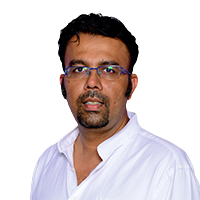
Associate Professor Rajesh Rai
Asian Studies @ CHS
NUS is recognised as a global centre of excellence in Asian Studies, where a multidisciplinary and comparative approach to the study of Asia and its regions is adopted. The session on programmes by the various Asian Studies departments at NUS (2:00 – 2:50 pm) will feature Associate Professor Rajesh Rai (NUS South Asian Studies), Dr Faizah Zakaria (NUS Malay Studies), Associate Professor Tham Shiao Wei (NUS Chinese Studies), Dr Clay Eaton (NUS Japanese Studies) and Dr Mohamed Effendy Abdul Hamid (NUS Southeast Asian Studies).
“You probably hear a lot about how Asia is the largest continent in the world, with the greatest diversity of cultures, philosophies, political thought and economic might, as well as scientific and technological advancement,” says Assoc Prof Rai, offering up a brief on the discussion he will be leading as moderator. “This session will take you through an interdisciplinary journey through history and current affairs to show you just how influential Asia has been a force for change, both positive and negative, on the world’s stage.”
Join this session by clicking here.

Humanities @ CHS
Learn more about the academic disciplines that focus on studying different aspects of the human condition from: Dr Donna Brunero (NUS History); Associate Professor John Whalen-Bridge, Associate Professor Graham Wolfe and Dr Leslie of NUS English, Linguistics and Theatre Studies; and Dr Zachary Barnett (NUS Philosophy).
“Do you: Ponder big questions regarding life, society, and culture? Wonder how language develops? Hold theatrical ambitions? Find yourself curious about connecting the past and present, the local and global?” session moderator Dr Brunero asks rhetorically. “If so, join us as we answer questions regarding our disciplines and share insights into how studying with us at NUS can broaden your horizons.”
To join Dr Brunero and her fellow speakers in this 3:00 - 3:50 pm session click here.

Social Sciences I: Same, Same but Different
This session features Dr Kamalini Ramdas (NUS Geography), Associate Professor Feng Qiushi (NUS Sociology and Anthropology), Dr Elaine Tan (NUS Political Science) and Dr Georgios Georgiou (NUS Economics), and will delve into their respective programmes as well as approaches toward forging a “collective identity”.
Session moderator Dr Kamalini explains. “This panel brings together social scientists from Economics, Geography, Political Science and Sociology to discuss what it takes to develop a collective identity as social scientists,” says Dr Kamalini, who will be working with her fellow speakers toward answering questions such as, “What are the benefits and challenges of a collective approach to learning and research? How might our students benefit from our commitment to engage?”
Click here to join the Social Sciences I (4:00 – 4:50 pm) session.

Social Sciences II: Understanding Social Complexity
Dr Adelyn Lim (NUS Sociology and Anthropology), Associate Professor Irene Ng (NUS Social Work), Dr Nina Powell (NUS Psychology) and Dr Alex Mitchell (NUS Communications and New Media) will be introducing the disciplines offered by their respective Departments, and show how they can each be applied to enable a deeper understanding of our world.
“The world we live in today can feel exciting but also downright contradictory. Global friendships are in many ways easier to make than in the past, yet we see terrorism, violent crime, wars, and enduring social inequality,” says session moderator Dr Lim, who will be discussing in detail with her fellow speakers complex issues thrown up by questions such as, “How did this world come about? Where are we heading in the future?”
To join the Social Sciences II (5:00 – 5:50 pm) session, click here.
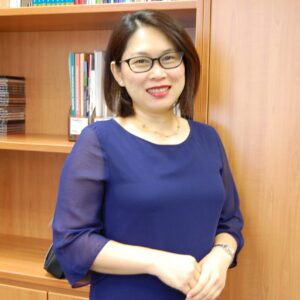
Ms Sasiwimol Klayklueng
Foreign Language Studies: Passport to the World
Meet leading Language instructors Ms Sasiwimol Klayklueng (Thai), Dr Sandhya Singh (Hindi and Tamil), Ms Indianti Tjan (Indonesian), Ms Rungnapa Kitiarsa (Thai) and Ms Sophie Undorf Bouvier (French), who will elaborate on the Minor in Language Studies and Proficiency Certificates conferred by the NUS Centre for Language Studies, which are very much sought after by students looking to enhance their career prospects.
Looking to 2023: A Wishlist for Nature in a World on Fire
IN BRIEF | 10 min read
- By protecting a forest instead of cutting it down for conversion into an oil palm plantation, for example, the developer of the land can raise revenue through the sale of carbon credits.

| By Professor Koh Lian Pin and Audrey Tan |
If all the world’s a stage in a show on the plight of our planet, then the show-stoppers must be the extreme weather events pummelling the globe. The supercharged typhoons, severe heat waves and destructive floods that took place over the past year or so have made countries sit up and pay attention to the impacts that humans and their appetites for fossil fuels are wreaking. At the COP27 climate change conference in Egypt last year, countries agreed to establish a contentious fund that would compensate developing countries for the “losses and damages” incurred due to climate change. Details still need to be worked out, but given that developed countries were previously opposed to the set-up of such a fund, the outcome signals a global recognition of the worsening impacts of the climate crisis.
But brewing backstage at the “climate show” is another crisis – biodiversity loss. While the impacts of nature in peril are, for now, not as keenly felt as the disasters that have destroyed communities and infrastructure, people are starting to recognise how intimately intertwined the health of nature is with human well-being. A United Nations report published in 2021 noted that half of the world’s gross domestic product is dependent on nature. Other scientific studies, including ones by researchers at the NUS Centre for Nature-based Climate Solutions (CNCS), have also demonstrated the links between protecting nature and the benefits of cleaner water and higher agricultural productivity, among other things. Yet, wildlife species are disappearing at an alarming rate. The planet is undergoing its sixth mass extinction event, and scientists have estimated that one million plant and animal species are on the verge of extinction. Many of them could be gone within a matter of decades. The alarm bells are tolling for biodiversity, and the world responded in December 2022, when nations agreed on a new global biodiversity framework to stem the loss of species.
The biodiversity framework joins the Paris Agreement on climate change as another global pact; and the two will help nations act to tackle the two crises confronting our planet today. Against this backdrop, we highlight a number of developments that could emerge in the year ahead at the biodiversity-climate nexus, and opportunities for research institutions like NUS to make a difference in the effort to tackle climate change and stem the loss of wildlife.
Boosting confidence in carbon markets
Discussions on how to tackle climate change and biodiversity loss would likely converge most strongly in international carbon markets. By protecting a forest instead of cutting it down for conversion into an oil palm plantation, for example, the developer of the land can raise revenue through the sale of carbon credits. In principle, the climate benefit of emissions avoidance projects, such as a forest protection effort, is primarily a function of the amount of carbon a forest contains and the threat of losing that carbon. But problems arise when project developers do not have accurate estimates about the carbon stock in a forest, or misrepresent the threat of deforestation. In January 2023, British news outlet the Guardian published an article that raised questions about the effectiveness of forest protection carbon projects at reducing deforestation. The basis of the article included scientific papers that questioned the methodologies used by Verra, the firm that certifies carbon credits sold by many nature-based carbon projects, in overestimating deforestation risk, resulting in “extra” credits being sold.
The voluntary carbon market has long been mired in controversies over carbon credit quality, and the scrutiny is likely to intensify as the sector grows. Yet, the market for carbon credits provides a unique way of protecting forests in the near-term, since it channels private sector funds to a cause that is usually a drain on national coffers. Put simply, carbon markets offer a solution to ensuring that bastions of wildlife remain standing, an outcome that will also help to limit global warming to well under 2 deg C above pre-industrial levels, a target set out in the Paris Agreement. Scientific institutions such as CNCS can help to strengthen confidence in the carbon market. For example, CNCS last year launched a new research programme, called Carbon Integrity SG, that will help improve estimates of carbon stock in Southeast Asia’s mosaic of natural habitats, from tropical rainforests to peatlands. Researchers at the centre are also looking into different ways that deforestation risk can be assessed in an ongoing study. Robust, peer-reviewed science plays a crucial role in bolstering trust in carbon markets, ensuring that funds flow to the protection of the world’s remaining wild spaces.
A Time for Tropical Oceans
The marine environment would also come into greater focus at international discussions on tackling climate change and biodiversity loss. At last year’s COP27 climate change conference in Egypt, for example, an Ocean Pavilion was erected for the first time to draw attention to how climate change was affecting the oceans. It follows a Special Report on the Ocean and the Cryosphere in a Changing Climate by the Intergovernmental Panel on Climate Change published in 2019, which warned that the ocean is getting warmer, more acidic and less productive. Melting glaciers and ice sheets are causing sea level rise, and coastal extreme events are becoming more severe, the report also said.
For archipelagic Southeast Asia, which has more than 24,000 islands with a population of over 640 million, changes in the marine environment warrant close watching. There are multiple dimensions to how oceanic changes affect the maritime continent. First, marine biodiversity. The Coral Triangle is a hotspot for marine life, and spans Southeast Asian nations such as Indonesia, Malaysia, and the Philippines. But multiple bleaching incidents caused by rising sea surface temperatures could cause coral reefs – important fisheries and ecotourism drivers for many coastal communities – to decline. The spread of invasive species carried through ship ballast water could further threaten the rich marine biodiversity of the region. Second, climate impacts manifesting in the oceans, such as sea-level rise and typhoons, pose a threat for low-lying countries in the region. Third, Southeast Asia’s location between the Pacific and Indian Oceans mean it is susceptible to oceanic-atmospheric phenomena developing in either basin, such as the El Nino Southern Oscillation (ENSO) and the Indian Ocean Dipole (IOD), which could cause changes in rainfall patterns and sea surface temperatures in the region.
The NUS Tropical Marine Science Institute (TMSI), which has over the past few decades been studying the region’s marine biodiversity and developing engineering solutions for coastal protection, can play a crucial role in helping the world understand these challenges, so policymakers can better respond to them.
A Diversity of Actors
Conservation and climate narratives are often dominated by countries in the Global North, but we can expect a greater diversity of actors from the Global South to be involved in these conversations going forward. This is crucial for two key reasons. First, developing countries face the brunt of climate impacts, and they may not always have the capacity to take action to adapt to them. It is important that those most vulnerable to the impacts of climate change and biodiversity loss have a seat at international discussions on these issues, since action – or inaction – would affect them the most. Moreover, the growth of carbon markets and the increasing attention paid to tropical habitats as suppliers of carbon credits may also negatively affect communities such as indigenous peoples, who fear the commodification of nature would lead to land grabbing and the loss of their culture. The global biodiversity framework urges countries to “foster the full and effective contributions of women, 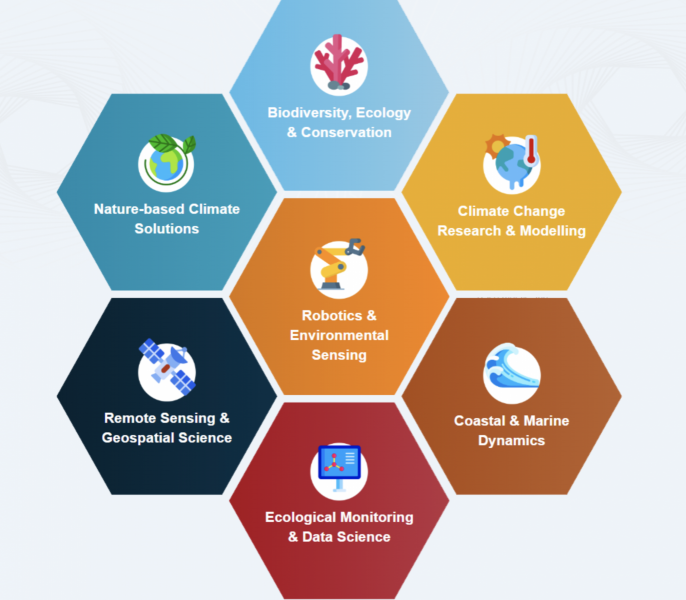
youth, indigenous peoples and local communities, civil society organisations, the private and financial sectors, and stakeholders rom all other sectors” — a signal to all that various viewpoints should be factored in decisions on the fate of the global environment.
Secondly, developing nations can offer solutions too. A United Nations report in 2021 found that between 2006 and 2011, the indigenous territories in the Peruvian Amazon reduced deforestation twice as much as protected areas with similar ecological conditions and accessibility. The social element of forest conservation is an area that researchers at CNCS are starting to look into as well. When it comes to tackling the challenges of climate change and biodiversity loss, context is key. Research institutions from the Southeast Asian region play an important role in interrogating global narratives and contextualising projections for the region. TMSI scientists are, for example, looking into downscaling global climate models so they yield more accurate results for Singapore and the region. Likewise, CNCS’ Carbon Integrity SG study will help finetune pantropical forest models on carbon estimation to the region’s diverse and unique habitats.
Climate change and biodiversity loss are global problems that require all hands on deck, and research institutions such as NUS can contribute to the search for solutions that will benefit climate, nature, and people.
About the Authors
 Professor Koh Lian Pin is the Director of the Centre for Nature-based Climate Solutions (CNCS) and the Tropical Marine Science Institute (TMSI). He is also the Kwan Im Thong Hood Cho Temple Chair Professor of Conservation at NUS, Vice Dean of Research at the Faculty of Science and currently serves as a Nominated Member of Parliament. Prof Koh has 20 years of international research experience in sustainability and environmental science, having worked in institutions across Switzerland, Australia, and the United States. One of the most highly cited conservation scientists in Asia, he is a TED-Global speaker, Founding Director of ConservationDrones.org and a World Economic Forum Young Global Leader.
Professor Koh Lian Pin is the Director of the Centre for Nature-based Climate Solutions (CNCS) and the Tropical Marine Science Institute (TMSI). He is also the Kwan Im Thong Hood Cho Temple Chair Professor of Conservation at NUS, Vice Dean of Research at the Faculty of Science and currently serves as a Nominated Member of Parliament. Prof Koh has 20 years of international research experience in sustainability and environmental science, having worked in institutions across Switzerland, Australia, and the United States. One of the most highly cited conservation scientists in Asia, he is a TED-Global speaker, Founding Director of ConservationDrones.org and a World Economic Forum Young Global Leader.
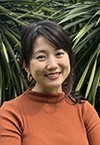 Ms Audrey Tan is the Science Communications and Outreach Lead at CNCS and TMSI. A FASS Alumna, Ms Tan (NUS Sociology, '13) has a decade of experience in environmental journalism through her work at Singapore's national newspaper, The Straits Times, and sits on the Pulitzer Centre’s Advisory Committee for the Southeast Asia Rainforest Journalism Fund.
Ms Audrey Tan is the Science Communications and Outreach Lead at CNCS and TMSI. A FASS Alumna, Ms Tan (NUS Sociology, '13) has a decade of experience in environmental journalism through her work at Singapore's national newspaper, The Straits Times, and sits on the Pulitzer Centre’s Advisory Committee for the Southeast Asia Rainforest Journalism Fund.
This story is part of Looking to 2023, an NUSnews series of commentaries on what readers can expect in the new year, and first appeared on NUSnews on 21 February 2023.
In Memoriam: William Lim Siew Wai, Eminent Architect and Benefactor of NUS Cultural Studies Programme
IN BRIEF | 10 min read
- Mr William Lim was the impetus for the establishment of the Cultural Studies in Asia PhD programme at NUS and a generous supporter of various arts and cultural practices.
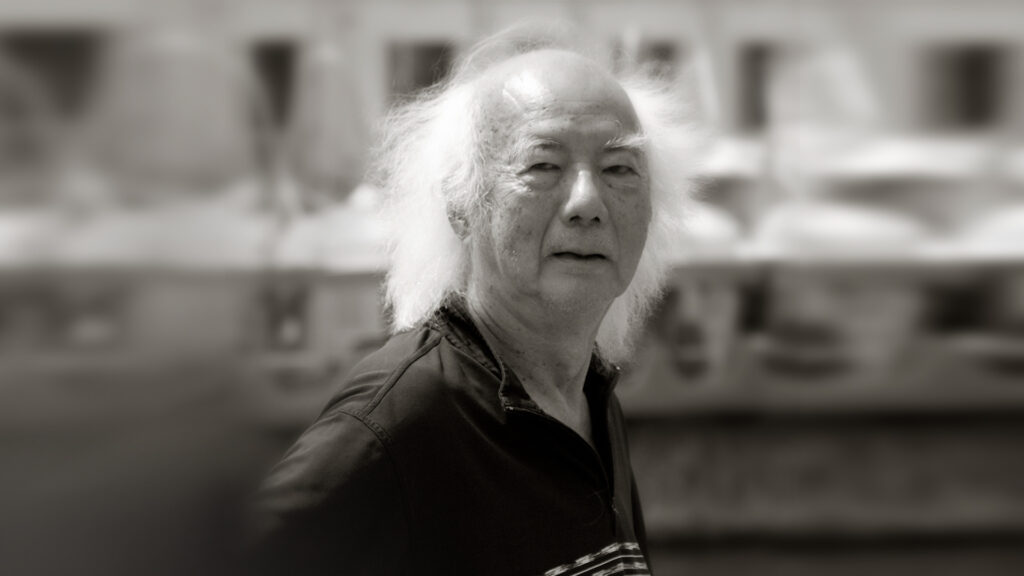
One of Singapore’s foremost architects and urban theorists, Mr William Lim Siew Wai, passed away on 6 January at the age of 90.
Among the iconic modernist buildings he left behind are the People’s Park Complex and the Golden Mile Complex. The latter was recently gazetted as a conserved building in October 2021. He published many important books on architecture and urbanism in Asia, including the influential Asian Alterity: With Special Reference to Architecture and Urbanism through the Lens of Cultural Studies (2008).
A close associate of Professor Chua Beng Huat from the Department of Sociology and Anthropology at the NUS Faculty of Arts and Social Sciences (FASS), his ties with the University started out through the Inter-Asia Cultural Studies journal of which Prof Chua was the founding co-editor. He was one of the journal’s first private subscribers, supporting the journal in its infancy, and had supported Prof Chua’s active involvement through intellectual engagement and advice. The journal aims to serve as a forum for scholars working in cultural studies in Asia and enhance communication and exchanges with other regions of the cultural studies world.
Mr Lim was the impetus for the establishment of the Cultural Studies in Asia PhD programme at NUS. He had been a generous supporter of various arts and cultural practices, including assisting in organising scholarships for young artists, donations to local theatre companies and organising conferences on local culture and heritage.

In 2007, Mr Lim offered to donate S$1 million in endowment for NUS to establish a cultural studies programme. Then Dean of FASS, Prof Tan Tai Yong, supported the proposal and Prof Chua established the Cultural Studies in Asia (CSA) PhD programme and became its first convenor. The annual revenue from the endowment was used to fund an annual one-semester William Lim Siew Wai Fellowship for prominent cultural studies academics working in or on Asia to teach a course to graduate students at NUS. Past fellows include Profs Meaghan Morris, Peter van der Veer, AbdouMaliq Simone, Allen Chun, and Chen Kuan-hsing.
The endowment also supported activities that enhanced the intellectual environment and learning opportunities for our CSA PhD students. For example, it helped fund students to attend the Inter-Asia Cultural Studies conferences and summer schools. In 2021, the CSA programme organised the first Singapore Cultural Studies Conference to honour Mr Lim's sustained cultural leadership in academia and community. Prof Audrey Yue, the current convenor of the CSA programme, says, “With more than a hundred attendees, his suggested conference theme on the role of the arts in addressing the climate crisis captured the zeitgeist of our times and reflects his enduring commitment to critically engage the exigencies of contemporary culture.”
Mr Lim was actively involved with the CSA students. He met them regularly and was keen to hear about their research progress, often engaging them on discussions about cultural theory. He regularly requested for works published by the University’s CSA lecturers and students. Associate Professor Daniel Goh, the preceding convenor of the CSA programme, recalls, “William once asked for copies of several edited books that contained our CSA graduates’ articles. I sent them to him and he responded within a few days with supportive and constructive comments for a number of the articles, which I relayed to the graduates. He was an intellectual force.”
Many of the graduates of the CSA programme have followed Mr Lim’s example and are actively pushing boundaries in cultural fields across Asia. Those who have benefitted from Mr Lim’s generosity include:
- Dr Annisa Beta was awarded the competitively-funded prestigious Australian Research Council Early Career Researcher Fellowship in December 2022 and is a continuing Lecturer at the University of Melbourne
- Dr Hilmar Farid is Directorate General of Culture, Ministry of Education and Culture, Republic of Indonesia
- Dr Adhvaidha Kalidasan is Lecturer at RMIT University Vietnam
- Dr Jaime Koh is Adjunct Professor at the Culinary Institute of America (Singapore) and Director at The History Workroom, a Singapore-based research and writing consultancy
- Dr Felicia Low is Lecturer at Nanyang Technological University and Artistic Director at Community Cultural Dimensions, which aims to advance critical discourse and quality arts practices among communities in Singapore and the region
- Dr Wang Jiabao is Lecturer at Universiti Malaya
- Dr June Yap is Director of Curatorial, Programmes and Publications at the Singapore Art Museum
- Dr Tabassum Zaman is Associate Professor, University of Liberal Arts, Bangladesh
Dr Wang, one of the graduates, said Mr Lim’s sustained commitment to the CSA programme had enriched her intellectual journey. “I have greatly benefitted from his largesse, which provided rare opportunities for me to learn from prominent cultural studies scholars such as Prof Meghan Morris, Chen Kuan-hsing, Allen Chun, and John Erni through departmental lectures and talks,” said Dr Wang.
“During the meeting with him, he also gave me timely advice on how to analyse my research from an Inter-Asia perspective. These experiences have trained me not only to be a critical thinker but also to be a cultural studies practitioner beyond academia,” she added.
This article first appeared in NUSNews on 19 January 2023.
Pre-University Educators Experience Interdisciplinarity at NUS
A delegation of teachers from Catholic Junior College (CJC) visited the National University of Singapore (NUS) campus on Tuesday (5 January 2023) as part of their annual Teacher’s Learning Retreat. With teaching expertise spanning various subjects and departments, they were keen to better understand interdisciplinarity at the NUS Faculty of Arts and Social Sciences (FASS), as well as how the learning experience differs between Junior College and University.
Participating in different panel sessions, the teachers heard directly from faculty and students, who shared their unique experiences and insights. Panelists included Dr Noorman Abdullah, Associate Professor Loy Hui Chieh, Dr Donna Brunero, Dr Denis Tkachenko, Dr Alex Mitchell, as well as two current undergraduates, Andrea Lim and Shruthi Kumar.
Exploration of New NUS Facilities
The delegation was also provided a tour of the newly renovated Central Library (NUS Libraries), where they were introduced to some up and coming technology, like the 360 Imaginarium, that NUS faculty have already incorporated into their teaching. The teachers were also allowed access to the rare bookbridge, where NUS houses its vintage and rare collections. Preparing Students to have the Best Educational Mindset
"Thank you for bringing together such a vibrant panel of Professors from diverse range of specialities. From this panel we can see how NUS is bringing together interdisciplinarity into the classroom. The discussion was rich, lively and extremely informative to understand how we can prepare our students to be future ready; “Ready for University, Learn for Life" said Vice Principal Philip Avlar.
"We welcome the opportunity to share our best practices, and insights from interdisciplinary curriculum development and delivery in FASS with Catholic Junior College teachers. The panel session and discussions were both candid and encouraging. It is always helpful to engage and connect with teachers of our future students, to share experiences and align our educational philosophy," said Dr Noorman Abdullah, Asst Dean (External Relations and Student Life).
"As both an NUS alumnus and Catholic Junior College educator - I myself am an interdisciplinary product from many years ago. I pursued Science and double majors in Economics and English Lit, purely driven by passion. It’s wonderful our students can pursue this seamlessly today. The panel sessions today were both enlightening and inspiring and provides us with lots of insights we can apply to our classroom and students," said Mervyn Sek, Head of Department (Project Work and Integrated Curriculum).
Fixing 'Broken' Youth Not Enough to Tackle Mental Health Issues
IN BRIEF | 10 min read
- Commentary in TODAY by Associate Prof Vincent Chua, from NUS Sociology and Anthropology, and Ms Isabelle Tan (Research Assistant) and Dr Chew Han Ei (Senior Research Fellow) of the Social Lab, Institute of Policy Studies at the Lee Kuan Yew School of Public Policy at NUS.
Click through image below to read this piece.
This article first appeared in TODAY and NUSNews on 24 November 2022.
Reforestation Could Boost Water Security in some Asia-Pacific Areas
IN BRIEF | 10 min read
- A new study led by researchers at the NUS Centre for Nature-based Climate Solutions (CNCS) indicates that if all areas suitable for forest growth in the Asia-Pacific were planted up, rainfall would go up in 4 of its 15 water-stressed regions, writes NUS CNCS Science Communication and Outreach Lead and FASS alumna Audrey Tan (NUS Sociology, '13) in this The Straits Times article.
Click through image below to read this piece.
This article first appeared in The Straits Times and NUSNews on 14 November 2022.
The Half-life of Knowledge
IN BRIEF | 10 min read
- There is now an indisputable requisite to equip graduates with interdisciplinary knowledge and skillsets. We need both the agile lenses of interdisciplinarity as well as the deep-cutting laser of deep domain expertise. The former trains us to aim and focus the laser, while the latter allows us to cut to the heart of a problem.

| By Professor Tan Eng Chye |
“Teach a person to fish, and you may feed them for three-and-a-half years” may sound less inspiring than “Teach a person to fish, and you feed them for a lifetime”, but the former more accurately reflects the current realities of tertiary education.
Breaking news travels at warp speed, accelerated by social media and instant messaging. In a matter of minutes, news can reach the four corners of the world. Such interconnectedness highlights the leaps made in information technology over the years while underscoring a persistent and inexorable phenomenon – the reduction of the half-life of knowledge.
The half-life of knowledge, coined by Fritz Machlup in 1962, refers to the amount of time elapsed before half of the knowledge in a particular field is superseded or becomes obsolete. Given the speed with which knowledge develops and is shared, it is perhaps not surprising that this value is ever decreasing in many fields.
This phenomenon raises fundamental questions about our university degree programmes. How should a fresh graduate, filled with aspirations to change the world, deal with the harsh reality that a significant portion of their undergraduate training may be rendered irrelevant by the simple passage of time?
Distilling a degree programme is one possible, albeit drastic approach. We can consider equipping students only with evergreen core domain concepts. This training should take less time than our current degree programmes. As and when students require specific new knowledge, or need to upgrade existing knowledge, they can take short courses to bridge knowledge gaps and meet their professional needs. This type of “just in time” learning, also known as micro-credentialing, helps to circumvent the shortened half-life by injecting cutting-edge knowledge at just the right time.
Another less disruptive approach is revitalisation. We can maintain the current degree programme structure, but provide avenues for graduates to return to university in the future. Such short stints of study can follow existing models for bite-sized, self-contained courses, or semester-long study periods undertaken with the support of employers.
One certainty is that university study will cease to be just one stage of life. Instead, “university studies” will become the de facto way of studying, with a person continually refreshing and renewing their knowledge in tandem with or in anticipation of developments in industry, society and the world.
In anticipation of this, we created the NUS Lifelong Learners Programme (or NUS L3), which promises a 20-year period of student enrolment, from the point of undergraduate or postgraduate admission. In other words, a graduate of NUS can choose to come back to campus to take courses for at least 20 years from the day of matriculation.
Interdisciplinarity
Beyond the way knowledge is acquired, we are also grappling with working in an increasingly VUCA (volatile, uncertain, complex, and ambiguous) world. In such a context, can we continue to hold a siloed view of domain disciplines? In training law students, for example, we would be remiss not to show them basic programming, which can allow them to create customised commands to quickly and easily trawl through databases, with millions of legal records, to identify precedents.
Deep domain expertise is like a laser – a focused beam of knowledge that can cut through dense problems. However, real-world issues are increasingly multifaceted and ill-defined, often lacking a clear vulnerable spot at which a laser beam can be aimed.
As a mental experiment, consider the challenge of introducing autonomous electric vehicles to a city. This proposition involves urban design, city planning, the law, and engineering for accessibility. We can form a multidisciplinary team of experts, where each member is a domain expert, to tackle the issue. However, in all likelihood, we will encounter misalignment between domains, simply owing to differences in problem-solving methodology, thinking models or even nomenclature.
If we liken domain training to equipping students with specific lenses through which they can see and focus on information to solve a problem, then interdisciplinarity suggests that we should train students to operate across more than one domain. By educating them in core ideas from multiple domains and providing opportunities to apply their knowledge in authentic settings, students with interdisciplinary training can switch domain lenses as needed, solving problems using novel and unorthodox approaches that transcend domains.
To be clear, we are not advocating for dismantling deep domain training. Rather, we recognise that there is now an indisputable requisite to equip graduates with interdisciplinary knowledge and skillsets. We need both the agile lenses of interdisciplinarity as well as the deep-cutting laser of deep domain expertise. The former trains us to aim and focus the laser, while the latter allows us to cut to the heart of a problem.
NUS strongly believes in providing interdisciplinary pathways for our students. In 2020, we created the College of Humanities and Sciences (CHS) to provide an enhanced interdisciplinary undergraduate experience for students of the Faculty of Science and the Faculty of Arts and Social Sciences. CHS undergraduates can choose between deep domain training or the flexibility of interdisciplinary training of varying breadth and depth in modules offered by both faculties. Continuing our efforts to pave more interdisciplinary pathways for students, in 2021, we merged the School of Design and Environment and the Faculty of Engineering to form the College of Design and Engineering. More recently, NUS launched NUS College, Singapore’s first honours college offering pathways to more than 50 majors across a half dozen degree programmes. The aim of NUS College, as explained by its inaugural dean, Professor Simon Chesterman, “[is to offer] broad, interdisciplinary competencies that equip students for life, along with the opportunity to dive deep into areas in which you are passionate.”
To quote Charles Dickens, “It was the best of times, it was the worst of times, it was the age of wisdom, it was the age of foolishness.” Indeed, our experiences with the global pandemic and its effects on education over the past two years have given us the rare opportunity to engage in deep reflection and introspection. Witnessing the breakdown of resistance to adopting and adapting technology for teaching and learning during this time, we should be emboldened to re-examine and revolutionise some of our established, and perhaps outmoded, notions of how to offer higher education.
About the Author
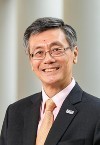 Professor Tan Eng Chye is President of the National University of Singapore. A passionate academic and educator, Prof Tan is a member of the World Economic Forum’s Global University Leaders’ Forum, as well as Singapore’s Future Economy Council, which is tasked with driving the growth and transformation of the country’s future economy.
Professor Tan Eng Chye is President of the National University of Singapore. A passionate academic and educator, Prof Tan is a member of the World Economic Forum’s Global University Leaders’ Forum, as well as Singapore’s Future Economy Council, which is tasked with driving the growth and transformation of the country’s future economy.
This article was first published in the Times Higher Education World University Rankings 2023 supplement and first appeared in NUSNews on 4 November 2022.
Call for Nominations | FASS Inspiring Mentor Award 2022
IN BRIEF | 3 min read
- We invite NUS FASS members of staff to nominate the colleagues who have served as their truly inspiring mentors - who have gone beyond the call of duty to positively impact their work and life - for FIMA 2022 honours.
Click through image below (or just write to fassmentoraward@nus.edu.sg) to file your nomination.
FASS Establishes LBKM Social Sciences Scholarship to Nurture Top Talents in the Social Sciences
IN BRIEF | 5 min read
- The scholarship was established through a S$300,000 gift from Lembaga Biasiswa Kenangan Maulud, LBKM (Prophet Muhammad's Birthday Memorial Scholarship Fund Board).
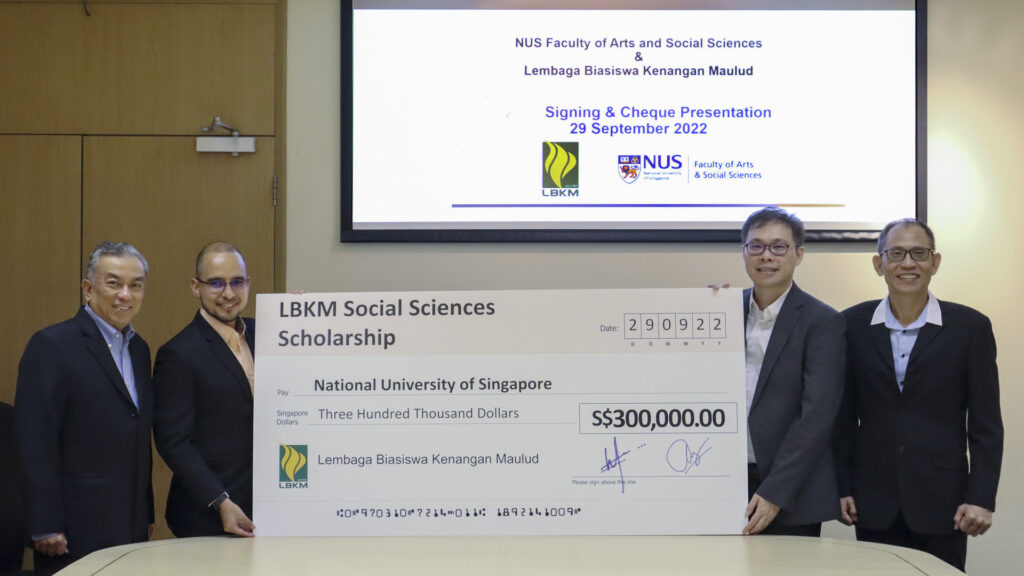
The NUS Faculty of Arts and Social Sciences (FASS) has received a generous endowment gift of S$300,000 from Lembaga Biasiswa Kenangan Maulud (LBKM) - or Prophet Muhammad's Birthday Memorial Scholarship Fund Board - to establish the LBKM Social Sciences Scholarship.
The Scholarship will be available to academically outstanding full-time third- and fourth-year Singaporean students pursuing majors in Communications and New Media, Economics, Global Studies, Philosophy, Politics and Economics (PPE), Political Science, Psychology, Social Work, as well as Sociology and Anthropology. This aims to further spur academic excellence in the social sciences amongst FASS undergraduates and encourage them to distinguish themselves in their scholastic activities.
Applications for the Scholarship worth $5,000 each will open in the academic year beginning in August 2023.
Professor Lionel Wee, Dean of NUS FASS, said, "The rise of the digital economy has driven up demand for social scientists as their knowledge and skills are needed to understand the impact of new technology on people and societies, provide social support in the wake of fast-moving changes, and overcome cultural differences in an increasingly shrinking world. These are roles robots and technology cannot replace. This Scholarship will enable us to attract and nurture exceptional social science students keen to grow their skills and achieve their fullest potential. We are grateful to LBKM for their trust and strong support."
Associate Professor Loy Hui Chieh, Vice Dean of NUS FASS, and Dr Syed Harun Alhabsyi, President of LBKM, signed the agreement today to establish the Scholarship, with a ceremonial cheque presented by LBKM to NUS FASS.
Dr Syed Harun said, "LBKM's continued support for undergraduates in the study of social sciences remains of extreme importance as societal and community needs become more complex, ever-changing and inter-disciplinary. It is hoped that LBKM's contributions will continue to inspire students to do well in the area of social sciences and groom future leaders who will not only perform exceptionally in their academic pursuits but also give back to the community."
The new LBKM Social Sciences Scholarship is an extension of LBKM's longstanding relationship with NUS FASS and past community donations that have supported undergraduate students financially and encouraged them to excel in their studies since 2007.
This story first appeared in NUSNews on 29 September 2022.
Singapore Youth: In Defence of ‘Strawberries’
IN BRIEF | 10 min read
- Dr Chew Han Ei, Senior Research Fellow at the Institute of Policy Studies at the Lee Kuan Yew School of Public Policy at NUS, and Assoc Prof Vincent Chua from NUS Sociology and Anthropology ask: What can be done to engage young people in Forward Singapore?
Click through image below to read this piece.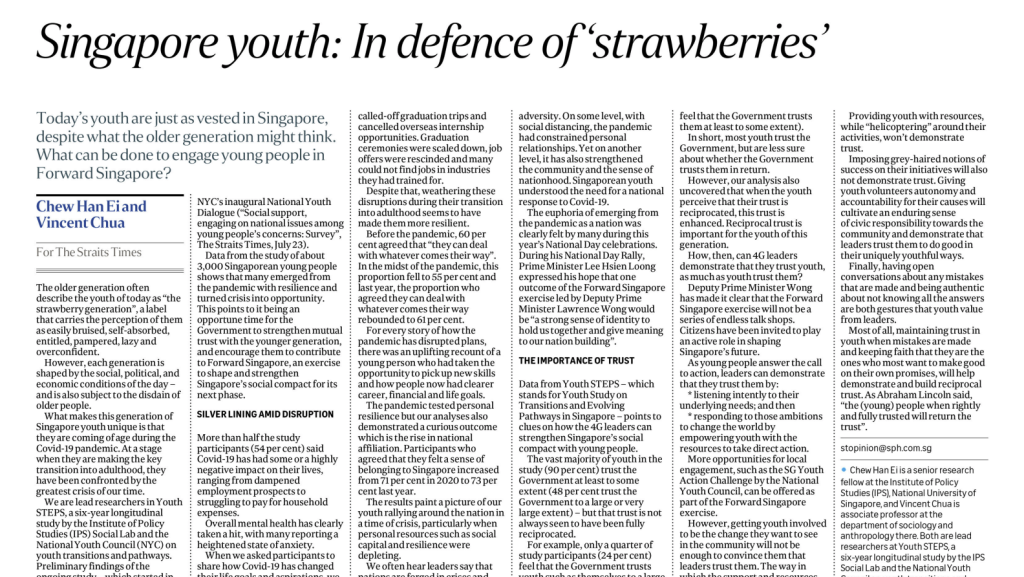
This article first appeared in The Straits Times and NUSNews on 19 September 2022.
Tampines Central: Government-Resident Partnerships at Work
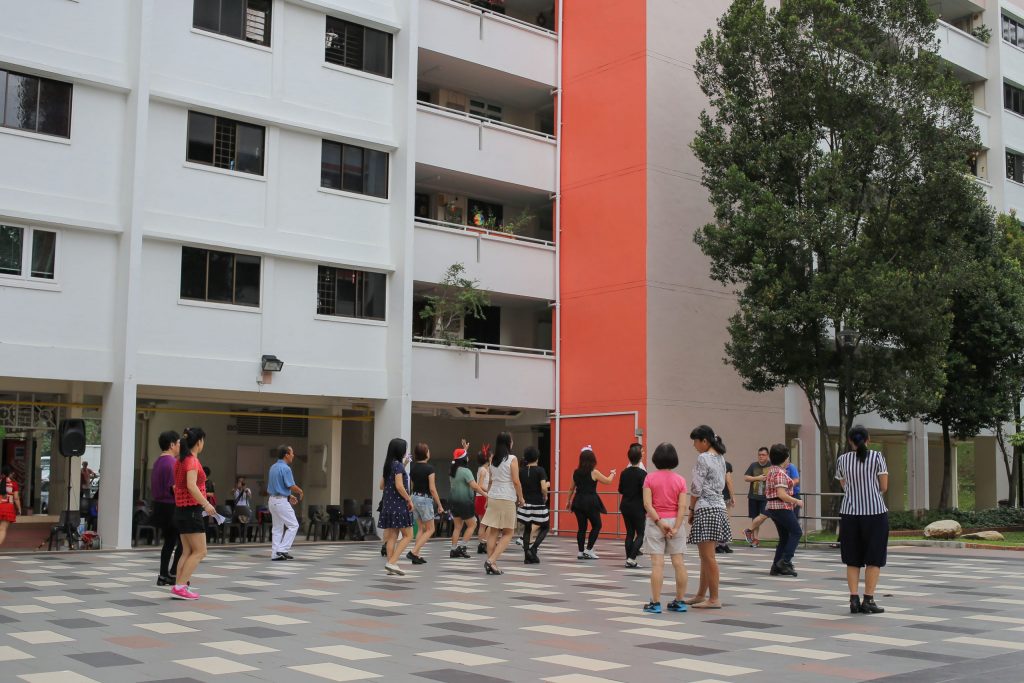
What Would it Take to Snap Singapore out of its Obsession with Grades?
IN BRIEF | 10 min read
- Undergraduate Friedel Wong (NUS Sociology) explores why there is an "unhealthy obsession with grades" in Singapore universities, and what it would take to move beyond grades.
Click through to read this Op-Ed on CNA Online.
This article first appeared in CNA Online and NUSNews on 24 July 2022.
FASS Students Dominate 2022 USP Awards
IN BRIEF | 10 min read
-
NUS Faculty of Arts and Social Sciences (FASS) students have topped 9 out of 14 prize categories in 2022 University Scholars Programme (USP) Awards, achieving the USP Overall and Domain Prizes for academic excellence.

Students of the NUS Faculty of Arts and Social Sciences (FASS) in the University Scholars Programme (USP) have topped 9 out of 14 categories at the 2022 USP awards, including the Joanna Wong Medal, NUSS Medal for Outstanding Achievement, Izzudin Taherally Prize, Chan Bibe bte Syed Mohd Shah Prize, Albert Teo Prize, Tin Chew Hong Prize, Syed Ahmad Khan AMU Memorial Prize and Sung Kah Kay Memorial Prize. FASS students have also swept the USP Overall and Domain Prizes, with Philosophy, Politics, and Economics major Nickson Quak Jun Hao (Philosophy, Politics, and Economics) taking Best Overall Performance, in addition to sharing top spot with his compatriot Terence Mah (Psychology) under Best Performance in Science and Technology.And to stamp FASS’ dominance in this year’s awards, Archana Dhinakar Bala (Economics) – winner of the Joanna Wong Medal and the Syed Ahmad Khan AMU Memorial Prize – served as valedictorian for the USP commencement ceremony.
In full, the list of FASS winners of this year’s USP awards are.
Joanna Wong Gold Medal AwardPresented to the graduating student from USP who best embodies the ethos of the programme—demonstrating academic excellence and commitment to co-curricular activities.
Winner: Archana Dhinakar Bala (Economics) NUSS Medal for Outstanding Achievement
Presented to the graduating USP student with outstanding all-round achievements, who demonstrates academic excellence as well as significant participation in NUS students activities and/or impactful contribution in community service/voluntary work, preferably in leadership capacities.
Winner: Teow Jun Hao (Philosophy, Politics, and Economics) Sung Kah Kay Memorial Prize
For the graduating USP student who best exemplifies scholarship and academic excellence, and who demonstrates leadership in independent and interdisciplinary scholarship.
Winner: Yip Sze Kay (Majors: English Literature and Philosophy, Minor: French) Izzuddin Taherally Prize
For the graduating USP student who is well-rounded and has exemplified academic excellence and demonstrated a strong commitment to promoting interfaith dialogues or activities related to social harmony.
Winner: Ahmad Zaki bin Yazid (History) Chan Bibe Bte Syed Mohd Shah Prize
For the graduating USP student who is well-rounded and has demonstrated academic excellence as well as a strong commitment to wide-ranging learning through co-curricular acivites, or to community service.
Winner: Rachel Teng Ying Xin (Sociology) Albert Teo Prize
For the well-rounded graduating USP student who has exemplified academic excellence and demonstrated a strong passion for entrepreneurship or innovation in the social or business sector.
Winner: Peng Yun Ting (Philosophy, Politics, and Economics) Tin Chew Hong Prize
For the graduating USP student who is well-rounded, has exemplified academic excellence, and demonstrated strong commitment to community service preferably in the areas of eldercare, ageing or gerontology.
Winner: He Shiying (Major: Global Studies, Minor: Public Health) Syed Ahmad Khan AMU
For exemplifying academic excellence and reflecting a strong commitment or made a significant contribution to South Asian studies and culture.
Winner: Archana Dhinakar Bala (Economics) USP Prizes: Overall and Domain
For graduating USP students who have demonstrated academic excellence in USP modules.
- Best Overall Performance
Winner: Nickson Quak Jun Hao (Philosophy, Politics, and Economics)
- Best Performance in Humanities and Social Sciences
Winner: Belle Koh Rae Qi (Psychology)
- Best Performance in Science and Technology
Winners: Nickson Quak Jun Hao (Philosophy, Politics, and Economics) and Terence Mah Cai Jun (Psychology)
Centre Stage – Student Leaders in the Performing Arts Shine a Spotlight on Social Issues
IN BRIEF | 10 min read
- Three graduates share their thoughts on their leadership in the performing arts, navigating the challenges of COVID-19, and how the performing arts can open doors to conversations on mental wellness, environmental issues and inclusivity.
Art can help shape and renew culture. It offers a space for creativity and expression, surfaces issues that are difficult to talk about, and can effect change in society. Three graduates share their thoughts on their leadership in the performing arts, navigating the challenges of COVID-19, and how the performing arts can open doors to conversations on mental wellness, environmental issues and inclusivity.
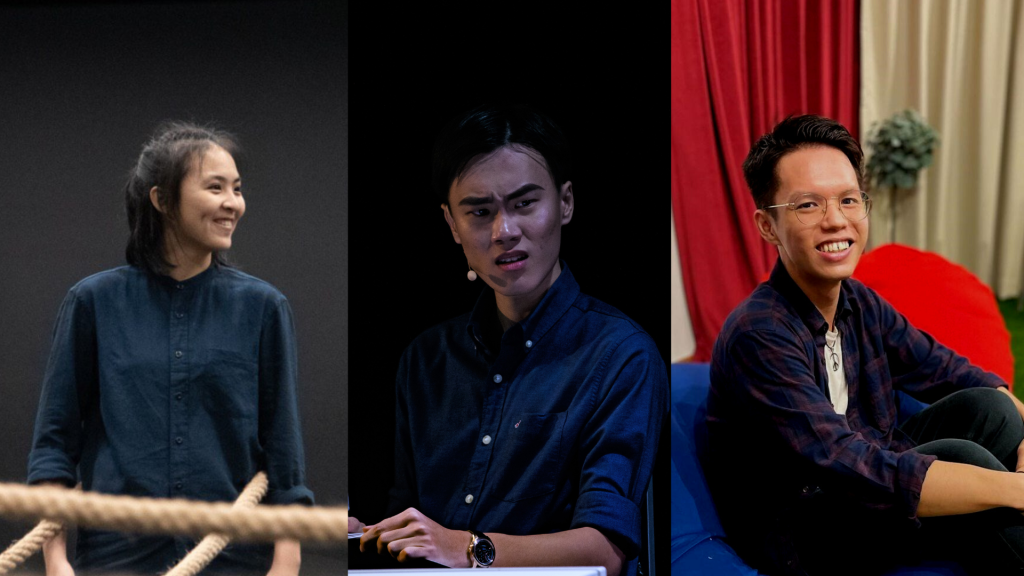
For 23-year-old Coco Yau, dance is inseparable from her identity. The Psychology major was only six when she went for her first dance class. "My dad told me I could one day be like the dancers in High School Musical," she chuckled.
Coco nurtured her interest, building foundational skills in jazz, Chinese and modern dance. "Before university days, dance to me was very performative. You usually work towards a choreography or competition piece," she said. That perspective changed when Coco joined NUS Dance Synergy, opening her eyes to a new dance style.
"The way that NUS Dance Synergy teaches contemporary dance is extremely raw. It brought me out of my comfort zone because I was so used to structured techniques. They encouraged me to be comfortable in my own skin and to feel, which was intimidating. That was the first time I tried to have conversations with myself through body movement," said Coco.
Coco went on to serve as President and Dance Mistress of NUS Dance Synergy in Academic Year 2019/2020. During her term, Coco and her executive committee organised Fuse(d) 2019 - a two-day contemporary dance showcase. The indefatigable performer even coordinated seven dance groups for the HERE! Arts Carnival 2020 Virtual Opening Show.
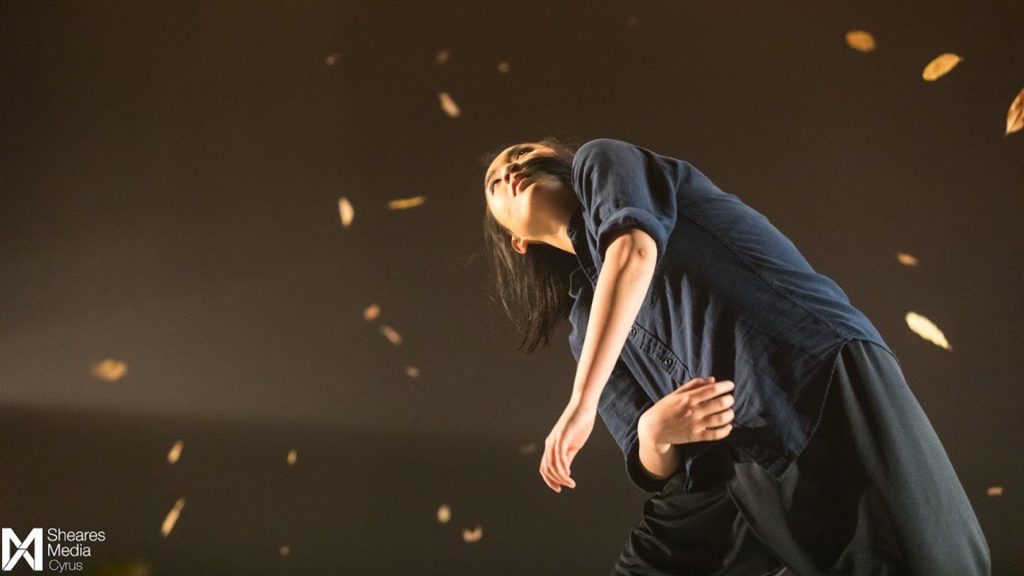
While there were many highs during her time in NUS Dance Synergy, the pandemic almost ground things to a halt, putting her leadership of a performing group to the test. As infection cases climbed and social restrictions were tightened, Coco recalled having to make the tough decision to shelve Venture 2020, to the disappointment of fellow dancers who had trained hard for weeks.
"That showcase was a very important growing point for many people, and we were all working so hard to make it happen… As a leader, that burden [of letting people down] was very hard to bear," she said.
Mental wellness is also an issue Coco cares deeply about. Together with three seniors, Coco established SPECTRUM, a university-wide initiative to raise awareness and improve mental health for students. SPECTRUM went on to win first place in the 2020 Public Health Challenge.
Where possible, Coco incorporates elements of mental wellness with contemporary dance. As a leader and senior member of NUS Dance Synergy, she often led tutorials for fellow dancers and Tembusu College residents, carving out a space for them to express themselves through movement.
"Having internal dialogue, being able to connect with yourself - these are aspects I learnt in psychology that I brought into dance. Sometimes I received messages saying 'I've never felt so connected when I'm dancing'. That really means a lot to me," said Coco.
After graduation, Coco will be joining the National University Hospital as a psychologist associate. She will be working with REACH, a mental healthcare service to help students in the community.
Reflecting on her experiences in NUS, Coco said, "My four years as a leader, senior and teacher has contributed to a better understanding of how to connect with people. This is something I will bring with me, anywhere I go."
Advocacy Through the ArtsWhat started as passion, evolved to become something more.
Environmental Studies graduate Chua Wei Qian loved the performing arts from a young age. While he made his stage debut as a chorister, he found himself drawn to acting and eventually joined NUS Chinese Drama when he entered university.
In NUS Chinese Drama, Wei Qian had the opportunity to explore various forms of theatre-making, such as Playback Theatre, Devised Theatre and Guerrilla Theatre. The fun and enriching experience spurred him to take up the role of President in August 2019.
One of the most memorable productions during Wei Qian's leadership term was a play titled Blindspot. An original production by NUS Chinese Drama, Blindspot tells the stories of two young persons; one visually-impaired, and the other grappling with a loved one experiencing gradual vision loss. The play brings into focus how our blind spots prevent us from seeing those in need around us. A nod to its title, Blindspot was also produced with the intention of making theatre more accessible to visually-impaired audiences, making available audio descriptions of each scene.
The planning for Blindspot began in June 2019 and the play was slated to premiere at NUS Arts Festival 2020. However, the pandemic derailed plans and the entire production had to be moved online. This was not the only setback.
"A day before it (Blindspot) was supposed to be up, we received news that there were some issues with the music copyright. We couldn't use the music...and had to redo the last scene, stitch the different scenes together and re-export two versions of the play. We had to decide whether we wanted to have the normal version up first, then upload the accessible version (for visually-impaired audiences) another day."
While it was not an easy decision to make, Wei Qian felt strongly that it was important for all audiences to gain equal access to the show.
"At the end of the day, we pushed both versions back. Whether you are visually-impaired or fully-sighted, you will have access to the show at the same time," he added.
Through the various productions and plays, Wei Qian hopes to encourage discussion on social issues that might be hard to broach. This was also part of the reason he chose to major in Environmental Studies.

Grounded in the belief that environmental and social issues are not distinct, Wei Qian said: "The environment is integral to our everyday lives… [Raising] carbon taxes would have an implication on our everyday expenses. It is an environmental issue but it is also social."
NUS' multidisciplinary approach to Environmental Studies was another key factor in his choice of study. Wei Qian credits his education at NUS for exposing him to various ideas and perspectives on environmental issues.
After graduation, Wei Qian will be pursuing a career in journalism. The 25-year-old wants to continue championing social issues, especially those that resonate with the younger generation. Through this, he hopes to help bridge generation gaps and promote greater mutual understanding.
A Voice for Social MobilityWith no formal music background, Amir Mirza first discovered an interest in singing while he was in secondary school.
"It started from just wanting to explore singing after watching shows like High School Musical and Camp Rock… It turned out to be something that I really enjoy," the Sociology major said.
Amir joined his school's choir and rose through the ranks to become its pioneer student conductor - leading his school to clinch its first Silver medal in the Singapore Youth Festival Central Judging.
Entering university, Amir wanted to improve his skills and continue his choral journey with a reputable varsity choir. He set his sights on joining The NUSChoir, inspired by their achievement of clinching the prestigious "Choir of the World" title at the Llangollen International Musical Eisteddfod in Wales, United Kingdom in the year of his matriculation.
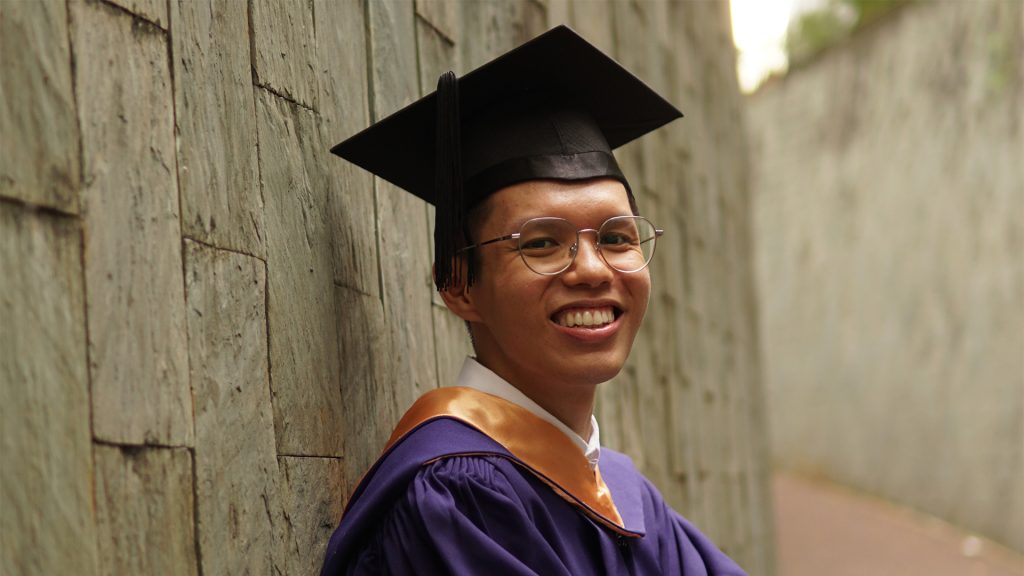
In his second year, Amir was elected President of The NUSChoir - an experience which saw him gaining fresh perspectives on leadership, people management and communication.
"I placed a lot of emphasis on inclusivity. Being a choir centred on excellence, there will be members who may not be able to cope with the learning pace… Relating to that experience myself, it was vital for me to be as grounded as possible and engage with members often, especially those who may be left behind," he added.
While the pandemic meant that live singing and large performance opportunities were not permitted for a time, Amir worked closely with his members, student leaders and stakeholders to ensure The NUSChoir could still engage in meaningful activities.
Amir expressed his heartfelt appreciation for the support alumni and fellow members gave during his leadership, and added that alumni had been very generous with their guidance. "It was also a gratifying experience forging friendships with fellow student leaders and staff from NUS Centre for the Arts," he said.
The 26-year-old also lends his voice to another cause close to his heart - social mobility.
The oldest of four children to parents working in the service industry, Amir remembers his family always having to spend prudently and keep an eye out for financial assistance schemes. Today, he is the first in his family to graduate with a bachelor's degree.
Reflecting on his life experiences, Amir explained, "I want young people in difficult situations to believe it can be a reality for them, and resilient individuals who are now in better positions to make a difference for them."
To this end, Amir is a PEER Community Programme volunteer involved in organising experiential learning programmes and cohesion activities for secondary school students. He also serves with the Ministry of Social and Family Development's social service offices as a ComLink volunteer supporting families living in rental flats.
Following his interests, Amir chose to read Sociology in NUS, where he enjoyed discussions on topics related to race, education, and social class. He credits his professors for ensuring the classroom remained a "safe and brave space" where he and his classmates could articulate views authentically and respectfully without the fear of being judged or criticised.
After graduation, Amir will be embarking on his career as a child protection officer, guided by his belief that every young person deserves a strong, stable, and supportive home to thrive.
This story first appeared in NUSNews on 13 July 2022.
Making a Tangible Difference in Her Community
IN BRIEF | 10 min read
- Nur Hikmah Binte Md Ali hopes "to address some of the problematic ideas that are rampant in society.".
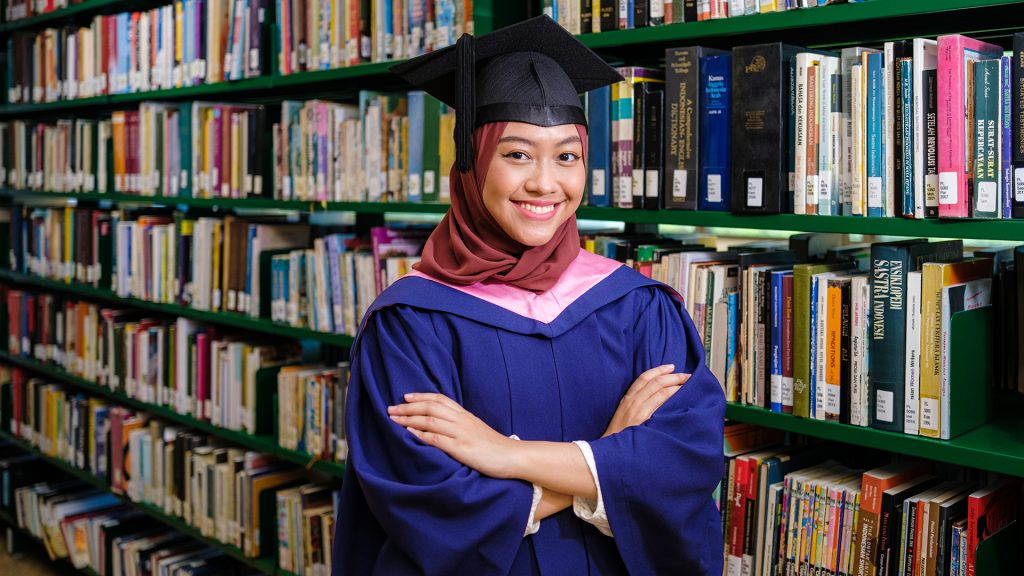
Growing up as a Madrasah student, Nur Hikmah Binte Md Ali was keenly aware of assumptions that religion is both cause and panacea to certain problems.
Concerned about such assumptions, she was motivated to deepen her understanding of the issues within the Malay Muslim community.
So when it came to choosing what to study in university, the choice was simple. Without hesitation, she clicked on "Malay Studies" on the online application form.
"I found that Malay Studies in NUS was most relevant to my personal experiences and would help me to make sense of my own society," said Hikmah, who also selected Sociology as her minor.
Both these courses combined to give her new insights as well as learning tools, enabling her to challenge the status quo by digging deeper to examine the root causes of the key issues affecting her community.
With her newfound knowledge, Hikmah decided to share her observations by writing various commentaries that were published in Berita Mediacorp, the Malay news arm of Mediacorp.
Her commentaries have explored topics such as religion and its role in social development programmes, as well as undergraduate education - both in relation to the Malay-Muslim community.
Turning knowledge into actionHikmah also sought to make an impact within the university. In 2020, she became the President of the NUS Malay Studies Society.
Driven by her passion to raise awareness of socio-economic issues and policies, she organised several forums where speakers were invited to share about a wide range of issues pertaining to the development of the Malay community - extending to topics such as gender and sexuality.

She also joined NUS Interfaith, eventually becoming a member of the executive committee and organising events on and off campus, as she believed strongly in the need to promote a better understanding of other religions.
Beyond her activities on campus, she was recognised with a nomination as "Sahabat Sastera" (Friend of Malay Literature) by the Malay Language Council in 2021, for promoting the value of Malay literature. She is also working on a book with the other nominees on this topic.
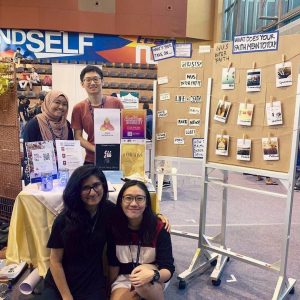
Hikmah is set to play an integral role in shaping the Malay media landscape too, as she now sits on an advisory panel for Malay media at Mediacorp. A recent initiative is the "Nadi Kampus" (Pulse of the Campus) section in Berita Mediacorp, where undergraduates are free to submit their poems, videos, short articles and other media forms.
Overcoming obstacles along the wayHowever, Hikmah's NUS journey was not all smooth sailing. When she first arrived at NUS, Hikmah was taken aback by the huge class size and distance between the student and the lecturer. It was a far cry from her Madrasah experience.
Thankfully, Hikmah made friends with a number of helpful seniors. With their support, Hikmah found her place in NUS. "Being with them helped me to transition to university life," she said.
Coming from a large family of six, financial struggles were another hurdle in Hikmah's education path. For a period of time during the height of the pandemic, she had to work as a swab assistant to help her family out - all while keeping up with her studies.
Fortunately, a MUIS Zaakat financial assistance scheme and the NUS Merit Scholarship gave Hikmah some reprieve and enabled her to pursue the academic excellence she has now achieved.
All her achievements are possible, she believes, because of the support she has received - from family, friends and the University. She also credits picking the right courses in NUS, that have opened up a whole new world of learning.
Hikmah graduated with a Bachelor of Arts with Honours (Highest Distinction) in Malay Studies on 6 July.
With all that she's gained at NUS, Hikmah hopes "to address some of the problematic ideas that are rampant in society."
"Malay Studies has helped me to understand my own realities better," she said. Coupled with Sociology, the courses have taught her how to critique assumptions and policies, and equipped her with the capability to make a difference in society.
This story first appeared in NUSNews on 7 July 2022 as part of NUS News' coverage of Commencement 2022, which celebrates the achievements of our 13,975 graduates through 28 in-person ceremonies. For more on Commencement, look out for our other graduate profiles, check out the official Commencement website, or look up (and tag) #NUS2022 and #NUSFASS on NUS' and FASS' social media channels!
Commencement 2022: Kickstarting a Season of Celebration and Achievement
IN BRIEF | 10 min read
- NUS celebrates the milestone accomplishments of 13,975 graduates through 28 in-person ceremonies.
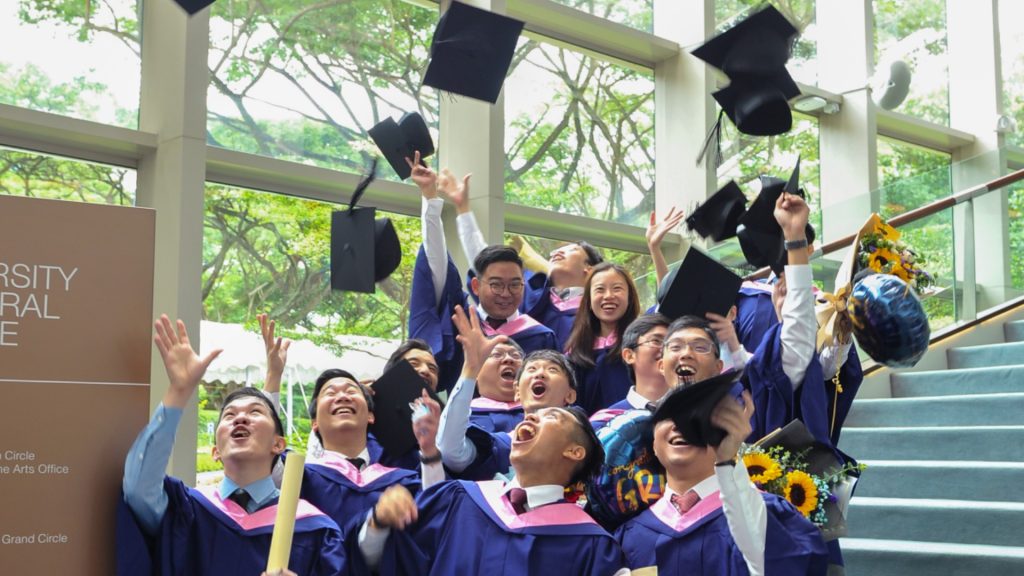
A long-awaited season of celebration is officially under way, with the inaugural ceremony of Commencement 2022 marking the milestone achievements of some 200 Faculty of Arts and Social Sciences (FASS) graduates, and seeing the conferment of two Honorary Graduates, Professor Tommy Koh and Professor Wang Gungwu.
Taking place at the University Cultural Centre, the ceremony kicked off bright and early on 6 July to an effervescent buzz of anticipation from the graduates and their loved ones, inaugurating a total of 28 in-person ceremonies to be held over the following 10 days.
In keeping with the Commencement traditions and the proud ceremonial heritage of NUS, the ceremony showcased the pageantry of the Ceremonial Procession, the fanfare, and playing of the National Anthem, all culminating in the highlight of the ceremony-the presentation of graduates. Graduates from the Class of 2022 celebrated their achievements amid the applause of family and friends, a momentous apogee of their time in NUS.
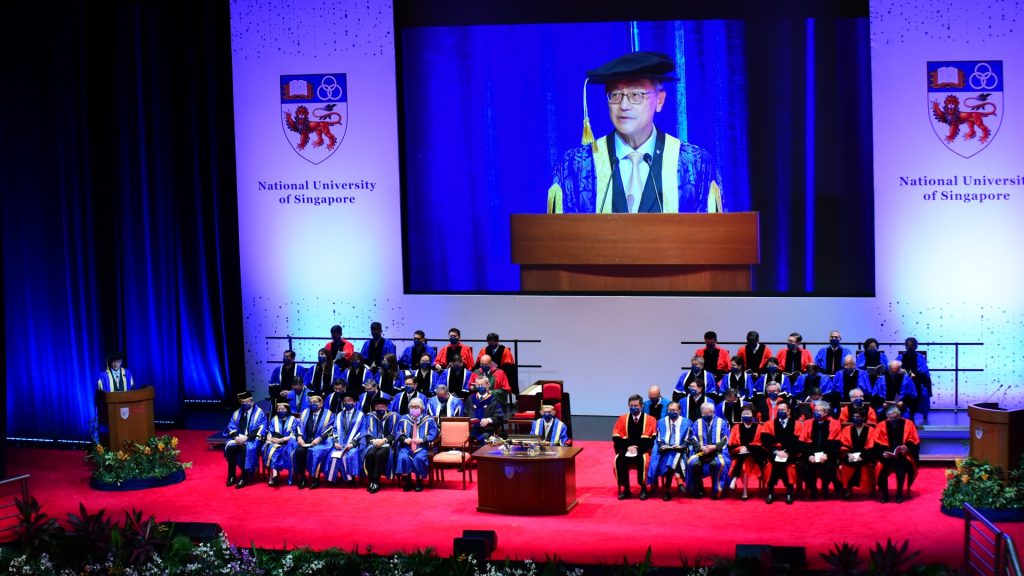
Speaking at the ceremony, NUS President Professor Tan Eng Chye reflected on the qualities needed for graduates to thrive in today's dynamic environment: an attitude of resilience and adaptability to overcome challenges, and a willingness and boldness to view problems as opportunities, exercise creativity, and apply their skills and knowledge to create solutions.
"For the Class of 2022, you are crossing the threshold into a wider world of dynamic change and great possibilities, but also of discomforting uncertainty," he said.
"But I am fully confident that the NUS graduates of today share the same ethos of excellence and service to community of generations past. In time to come, you will undoubtedly make your own unique contributions, and become the vanguard in elevating our collective prosperity and well-being."
Contributions to Law, Nature and Culture: Prof Tommy KohTwo illustrious NUS alumni were also honoured as Honorary Graduates for the Class of 2022-lawyer and diplomat Professor Tommy Koh, and historian Professor Wang Gungwu.
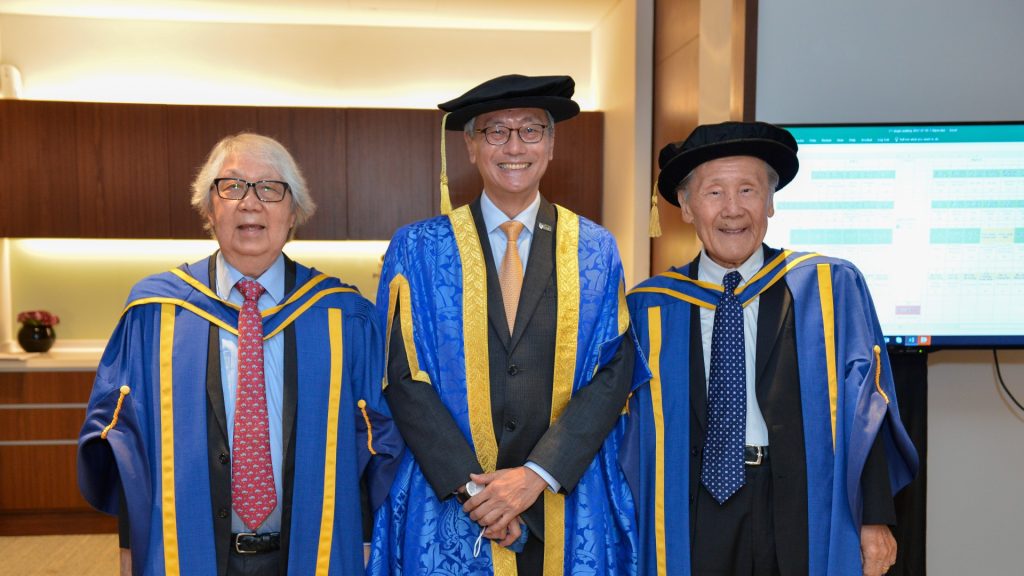
In recognition of his dedication as a practitioner-scholar and decades of service to the University, Singapore, and the world, Prof Koh, who wears many hats including Ambassador-at-Large at Singapore's Ministry of Foreign Affairs, Special Advisor of the Institute of Policy Studies, and founding Rector of NUS' Tembusu College, was conferred the Honorary Degree of Doctor of Laws.
Highlighting three areas on which he has focused his energies - law, nature, and culture - Prof Koh said, "I chose to study law, not to enrich myself, but to pursue justice and to promote the rule of law."
He also spoke about his work concerning nature and the environment, including chairing the 1992 Earth Summit, being patron of the Nature Society, and helping NUS establish the Lee Kong Chian Natural History Museum as its founding Chairman. "My vision is to live in harmony with nature. My agenda is to promote sustainability in all our endeavours," he added. "I am [also] glad that I have been able to play a very small role in transforming Singapore, from a cultural desert to a cultural oasis."
Delivering the citation for Prof Koh's conferment, Professor Simon Chesterman, Vice-Provost (Educational Innovation) and Dean of the NUS Faculty of Law and NUS College, referred to Prof Koh's "academic milestones [which] are but one strand of the rich tapestry of his professional life", as well as his leadership and guidance in education at NUS, and his eminent contributions to state and environmental diplomacy.
An Inspiring Story Worth Retelling: Prof Wang GungwuProf Wang, one of the world's foremost experts on the Chinese diaspora and Sino-Southeast Asian historical relations, was conferred the Honorary Degree of Doctor of Letters, the latest in a long list of accolades that includes the prestigious Tang Prize in Sinology, and the Distinguished Service Order of Singapore.
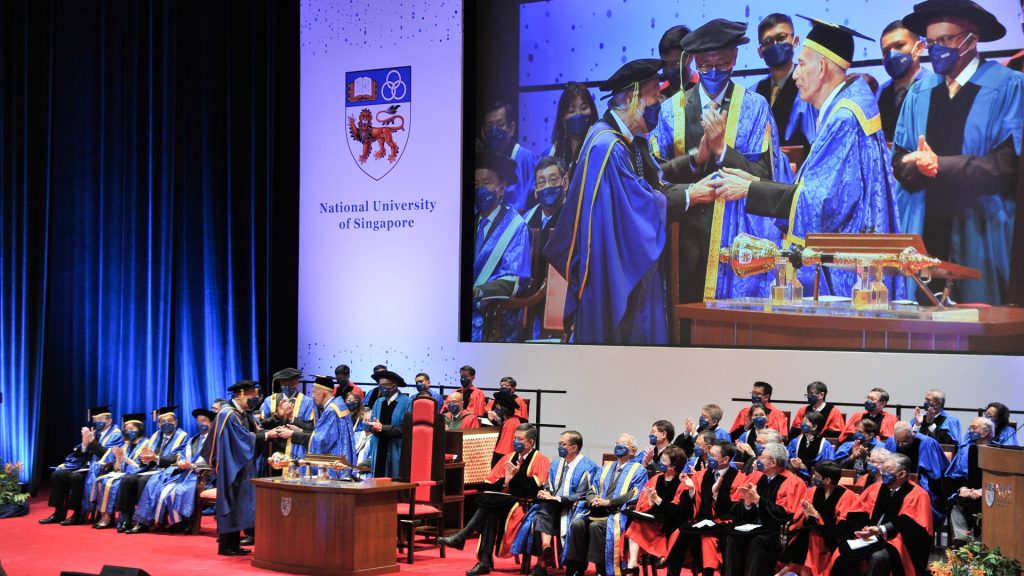
Reflecting on his time as a student of the University in colonial Malaya, Prof Wang said: "You can imagine how happy I am to be a graduand again with my alma mater. The university gave my generation a good start in life. It went on to adapt to the rapid changes of our time. In so doing, it has come out better and stronger."
He spoke about the "inspiring story worth retelling" of how the University had set out and followed its own aspirations, becoming a major centre of learning by being actively connected to the world, as well as regularly reinventing itself.
"The way our university strives to keep our humanity always in our sights is something to be very proud of. I hope that all of us graduating today, no matter where life leads us, will never hesitate to help our university to enhance this capacity to advance our human condition," Prof Wang stressed.
Prof Lionel Wee, Dean of FASS and co-Dean of the College of Humanities and Sciences, who delivered the citation on Prof Wang's conferment, lauded the latter as "an eminent figure and brilliant mind" who has made manifold contributions as a leading figure in Sinology, a renowned public intellectual, and a visionary leader and administrator at leading academic institutions around the world.
"This doctorate symbolises the meaningful connections between Professor Wang and the University, and it celebrates the long-standing contributions and value that Professor Wang's scholarly insights bring to Singapore, to Southeast Asia and, indeed, to the world," he said.
Parsing the Path ForwardInfusing the celebrations with a spirit of introspective gratitude, Valedictorian Mr Nickson Quak, who is graduating with a Bachelor of Arts with Honours (Highest Distinction) in Philosophy, Politics, and Economics said, "As varied as our journeys may have been, each and every one of us graduates here could have only made it thus far because of the unwavering support that our parents, our families, our loved ones, and our friends have so generously afforded us."
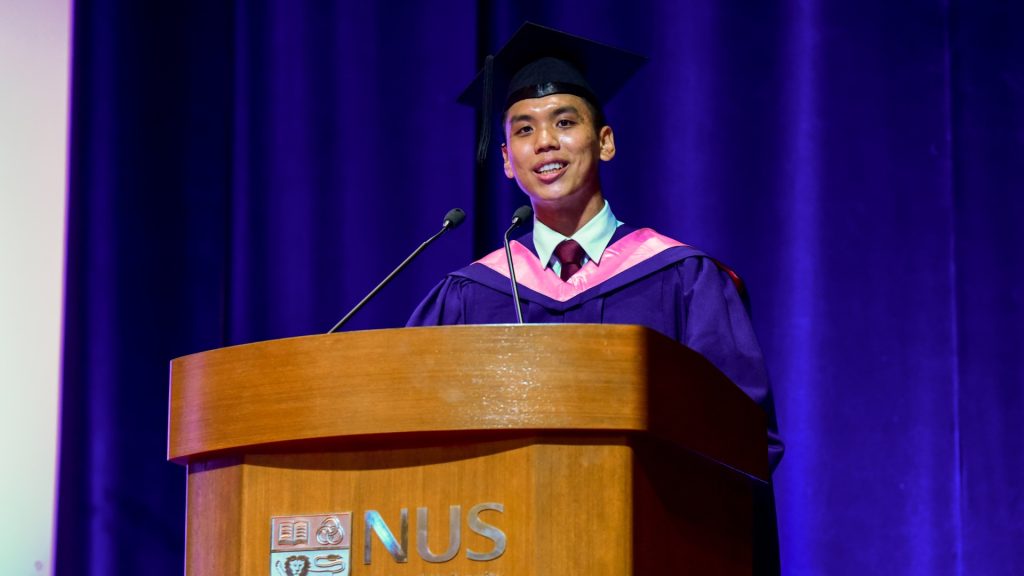
His words further summarised the spirit of determination and community that will carry graduates onwards in their lives: "If [the journey ahead] appears daunting to you, I say to you: fret not… because when you look to your left and your right, you see the resilient men and women who, forged by the challenges brought upon by the global pandemic, will always offer you a helping hand."
This story first appeared in NUSNews on 6 July 2022 as part of NUS News' coverage of Commencement 2022, which celebrates the achievements of our 13,975 graduates through 28 in-person ceremonies. For more on Commencement, look out for our upcoming graduate profiles, check out the official Commencement website, or look up (and tag) #NUS2022 and #NUSFASS on NUS' and FASS' social media channels!
More Than Race: A Comparative Analysis of “New” Indian and Chinese Migration in Singapore

Edible Heritage: Foodscapes and Sensory Heritage Making in Chinatown and Little India

Is filial piety a reliable basis for intergenerational support?

Just Launched: Singapore's South Asian Communities Book and Documentary Series
IN BRIEF | 8 min read
- The NUS Faculty of Arts and Social Sciences (FASS) showcased a series of books and short documentaries that focused on Singapore’s lesser-known South Asian communities at a book launch-cum-documentary screening at the Indian Heritage Centre on 28 May 2022.

The NUS Faculty of Arts and Social Sciences (FASS) showcased a series of books and short documentaries that focused on Singapore’s lesser-known South Asian communities at a book launch-cum-documentary screening at the Indian Heritage Centre today. Titled “Hidden Heritage: Minority South Asian Communities in Singapore”, the series shines a spotlight on the Bengali, Gujarati, Hindustani (the diaspora from the Gangetic Heartland), Tamil Catholic and Telugu communities.
An initiative of the NUS FASS South Asian Studies Programme, the series explores the everyday experiences of these communities and demonstrates the unique and shared historical trajectories and cultural values made while interacting with other ‘Indian’ and non-‘Indian’ communities in Singapore; sifting the intricate tapestry within the ‘Indian’ ethnic category to unveil the rich heritage of the diaspora. The South Asian communities were chosen for their unique social, historical and cultural characteristics and the series aims to share and shape popular discourse beyond flattened, homogenised imaginations that do not match the histories, learned heritage, or lived realities of many Singaporean ‘Indians’.
The list of five books are as follows (the five documentaries bear the same title):
- Sojourners and Settlers from the Gangetic Heartland: The Hindustani Diaspora in Singapore
- 'Bhadralok’ Connection: The Bengali Diaspora in Singapore
- Being Catholic the Tamil Way or Being Tamil the Catholic Way? The Tamil Catholic Community in Singapore
- Telugus in Singapore: Re-making Diasporic Identities
- Business Connections, Culture and its Continuities: The Gujarati Diaspora in Singapore
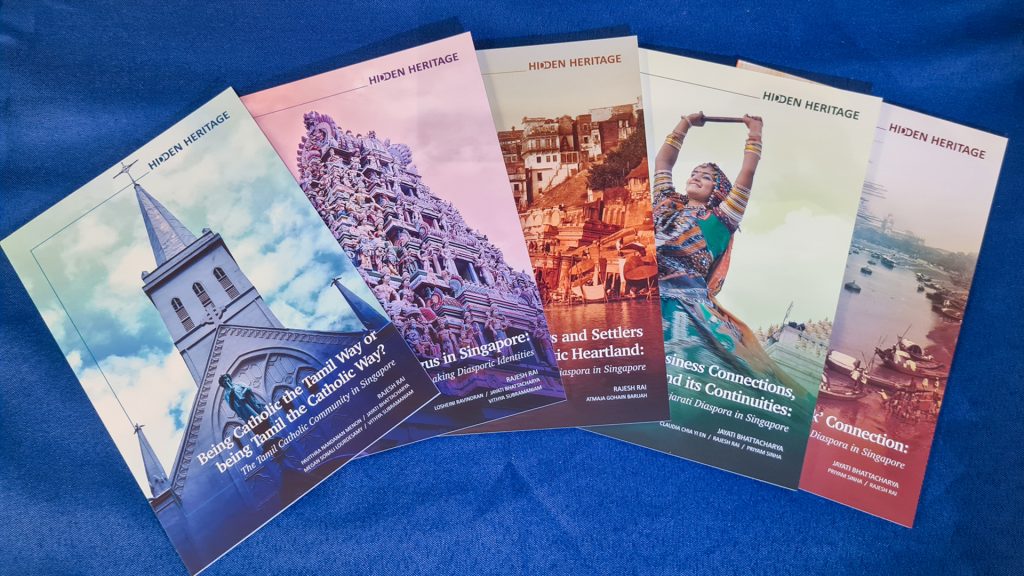
The project is led by Head of the Programme Associate Professor Rajesh Rai, and Senior Lecturer Dr Jayati Bhattacharya, with research and writing support from the Programme’s former and current students. It is supported by the Heritage Research Grant of the National Heritage Board.
Professor Tan Tai Yong, Chairman of the NUS Institute of South Asian Studies and Guest-of-Honour at the event, said, “The Hidden Heritage Series contributes to our understanding of lesser-known South Asian communities in Singapore. Collectively the books and documentaries raise awareness of the intricate tapestry of Singapore’s diverse multicultural society.”
Associate Professor Rajesh Rai added, “A fascinating aspect of this research has been in the unveiling of the immense contribution of these small communities in the historical development of Singapore. At the same time, these studies also draw attention to how their identities have transformed over time in the context of living in a global city.”
The event saw a panel discussion with the authors to introduce the series. This was followed by a screening of the documentaries. The event was attended by distinguished members of the local Indian community, guests from the Indian Heritage Centre and National Heritage Board, as well as representatives from FASS.
Book copies will be distributed to the National Library with the documentaries used as a teaching aid for NUS students. The Programme is planning to produce a second series that will focus on five other minority South Asian communities in two years’ time.
Click here for the synopses of the books and documentaries.
This article first appeared in NUSNews on 28 May 2022.
#ICYMI: FASS@CHS Open House 2022 — View On Demand Here!
IN BRIEF | 3 min read
- If you missed the NUS College of Humanities Open House 2022, worry not. All the talks and engagement sessions of 11 and 14 May are available for your viewing on-demand here.
Prospective students considering their offer but have missed the NUS College of Humanities Open House 2022 do not have to worry about missing out on information and insights they may need to make their decisions.
All the talks and FASS@CHS engagement sessions listed below are available for your viewing on-demand here or at https://bit.ly/FASSatCHSOH2022.
NUS CHS Open House 2022 Online (11 May 2022)
- Introduction to CHS, CHS Core Curriculum, Student Experiences & Learning Pathways
- Experiential Learning & Career Preparation, and Student Leaders Sharing
- BES-XDP (Bachelor of Environmental Studies Cross-Disciplinary Programme)
- DSE-XDP (Data Science and Economics Cross-Disciplinary Programme)
- PPE-XDP (Philosophy, Politics, and Economics Cross-Disciplinary Programme)
Introduction to CHS
Experiential Learning, Career Preparation, Student Leaders
BES-XDP
DSE-XDP
PPE-XDP
South Asian Studies
Education@FASS Depth, Diversity, and Difference I (11.30–1200)
Communications and New Media
Languages
Chinese Studies
Education@FASS Depth, Diversity and Difference II (1430–1500)
Anthropology
Economics
FASS@CHS Open House 2022 On-Campus (14 May 2022)
- The CHS Common Curriculum: FASS@CHS Integrated Modules
- South Asian Studies
- Education@FASS: Depth, Diversity & Difference I (11.30 am -12.00 pm)
- Communications and New Media
- Languages
- Chinese Studies
- Education@FASS: Depth, Diversity & Difference II (2.30 -3.00 pm)
- Anthropology
- Economics
NUS CHS Open House 2022: Discover #Interdisciplinary Education!
IN BRIEF | 5 min read
- The NUS College of Humanities and Sciences is hosting its Open House 2022 next week and all prospective students who have received offers are invited!
- A two-day hybrid programme – 11 May on Zoom (and viewable on CHS’ Facebook page) and 14 May on several locations across the NUS Kent Ridge campus, specifically the areas around the Faculty of Arts and Social Science (FASS), and the Faculty of Science (FoS) – CHS Open House 2022 aims to address all concerns a prospective undergraduate may have before committing to academic at the University and College.
- Highlights include opportunities to engage, discuss and explore academic pursuits, career development and student life at the College with key faculty and administrative staff and leadership — live and in person.

The NUS College of Humanities and Sciences is hosting its Open House 2022 next week and all prospective students who have received their offers are invited. As the deadline for them to accept their offers is looming, CHS has put together a programme aimed at answering all the questions they may have and clarifying all their concerns as much as possible.
Marking a cautiously calibrated return of the University to the normalcy of hosting large on-site events, this year’s CHS Open House is a two-day hybrid programme: 11 May on Zoom (and viewable on CHS’ Facebook page) and 14 May on several locations across the NUS Kent Ridge campus, specifically the areas around the Faculty of Arts and Social Science (FASS), and the Faculty of Science (FoS).*
11 May 2022 (Wednesday): The Essentials, OnlineThis a series of comprehensive information sessions (on Zoom and livestreamed on Facebook Live) covering everything new undergraduates need to know to get the most out of their education journey with CHS, including the:
- CHS Core Curriculum
- College’s three challenging but rewarding cross-disciplinary programmes
- Data Science and Economics (DSE-XDP)
- Environmental Studies (BES-XDP)
- Philosophy, Politics, and Economics (PPE-XDP)
- myriad Learning Pathways laid for you
- versatile career development programmes designed to prepare you for the future workplace
- CHS Student Experience—eye-opening and busy, yet energising and enriching
Speakers and panelists include CHS Co-Deans, Vice-Deans, key faculty staff members, career preparation and student services leader.
For more information and links to the 11 May sessions, click here.
14 May 2022 (Saturday): Get Personal, On CampusThe College is calling for prospective students to come on site, visit where they could well be spending their undergraduate years very soon, and speak to their future instructors and potential mentors. The full-day programme – running in key FASS and FoS locations across the NUS campus – offers:
- entry to witness and even participate in talks/lectures and panel discussions presented and hosted by award-winning instructors on a variety of academic subjects, interdisciplinary topics and specialised research areas
- face-to-face engagement with faculty, admin and student representatives from ALL Departments and student organisations under CHS, and opportunities to explore academic, financial aid and student activity options with the people in the know
- consultation with the career development teams of CHS
- guided Walking Tours across the facilities of FoS and FASS
For more information on the activities planned for 14 May, click here.
Discover Your #Interdisciplinary Future @ CHSThis Open House is the last chance for prospective students to learn more about the complete #interdisciplinary educational experience that they can expect at CHS. One that opens up a world of possibilities and equips them with skills and knowledge across the humanities, social sciences, physical sciences and applied sciences. One that inspires, cultivates and prepares them to work across diverse industries and sectors, with multidisciplinary teams, to solve some of the most complex wicked problems facing the world today — from social inequality to food shortage, unsustainable development and global warming. And one that grooms them to be the leaders of public institutions and private enterprise tomorrow.
* Campus shuttle bus services will be made available on 14 May to all visitors for easier movement across campus, which extends to Kent Ridge MRT.
Fostering Neighbourliness through Public Housing in Singapore
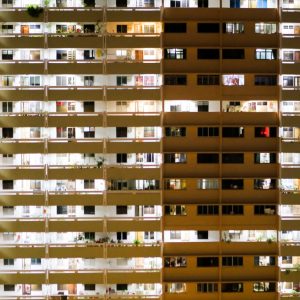
A Class of its Own
IN BRIEF | 15 min read
- United through shared memories and passions, the Class of ’72 — and their close long-time friends — continues to give back to the NUS community, 50 years since their graduation.

THE GOLDEN GANG Fifty years is a long time to stay together: long enough to see one another go through trials, tears and triumphs. But for members of the Class of ’72 — an extraordinary cohort straddling four to five years (to include those who graduated a few years before and after), and first brought together on the Bukit Timah campus — the camaraderie only grows stronger with time.
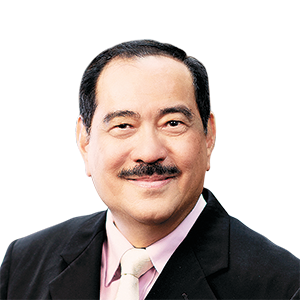
Associate Professor Victor Roger Savage (Arts and Social Sciences – Geography ’72)
Visiting Senior Fellow, S. Rajaratnam School of International Studies; former Director, NUS Office of Alumni Relations (2013-2016)
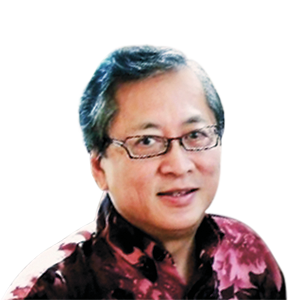
Dr Loh Hong Sai (Dentistry ’72)
Former Dean, Faculty of Dentistry
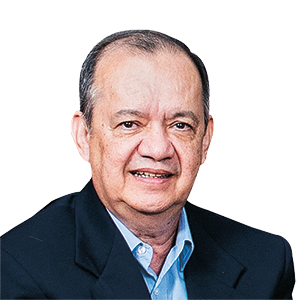
Mr Roy Higgs (Science ’72)
CEO, NUS Society
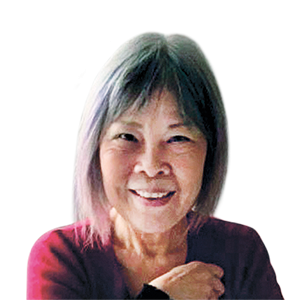
Ms Juliana Patricia Lim (Arts and Social Sciences – Sociology, ’73)
Former Director of Community Affairs, Singapore Pools; Art Advocate
WHAT ARE YOUR FONDEST MEMORIES OF YOUR DAYS AT THE BUKIT TIMAH CAMPUS, AND WHAT DO YOU THINK BONDED THE MEMBERS OF DIFFERENT SCHOOLS TO BECOME ONE UNITED COHORT?
Juliana Patricia Lim: For me, the memories largely centred around music. By the time I joined NUS, there was already a very established tradition of a weekly folk song session held in one of the lecture theatres, when our batchmates Archie Ong and Andrew Liew would pick up a guitar, and all of us would join in singing folk songs like the melodious ‘Blowin’ in the Wind’ and ‘If I Had A Hammer’ that were made popular by Joan Baez and Bob Dylan. This was the era of the Vietnam War and these were American protest songs, but for us they were just nice songs of the time. We first bonded over music, and never stopped singing since — well, except during the pandemic.
Roy Higgs: You can say that the whole thing started off with friendship and links that we established on the Bukit Timah campus. While Hong Sai, as a Dentistry student, would have been at the Sepoy Lines, the Architecture school was at Lady Hill, and Engineering where Singapore Polytechnic was, at Shenton Way, the Bukit Timah campus was the central core of multiple faculties, and where students would go to for cross-faculty classes. It was also where Eusoff College, Raffles Hall and the Dunearn Road Hostels were located, so while it was a small campus, it was a gathering ground for students across faculties.
The central meeting places were where the food and drinks were. We had a few canteens: one behind the academic staff canteen; one at Union House, which was a focal meeting point; and another at the Guild House at Dalvey Road. At the former Guild House, we, the students, might go for lunch and end up being kindly treated to drinks by the members there. I still remember one of the past presidents buying us beer and lunch. That was the culture then: anybody could go in and be welcomed. And these friendships then grew into professional ties as we went out into the workforce.
Loh Hong Sai: Dentistry students did our first year at Bukit Timah campus, before we joined our seniors at the Sepoy Lines campus in Singapore General Hospital. Even when we were at the Sepoy Lines, some of us would return to Bukit Timah campus occasionally to visit classmates still staying at Raffles Hall, listen to rallies and feel the nostalgic atmosphere again. Bukit Timah campus was where there were carnivals and festivals, and a more holistic campus life. The students then were politically sensitive and activated, and there would be many speeches made. Whenever we had time, we at the Sepoy Lines would say: “Let’s go to Bukit Timah, have a beer and listen to the students there!”
There were good memories — such as studying in the Law Library, which was cool, spacious and where the pretty girls were. There were also frightening episodes: freshmen would have to wear a green tie during Orientation Week and we were constantly picked on by the Arts students. There was a popular senior who was a king ragger and I was caught by him at Newton Circus, where I was hoping to have a quiet lunch by myself. He bought me lunch, but I had to eat it sitting on the floor, being fed by two girls who were with him! Subsequently I lost a day of dental class because I had to take lecture notes for him. I guess this is the humility you need to have to become a doctor! (Laughs) But it was all in good fun, and he would look out for me later on, too. The academic side of our dentistry course was very tough but it is the friendship that sticks in our minds. Our generation largely came from humble beginnings, and we worked our way up — our mentality and the way we bonded with our peers were very different from students today. We also had a lot of Malaysians within our cohort, and they had very strong bonds, looking after one another, being away from home. They also extended their friendship to us and to this day, some of my best friends are the Malaysians I met at NUS.
Victor Roger Savage: Bukit Timah was the citadel of the spirit of the Class of ’72. Those from the Science, Law and Arts schools formed the central core of the Student Union, but the halls of residence — Raffles, Eusoff and Dunearn — were where you would find the true cross-faculty bonds. Sixty per cent of the residents at Raffles Hall were Malaysians, and that was — as Hong Sai said — very important. But it was also due to the spirit of the generation. The post-war generation was highly creative. If you just look at the pop scene in Britain and America, we had bands such as The Rolling Stones, The Beach Boys, The Beatles... we were part of this generation. Among our cohort, you would find a lot of interesting and creative people: good writers, cartoonists and photographers.
There were pranks and anti-war demonstrations which bonded us. We were also brought together by studying late into the night and going to the sarabat stall at 3am. There was also ragging, which wasn’t condoned by the University, but it bonded seniors and freshies — and many a senior-freshette pairing would go on to get married! Orientation was also a time when we organised many amazing things. I was involved in putting together big concerts at the National Theatre, featuring artistes from all the nightclubs in town, from Filipino to American bands. We even had a revolving stage which allowed the seamless changing of sets. While the freshmen were given tickets to the concerts, the rest were sold to the public, with the proceeds going to charity.
Our generation largely came from humble beginnings, and we worked our way up — our mentality and the way we bonded with our peers were very different from students today. — Dr Loh Hong Sai
WHAT ARE SOME OF THE BIGGEST ACHIEVEMENTS OF THE CLASS OF '72?
Victor: We certainly raised a lot of money for charity. On Rag and Flag day there would be a float competition, and the Arts students put up the worst floats, with nothing but us on the lorry! (Laughs) I also remember a car rally. Raising money for the underprivileged was an important cause for us; there was even a work camp during which the students might build a road or do something for the rural community. It wasn’t just fun and games, but something close to the hearts of many, for most of us came from underprivileged homes. Among the students who stayed overnight to study at the library, some did so because there was no place for them to study at home. Yet there was great generosity among the cohort: Chinese New Year always fell during the exam period, and those who went home for celebrations would always bring food back for all at the library to share. It was very touching because they shared even when they had so little, and were selfless in spreading the spirit of joy.
Juliana: For me, one of the more important initiatives created was the Class of ’72 Bursary – James Lim Teck Liang Bursary introduced in May 2011. On my own I wouldn’t have been able to fund a bursary in my father’s name, but with this sub-bursary I could do so, and dedicated it to social work. And through the bursary, I saw financially-disadvantaged students developing into confident young professionals.

WHAT ARE SOME OF THE BIGGEST ACHIEVEMENTS OF THE CLASS OF '72?
Victor: We certainly raised a lot of money for charity. On Rag and Flag day there would be a float competition, and the Arts students put up the worst floats, with nothing but us on the lorry! (Laughs) I also remember a car rally. Raising money for the underprivileged was an important cause for us; there was even a work camp during which the students might build a road or do something for the rural community. It wasn’t just fun and games, but something close to the hearts of many, for most of us came from underprivileged homes. Among the students who stayed overnight to study at the library, some did so because there was no place for them to study at home. Yet there was great generosity among the cohort: Chinese New Year always fell during the exam period, and those who went home for celebrations would always bring food back for all at the library to share. It was very touching because they shared even when they had so little, and were selfless in spreading the spirit of joy.

A LEGACY OF GENEROSITY
The Class of 1972 Bursary Fund was established by the graduating class of 1972 in Academic Year 2005/2006 and the fund now exceeds $1 million. This fund awards multiple bursaries to needy undergraduate students.Juliana: For me, one of the more important initiatives created was the Class of ’72 Bursary – James Lim Teck Liang Bursary introduced in May 2011. On my own I wouldn’t have been able to fund a bursary in my father’s name, but with this sub-bursary I could do so, and dedicated it to social work. And through the bursary, I saw financially-disadvantaged students developing into confident young professionals.

WHAT ARE SOME TRADITIONS AMONG THE CLASS OF ’72?
Victor: After graduation, we started the tradition of meeting every year. It began with the Arts students, and steadily expanded. Everybody caught on to the idea of meeting, exchanging, bantering and remembering the songs we had — our shared lexicon and an important cement of our bonds.
Juliana: Somewhere along the way, this annual class gathering became Bash @ Bukit Timah Campus in May 2005. It was an emotional moment for the campus to return to NUS and I feel very proud that our humble gathering escalated into an OAR (Office of Alumni Relations) event!
Roy: Some of these events just happened spontaneously, such as our annual New Year’s lunch, which would have lots of singing and would last until 6pm. The group also grew steadily. With many of us retiring and having more time, this number has become close to100 persons.
We were less than three per cent of the total population of Singapore, but we never saw ourselves as elites. We simply took whatever cards we had based on our own circumstances and made the most out of it. — Associate Professor Victor Roger Savage
APART FROM SONGS THAT YOU SHARED, ARE THERE ALSO CAMPUS LEGENDS THAT CONTINUE TO ENTHRALL?
Victor: The campus was said to be haunted, especially the tutorial room in the Oei Tiong Ham Building, which is now part of the Lee Kuan Yew School of Public Policy. Three law students by chance chose to study in the tutorial room near the final exam period and they proved without doubt the room was haunted. According to the one eyewitness who is still alive today, when they decided to take a break and looked up, they saw that all the chairs were floating in the air! All three ran out screaming, attracting the attention of everybody at the Central Library at that point. This incident is something that very few talk about, but it stays with all of us. Today, if you go to the Upper Quadrangle, you will still see a sign put up by the administration stating that the campus is supposed to be haunted and that you might see the ghosts of Japanese soldiers marching by.
Hong Sai: Among the students, there was a lot of naughtiness, but also a lot of goodness. I look at my children and grandchildren: they have a different way of looking at education, friends and life. We went through the grind and appreciated life in a different way.
Victor: Another legendary incident was when one of the students invited Rose Chan (a popular Malaysian cabaret dancer at the time) to Raffles Hall, while the Master of the Hall was away at an overseas conference.The place was packed with some 450 boys. We asked why she accepted our invitation for free and she said: “I know you guys will all become my future customers!”
SATELLITE SCHOOLS
After the split between the University of Singapore and the University of Malaya, classes were run from four separate campuses: Arts and Social Sciences at Bukit Timah, Architecture at Lady Hill, Engineering at Prince Edward Road, and Medicine and Dentistry at Sepoy Lines. On 29 July 1980, Parliament passed the National University of Singapore Bill, and the new university was officially inaugurated on 8 August 1980.
HOW DO YOU THINK THIS DIFFERENCE AFFECTS THE WAY UNIVERSITY STUDENTS BOND TODAY?Juliana: We were very innocent. They have social media; they know so much more about the world than we did. I don’t remember having any ambition: I was just a drifter enjoying myself.
Victor: Tertiary students accounted for less than three per cent of the total population of Singapore, but we never saw ourselves as elites. We simply took whatever cards we had based on our own circumstances and made the most out of it. Today, with 30 per cent of the population with degrees, the competition is very different.
Hong Sai: Having taught at the University, I have seen changes in the thinking and ambition of youths over four decades. I get the feeling that the younger generation focuses more on their own welfare rather than that of others. University education is also becoming more profession-centric, with more emphasis placed on setting a student on his or her career path than developing their characters and grooming them as individuals.
HOW DO YOU THINK CAMARADERIE CAN BE FOSTERED AMONG STUDENTS TODAY?Hong Sai: At OAR, the philosophy adopted was that the first-year students are already treated like alumni, and some were appointed as Student Ambassadors to promote bonding through activities and graduate events in which they were invited. We wanted them to feel like part of the alumni family to inculcate a sense of belonging and attachment. This is done through engaging them in activities and placing them in societies. Most faculties also have a mentorship scheme where freshmen are grouped with seniors and they continue to bond over the next few years.
Roy: I am sure friendships and links will always be there among students, but the difference between the Bukit Timah days and now is the size. We were a campus of around 14,000 at Bukit Timah. In comparison, Kent Ridge is such a big campus, and its topography — North, East, South, West, all cut off from each other — means that students would segmentise into small groups. That said, within Kent Ridge, UTown is a place that offers some semblance of the social interaction we had. There are halls, dining facilities, lecture halls, places to gather — that was how it felt to be on campus. That’s a good starting point. And if we can replicate the success at UTown to recreate something where the arts, science and medical faculties are, there is potential to allow for students to naturally gather.
Victor: Having overseas exchange students studying here also helps to give our local students a perspective of what it means to be an undergraduate. Our students are too focused on academic work, studying, and their careers. Rather than soaking up the atmosphere of learning and discourse, or even just having fun, they are more obsessed with grades. Also, many of our students feel like they don’t owe anybody anything. But in Ivy League universities, 60 to 70 per cent of each student’s tuition fees is paid for by alumni, and the students are made aware of this right at the beginning. The awareness that their alumni have been donating money to their benefit creates a kind of alumni spirit. It sets the tone for the deeply-embedded relationship between alumni and students, and also inspires the younger generation to contribute to the school and the welfare of future cohorts when they graduate. Hopefully with more NUS alumni modelling this act of giving back, our young students will also follow suit.
This article was written by Koh Yuen Lin, and first appeared in The AlumNUS (Issue 129, Apr-Jun 2022).
As part of their 50th Anniversary Celebrations, the class hopes to raise at least $250,000 for the Class of 1972 Bursary Endowed Fund through a Charity Golf on 1st July and a Nostalgic Bash@BTC on 3rd July. For more information, please contact Mr David Ho (Arts and Social Sciences ’72) at davidhomail@gmail.com.
Emerging class circles amid fading racial lines
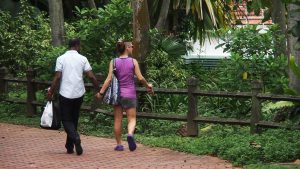
Sixteen NUS Programmes in Global Top 10
IN BRIEF | 5 min read
- Programmes include those from Arts and Social Sciences, Computer Science, Design and Engineering and Science – demonstrating the University’s strengths across its different colleges, faculties and schools, according to the latest Quacquarelli Symonds (QS) World University Rankings by Subject.
- FASS courses among the World's Top 10 (in their respective subject areas) include Anthropology, Geography, Linguistics, Politics & International Studies, and Sociology.

Sixteen of the University’s academic programmes have been placed in the top 10 worldwide, according to the latest Quacquarelli Symonds (QS) World University Rankings by Subject.
These programmes include those from Arts and Social Sciences, Computer Science, Design and Engineering, and Science – demonstrating the University’s strengths across its different colleges, faculties and schools.
“We are delighted that NUS continues to be among Asia’s best universities. We are in the top 10 in 16 subject areas in the QS World University Rankings by Subject 2022. NUS is also in the top 10 in two (of five) broad categories - Engineering & Technology and Social Sciences & Management - in the same rankings,” said NUS Senior Deputy President and Provost Professor Ho Teck Hua.
“This is high international recognition of our world-leading faculty, talented students, staff and alumni, and will serve as strong encouragement for all of us at NUS."
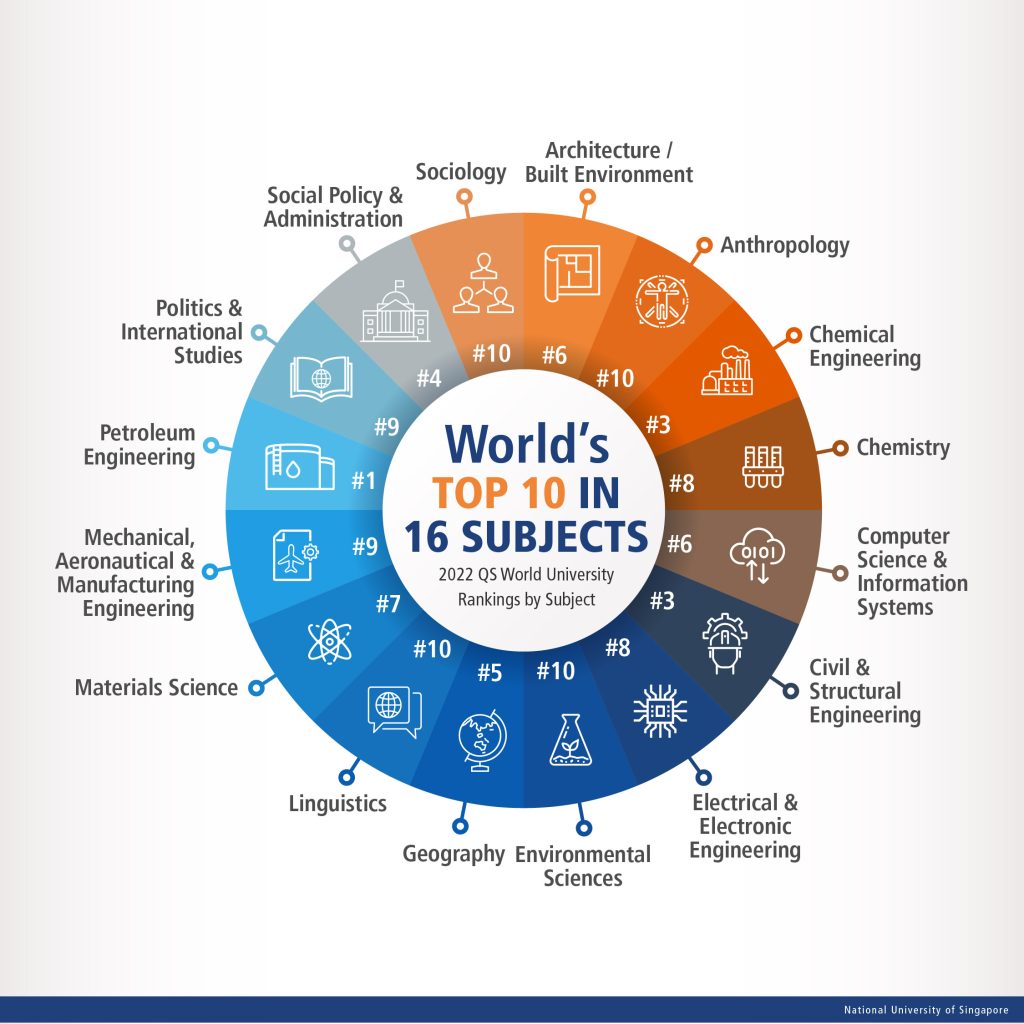
NUS takes pole position as Asia’s best university, sharing the top spot with the University of Tokyo. Both universities have 37 programmes ranked in the top 50.
The QS rankings provide independent comparative analysis of the performance of 15,200 individual university programmes at 1,543 universities across the world. The programmes are across 51 academic disciplines and five broad faculty areas.
“The consistent improvements made by Singaporean institutions in our rankings result from a decade of investment and strategizing,” said Mr Ben Sowter, Research Director at QS.
He noted that NUS has the largest endowment of any university in Asia today. “Advantaged by this long-term preparation for their financial futures and by a relentlessly international outlook, Singaporean higher education is going from strength to strength,” added Mr Sowter.
Education to prepare students for a post-pandemic worldGraduates are expected to be agile and adaptable in the post-pandemic world order. In training students to connect the dots across diverse disciplines, NUS has embarked on educational innovations centred on interdisciplinarity and experiential learning.
The establishment of the College of Humanities and Sciences and the College of Design and Engineering has allowed NUS to deliver future-focused interdisciplinary education at scale, while offering students flexibility to pursue multiple pathways and specialisations. The result: an education that offers both breadth and depth.
This will be reinforced with the inaugural intake at NUS College – Singapore’s first undergraduate honours college – in the new academic year. The college will welcome a diverse community of students from across 50 majors including Humanities and Sciences, Engineering, Environmental Studies, Business, Computer Science and Law. These undergraduates will come together to pursue experiential and interdisciplinary learning in an immersive residential environment.
This article first appeared in NUSNews on 6 April 2022.
When Ties Run Deep
IN BRIEF | 5 min read
- Celebrated alumna Ms Violet Oon (Political Science and Sociology, ’71), relates how her association with the University spans across generations and is very much intertwined with her own family history.
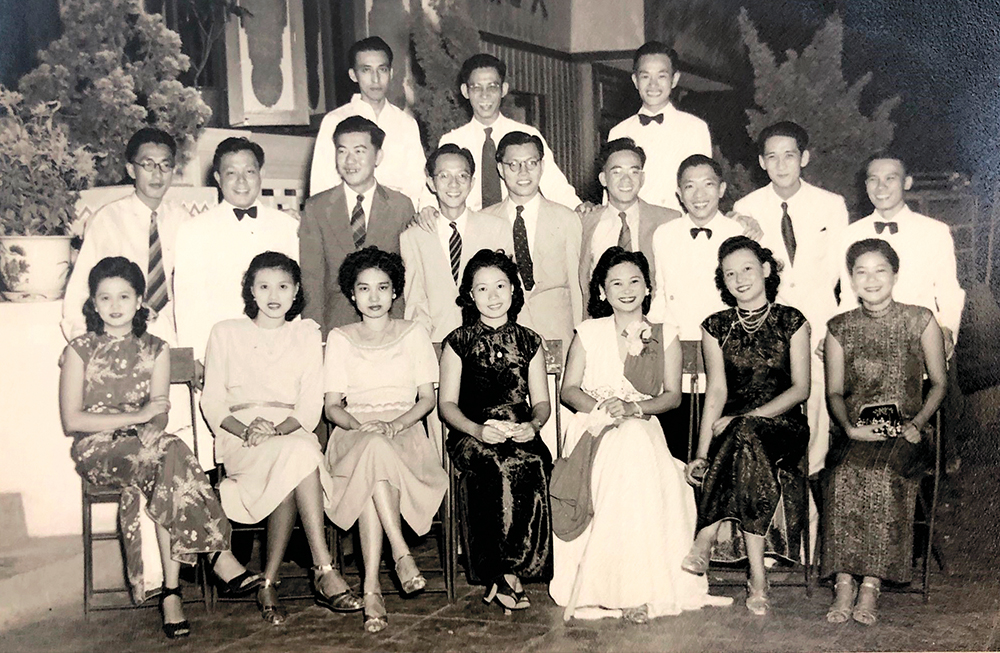
When I was a teenager, my father casually commented one day as we drove through Club Street, “We used to live here when I was a child – my grandfather Mr Oon Cheng Lock used to gamble on behalf of the towkays in the Gentlemen’s Clubs along this street and he made good money.” Intrigued, I asked what that meant. My late father said, “You know, like Rhett Butler in Gone with the Wind – he kept 10 per cent of the takings.” He jested that it was the spoils of the table that put two sons through King Edward VII Medical School in the early 20th century. Was this true or false? I am not certain, but I much prefer this whimsical account, which entwines three generations of Oons – my grandfather, my father and I – with the long history of today’s National University of Singapore (NUS).

I think that few early families can lay claim to three generations of graduates from NUS, a family history spanning over 60 years. My grandfather Dr Oon Kock Tee (also known as Oon Kok Kee) and his brother Dr Oon Sim Kong graduated with Licentiates in Medicine and Surgery from King Edward VII Medical School in 1916 and 1917 respectively. Memories of my paternal grandparents were retold as tales from my father. “Your grandfather used to run a clinic at North Bridge Road, opposite the original location of Islamic Restaurant,” my father shared, “He was perhaps the only doctor who was unable to ‘make money’.” According to my father, my grandfather soon went on the high seas to become a ship’s doctor, leaving my grandmother in Singapore to fend for their growing brood of children on very little money. Whenever he docked back in Singapore, another baby was soon on the way.
In October 1928, my grandfather, who was part of the Chinese Medical Students’ Union, with 50 other doctors, all graduates of King Edward VII Medical School, attended a dinner in celebration of the 17th anniversary of the Republic of China, at the then-Garden Club. This was featured in The Straits Times.

The story continues when my father, Mr Oon Beng Soon (Arts ’46), entered Raffles College in 1939. Raffles College was the hallowed institute of learning of Singapore and Malaya when he enrolled as a student. In 1928, 43 students had enrolled when Raffles College opened. I discovered only recently that Raffles College produced a total of just 573 graduates from that enormous building at Bukit Timah Road. On 8 October 1949, Raffles College and King Edward VII College of Medicine merged to form the University of Malaya.
My father’s classmates — who included the late Mr Lee Kip Lee (Arts ’46), the father of Singaporean cultural icon Mr Dick Lee — skipped Final Exams due to World War Two. They were both later awarded War Diplomas in Geography from Raffles College.
Geography was my father’s favourite subject. One day, he nostalgically recalled, “Just before the fall of Singapore to the Japanese in 1942, the [then-]Head of Department, Professor Ernest Henry George Dobby, brought his favourite Geography students, Robert and I, to India to escape the Japanese.” My grandfather eventually passed away in Ceylon (now Sri Lanka) in 1945. My father, then in India, brought the ashes of Dr Oon Kock Tee back to Singapore. The happy wanderer finally came home to roost. Was the love of Geography and wanderlust part of the Oon DNA? Perhaps. My father’s career as the first local executive in the Royal Dutch Shell company meant that his job brought us to many postings, from the neighbouring areas of Malacca, Kuala Lumpur and Jesselton (Kota Kinabalu today), to a posting in London in 1961. Although we looked forward to our moves as we traversed Britain, France and Spain, we always came home to Singapore
My father and his friends formed the Topsy Turvy Club (TTC), and they had lots of fun and were up to hijinks while in college, just the way we would go on to have fun as students in the late 1960s. During World War Two, Raffles College was turned into a medical facility and was the Japanese army’s headquarters in Singapore, later reverting to a school of higher learning after their surrender. Two buildings stand sacrosanct in my own Singapore memories – King Edward VII College of Medicine, in the Singapore General Hospital grounds; and the Bukit Timah Campus, which was my father’s and my home for many years. It was a joyous day when the Bukit Timah campus was announced to be returned to the National University of Singapore in 2005, architecturally intact and where I had walked through the same hallways and quadrangles as my father.
What an exciting history my campus at Bukit Timah and my grandfather’s campus in the Singapore General Hospital grounds have had. They produced an admirable harvest of graduates — from doctors, to statesmen and heads of country mid-century — Mr Lee Kuan Yew (’41), our first Prime Minister, known as the father of modern Singapore; and the brilliant economist Dr Goh Keng Swee (Arts ’39), who served as Singapore’s second Deputy Prime Minister. There were also notable names across the pond, such as Dr Mahathir Mohamad (Medicine ’54), former Prime Minister of Malaysia, to a flowering of intellectual talent in the 1960s and 1970s – Ambassador Chan Heng Chee (Arts ’64), Professor Tommy Koh (Law ’61) and Professor Kishore Mahbubani (Arts and Social Sciences ’71), to name a few. The list goes on and on.
The students of our institutes of higher learning in Singapore not only had brains but also a deep capacity for, and interest in, the wider world. From the date that King Edward VII College of Medicine was launched in 1905 – our men and women showed that they were people of substance, from the interest of the doctors at the aforementioned 1928 meeting to celebrate the Chinese Republic till today. This is important to know as NUS has consistently pulled its weight to rise as one of the best universities in Asia, and in the world.
In 1971, following the footsteps of two generations before me, I graduated from the Faculty of Arts and Social Sciences in the then-University of Singapore with a Bachelor’s degree in Political Science and Sociology, in spite of the fact that as a tribute to my father, I had taken Geography classes in my freshman year. While I loved it, I was unable to sustain my interest in the subject as my mind drifted off to sleep as soon as the curtains were drawn close, leaving the lecture theatre in darkness as the lecturer projected the slides on screen
An Emotional Homecoming
King Edward VII College of Medicine is of special poignancy to me as I was warded at the Singapore General Hospital (SGH) for five weeks after suffering a stroke in June 2014. While being treated there with great care, I pondered each day, that just across the road was the college where my grandfather had studied to be a doctor, and I could channel his presence by my side as I slowly healed. This was where my grandfather had learnt to heal others with a similar affliction, and it is of great meaning and sentiment to me that my hospital of choice till today is SGH.
The College of Medicine Building, located within the grounds of SGH, resembles a classical Greek building, with a colonnade of 12 Doric columns, 11 large sculptured timber doors, and allegorical bas-relief sculptures depicting the teaching and practice of medicine (Teo, 2005 as cited in Tan, 2005). Above the central doorway is a Roman eagle crowned with a wreath, a classical symbol that signifies a civil or official building (Teo, 2005 as cited in Tan, 2005). I am also heartened to know that this hallowed building — which is part of the fabric of my family — has been conserved as a national monument and will always remain just the way it was on the outside, when my grandfather first walked through those doors.
When night fell, the hallowed edifice of Grecian columns opposite my hospital ward lit up, seemingly illuminated as a beacon of hope. One particular evening, there was a Mariachi band from South America which performed in the courtyard facing the Medicine building. As patients in wheelchairs, myself included, were wheeled into the courtyard, the band played to the background of the dramatically-lit College of Medicine. I wistfully recalled that my father loved the pulsating beats and sounds of Latin music. As I sat under the stars, enjoying music that touched his heart — against the backdrop of the medical school that my grandfather had studied in — I could feel the souls of three generations of Oons resonate in that starry, starry night.
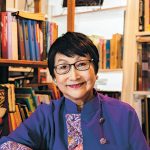 Ms Violet Oon is a food critic, chef-restaurateur, consultant, cookbook author and authority on Peranakan and Singapore cuisine. Ms Oon first made her name as an Arts and Music Critic as well as a food columnist in the 1970s and was dubbed Singapore’s food ambassador by the Singapore Tourism Board in the late 1980s. She co-owns the Violet Oon Singapore group of restaurants. Her proudest moment came in 2019 when she was awarded the Lifetime Achievement for Outstanding Contribution to Tourism by the Singapore Tourism Board. Her life’s work has been to curate, collate and celebrate Singapore cuisine.
Ms Violet Oon is a food critic, chef-restaurateur, consultant, cookbook author and authority on Peranakan and Singapore cuisine. Ms Oon first made her name as an Arts and Music Critic as well as a food columnist in the 1970s and was dubbed Singapore’s food ambassador by the Singapore Tourism Board in the late 1980s. She co-owns the Violet Oon Singapore group of restaurants. Her proudest moment came in 2019 when she was awarded the Lifetime Achievement for Outstanding Contribution to Tourism by the Singapore Tourism Board. Her life’s work has been to curate, collate and celebrate Singapore cuisine.
This article first appeared in The AlumNUS (Issue 129, Apr-Jun 2022).
It's Not a Bad Thing to Think Through and Craft Text Messages
IN BRIEF | 5 min read
- Final-year NUS Sociology student Natalie Tan argues that it ought not to be considered a bad thing for one to take the time to think through and craft text messages, in this CNA Online opinion piece.
Read Natalie Tan's piece in CNA Online, 27 March 2022.
This article first appeared on NUSNews on 27 March 2022.
Open House 2022 Engages and Excites
IN BRIEF | 30 min read
- The ever-popular NUS Open House hit new heights this year, attracting over 8.61 million visitors – a 26.2 per cent increase from the 6.83 million visitors that attended last year's online Open House.
- From 26 Feb to 5 Mar, visitors crowded the websites, livestreams, webinars and social media sessions hosted by the University's colleges, faculties and schools. There was something for everyone, and the event covered everything from academic courses to student life and entrepreneurship programmes.

The ever-popular NUS Open House hit new heights this year, attracting over 8.61 million visitors – a 26.2 per cent increase from the 6.83 million visitors that attended last year's online Open House.
From 26 Feb to 5 Mar, visitors crowded the websites, livestreams, webinars and social media sessions hosted by the University's colleges, faculties and schools. There was something for everyone, and the hybrid event covered everything from academic courses to student life and entrepreneurship programmes.
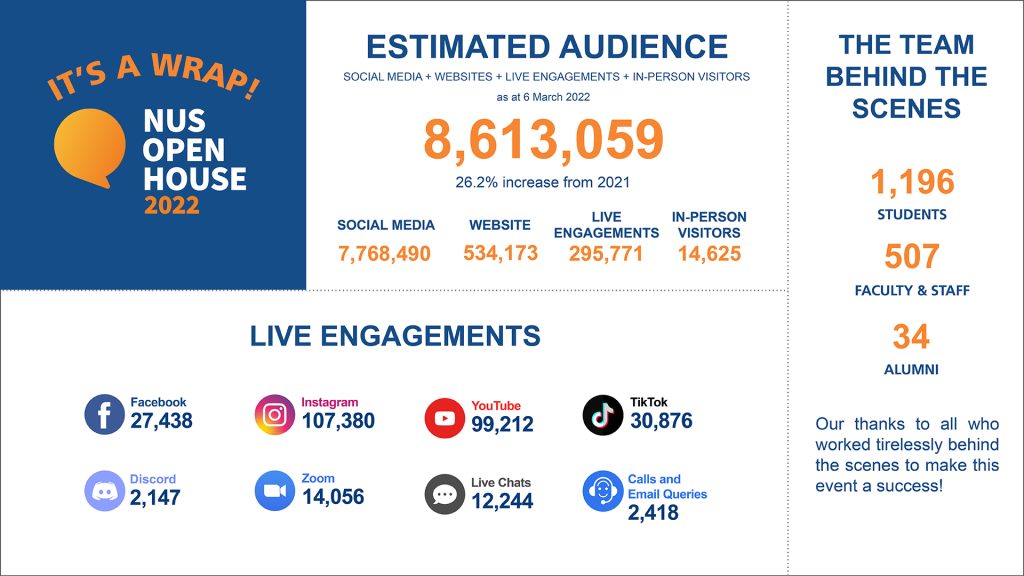
While much of the engagement happened online, prospective students got to meet NUS students and staff face-to-face for the first time since the pandemic started.
The physical Open House, held one sunny Saturday on 5 Mar, included numerous booths showcasing the University’s wide-ranging academic options and vibrant student life; sample classes and talks to get a taste of varsity life; and tours of the different colleges, faculties, and schools.
Prospective students gave the hybrid format a thumbs-up.
Joshua Chua, an alumnus of Anderson Serangoon Junior College, appreciated the online sessions and felt the physical Open House was a huge differentiating factor.
“The (physical) Open House really gave me a good image of what living and studying at NUS could look like by virtue of being an in-person event as opposed to it being virtual, so I'm really grateful to NUS and everyone involved for having this opportunity during the pandemic,” he said.
On her part, Hwa Chong Institution alumna Elsie Woo, who attended both the online and in-person sessions, said, “The experience was really welcoming and wholesome, and really exposed me to NUS as a whole.”
Showcasing the country’s first honours college
One of the highlights this year was the NUS College, Singapore’s first honours college. It will accept its first batch of students this year.
Prospective students were treated to online webinars on the College’s distinctive curriculum, its global pathways, and its focus on hands-on experiential learning. In more intimate breakout rooms, staff and student volunteers readily answered questions about student life and academic pathways. By having a home college or faculty – say Business or Science – while simultaneously being enrolled at NUS College, students will be able to get an educational experience that is as broad as it is deep.
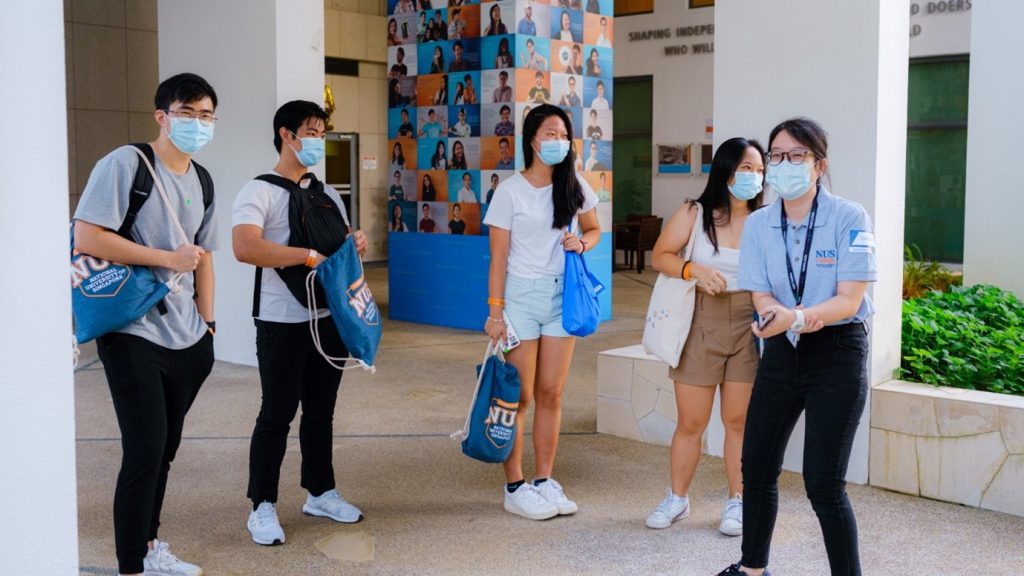
The in-person activities featured a tour of the facilities and residential options that NUS College students would be able to enjoy.
Elsie Woo was one of many students drawn to NUS College’s unique offerings.
“I attended a few webinars, including introductory talks for NUS College and Food Science and Technology,” said Elsie, who also visited many booths in-person.
“The sessions were very well-planned and the seniors were extremely helpful and patient.”
Nanyang Polytechnic alumnus Koh Jin Yuen focused his time on NUS College, attending the College’s guided tour and virtual sharing sessions.
“The NUS College tour was informative as I got to ask the facilitators about their experiences. I think the curriculum is very meaningful,” said Jin Yuen.
“The Open House helped to deepen my understanding of how NUS College works, and allowed me to better understand the lifestyle of a student from NUS College.” He is intending to apply for the Information Systems programme offered by NUS Computing, as well as NUS College.
Ramping up interdisciplinary offerings
Exciting developments in the realm of interdisciplinary education—a major theme that NUS has been championing—were foregrounded at the Open House, with the College of Design and Engineering (CDE) also taking in its inaugural cohort. A result of the merger of the Faculty of Engineering and the School of Design and Environment, CDE is set to transform the NUS educational experience.
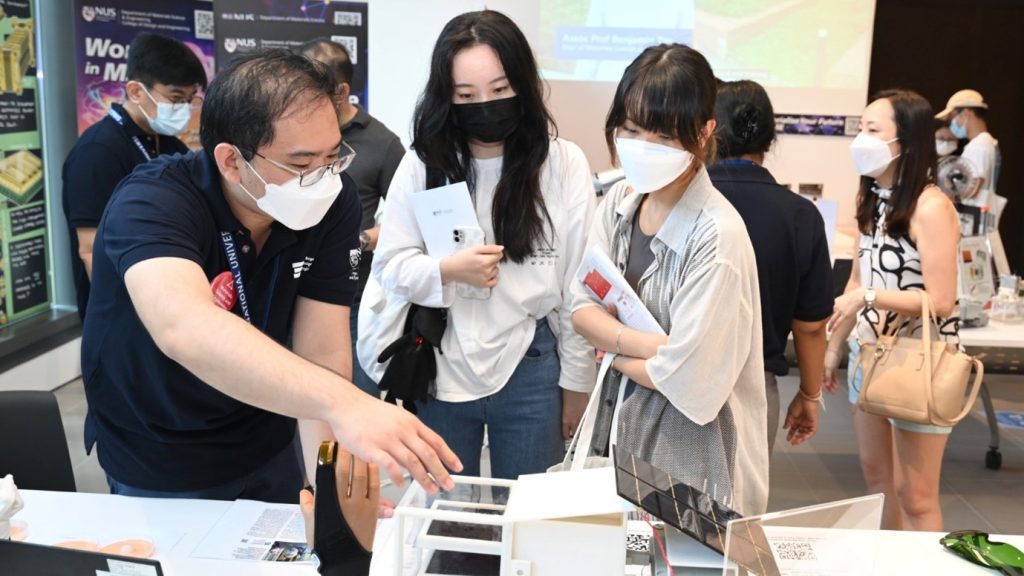
Across five galleries and 19 sub-categories, including Architecture, Industrial Design, Materials Science and Engineering, Biomedical Engineering, and Civil Engineering, visitors were presented with an informative display of the wide range of courses and programmes that will be on offer in the new College.
Raffles Institution alumna Grace Zai, who visited the Designing the Future exhibition and galleries, said, “The Engineering galleries were very informative as I could ask questions I had about the course, as well as student life, and get a clearer picture of what I would be studying and doing. It helped me make a more informed decision on my choices.”
Grace is considering applying to Engineering Science and Architecture, as well as Mechanical Engineering and Electrical Engineering with a specialisation in robotics.

There were also panel discussions, both online and in-person, where faculty and current students interacted with prospective students to share their experiences and answer questions about the new interdisciplinary curriculum.
“As a prospective student, I got to see first-hand the school facilities, as well as the accommodations. My experience was pretty enriching and enlightening because I could ask the professors questions I had in mind and learn more about the courses,” said Timothy Tay, a graduate of Victoria Junior College who visited the SDE gallery on Sustainable Innovations.
“For example, I did not realise Project Facilities Management (PFM) was recently changed to Infrastructure Project Management (IPM). The professor explained that students will now graduate with a BEng degree rather than a BSc degree,” he recalled, referring to the first interdisciplinary full-time undergraduate programme to cover engineering, design, management, technology, building science and law modules.
Information was also available on the vibrant student life of the College’s various clubs and societies, as well as career programmes that enable students to better understand their interests and what it takes to marry that with industry skills and experience.

“The NUS Open House provided me with a more informed perspective on the courses offered in NUS. The various booths set up and run by students allowed for quick chats about what the courses have to offer. The responses by the students and professors were engaging and genuine, which I found informative in making my choice for courses in NUS,” said Kalepu Sai Sri Akshath, who attended CDE’s online and in-person events with his family and is intending to apply to Computer Engineering.
Drone-sensing demonstrations and the Solar Roof Tour, 5G Lab Tour, and BEEHUB Tour further showcased the College’s manifold facilities. Visitors also got a first-hand experience of NUS’ very own net-zero energy building through tours at SDE4, itself a product of both architecture and engineering, and the first of its kind in Singapore.
A marriage of the humanities and sciences
Continuing in the vein of interdisciplinarity and equipping students with a multifaceted, integrated toolbox of skills to thrive in the future economy is the College of Humanities and Sciences (CHS), which will be accepting its second intake this year.
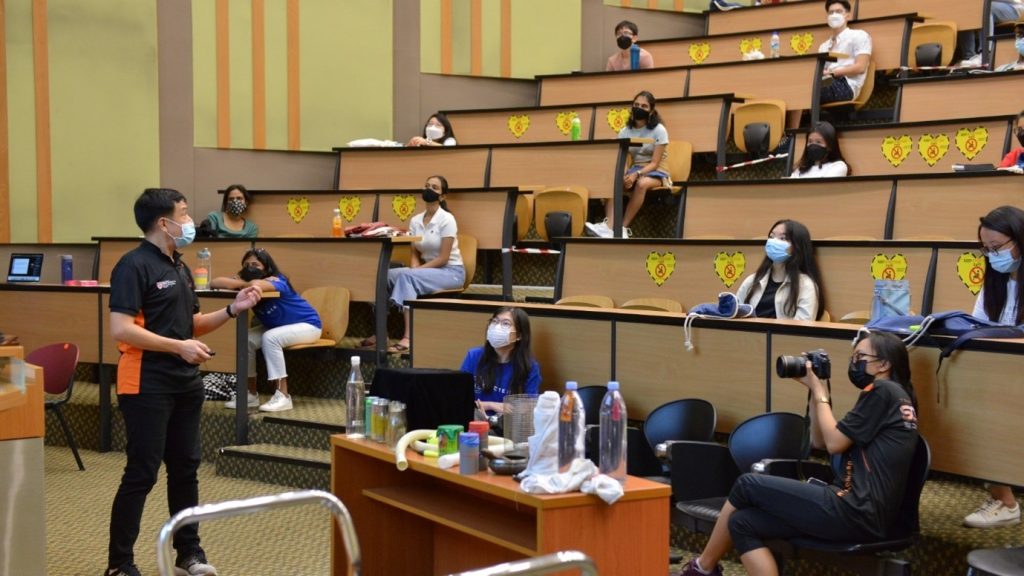
Seminars about the CHS Core Curriculum were available at the Open House, as well as informative masterclasses that covered a vast range of interdisciplinary topics.
The Data Science and Economics masterclass saw Assoc Prof Lim Tiong Wee and Assoc Prof Chen Ying (Statistics & Data Science, Faculty of Science) and Dr Denis Tkachenko (Faculty of Arts and Social Sciences) break down the complexities of the digital economy with real-life examples, and explicate its relevance to Singapore’s Smart Nation goals.
The new Data Science and Economics (DSE) cross-disciplinary programme will be the first of its kind in Singapore to integrate knowledge across these two disciplines.
“I got to understand how data science and economics complement each other,” said Russell Hor, a graduate of St. Joseph's Institution who has finished National Service and is enrolling in CHS this year.
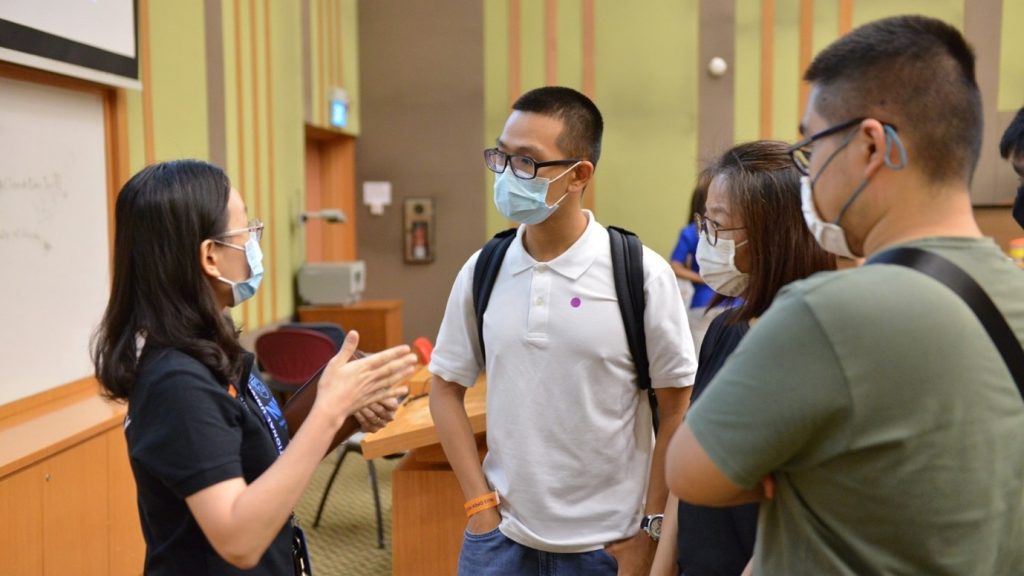
Vanille Goh, who graduated from Anglo-Chinese Junior College and attended the Geography and Environmental Studies masterclasses, said, “[The masterclasses] provided me with a good overview of how passionate the lecturers were and how each course will adequately prepare me for what I would want to do in the future.”
Nanyang Junior College alumna Wen Xinyue also appreciated the in-person masterclasses, adding that they gave her a first-hand glimpse into studying humanities at the university level.
“I am interested in studying English, and from the English Language and Literature masterclass on Gender, Sexuality and Language, I learnt about how entrenched gender roles and stereotypes can be within the language we use,” she shared.
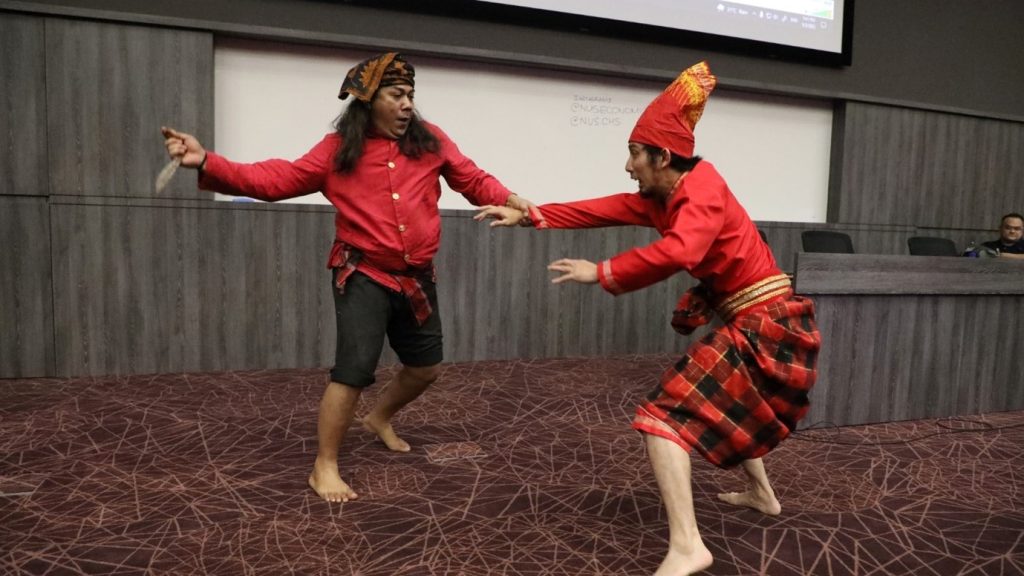
Meanwhile, over at the “Insights into Southeast Asia from the Martial Arts Perspective” masterclass, Dr Mohamed Effendy of NUS Southeast Asian Studies presented prospective students with a riveting intellectual and visual treat, demonstrating how useful unique perspectives on the region’s myriad communities can be gleaned by studying them through the lens of the martial arts. Students saw the concepts brought to life – witnessing first-hand an exciting live demonstration by practitioners of pencak silat – of how Southeast Asian warriors of old defended themselves using a wide array of techniques and weapons.
Action aplenty
There was action aplenty among other faculties. NUS Business School’s programmes included a 360 live tour, as well as live chats with the BBA Deans on the different majors offered by the School. Its in-person sessions included sharing sessions by the BBA Deans, BIZCareers advisors, and student ambassadors.
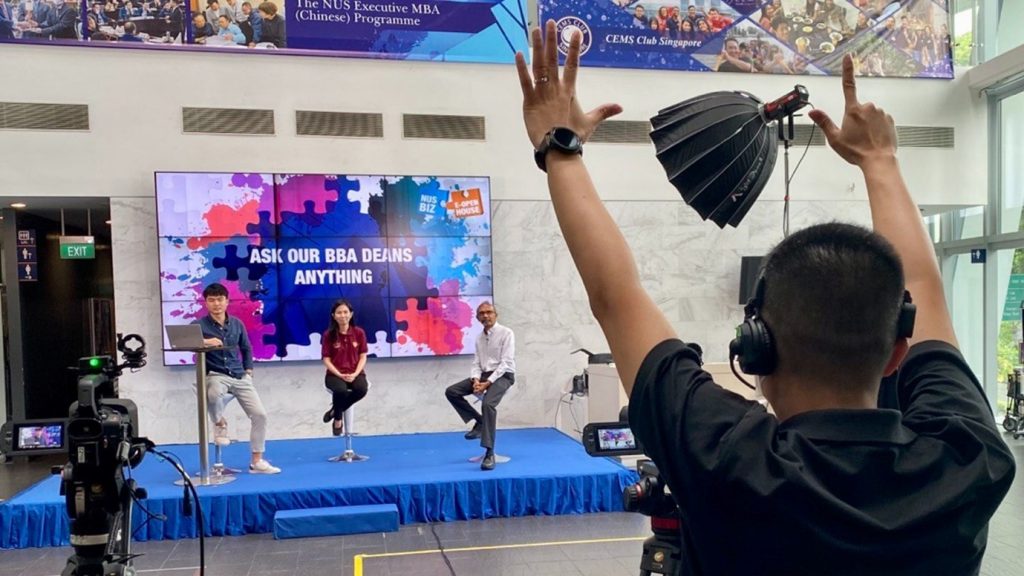
Year 4 Accountancy and Finance undergraduate Calvin Chur was one such student volunteer, serving as an emcee for the online Open House and sharing in-person on 5 Mar about life at the Business School.
“It was a tiring, but extremely fulfilling day engaging with prospective students, learning about their concerns with regards to entering a new phase of life and trying to address those concerns,” said Calvin. “In fact, many of their concerns mirrored those that I had as a fresh A-level graduate attending the NUS Open House back in 2016 – and I am glad that I could offer insider insights to help them make an informed decision at this major milestone of their lives.”
Year 4 Real Estate undergraduate Natasha Liem, another student volunteer who served as an emcee, added, “There was quite a large number of viewers for the panel and a prospective student actually sent me a message on Instagram to enquire more about real estate from a student's perspective. I think the panel went well!”
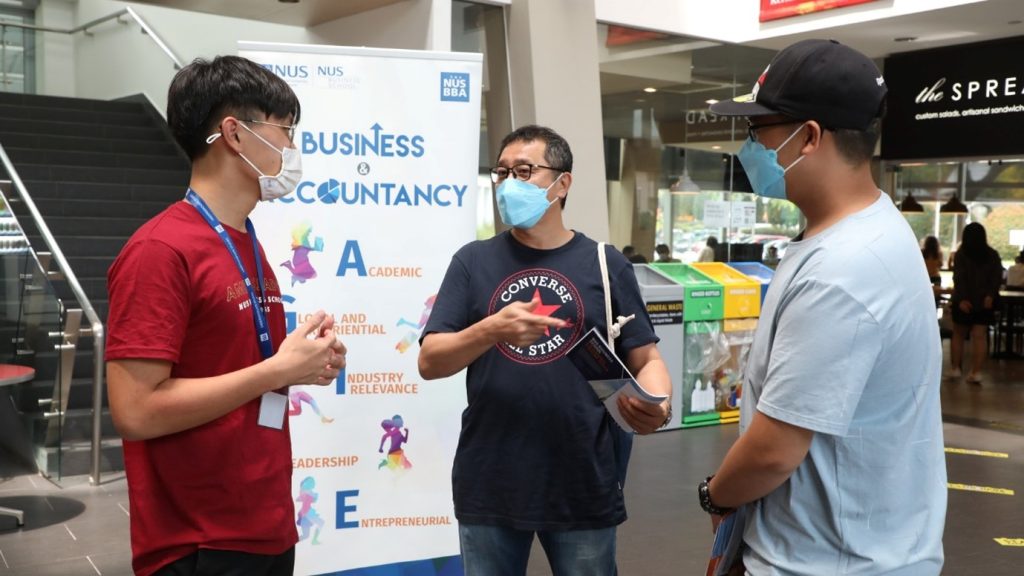
For NUS Business School Executive (Marketing & Outreach) Ms Casey Jean Grant, it was an eye-opener to experience the whole planning process.
“Most of the students and parents were very curious and excited about the prospect of coming to NUS Business School,” she added. “Their excitement definitely rubbed off on us and made the rest of us excited to share about our School.”
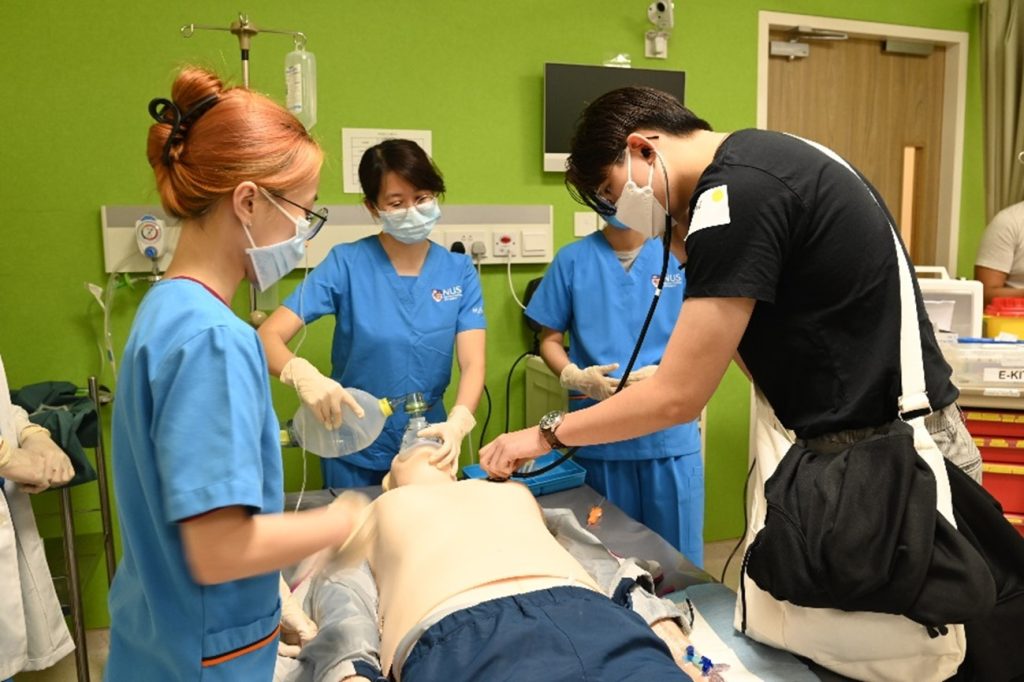
With frontline healthcare workers being in the spotlight these couple of years, there was plenty of interest in NUS Dentistry, NUS Nursing, NUS Medicine, and Duke-NUS Medical School. Live demonstrations were conducted and prospective students got a taste of what it would be like to be a dentist, nurse or doctor.
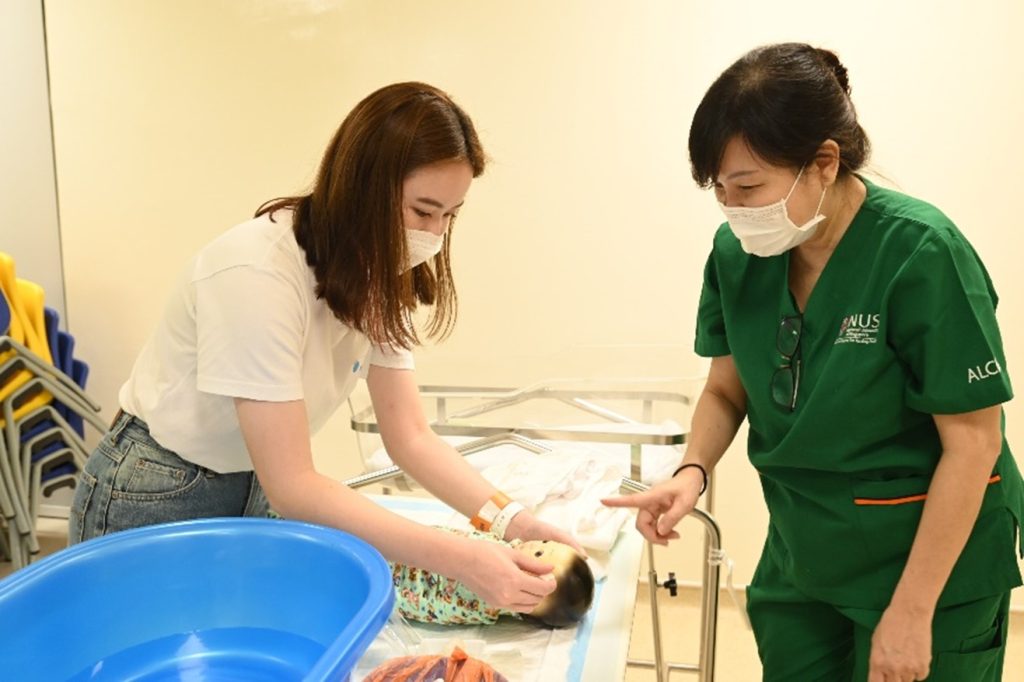
Serving up a slice of campus life
Whether on the screen or in the flesh, visitors to the Open House also witnessed the rich and vibrant student life beyond the classroom that NUS is known for.

Besides holding talks to acquaint visitors with the wide range of co-curricular activities available, student clubs and societies rose to the occasion at the Student Village showcases to feature a spectacular smorgasbord of music, dance and sporting performance across the eight days that Open House was on. Visitors were serenaded by soulful tunes by the NUS Jazz Band and wowed by the moves of NUS Kendo Club. They were also treated to cheerleading displays, snazzy dance performances by NUS Funkstyle and BreakiNUS, catchy renditions of contemporary pop and choral music by the a cappella group Resonance, and the dulcet tones of TheNUSChoir and the NUS Mandopop group Voices.

"It was really lively with dozens of booths as well as live performances put on by really talented students! It truly allowed me to understand the culture here and makes me want to be a part of it after experiencing first hand,” Vanille Goh shared.
Students and hall masters from the halls and residences also conducted informative residential life talks, A-Day-in-the-Life-Of vlog sessions and Ask-Me-Anything sessions to help students interested in on-campus living understand its manifold aspects like academic programmes and pastoral care.
These were complemented by in-person tours of King Edward VII Hall, NUS College, Ridge View Residential College, Tembusu College, RC4, and Pioneer House, NUS’ newest housing model, giving participants a real taste of the sense of community and camaraderie that comes with residential life in NUS.
Joshua Chua, who also participated in the RC4 tour, said, “The RC4 tour was definitely a highlight because the tour guide, as with most staff and students, was welcoming and frank, which eased my nervousness.”
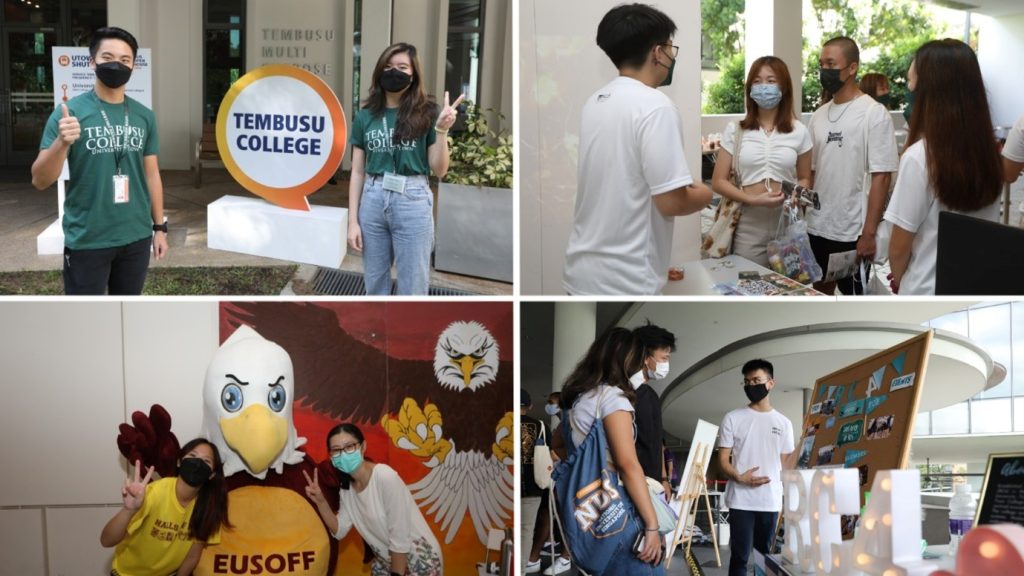
Matthew Yeow, an alumnus of Anglo-Chinese School (Independent) who attended both online and in-person sharing sessions by student residents of the Residential Colleges, said, “During the physical Open House, I had the opportunity to find out a lot more about the residential colleges and what made them distinct from halls. Furthermore, I also got to find out more about the individual residential colleges and their communities, as well as the additional modules they took.”
“As a prospective student, I think the Open House was executed effectively through both the online and physical mediums. Having the opportunity to come down and visit the University and talk to the current students gave me a better understanding of student life in NUS,” he added.

This story first appeared on NUSNews on 8 March 2022.
New Courses for the New Economy
IN BRIEF | 5 min read
- NUS is offering a number of new programmes to prepare graduates for the future, including the much-anticipated Major in Anthropology, and Minor in Interpreting by the NUS Department of Chinese Studies.
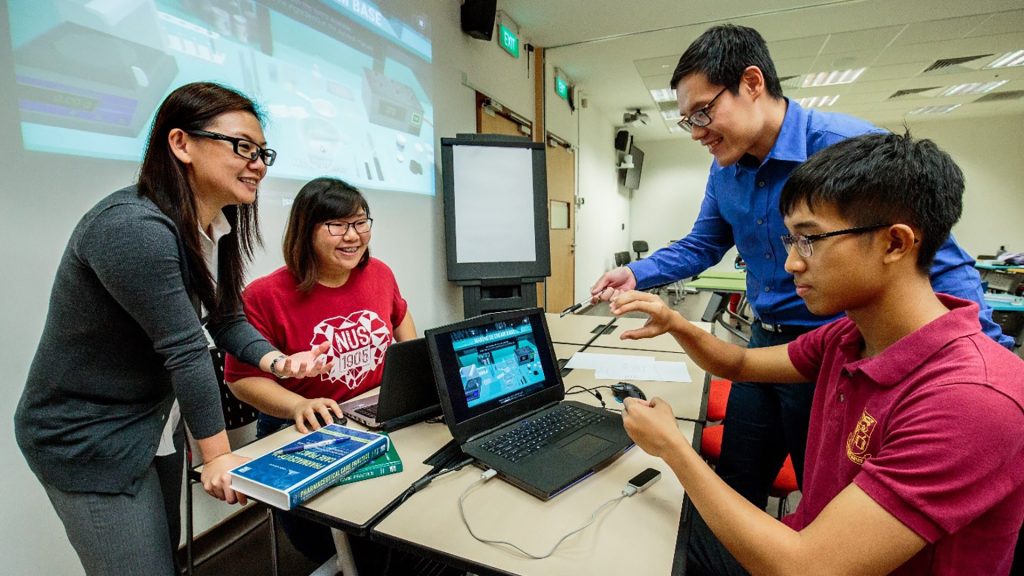
The University’s key theme of preparing undergraduates for the workplace of the future will be further enhanced with the launch of new majors, minors and degree specialisations in the upcoming academic year. About 10 new courses are on the cards.
New programmes from the NUS College of Design and Engineering (CDE), NUS Faculty of Science, NUS School of Computing, and NUS Faculty of Arts and Social Sciences will cover areas such as Artificial Intelligence, technology, data science, sustainability, globalisation. They will add on to the interdisciplinary offerings by the flagship NUS College, Singapore’s first honours college welcoming its first cohort in August – as well as those by the College of Humanities and Sciences (CHS).
“The overall goal of all our education reform efforts is to advance a university curriculum that prepares students well for a Fourth Industrial Revolution world and workplace,” said Professor Bernard Tan, NUS Senior Vice Provost (Undergraduate Education).
“Our education, focused on both breadth and depth, ensures that our graduates are held in high regard by employers. Last year, more than nine in 10 NUS graduates secured a job within six months of their final examinations.”
New majors and minors
Bachelor of Engineering (Infrastructure and Project Management)Offered by CDE’s Department of the Built Environment, this degree will equip graduates with the knowledge and interdisciplinary skills to excel in the multifaceted built environment. This is the first interdisciplinary full-time undergraduate programme to cover engineering, design, management, technology, building science and law modules. Major in Anthropology
Offered by the NUS Faculty of Arts and Social Sciences to all CHS students, this major will study the range of human diversity, accounting for how people in different times and places have developed into distinctly different societies. The degree will expose students to a vast variety of different beliefs and health practices, economic and political systems, material culture, and even different notions of beauty, the environment, food, family, and the good life.
Anthropology is much sought after for the sort of training it offers its students – a ground up approach to developing deep understanding on just about every aspect of the human condition. Students will be equipped to better understand and deal with the chaos, uncertainty, and ambiguity that characterises the contemporary age.
Second Major in Sustainable Urban DevelopmentOffered by CDE’s Department of Civil and Environmental Engineering, it aims to train the next generation of urban problem-solvers. They will be equipped with interdisciplinary knowledge and skills to create sustainable urban environments in the context of the changing climate. Open to all NUS undergraduate students, this major is stackable to students’ primary major in their chosen field, and can be completed in four years with no additional academic workload. Second Major in Nutrition
This will be offered by the Faculty of Science to all CHS students, including those reading Food Science and Technology as the primary major. It is designed to equip students with knowledge in human nutrition, providing them with the necessary foundation to develop a cross-disciplinary perspective along the food supply chain – from farm to fork to health. Minor in Interpreting
Multilingualism is a defining characteristic of Singapore’s multi-ethnic, immigrant society. With four official languages and with English as the working language, translating and interpreting between each of the mother tongues and English has always been a prominent feature of Singapore society. Against this backdrop, the NUS Department of Chinese Studies has placed as one of its core objectives, the training of graduates with strong Chinese-English bilingual skills who can become leaders in the translation and interpreting arenas.
This new Minor will allow students a related alternative to translation, or as an affiliated Minor to Translation which is already being offered at the Department.
New specialisations
Three new specialisations will be offered by the NUS School of Computing:
Specialisation in Digital Product and Platform ManagementThis will be offered to students pursuing the Bachelor of Computing (Information Systems) Degree. They will build up a repertoire of knowledge and skills sought after by both technology companies and the digital immigrant companies that are fast adopting the product- and platform-centric technology and business operating models. Specialisation in Intelligent Systems Solutioning
Students pursuing the Bachelor of Computing (Information Systems) Degree can also take this new specialisation to learn to implement and apply intelligent system solutions buttressed by the new technologies of Artificial Intelligence, the Internet of Things, and Augmented Reality. They will learn to apply these new technologies in software engineering, and to implement and manage intelligent system solutions. Graduates will be able to take on job roles in intelligent systems engineering and solutioning. Specialisation in Machine Learning-based Analytics
This new specialisation for Bachelor of Science (Business Analytics) students will enable students to tap into the analytics capabilities of Machine Learning, a sub-field of Artificial Intelligence. They will learn to rapidly and automatically develop models that can quickly and accurately analyse massive, complex data sets, in order to help businesses unlock the value of corporate and customer data and enact decisions that keep them ahead of the competition. Graduates will be able to take on careers in the rapidly-growing business and data analytics field, among others.
New modules
Aside from the new majors, minors and specialisations, a number of new modules are being offered. For instance, the NUS School of Computing is starting a Digital Ethics and Data Privacy module to educate students on this pertinent and pressing issue.
The NUS Faculty of Law is introducing two modules – one on Law & Technology and one on Data Literacy – as technology and data are increasingly being key drivers for the legal industry.
Find out more about the courses offered by the University, and explore this year’s Open House. Here are four things to look out for at the Open House.
This story first appeared on NUSNews on 24 February 2022.
NUS Open House 2022: Interdisciplinary Offerings, In-person Activities and More!
IN BRIEF | 5 min read
- NUS Open House 2022 is back with opportunities for prospective students to meet NUS professors, students and alumni face-to-face, after two years of connecting virtually.
- Running from 26 February through 5 March, NUS Open House 2022 will begin with a comprehensive line-up of informative activities, including the online segment, during the week leading up to the physical Open House, which takes place on Saturday, 5 March from 9 am to 7 pm across NUS’ campuses in Kent Ridge and Bukit Timah.

NUS Open House 2022 is back with opportunities for prospective students to meet NUS professors, students and alumni face-to-face, after two years of connecting virtually.
The physical event will take place on Sat, 5 Mar from 9am to 7pm across NUS’ campuses in Kent Ridge and Bukit Timah. This will be preceded by a comprehensive line-up of informative activities during the week leading up to the physical Open House.
Including the online segment, NUS Open House 2022 takes place from 26 Feb to 5 Mar. Here’s a heads-up on four things to check out:
1. Exciting interdisciplinary offerings
NUS College, Singapore’s first honours college, was formed by the merger of the University Scholars Programme and Yale-NUS College. Offering an immersive, experiential and interdisciplinary educational journey, it will welcome its first batch of students this year. Students will have a home college or faculty, say, Business or Engineering, while simultaneously being enrolled at NUS College. There, they will have the opportunity to enjoy a holistic interdisciplinary curriculum that is complementary to their major.
Another option for interdisciplinary learning can be found at NUS College of Design and Engineering. The College offers a programme that prepares students for the future through interdisciplinary learning and robust research in the fields of engineering and design. At the College, students are given the flexibility to build and design their own learning experience.
The NUS College of Humanities and Sciences, the enhanced undergraduate experience for students of the Faculty of Arts & Social Sciences and the Faculty of Science, is accepting its second intake this year. The College offers 13 Common Curriculum pillars consisting of modules such as scientific inquiry, humanities, digital literacy, design thinking, artificial intelligence and many more exciting options. These are complemented by majors and minors spanning the arts, humanities and sciences, such as global studies, philosophy, theatre and performance studies, quantitative finance, data analytics and pharmaceutical science. Students can pick and choose modules to create a customised curriculum that matches their interest and aspirations.
To ensure that graduates are ready to take on leading roles in the New Economy, NUS constantly develops new courses. Here are this year's new offerings.

2. Meeting you in person - again
After two years of meeting virtually, the NUS community is excited to get together in real life with prospective students once again!
You can look forward to an enlightening schedule of in-person activities including a tour of the Centre for Healthcare Simulation by NUS Nursing; tours of residential living options such as Tembusu College, CAPT (College of Alice & Peter Tan), and RC4; a live demonstration of a moot court session and tour of the NUS Bukit Timah campus by NUS Law; tours and a showcase of NUS College; as well as a live question-and-answer session with Duke-NUS Medical School.
3. Webinars, talks, live chats, hotlines and more
Get a taste of life as an NUS student, even before the physical event. A host of insightful webinars, talks, question-and-answer sessions, live chats, hotlines, and virtual tours have been arranged starting 26 Feb to give you a head start on topics such as admissions, student life, and on-campus living, as well as programmes offered by NUS College, the College of Design and Engineering, the College of Humanities and Sciences, Business, Music and many more.
Obtain behind-the-scenes knowledge from NUS student ambassadors and the NUS Students’ Union on the rich student life available at NUS, and be serenaded by NUS Choir and NUS Jazz Band.
Professors will be on hand to share information on their respective programmes, and you’ll even have a chance to sit in on classes. Have a question that is not covered by the briefing? No sweat! There’ll be chat sessions with NUS Admissions, professors and students from selected programmes during which you can get your queries addressed.
Click here for the list of virtual and in-person activities for NUS Open House.

4. Exciting student life
NUS offers a myriad options for a rich student life, and NUS Open House is the perfect place to start exploring the possibilities. Many alumni recall their NUS days fondly, remembering not only the academic progress they made, but the camaraderie forged with friends from clubs, societies and on-campus residences.
Throughout the period of the online Open House and during the physical event, representatives from various student-led groups will speak on topics including hall life, clubs and societies, as well as campus performing groups. Take part in a live session with music and dance groups, embark on a virtual residential tour, and more.
We’re looking forward to seeing you online from 26 Feb and in-person on 5 Mar!

This story first appeared on NUSNews on 23 February 2022.
Looking to 2022: Enhancing Retirement Financial Adequacy for our Seniors
IN BRIEF | 4 min read
- "While the government is doing much for seniors, it makes sense to know what our specific adequacy goals for meeting seniors’ needs are, and what more could be done," says Associate Professor Tan Ern Ser (NUS Sociology) in this piece about the financial health of our senior citizens.

| By Associate Professor Tan Ern Ser |
During my younger days, I used to hear seniors saying that once their children had “started working”, they would be able to ease up on their responsibilities as they could then depend on their children’s financial support and enjoy their post-retirement years in relative comfort and security.
However, in adulthood and being a part of the sandwiched generation, I realised that, unless seniors have sufficient savings and bought health insurance, they would be putting a heavy financial pressure on their adult children, even middle-class ones, without necessarily having their basic needs fully met.
Such dependency may also lead to elderly abuse, family tensions and conflict between siblings.
It therefore matters to seniors - and their adult children, if any - that they have financial adequacy in their silver years. As a nation and developed economy, the Singapore government would similarly desire that elderly Singaporeans can maintain a decent quality of life and experience a strong sense of security.
The government is cognizant of investing more resources to supporting the elderly as Singapore continues in the direction of a rapidly ageing society. This commitment to the welfare of seniors is reflected in the various measures introduced in successive annual budgets.
Recent government measuresBudget 2020, for instance, provided a support package to help seniors stay employed. It also offered lower- to middle-income Singaporeans, which includes seniors, a matched Central Provident Fund (CPF) Retirement Savings Scheme up to an annual cap of S$600, or S$3,000 over five years.
There was, moreover, an enhanced Silver Support Scheme for the bottom 20 per cent of seniors aged 65 or older amounting to S$900 per quarter for each eligible senior. These two measures, together with the Lease Buyback Scheme, could raise the amount of CPF Life pay-outs to more than a $1,000 for seniors who have not met the Basic Retirement Sum.
To address healthcare needs, the government increased healthcare subsidies by up to 80 per cent, in addition to financial support for healthcare insurance and long-term care; as well as the universal, as opposed to means-tested, provision associated with the Community Health Assist Scheme (CHAS), Pioneer Generation Package, and Merdeka Generation Package.
Similarly, Budget 2021, while continuing to address the negative consequences of the pandemic on the economy and job security, had allocated more funds for supporting the employment or re-employment of older workers.
Are these measures enough?I have often been asked to comment whether, taken as a whole, the various forms of support rendered to seniors offer enough help to elderly Singaporeans. My quick answer would be that since the financial outlays of the various schemes and measures introduced over the years are clearly substantial, running into the billions, one can only respond that they have been most helpful and beneficial, especially to low-income and economically inactive seniors. Most evidently, the government is serious about improving the retirement financial adequacy of seniors.
However, I often wonder if the support provided, while significant, is equal to the task of addressing the issue of retirement financial adequacy. To answer this question, we need to know what adequacy means in the first place.
Is it to meet some defined “basic needs”? And beyond this, is it to help seniors eventually become self-reliant, since this is an important quality in our national ethos? What if despite the social safety nets provided by the state, actual healthcare and caregiving expenditures and opportunity costs continue to impose a heavy burden on the sandwiched generation? What then does this say about the adequacy of government support for seniors?
Has the government ever attempted to define explicitly what seniors would need to have access to a decent quality of life with some minimum level of financial security?
A 2019 report by academic Dr Ng Kok Hoe and team members inferred that the CPF Basic Retirement Sum, which pays a monthly annuity of about S$800, is “supposed to provide a basic level of income for retirees”. The authors also suggested that, by their estimate, a single-elderly household needs S$1379 monthly, which means the government’s “kuih lapis” approach, as opposed to defining a poverty line, involving several layers of assistance to seniors, would fall “significantly short of what is needed for a basic standard of living”.
Outcomes, not just inputsWhether or not we agree with the above report and its definition of basic needs, it flags to us the importance of being clear about the kind of outcomes we hope to achieve with government support for seniors. Unless we have clear, specific adequacy goals in mind, we would not be able to determine the extent to which we, as a nation, have done enough to lighten the load for seniors and their family members or improved their lives, or how far we have progressed to this end.
The issue of retirement financial adequacy would then be an endlessly contested one, with the government pointing to the multiple layers of assistance for seniors and the magnitude of its support in dollar terms, while political and social activists harp on the presence of seniors selling packs of tissue paper at hawker centres or collecting discarded cardboard boxes in exchange for cash.
Perhaps, the debate can be resolved by recognising that there are really two definitions of adequacy: one pertaining to the very poor, which long-term COMCARE assistance is capable of addressing; and the other for the seniors identified by Dr Ng and others’ 2019 report who need more help to achieve retirement financial adequacy.
Where do we go from here?The government has been proactive in trying to meet the retirement needs of seniors. Its policy towards seniors is comprehensive, covering housing, employment, health insurance, workfare income supplement, and retirement fund.
However, comprehensiveness does not equate to adequacy. It is therefore important that the government define what constitutes a decent quality of life and minimum level of retirement adequacy for seniors. Setting probably long-term, specific adequacy goals does not necessarily entail a fundamental shift in the government’s approach towards providing seniors a reliable social safety net, but it does allow for tracking the progress made over time and perhaps even motivate the government to take bolder, more left-of-centre measures in good years to fast-track the advancement towards those goals.
Parting shotsI remain convinced that the government is doing much for seniors. I also recognise that whether it could do enough for seniors would depend on the resources we have.
Still, it makes sense to know what our specific adequacy goals for meeting seniors’ needs are, and what more could be done, whenever possible, to move nearer to our desired outcomes for our seniors, and its ramifications for dignity in later life, family harmony, or even fertility rates in Singapore.
About the Author NUS Sociology Associate Professor Tan Ern Ser is the Academic Convenor for Singapore Studies at NUS Arts and Social Sciences as well as the Deputy Chair of the NUS General Education Committee. He is also Academic Adviser of the Social Lab at the Institute of Policy Studies at NUS. Assoc Prof Tan’s research interests include class and stratification; citizenship and national identity; and ethnic relations. A Justice of the Peace, Assoc Prof Tan also serves as a research consultant to the Housing & Development Board, and chairs its Research Advisory Panel.
NUS Sociology Associate Professor Tan Ern Ser is the Academic Convenor for Singapore Studies at NUS Arts and Social Sciences as well as the Deputy Chair of the NUS General Education Committee. He is also Academic Adviser of the Social Lab at the Institute of Policy Studies at NUS. Assoc Prof Tan’s research interests include class and stratification; citizenship and national identity; and ethnic relations. A Justice of the Peace, Assoc Prof Tan also serves as a research consultant to the Housing & Development Board, and chairs its Research Advisory Panel.
This story first appeared on NUSNews on 24 January 2022.
FASS Inspiring Mentor 2021 Award Winners Announced

The NUS Faculty of Arts and Social Sciences is proud to announce the winners of the 2021 FASS Inspiring Mentor Awards.
Congratulations to:
- Prof Jack Qiu Linchuan, Professor, Department of Communications and New Media
- Assoc Prof Loy Hui Chieh, Associate Professor, Department of Philosophy
- Assoc Prof Robin Loon Seong Yun, Associate Professor, Department of English Language and Literature
- Dr Michael Yoshitaka Erlewine, Assistant Professor, Department of English Language and Literature
- Dr Nina Laurel Powell, Senior Lecturer, Department of Psychology
Winners of AY2020-21 Faculty Teaching Excellence Awards Unveiled
 The NUS Faculty of Arts and Social Sciences is proud to announce the 37 winners of the Faculty Teaching Excellence Award for their work in AY2020‐21, 16 of which have also been nominated for the Annual Teaching Excellence Award(ATEA) and Annual Digital Education Award (ADEA).
The NUS Faculty of Arts and Social Sciences is proud to announce the 37 winners of the Faculty Teaching Excellence Award for their work in AY2020‐21, 16 of which have also been nominated for the Annual Teaching Excellence Award(ATEA) and Annual Digital Education Award (ADEA).
Special thanks are due to members of the Faculty Teaching Excellence Committee–Dr Susan Ang (English Language and Literature and Chair of FTEC), A/P Loy Hui Chieh (Philosophy; FASS Vice‐Dean), A/P Lim Wee Hun, Stephen (Psychology), Dr Gilbert Yeoh (English Language and Literature) and Mrs Chen Ing Ru (Centre for Language Studies)–for their efforts in shortlisting and nominating the winners.
|
NAME |
DEPARTMENT |
|
Mr Appriou Yannick Francois |
Centre for Language Studies |
|
Ms Baranska, Malwina |
Centre for Language Studies |
|
Ms Klayklueng, Sasiwimol |
Centre for Language Studies |
|
Ms Morita, Kazuko |
Centre for Language Studies |
|
Dr Chaidaroon Suwichit |
Communications and New Media |
|
Dr Hong Renyi |
Communications and New Media |
|
Dr Mitchell, Alexander Ian |
Communications and New Media |
|
Dr Shobha Avadhani |
Communications and New Media |
|
Mr Tan Kai En |
Communications and New Media |
|
Dr Timothy Wong Chong Ji |
Economics |
|
Dr Vu Thanh Hai |
Economics |
|
A/P Michelle M. Lazar |
English Language & Literature |
|
Dr Miguel Escobar Varela |
English Language & Literature |
|
A/P Starr Rebecca Lurie |
English Language & Literature |
|
A/P Thell Anne Marie |
English Language & Literature |
|
Dr Roy, Tania |
English Language & Literature |
|
A/P Chang Tou Chuang |
Geography |
|
A/P Daniel Adam Friess |
Geography |
|
Dr Gretchen Christina Coffman |
Geography |
|
Dr Kamalini Ramdas |
Geography |
|
Dr Kenney-Lazar Miles Richard |
Geography |
|
Dr Teo Sheng Kiat, Shaun |
Geography |
|
Dr Donna Maree Brunero |
History |
|
Dr Lawrence, Kelvin |
History |
|
Dr Sayaka Chatani |
History |
|
Dr Beddor, Robert Speeter |
Philosophy |
|
Prof Bain, William Ward |
Political Science |
|
Dr Dunya Deniz Lepori |
Political Science |
|
Dr Jia Lile |
Psychology |
|
Dr Nina Laurel Powell |
Psychology |
|
Dr Wong Shi Hui Sarah |
Psychology |
|
Dr Peace Wong Yuh Ju |
Social Work |
|
Dr Chua Hui Ching, Emily |
Sociology |
|
Dr Elliott Edward Prasse-Freeman |
Sociology |
|
Dr Jennifer Emily Estes |
Sociology |
|
Dr Noorman Abdullah |
Sociology |
|
Dr Radics, George Baylon |
Sociology |
Congratulations to them all!
FASS Announces New Additions to Leadership Team
IN BRIEF | 2 min read
The NUS Faculty of Arts and Social Sciences is pleased to announce recent new appointments to the Faculty's leadership team.
Three eminent members of the Faculty received new appointments to the Deanery at the beginning of this year:
- Professor Joseph Park (English Language and Literature)
Vice-Dean (Undergraduate Studies) - Dr Zhang Yang (Economics)
Associate Dean (Undergraduate Studies) - Dr Noorman Abdullah (Sociology)
Assistant Dean (External Relations and Student Life)
We wish them the very best with their new portfolios. Click here to visit the FASS Deanery page.




NUS Bags Major PR Award for College of Humanities and Sciences Campaign

One year since the official inauguration of the NUS College of Humanities and Sciences (CHS), the publicity campaign for the new College has gained recognition at the recent Public Relations in the Service of Mankind (PRISM) Awards.
The University bagged a Distinction Award in the category “Outstanding Campaign by a Non-Government Organisation or Not-For-Profit Organisation” for the launch and publicity of the interdisciplinary College.
The award recognises NUS’ effective communications regarding the necessity of an interdisciplinary education to faculty members, prospective students and their parents, alumni, employers, and members of the public.
The campaign also underscored what CHS offers students in a world plagued by complex challenges that require integrated interdisciplinary approaches. The campaign included the launch event, student profiles, social media, and CHS collaterals and media assets in the form of CHS-specific infographics, news and FAQs.
The campaign also included a video series on interdisciplinarity, a podcast series by the teaching team of the common curriculum Humanities module, and stakeholder endorsement in the form of testimonials from students and alumni of NUS Faculty of Arts and Social Sciences (FASS) and the NUS Faculty of Science (FoS) who have pursued interdisciplinary studies. A successful admissions publicity campaign was run, including the 2021 NUS Open House which drummed up interest in the College with student and employer panels, small group tours, and student chat rooms.

The accolade from PRISM, which coincides with the one-year anniversary of the official inauguration of CHS, bears testament to the concerted effort on multiple fronts of the campaign by various stakeholders, including the Communications teams from FASS and FoS, the NUS Office of University Communications and communications agency AKA Asia.
“The award comes as a truly wonderful one-year anniversary gift to all our colleagues involved in the CHS campaign,” said NUS Chief Communications Officer Ms Ovidia Lim-Rajaram.
“It is gratifying to know that our efforts to kickstart a meaningful, groundbreaking programme at the College are paying off, and that the journey to promoting an interdisciplinary, 21st-century educational experience at NUS is off to a great start.”
Communications at CHS is co-led by Mr Nisar Keshvani, Associate Director for Strategic Outreach and Communications at FASS, and Ms Janice Quah, Associate Director for Corporate Communications at FoS.
“The campaign award, a result of the synergy and collaboration across diverse University faculties and departments, epitomises the spirit of interdisciplinarity that CHS values, and the idea of capitalising on each other’s strengths to achieve the best outcomes,” Mr Keshvani said.
Ms Quah added, “It has been a challenging journey but seeing our communications ideas collectively come to fruition is truly fulfilling! The validation of the hard work motivates us to continue raising the bar, to sustain the impactful profiling of CHS to students and stakeholders.”
Recognising the best in public relations
Celebrating 44 winners across 27 categories, the PRISM awards ceremony was held on 15 Dec by the Institute of Public Relations Singapore (IPRS), the only accrediting body for public relations practitioners in Singapore. The Guest of Honour was Mr Tan Kiat How, Minister of State at the Ministry of Communications and Information (MCI).
Acknowledging the challenges of a shifting communications landscape, Mr Tan said, “MCI recognises the importance of excellence in public relations and communications across all sectors of the economy.”
“The campaigns up for awards today show how all of you have worked around these challenges and continued to achieve excellent levels of reach and impact.”
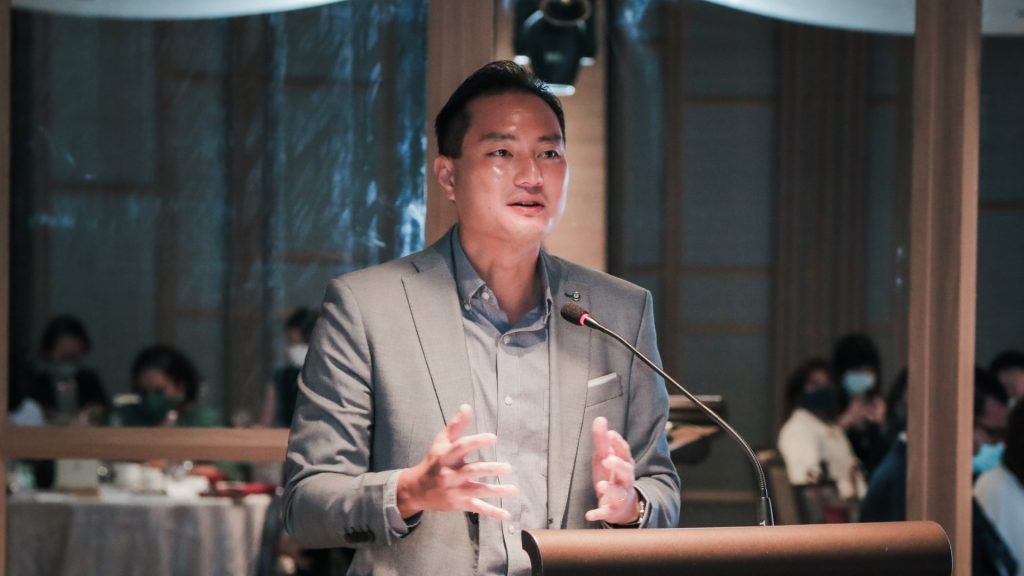
Held biennially since 1987, the PRISM Awards is one of the oldest and most prestigious awards in the industry, celebrating Singapore’s brightest stars in the communications and public relations industry. It is judged by a panel of established business leaders and senior practitioners, recognising and honouring organisations and individuals for excellence in public relations and communications.
Ms Koh Juat Muay, President of the IPRS Council 2021/2023 said, “The winning entries and the winners this year reveal a singular story – the resilience of our people, the ingenuity of the campaigns and strength of the organisations that continues to thrive in an evolving local and global communications landscape.”
“IPRS is privileged to hold PRISM Awards 2021 and share in the pride of profession demonstrated by our people and in the brilliance of their campaigns. Our winners truly embody the meaning of PRISM and that is Public Relations In the Service of Mankind,” she added.
This story first appeared in NUSNews on 21 December 2021.
An Interview with Emeritus Prof S. Vasoo and Assoc Prof Winston Goh on The Strange Start of Psychology at the National University of Singapore
The Strange Start of Psychology at the National University of Singapore (NUS Department of Psychology, 2021), showcases the history of the NUS Faculty of Arts and Social Sciences' Department of Psychology, Singapore's oldest psychology programme. The programme, which kicked off during the 86/87 academic year at the Department of Social Work (renamed the Department of Social Work and Psychology), became a department in 2005.
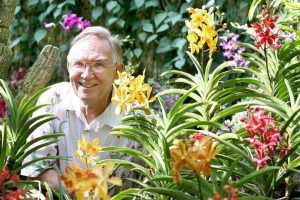
Author Dr John Michael Elliott (1945-2019), who was at the time a psychologist at the then Ministry of Social Affairs, joined the programme six weeks after it began and retired in 2018.
As the book explains, in Singapore, historically psychology was viewed more as clinical work that supported psychiatry, and mental health care was deprioritized. Instead, during the island's colonial era, patients requiring mental health treatment were institutionalized in The Insane Hospital, which commenced operations in 1841 with 30 beds. This hospital evolved into The Lunatic Asylum (1862, 100 beds), followed by The New Lunatic Asylum (1887, 300 beds), and then the Mental Hospital in 1928, which became Woodbridge Hospital in 1951.

In 1993, Woodbridge Hospital moved to Buangkok Green, becoming the Institute of Mental Health's new inpatient facility.
There was a definite need for trained psychologists in Singapore, as well as a programme to train them, since, post-independence, all psychologists in the country completed their education abroad. When the NUS psychology programme got started in July 1986, however, the discipline was still often seen as non-Asian and more as medical training than a social sciences course, and also as a luxury in the realm of social work. The Department of Social Work was an ideal place for the new programme, Dr Elliott notes, as it would contribute to the department's own development, enabling it to offer an honours degree in social work and psychology.

The NUS psychology programme's initial cohort had 72 students and 1 staff and grew rapidly. There are currently around 900 students in the introductory psychology module and 220 honours graduates annually. At its inception 35 years ago the programme offered a three year general degree with a competitive fourth year honours degree. In 1989, 50 students received a general degree, 11 of whom went on to get an honours degree. Today, the department's own clinical psychology master's programme graduates approximately 15 annually, and psychology graduate students can also obtain a Master of Social Sciences or PhD.
The NUS Department of Psychology ranks 16 out of 303 on the Quacquarelli Symonds list and psychology is a well recognized and respected course of study in Singapore. Many graduates go on to engage in psychological work in the public sector, such as in Singapore's Ministries of Health, Defense, Home Affairs, and Social and Family Development. A number of graduates are also employed in private sector positions involving psychological work like human resource management and marketing, or in private practice in the fields of clinical, counselling, and industrial-organisational psychology, among others.

We discussed the The Strange Start of Psychology at the National University of Singapore, which has an online launch on Friday, 10th December at 11 am, with Associate Professor Winston D. Goh, the current NUS Department of Psychology Head, and Emeritus Professor S. Vasoo, who led the then NUS Department of Social Work and Psychology from 1987 to 1999.
 A/P Vasoo Q & A
A/P Vasoo Q & A
1. What were your most memorable experiences developing the new psychology programme during your term leading the NUS Department of Social Work and Psychology?
I have been teaching students and working with academic staff for about 50 years. In the course of these years, I always encouraged and advised them not to look back on events that had surpassed them. This is because memorable matters would not come back and one would not be able to deal with the bygones. No point spending time lamenting over things that have gone past as it can be emotionally costly and tiring. I always encourage students and academic staff to look ahead on events that will be forthcoming as these can be managed as they unfold and are within their control. I am of the opinion that various human issues that we can grasp at hand are largely solvable as long as we persistently tackle them with empathy. It is only with good empathy that we can have clearer insights to deal with human issues and relationships.
I recall that one of the challenging tasks that I had to deal with as the Head of the Department of Social Work and Psychology was to quickly recruit a group of Psychology academic staff to deliver the undergraduate psychology programme in 1986. I had selected staff with diverse psychology training such as a developmental psychologist, a cognitive psychologist, a social psychologist, an experimental psychologist, a clinical psychologist, and a psycholinguist. You can imagine with these varied backgrounds coming together to agree on a basic undergraduate curriculum was not easy. Each of them had different hobby horses to ride, which was understandable while mind-boggling, as there were protracted views within the group and at times heated arguments that I had to mediate. I brokered a deal as a non-partisan and drew a consensus among the different psychological academic personalities for the need to develop a top-notch undergraduate psychology programme based on the best psychology departments in the United Kingdom and United States. The foundation laid for the early phase of the psychology programme saw the fruition of some of our top psychology scholars in the Faculty of Arts and Social Sciences. I am indeed proud to witness that some of these accomplished scholars have become lead anchors of the NUS Department of Psychology and later appointed Heads. The nurturance of these top scholars have helped stabilize the psychology programme and provided succession of leadership. They also supported the Deanery of the Faculty of Arts and Social Sciences.
2. What can psychologists learn from social workers, and what can social workers learn from psychologists?

To put it simply, both psychology and social work are non-identical twin disciplines with each having to deal with human behaviour and social issues. As a psychologist, one has to understand human behaviour and the cause of such behaviour, and as a social worker, one has to understand the cause of social and human problems and then enable people to find ways to problem solve. Both disciplines deal with human and psychosocial issues, and human behaviour requires a multidisciplinary focus. I would say that no single discipline is adequate to solve human life course issues. I must add that a good psychologist will require social work lenses and a competent social worker needs to have helpful psychological lenses. As one will appreciate, we are all human beings and are ecologically bounded. Therefore both psychological and social work analyses are critical to better appreciate human behaviour and social interactions, and these can contribute to effective human and social problem solving.
3. What do you see as the most notable impacts in practice of social work and psychology in Singapore so far and in the future?

Psychology graduates as well as social work graduates are making robust contributions in public service, private enterprises, and non-governmental organisations. Psychologists hold highly respectable positions in areas such as clinical services, rehabilitation, health, human resources, education, the armed forces and the police, besides others. Increasingly, psychologists are needed to contribute psychological solutions to strengthen our psychological defences against various societal crises.
Likewise, social workers are also appointed in highly regarded positions in fields such as social services, rehabilitation, health, social research, counselling and mental health, education, the armed forces, and childcare, among others. Both psychologists and social workers have so far given valuable suggestions and inputs to policy changes to the care and protection of children, youth, and women, and in the support of the vulnerable and the promotion of inclusiveness of people with special needs.
Singapore like the rest of the world will be confronted with serious social and ecological changes, including the consequences of unabated climate change. In view of these changing scenarios, our future psychologists will have to be equipped with psychological skills in assessing the impact of human behaviour on mitigating issues related to the environment and climate change as well in order to have good insight into the social and psychological consequences of an ageing Singapore community. Trainee social workers can be better equipped with social analytical skills, which will make them more versatile in predicting specific vulnerable sectors of the community. Thereby, the future social workers can enhance their community problem solving capacity by building more support networks to build a socially healthy community. Specifically, more attention can be paid by both social workers and psychologists to deal with the social and psychological implications of the growing social divide between the haves and have-nots, and find more innovative ways to deliver services to enable the less well-off to move up.
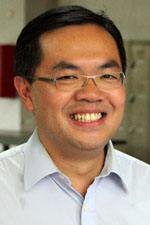 A/P Goh Q & A
A/P Goh Q & A
1. What are some of your fondest memories of Dr John Elliott, first as a teacher, and later as a colleague?
John encouraged critical thinking and we always had very illuminating discussions during his tutorials (see photo on page 28); of course, tutorials at that time only had between 5 and 7 students, so very difficult to hide! He was quite a tough marker though - never got an A from him for my term papers; but then again, As were given out very sparingly during that period (and there were no CAs at that time; the term paper grades were not counted). As a colleague, he was always willing to give advice to young hires, and his experience helped me immensely in the crafting of exam questions when I first started helming my own modules. I also remember he was very particular in signing or agreeing to legal documents - he once refused to upload materials into IVLE (the forerunner of LumiNUS) because he felt NUS did not provide enough protection for staff.
2. What motivated you to study psychology at NUS as an honours and then Masters student, and what prompted you to return to the department to teach and carry out research projects?
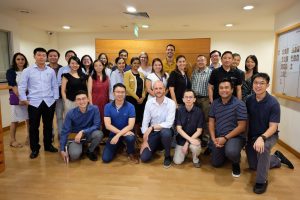 I was in the pre-med programme in junior college, so the path seemed straightforward for me. But I started reading about psychology as a course in various government information booklets and thought this was more interesting than medicine - I also didn't do well at the A levels, so perhaps this was fate telling me to take another path. However, this meant you had to go overseas as there was no psychology programme offered locally and my parents could not afford an overseas education. So when I was accepted in FASS, I was set to major in the closest one at the time - Sociology. I didn't start right away as I had to serve National Service; and in my second year of NS, I found out that NUS had started a psychology programme (again, fate may have been looking out for me!). Fortunately, I did well enough in the aptitude test (required then) to be allowed to major in Psychology. Everyone was hoping to do Honours, and at the time, you had to be invited, so I was elated when the Department of Social Work and Psychology offered me Honours, no motivation required. As for the Masters, I worked as an RA after completing my Honours, so I wanted to see if a research and academic career appealed to me, and decided to do my Masters while I was a TA for the Department. After that, NUS funded my PhD overseas on a staff development scheme, so I was obligated to return to serve a bond. In a sense, NUS Psychology has been my home since I started as an undergrad student, for I never left!
I was in the pre-med programme in junior college, so the path seemed straightforward for me. But I started reading about psychology as a course in various government information booklets and thought this was more interesting than medicine - I also didn't do well at the A levels, so perhaps this was fate telling me to take another path. However, this meant you had to go overseas as there was no psychology programme offered locally and my parents could not afford an overseas education. So when I was accepted in FASS, I was set to major in the closest one at the time - Sociology. I didn't start right away as I had to serve National Service; and in my second year of NS, I found out that NUS had started a psychology programme (again, fate may have been looking out for me!). Fortunately, I did well enough in the aptitude test (required then) to be allowed to major in Psychology. Everyone was hoping to do Honours, and at the time, you had to be invited, so I was elated when the Department of Social Work and Psychology offered me Honours, no motivation required. As for the Masters, I worked as an RA after completing my Honours, so I wanted to see if a research and academic career appealed to me, and decided to do my Masters while I was a TA for the Department. After that, NUS funded my PhD overseas on a staff development scheme, so I was obligated to return to serve a bond. In a sense, NUS Psychology has been my home since I started as an undergrad student, for I never left!
3. What future plans are in the works for NUS Psychology and how do they connect to the need for scholars and practitioners of the discipline in Singapore and the region?

Top psychology departments in the world are very well resourced with research spaces, laboratories, and facilities; so we hope to move in that direction and provide all of our research-active staff dedicated lab spaces to do research that will benefit Singapore and the discipline in general. We will also need to see how many more students (we have always been one of the more in-demand majors since inception) will want to be Psychology majors with the advent of the College of Humanities and Sciences, and perhaps develop various teaching innovations to serve an even more expanded student body (the days of 5-7 pax tutorials, or a 10-student Honours cohort in my year, are long gone). But we have very good educators in the department, so I am not worried about that. Our Clinical Psychology Masters programme is also in very high demand, given the focus on mental health needs nowadays. So we will need to see how we can support training for manpower needs in the public and private sectors in terms of workshops for associate psychologists, in additional to training people to be professional clinical psychologists.
Thank you very much for your time and answers, Prof Vasoo and A/P Goh! Readers can learn more about the history of the NUS Department of Psychology here. Catch the book launch on Friday December 10th at 11 AM by registering via Zoom.
Veronica L. Gregorio Named Sociologist of the Month by Current Sociology
IN BRIEF | 2 min read
-
Veronica L. Gregorio obtained her PhD from the Department of Sociology, National University of Singapore. She is named Sociologist of the Month (December 2021) by Current Sociology.
-
Read her interview with Current Sociology here
- Read her featured article: 'Isolation and Immunity within the Family: Commuter Marriages in Southeast Asia'.
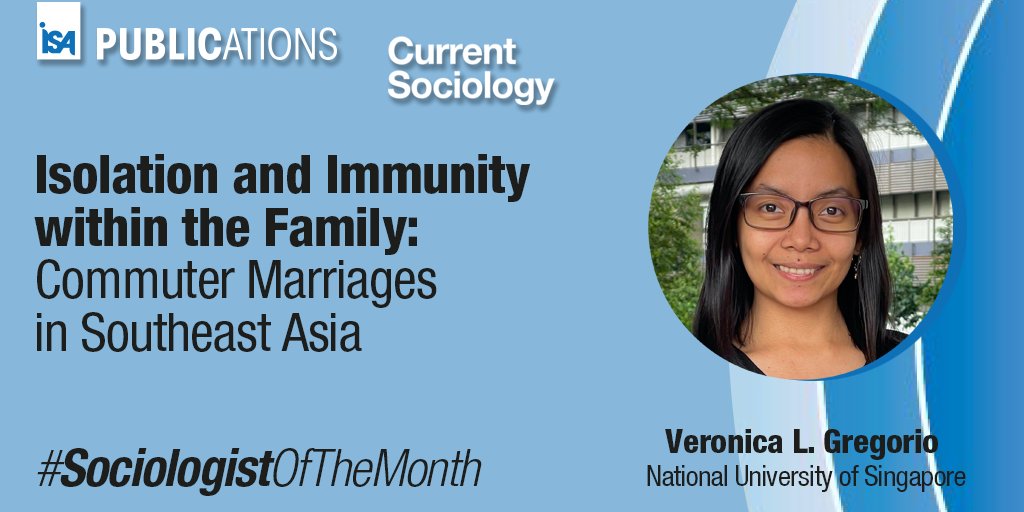
Veronica L. Gregorio has been named Sociologist of the Month by Current Sociology, the official journal of the International Sociological Association. It is a fully peer-reviewed, prestigious international academic journal that publishes original research and innovative critical commentary on current debates within sociology. Read more on her interview with Current Sociology here.
The ‘Sociologist of the Month’ campaign by Current Sociology was initiated in 2015 to highlight the works of different sociologists from around the world, both established and more junior, who have published with Current Sociology. During the period of their feature, their article is available as free access. Read Gregorio's featured article 'Isolation and Immunity within the Family: Commuter Marriages in Southeast Asia' here.
Veronica L. Gregorio obtained her PhD from the Department of Sociology, National University of Singapore. Her thematic research interests are rural transformation, gender and sexuality, and youth and family relations. Her regional focus is Southeast Asia and she has done fieldwork research particularly in Philippines, Malaysia, and Singapore. She uses qualitative approaches in her works including ethnography, key interviews, and visual methods. Her publications can be viewed in Current Sociology, Review of Women’s Studies, Asia Pacific Social Sciences Review, and Asian Politics & Policy.
NUS Faculty of Arts and Social Sciences 18th Dean Takes Office
IN BRIEF | 2 min read
-
Dean of the Faculty of Arts and Social Sciences, Professor Lionel Wee, and other members of the Deanery take on their leadership roles today.
Professor Lionel Wee has assumed the position of Dean of the NUS Faculty of Arts and Social Sciences (FASS) and Co-Dean of the College of Humanities and Sciences (CHS) as of today, Friday, 1 October 2021. Prof Wee takes over the helm from Professor Robbie Goh, who is now the Provost of the Singapore University of Social Sciences.
Before becoming FASS' 18th Dean, Prof Wee was the Faculty’s Vice Dean of Research from 2014 till 30 September 2021 and is a Professor of Linguistics with the Department of English Language and Literature. He was also the Head of the Department of English Language and Literature from 2010 to 2014 and is a Provost's Chair Professor of Linguistics with the Department of English Language and Literature.
“It is an honour to be given the opportunity to helm the Faculty of Arts and Social Sciences. The Faculty has achieved much since its founding nearly a century ago, continually evolving to anticipate and address the needs and challenges of a changing society," said Professor Wee. "Together with the Deanery, colleagues, and students of the FASS, I am confident that we will continue to make breakthroughs in both education and research. While these benchmarks are important, diversity and inclusion are priorities for me, and essential pillars of every organisation. My plan is to further emphasise and ensure our staff and students feel empowered and safe in the Faculty in the coming years."
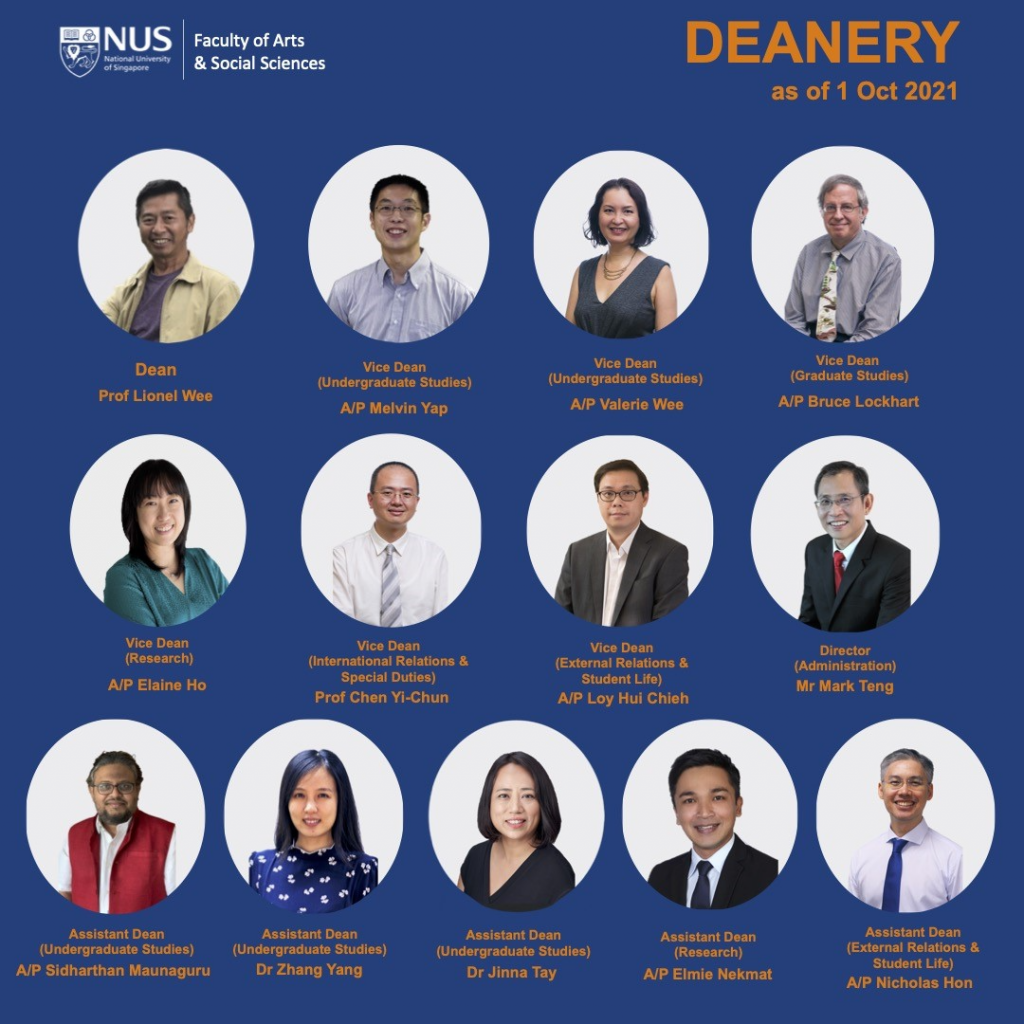
New Appointments to the Strong Leadership
Beginning their new roles with the FASS Deanery today are:
- Associate Professor Elaine Ho (Geography) as Vice Dean (Research). She was previously Assistant Dean (Research)
- Associate Professor Elmie Nekmat (Communications and New Media) as Assistant Dean (Research)
The following members of the Deanery will continue to serve in their respective positions:
- Associate Professor Melvin Yap, Vice Dean (Undergraduate Studies)
- Associate Professor Valerie Wee, Vice Dean (Undergraduate Studies)
- Associate Professor Bruce Lockhart, Vice Dean (Graduate Studies)
- Professor Chen Yi-Chun, Vice Dean (International Relations and Special Duties)
- Associate Professor Loy Hui Chieh, Vice Dean (External Relations and Student Life)
- Mr Mark Teng, Director of Administration
- Associate Professor Sidharthan Maunaguru, Assistant Dean (Undergraduate Studies)
- Dr Zhang Yang, Assistant Dean (Undergraduate Studies)
- Dr Jinna Tay, Assistant Dean (Undergraduate Studies) – recently appointed to the Deanery on 1 July 2021.
- Associate Professor Nicholas Hon, Assistant Dean (External Relations and Student Life)
How Dr Noeleen Heyzer Continues to Empower Women, Uplift Communities
IN BRIEF | 4 min read
-
Dr Heyzer’s meteoric rise within the UN is an inspiration for many. As the first woman to serve as the Executive Secretary of the Economic and Social Commission for Asia and the Pacific, she played a critical role in building the economic and social foundations for inclusive and sustainable development.
-
For her efforts in improving the lives of women and promoting peace and justice, Dr Heyzer was also nominated for the Nobel Peace Prize in 2005 and has received the NUS Eminent Alumni Award in 2011, and the NUS Distinguished Arts and Social Sciences Alumni Award in 2017.
- Former Singapore Minister for Foreign Affairs, Mr George Yeo, who was the Guest of Honour at the recent event for the launch of Dr Heyzer's memoir, commended Dr Heyzer for being an exceptional woman, and for connecting Singapore to the world and helping make Singapore what it is today.

Days after Afghanistan fell to the Taliban, Dr Noeleen Heyzer was at ground zero, assisting with international evacuation efforts amid the chaos.
Her team secured three planes and had a mission to evacuate 900 people comprising women, men with families, human rights defenders and at-risk individuals. But their mission did not go as planned.
“One (plane) left with about 51 people, the others left with three people. And the rest were all left behind,” shared Dr Heyzer who was the highest-ranking Singaporean in the United Nations (UN) system and a former Nobel Peace Prize nominee. She is currently a member of the UN Secretary-General's High-Level Advisory Board on Mediation.
“Believe me, it was so heartbreaking because we've managed to bring people to the airport, but we couldn't get through (the gates). And some of the people were just so desperate – they swam through the canals.”
Her anguish intensified as the coup by Taliban militants had unravelled global efforts, including her personal involvement, to improve governance and elevate women in the country over the past 20 years.
In her previous roles in the UN, she helped women in Afghanistan gain equal recognition that opened doors to education opportunities, higher-level jobs, and greater participation in parliament.
“Now, all that is being lost…But women are not giving up,” said the energetic 73-year-old at a fireside chat hosted by NUS on 24 Sep, where she spoke about the various challenges confronting the world.
The event was held in celebration of her newly launched memoir, Beyond Storms and Stars, which recounts how she rose from underprivileged circumstances in post-war Singapore to become a trailblazer of women’s global leadership at the UN.
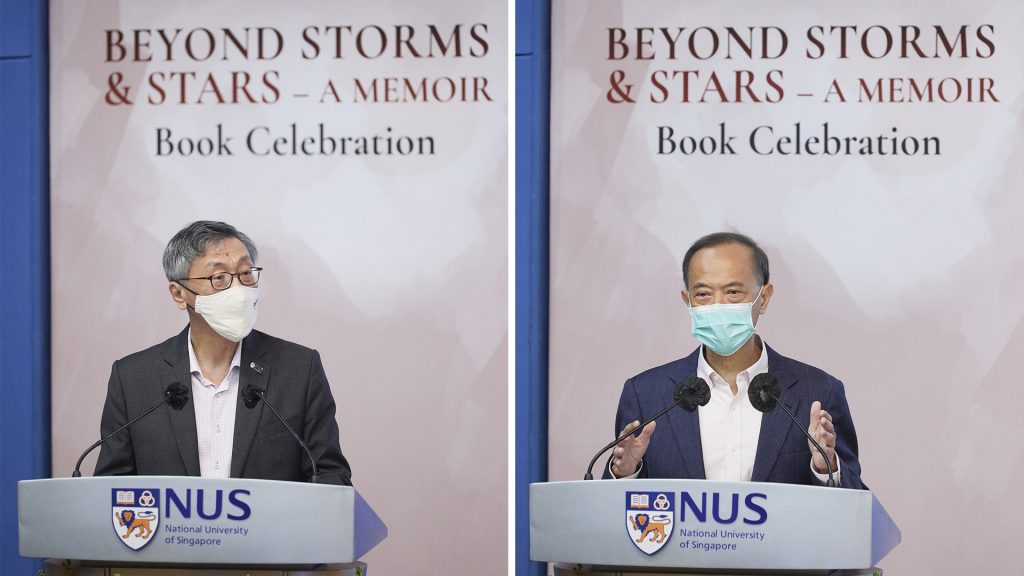
In his welcome remarks, NUS President Professor Tan Eng Chye lauded her tireless dedication in uplifting communities worldwide. “Dr Heyzer has been a lifelong champion of women’s rights, and among the early and leading proponents of sustainable development,” he noted.
"As a senior leader in the UN, she both witnessed and supported the rapid development of Asia, and has consistently advocated for equitable outcomes, and for shared prosperity and progress."
Former Singapore Minister for Foreign Affairs, Mr George Yeo, who was the Guest of Honour at the event, commended Dr Heyzer for being an exceptional woman, and for connecting Singapore to the world and helping make Singapore what it is today.
"What she did was truly remarkable, and not only remarkable because of her contribution to the UN but also her contribution to larger Singapore," he said.
"Acknowledging that larger Singapore will be an important next phase in our history... The reason why we are here, in our very identity, in our economic basis, in our cultural mores, is because we are connected."
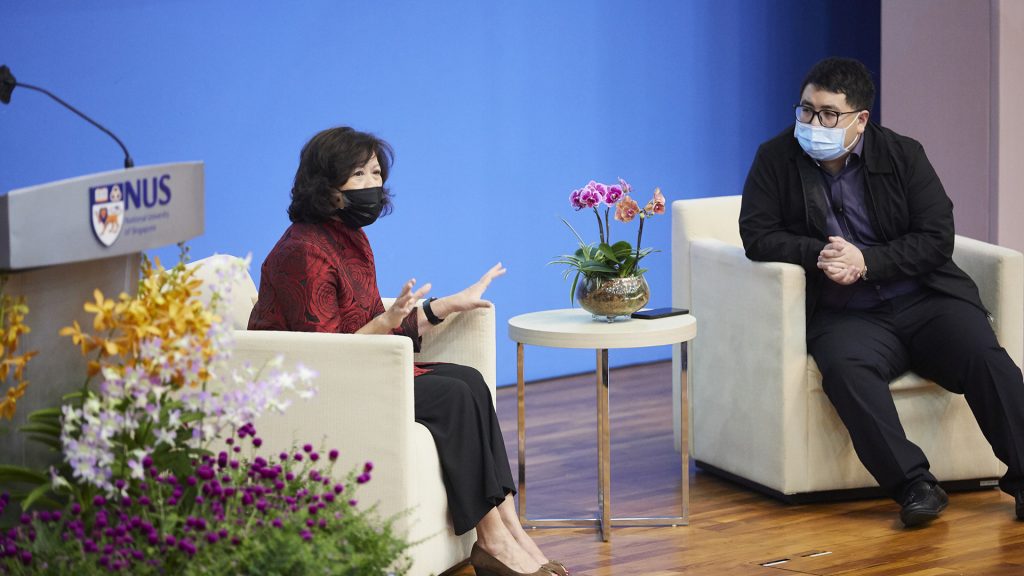
On COVID and climate change
Dr Heyzer’s meteoric rise within the UN is an inspiration for many. As the first woman to serve as the Executive Secretary of the Economic and Social Commission for Asia and the Pacific, she played a critical role in building the economic and social foundations for inclusive and sustainable development.
For her efforts in improving the lives of women and promoting peace and justice, Dr Heyzer was also nominated for the Nobel Peace Prize in 2005.
She received the NUS Eminent Alumni Award in 2011, and the NUS Distinguished Arts and Social Sciences Alumni Award in 2017. Dr Heyzer has been contributing strongly to her alma mater; she was previously on the NUS Board of Trustees before stepping down in 2019, and continues to serve as the co-Chairperson of the NUS Faculty of Arts and Social Sciences Advisory Board.

Globally, she continues to undertake missions to countries in conflict to advocate for equitable outcomes, shared prosperity, and progress.
But challenges remain, including the COVID‑19 pandemic and climate change – issues she discussed at the fireside chat with moderator, Mr Soh Yi Da, Vice President of Investor Relations at United Overseas Bank and NUS Outstanding Young Alumnus 2019.

“(The pandemic) has revealed the fragilities in our society. It has actually magnified the vulnerabilities across class and jobs,” she said in response to Mr Soh’s question on vaccine inequality.
“We are connected by our vulnerability, and this pandemic – in a sense – opened up a whole new mindset to look at what global security actually means. We can't function when lives are at risk… no one is safe until everyone is safer.”
While the pandemic is a crisis of a generation, climate change is also one of the other “great divides” that requires collective action.
“Earth is at code red…It requires us to be able to change, do some major transformation in terms of our infrastructure, housing and behaviour,” she noted. “It is something that we have to do collectively.”

Battlefield for a normative future
The Afghanistan conflict continues to fuel Dr Heyzer’s fight to preserve the values of gender equality and social justice.
Citing fears that what happened there could inspire other extremists, the social scientist said the world is a “battlefield for a normative future” – where global organisations need to determine the developments required to achieve desired future outcomes.

As the Taliban government seeks accreditation in the UN general assembly, Dr Heyzer is working with a team to prepare a letter of demands to the new government.
“What happened to women in that governance system also affected the men who are educated, who want to live in larger freedom,” she said. “It is not about Afghanistan, it is not about women. It is something much larger.”
Explaining how there is no future where half of the population is marginalised, she added: “You cannot have humanity based just on brotherhood. You have to have the synergy between brotherhood and sisterhood, and that community of togetherness is what will make a healthy, human future.”
View a recording of the webinar and fireside chat.
Dr Heyzer’s memoir, Beyond Storms and Stars, can be purchased at the NUS Co-Op.
This story first appeared in NUSnews on 27 September 2021.
.
Sociology Undergraduate and Graduate Award & Prize Winners
The NUS Department of Sociology is pleased to announce this year's winners of the following Academic Awards. Congratulations to these students for their academic excellence.
Undergraduate Awards & Prizes
| Award / Prize | Winner |
| ARS2 Special Prize (Sociology) | Ng Shu En Lydia |
| Tan Boon Khak Medal & Prize | Ng Nian Zi |
| ARS3 Special Prize (Sociology) | Ng Nian Zi |
| Rosie Heng-Ko Poh Choo Gold Medal & Prize | Tan Li Lin |
| Sociology Medal and Prize | Tan Zhi Han |
| Geoffrey SK Yu Sociology Prize | Oh Pei Shan |
| Murray Groves Memorial Prize |
Soh Jia Xuan Clara (Best HT in Ethnography) |
| Oh Pei Shan (Best HT in Demography | |
| Chng Heng Lay Memorial Prize |
Yap Ko Ko |
| Joy Eu Li Xin | |
| Goh Jie Wen, Natalie | |
| Wu Wenyi | |
| Tan Sue Kim |
Graduate Awards & Prizes
| Award / Prize | Winner |
| Lee Foundation Prize | Alexandra Denise Galvez |
Eurocentrism in the study of the Malay world
IN BRIEF | 4 min read
-
Read this latest piece by Professor Syed Farid Alatas, from the Department of Sociology at the Faculty of Arts and Social Sciences, NUS College of Humanities and Sciences in Berita Harian.
Click through image below to read this article.
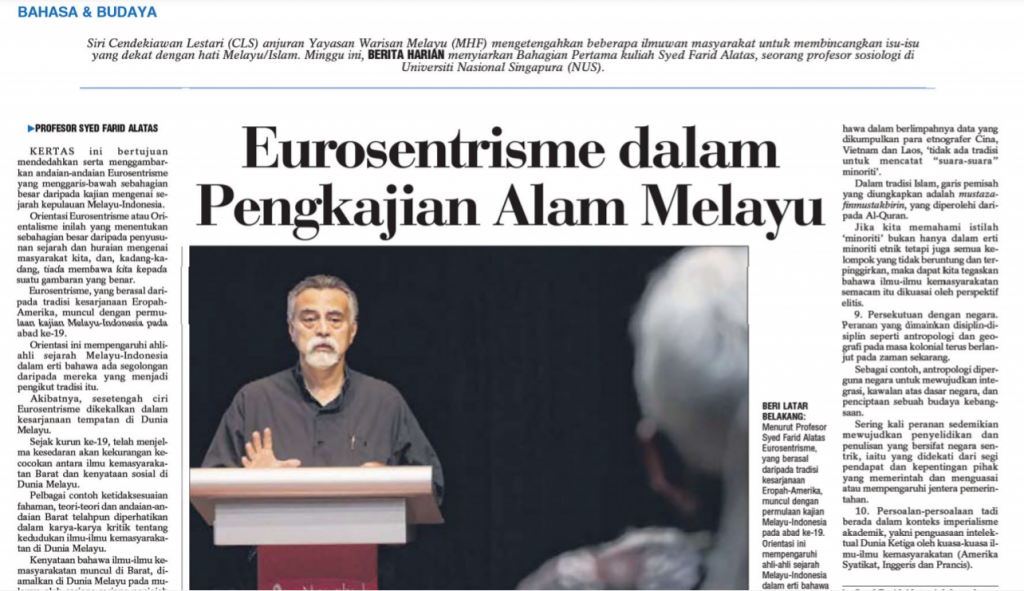
This story first appeared on Berita Harian on 23 August 2021.
New NUS Dean of Arts and Social Sciences Appointed
IN BRIEF | 5 min read
-
Professor Lionel Wee will be appointed the new dean of the NUS Faculty of Arts and Social Sciences (FASS) and co-dean of the College of Humanities and Sciences from 1 October 2021.
-
Prof Goh, who has served as the Dean since 2017, will be taking a leave of absence from the University, but will continue to contribute in the Singapore education sector as the new Provost at the Singapore University of Social Sciences from 1 October 2021.
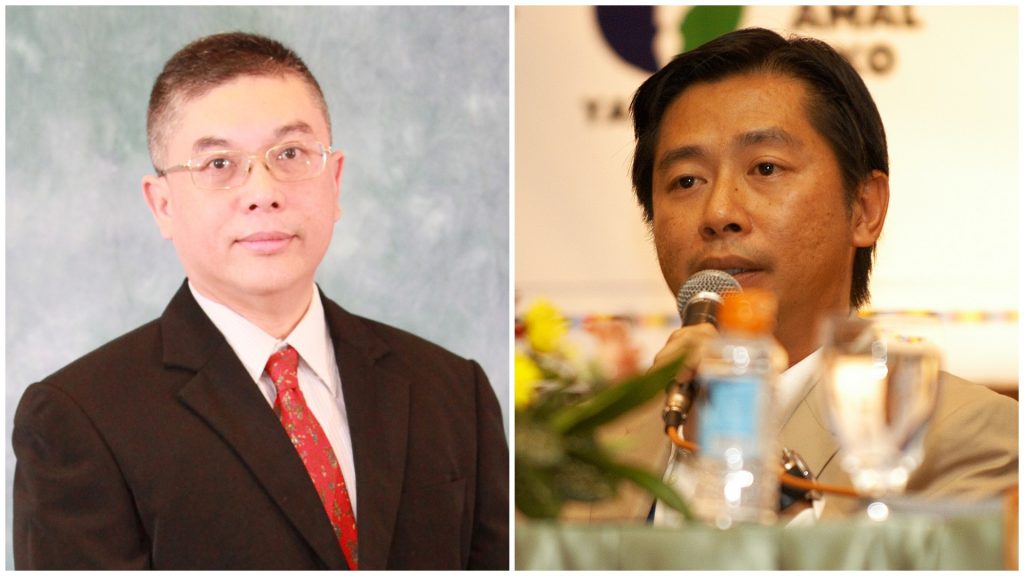
The University today announced the appointment of Professor Lionel Wee as the new Dean of its Faculty of Arts and Social Sciences (FASS) and Co-Dean of the College of Humanities and Sciences. Prof Wee will take over the helm from Prof Robbie Goh as the Faculty’s 18th Dean from 1 October 2021.
Currently FASS Vice Dean of Research and Professor of Linguistics in the Department of English Language and Literature, Prof Wee was appointed Provost’s Chair Professor in July 2017 for his outstanding scholarly achievements.
After graduating from NUS in 1988 with a Bachelor of Arts (First Class Honours) degree majoring in English Language and Sociology, Prof Wee embarked on an academic career, joining the University as a Teaching Assistant with the Department of English Language and Literature. He was awarded the NUS Overseas Graduate Scholarship where he pursued his PhD in Linguistics at the University of California, Berkeley. Prof Wee was appointed as a Lecturer upon his return to Singapore in 1995, and rose the ranks to full Professorship in 2012.
“NUS is pleased that after a rigorous global search, Prof Lionel Wee has been selected to be the next Dean. He is passionate about high quality education and research, and has an excellent understanding of FASS and the University, having served in numerous leadership roles at the department, faculty and university-levels. I am confident that he will bring the Faculty to new heights of international excellence,” said NUS President Professor Tan Eng Chye.
Besides serving as Vice Dean of Research at FASS from 2014 to present, Prof Wee was also the Head of the Department of English Language and Literature from 2010 to 2014. He had also contributed on various committees such as Chair of the FASS Faculty Promotion & Tenure Committee II, Chair of the University Mid-Term Advisory Report Committee, and Member of the University Promotion and Tenure Committee. In recognition of his dedicated service and contributions to NUS and education in Singapore, Prof Wee was awarded the National Day Awards Public Administration Medal (Bronze) in 2020 and the Long Service Medal in 2018.
“I am excited and honoured to be given this opportunity to lead my alma mater as its next Dean. Having spent more than three decades at FASS, both as a student and a faculty member, I have experienced firsthand the selfless commitment of my colleagues and impressive insights our students bring to the study of the arts, humanities and social sciences. I am confident that together, we can continue to make significant contributions to society while enhancing our Faculty’s standing as one of the leading humanities and social sciences faculties in the world,” said Prof Wee.
Besides his passion in linguistics, Prof Wee feels very strongly about animal welfare and is also very much an avid city traveller, although the pandemic has put quite a damper on travel in the past year or so. He also enjoys the cafes, a habit which he picked up during his time as a graduate student in Berkeley. Students and colleagues at FASS may have many a times seen Prof Wee deep in thought at the cafes across the NUS campus. He is very much focused in developing a particular idea or argument once he is seated down and would need to walk around before he can move on to another new idea.
Prof Wee has published widely in international and local journals, and also sits on the editorial boards of a number of academic journals and publications, including Applied Linguistics, English World-Wide, Multilingual Margins, The Journal of Asian Linguistic Anthropology, the “Cambridge Elements: World Englishes” book series, and the “Multilingualisms and Diversities in Education” book series. He is a well-respected scholar with research interests in the areas of language policy (especially in Southeast Asia), the grammar of Singapore English, metaphorical discourse, and general issues in sociolinguistics and pragmatics.
Prof Goh, who has served as the Dean since 2017, will be taking a leave of absence from the University. However, he will continue to contribute in the Singapore education sector as the new Provost at the Singapore University of Social Sciences from 1 October 2021.
Prof Goh said, “It has been a privilege and honour to serve as Dean of one of Singapore’s largest and most historied Faculties. I am grateful to my talented colleagues for all their hard work. I believe that together, we have brought the Faculty to new heights of excellence in teaching, research and service. I look forward to the work of creating new programmes and nurturing talent in my next role as Provost of the Singapore University of Social Sciences, and hope that I will also be able to forge new ties and collaborations between the two universities."
Having spent more than three decades at the University, Prof Goh has taken on numerous administrative and leadership roles outside of the Faculty. He was Deputy Director of the NUS Centre For the Arts from 1996 to 1999, and Deputy Director of the Asia Research Institute from 2008 to 2010.
“On behalf of the University, I would like to express my heartfelt appreciation to Professor Robbie Goh for his dedication and strong stewardship in leading NUS FASS. Under his visionary leadership, the Faculty has made significant contributions to the advancement of education and research in the humanities and social sciences. During his leadership, the FASS 2.0 Industry Tracks programme was started to enhance the employability of its graduates. New multidisciplinary initiatives such as the Philosophy, Politics & Economics programme were also established. The Faculty has also expanded collaborations with industry and further strengthened its high international reputation,” added Prof Tan.
This story first appeared on NUSnews on 13 August 2021. The full press release is here, and Professor Lionel Wee's biography is here.
From Careers for a Lifetime, to a Lifetime of Careers
IN BRIEF | 5 min read
-
The top skills desired by employers will include critical thinking, analysis, problem-solving and self-management skills such as active learning, resilience, stress tolerance and flexibility.
What does the future of work look like? In this evolving world, new occupations and roles which did not previously exist continue to emerge, while certain traditional skills and jobs continue to become obsolete.
The World Economic Forum’s (WEF) The Future of Jobs Report 2020 (October 2020) highlighted a few key trends.
First, technological adoption of cloud computing, Big Data and e-commerce in many businesses will accelerate the transformation of jobs, skills and entire industry value chains. 85 million jobs are expected to be displaced by a shift in division of labour from humans to machines by 2025, while 97 million new roles may emerge.
Second, online learning and training boomed during the pandemic. The shift was a watershed moment, and there is no turning back for many industries. The pandemic also brought into sharper focus the importance of lifelong learning, with more employees upskilling and reskilling to stay relevant in the volatile job market. More workers are now pursuing personal and professional development, especially in digital skills.
Last but not least, the top skills desired by employers will include critical thinking, analysis, problem-solving and self-management skills such as active learning, resilience, stress tolerance and flexibility.

What skills do employers seek?
Many of these in-demand skills highlighted in WEF’s report corroborate CFG’s Industry Insights Survey (2020). Drawing on insights from career events, industry surveys and engagements, CFG’s survey cited a similar list of soft skills that are becoming increasingly imperative at the workplace.
These are abilities learnt through life experiences that are impervious to change, and relevant across all professions and workplaces. They are attributes we take with us when we embark on job pathways in the New Normal - which are shifting from one defined career over a lifetime, to a series of dynamic and rapidly changing careers.
Our survey clusters these abilities into two main categories: Personal Qualities and Workplace Traits.
Personal qualities
Many employers are looking for individual cognitive abilities such as problem-solving, learning agility and pattern-recognition. They are also seeking graduates who are equipped with design and computational thinking, as well as proficiency in quantitative analysis.
They want graduates who are able to look at problems from different perspectives, to solve complex problems in real-world environments. For example, can a customer service issue be resolved with a combination of user interface design changes, IT infrastructure automation and manpower staffing? What are consumer consumption patterns and behaviours telling us?
Employers also seek character traits such as curiosity, resilience, empathy, proactivity, leadership and adaptability. These traits are predictors of future potential, and potentially determine career longevity and progression. For example, are you curious to learn what other teams or functions are doing beyond your job scope and discover potential synergies? Are you adaptable to changes in your project scope, and possess a “can-do” attitude in the face of obstacles?
Workplace traits
Besides personal qualities, employers are also looking for graduates who possess certain desirable workplace traits. These include good communication and presentation skills, cultural sensitivity and a global mindset. Graduates with business acumen, who are able to influence and negotiate, and are competent in managing different teams and projects, are much sought after.
These attributes mirror the realities of the modern workplace, where teams and projects are becoming more diverse, cross-functional, cross-cultural and business-driven. For example, can you work with a diverse team of colleagues towards achieving a common objective? Can you visualise your organisation’s business potential in an overseas market or a new customer segment?
The call to CHS students
In CHS, you will acquire interdisciplinary knowledge and skills by learning how to draw connections, links and insights across diverse disciplines. It is this important foundation of interdisciplinarity that will better prepare our students to become problem-solvers in an uncertain world beyond the pandemic.
Even as the pandemic has accelerated digital transformation, data is now the new asset that enables businesses to enhance efficiency and augment the ability of their teams to deliver greater value. CHS will focus on competencies like data literacy and design thinking, skills that are now in high demand by industries seeking to unlock value from Big Data.
Beyond academics, internships are one of the best ways to hone workplace experience. When you are on vacation, aim for at least two (if not more) internships, preferably one with an overseas employer. Immerse yourself in co-curricular activities, which provide hands-on opportunities to gain skills such as leadership, teamwork and project management. These experiences in your resume and portfolio will place you in a better stead with employers.

Enhancing employability, preparing for careers
CHS students will have a dedicated Career Advisor, who will guide you through the process of developing a personal career plan. You will be pre-assigned a career preparation module, Career Compass, closely following CFG’s four-year Career Readiness Roadmap which provides a formal framework for your career planning during your undergraduate journey.
You will be enrolled in Career Catalyst, a foundational freshmen module that identifies your core strengths and enhances your profile towards securing an internship. As you progress to Years Two/Three and your final year, you can also sign up for our Career Booster workshops or Career Advancement Webinar Series (CAWS).
Article contributed by the Centre for Future-ready Graduates (Ms Joan Tay, Director and Career Advisors Mr Ryan Ang and Mr Ng Buck Seng)
This story first appeared on CHS on 29 July 2021.
NUS CHS Case Competition: Driving EV Adoption in Singapore
IN BRIEF | 1 min read
- The just-released problem statement for NUS CHS' inaugural Case Competition – Encouraging electric vehicle (EV) ownership in Singapore – is an important real-world topic of especial relevance to us all, as the nation is driving toward a future of electric mobility that is essential to the Singapore Green Plan 2030.

Are you interested in translating your innovations to reality by applying interdisciplinary knowledge and skills?This is now possible with the inaugural College of Humanities and Sciences (CHS) Case Competition, launched on 26 July.
The competition is specially designed for NUS students, and enables participants to synthesise ideas and perspectives from different disciplines to solve complex, real-world challenges.

The competition themes, “Sustainability” and “Technology and Us”, are highly topical today. The problem statement - Encouraging electric vehicle (EV) ownership in Singapore - is an important real-world topic, even as Singapore ushers in a future of electric mobility as a key piece of the puzzle in the Singapore Green Plan 2030.
At the virtual launch, our competition partners - the Ministry of Transport, KPMG and Schneider Electric - discussed plans by the Singapore government to usher in the future of EV, Schneider Electric’s vision of a 100% electric mobility future with net-zero carbon emissions and upcoming trends in mobility solutions identified by the advisory arm of KPMG.

Participants will have the opportunity to attend mid-term workshops in mid-August, which provide important domain knowledge, including engineering and design, and communications skills.
The project submissions will be judged in the final round of the competition on 20 September by representatives from our competition partners. They will also be sharing their EV domain expertise with the participating teams throughout the competition.
The launch was attended by more than 100 participating teams (close to 200 individual attendees) from across NUS.
Find out more about the competition here and read the problem statement here.
Strong Interest in Interdisciplinary Learning With High Acceptance Rates
IN BRIEF | 5 min read
-
NUS President Professor Tan Eng Chye discusses the University’s recent interdisciplinary initiatives – the setting up of the College of Humanities and Sciences (CHS) and the new Common Curriculum for the Faculty of Engineering and the School of Design and Environment – and the importance of lifelong learning in ensuring that students are adaptable and future-ready.
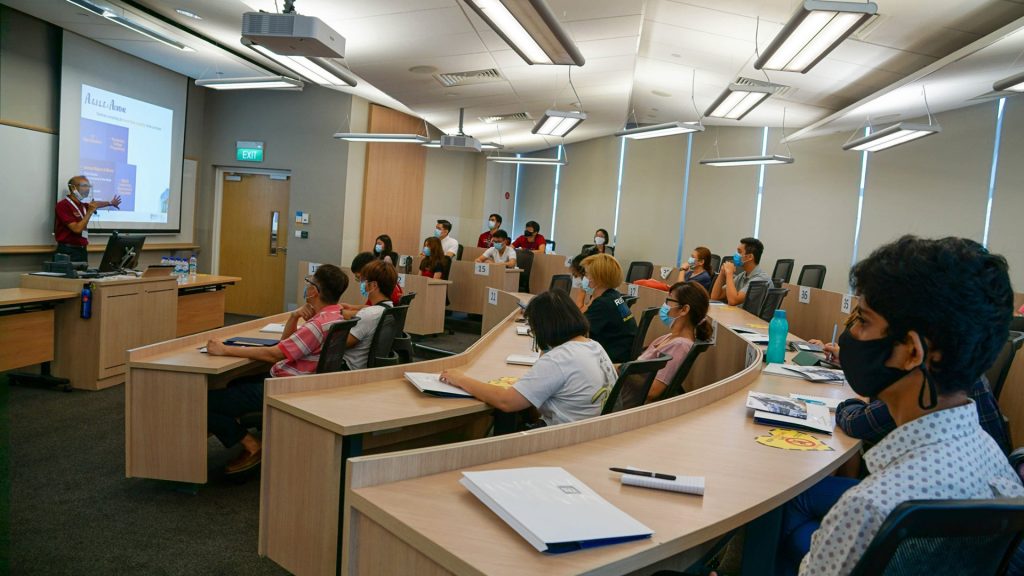
In today’s volatile, uncertain, complex and ambiguous (VUCA) world, staying stagnant is never an option. Now, more than ever, universities have to prepare students to thrive in a fast-changing and unpredictable post-COVID reality through an interdisciplinary education.
Just ask the incoming batch of freshmen, who have given a thumbs-up to the University’s recent interdisciplinary initiatives – specifically, the setting up of the College of Humanities and Sciences (CHS), and the new Common Curriculum for the Faculty of Engineering and the School of Design and Environment.
During the admissions exercise this year, 71 per cent of those who had applied to these programmes as the first choice accepted the offer. Among the incoming batch of freshmen, over 4,000 will be exposed to an interdisciplinary education. By August 2022, NUS hopes to push this number to more than 6,000.
“We are quite heartened that the applicants have responded very well,” said NUS President Professor Tan Eng Chye, as he spoke on the new changes in NUS’ curriculum. “They are receptive to the flexibility that they will have. No more are you confined to one discipline.”
Prof Tan noted that the world faces many wicked problems that cannot be solved with only one discipline.
He cited COVID-19 as a wicked problem, requiring more than just medical sciences to solve. “Even with the right medical knowledge, many countries had difficulties handling COVID-19 and its spread,” he noted.
The pandemic, in fact, prompted NUS to ramp up efforts in remodelling its educational philosophy and pedagogies to prepare its graduates for this dynamic reality.
At the centre of these reforms is the push for lifelong learning, as well as the shift towards interdisciplinary education to ensure students are adaptable and future-ready.
A lifetime of learning
While universities used to prepare their graduates for a single job, this approach is fast becoming obsolete. Today, graduates will change jobs at least 10 times over the course of their lifetime.
In line with this trend, NUS has been future-proofing its education to prepare students for lifelong learning.
“A student’s enrolment is valid for 20 years from the point they enter the university,” Prof Tan explained. “We want to remove the conception that university is only for four years. You can always come back to (NUS) to learn new skills and knowledge.”
For instance, the NUS Lifelong Learners (L3) programme upskills alumni through a wide array of skill-based, industry-relevant courses, carefully tailored to focus on emerging skills identified under SkillsFuture such as data analytics or digital literacy.
The process of returning to NUS for further studies is also made seamless. If a student does not complete a second major or degree in their initial four years, they are welcome to return to the university to read the necessary remaining modules even after graduation.
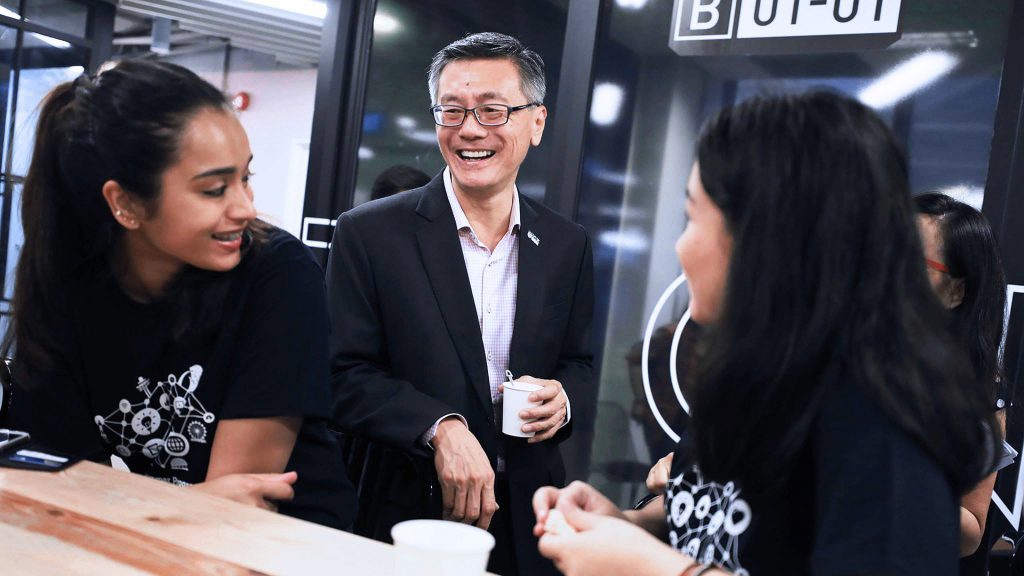
Towards interdisciplinary learning
Recognising the benefits of interdisciplinary learning, NUS is rolling this out to more students.
This started with the launch of CHS, which brings together the Faculty of Arts and Social Sciences and the Faculty of Science.
In the upcoming semester, CHS will admit 2,200 students and they will take a new Common Curriculum within their first three semesters – consisting of integrated modules with a problem-based pedagogy.
Similarly, a Common Curriculum has been introduced for the Faculty of Engineering and the School of Design and Environment to encourage knowledge transfer between the two complementary disciplines.
For instance, NUS’ very own net-zero energy building at SDE4 is a product of melding both architecture and engineering – the first of its kind in Singapore.
“The building’s beautiful architectural design alone doesn’t contribute to it being net-zero energy. What you have is a lot of deep engineering work embedded into it. It shows that architects have to work very closely with engineers in order to achieve this,” explained Prof Tan.
With interdisciplinary learning, the proportion of Unrestricted Elective modules a student can take has also been increased to up to 30 per cent, encouraging students to have two or more specialisations.
In the four faculties that now have an interdisciplinary common curriculum, this works out to more than 700 possible double major pairings, 1,700 major-minor pairings, and 100,000 major with double minor combinations.
Expanding choices for students
Ultimately, these educational innovations create greater flexibility for students to curate their own curriculum.
They will no longer have to make an immediate commitment to a single discipline. Instead, they are given time to decide on their academic calling through the common curriculum.
These efforts are central to NUS’ flagship role as a creator, integrator and propagator of knowledge.
Looking ahead, the structural barriers between faculties will further dissolve, allowing students to build even broader connections between disciplines.
“Right now, we have 70 majors and 80 minors, but we may actually have more as we go along. We start with a minor. If there’s enough interest, we push it to a second or full major. The possibilities are endless especially as we move online,” said Prof Tan.
This story first appeared on NUSnews on 26 July 2021.
Creating New Internship Opportunities: Engaging Employers to See Value in Humanities and Social Sciences
IN BRIEF | 4 min read
-
Mr Jonathan Sim, instructor from the Department of Philosophy, describes how he engaged with local employers to open internship opportunities to humanities and social sciences students who would not previously have been considered.

Humanities and social science majors are frequently misunderstood, in Singapore as in many other parts of the world. The value of their education is regularly questioned, and many employers are unaware of the value such majors can bring to the table. They prefer to hire graduates with more explicitly “practical” degrees for jobs that humanities and social sciences students could excel in.
As a result, humanities and social sciences students are not typically considered for many organisations and roles, despite offering relevant and useful skills.
So when developing an internship module, I began reaching out to organisations to create internship opportunities in such roles, to boost receptivity to hiring students from these disciplines. This enabled potential employers to better understand how students in subjects they might have previously overlooked can fill gaps in their talent pool.
Compounding the issue is that many humanities and social sciences students are unaware of the diversity of careers available to them and tend to limit themselves to roles stereotypical of their majors. There is a good reason for this. When these students apply for non-stereotypical roles, they are often turned down due to having an “impractical” major.
I regularly hear employers and people in the corporate sector lamenting the lack of creativity and critical-thinking and communication skills in their industries. These key capabilities are needed to challenge assumptions, innovate and improve processes within organisations. Employers’ lack of awareness of the value of humanities and social sciences is preventing them considering this potential talent pool.
Starting an internship module
I teach a module on data analysis and philosophical reasoning to hundreds of students each semester. With so many students under my charge, I was inspired by the idea that education is more than just about imparting knowledge. Rather, it is about facilitating growth in one’s students by providing them with opportunities for challenge and development.
As a result, I decided it would be worthwhile to experiment with an internship module where I approach employers, explain the value my students can bring to their organisation and ask them to offer temporary roles not typically filled by humanities and social sciences majors. A model designed to be mutually beneficial to both employers and students.
Here are my key lessons in how to do this:
Start by approaching contacts working in human resources (HR) and ask them to link you up with senior management or with department heads of your target companies. I initially spoke to friends in HR and some of them linked me up with HR professionals from other organisations.
Provide reassurance that you will be guiding and mentoring the students throughout the programme. My credentials as a university educator meant employers were generally open to exploring this strategic partnership.
Prepare and present a pitch clearly describing what value and skills your students can bring to the companies where you wish to secure internships. I explained how my students were excellent in data analytics, coding and problem-solving, and their training in humanities and social sciences meant they could bring unique perspectives thanks to creativity and critical thinking. Having worked with the students for one semester already, I could also vouch for their character, including attributes such as work attitude, independence and willingness to learn.
Discuss the job scope and be honest and realistic about what your students can and cannot do. I helped advise the hiring managers on my students’ capabilities, based on what I had taught them, and sometimes this meant suggesting new items in the job scope that the organisation may not have considered.
Invite students to apply for the roles available by submitting their CVs, then interview shortlisted candidates. I found interviews useful to get a better understanding of what students wanted to do and what they hoped to achieve during the internship. The application process also provided an opportunity to work with students to improve their CVs and interview skills before they spoke to employers.
Try to match students with internship roles that will best suit their personality, skills and career aspirations.
During the internships, check in on students regularly and ask them to share any challenges, so you can help them troubleshoot any issues. My role was more like an adviser pointing them to resources or giving life advice on how to handle novel social or professional situations.
Ask the students to write reflections centred on how their training in humanities and social sciences can be applied to the work they do as an intern. This helped me gauge the extent of their learning but also nudged students towards deeper reflection on their discipline to see its value and relevance in the work they did. It was very eye-opening to see concrete examples of how students found connections and applications between their studies and their work.
Benefits to organisations and students
These collaborations have proven mutually beneficial. They allow participating organisations to develop strategic partnerships with the university, helping employer branding and making it easier for them to attract talent.
At the same time, the student interns become living proof to employers that their major makes them as good as, if not better than, some students from more “practical” disciplines. The internships help inform humanities and social sciences students that they can take on roles they never thought were open to them.
We have completed one round of internships with organisations such as Henkel, a German multinational chemical and consumer goods company, and Azendian, a local AI data analytics start-up.
Students were pleased with the chance to take up roles they would not have ordinarily pursued, or been given a chance to try, in areas such as supply chain and logistics management, database management and data analytics for marketing. The internships provided profound insights on how they can apply the skills from their majors in ways that allow them to craft a niche in such roles.
The first round of placements seems to have persuaded employers to be more receptive when it comes to hiring humanities and social sciences students, as they have asked for more interns in subsequent iterations.
This is just the beginning, and there is a lot more that we can achieve in our capacity as university faculty by engaging with local organisations and employers. We can work to create more internship opportunities and help employers better understand the capabilities of our students across multiple disciplines here in Singapore and further afield.
This story first appeared on Times Higher Education on 21 June 2021.
Commencement 2021: Special Message of Congratulations to the Classes of 2020 and 2021!
IN BRIEF | 3 min watch
-
FASS Faculty and students congratulate the Classes of 2020 and 2021 and wish them all the best as they go out to change the world for the better!
“We believe in you. I believe in you. Go out there, do us proud. Make the world a better place.” — Associate Professor Loy Hui Chieh, FASS Vice Dean of External Relations and Student Life FASS, joint committee member of the NUS Philosophy, Politics, and Economics (PPE) programme, and also Faculty member of staff at the NUS Department of Philosophy.
Faculty and students talk about what life has been for them this past year, what they miss about campus life, and extend words of advice and congratulations to the graduating Classes of 2020 and 2021.
This video features Assoc Prof Loy and Dr Lohsnah Jeevanandam, Senior Lecturer, NUS Department of Psychology, as well as students from the graduating Classes of 2020 and 2021: Alvarez Brielle Clavel ('20); Somesh s/o Sailesh ('20); Douglas Ong ('20), Christina Chen (Doctoral Class of '20); Ng Qian Qian ('21); and, Lai Wei Na ('21).
Meet the Neighbours: The Seven Animals You’ll Spot in NUS
IN BRIEF | 5 min read
-
NUS is not only a second home for staff and students, but also a place for a wide range of biodiversity to call home. Mr Athanasius Koh, a management trainee with the NUS Faculty of Arts and Social Sciences (FASS) and FASS Political Science alumnus ('21) tells us about the interesting animals he has spotted around campus.
Beyond the lecture theatres, classrooms and student hangout spots, it is hard to miss the lush greenery that surrounds NUS. This has made the campus environs not only a second home for staff and students, but also a place for a wide range of biodiversity to call home.
These habitats are here to stay too. Emphasising NUS’ commitment to preserving its rich biodiversity, fighting climate change and being an environmentally responsible campus, the “Planting 10,000 Trees” initiative launched by NUS President Professor Tan Eng Chye in 2018 saw 500 mature trees planted throughout the campus, as well as 9,500 saplings nurtured in the NUS nursery. In addition, a strict policy to protect existing trees was also implemented.
Mr Athanasius Koh, a management trainee with the NUS Faculty of Arts and Social Sciences (FASS) Corporate Communications team for the past six months, and avid nature photographer, takes regular photo walks exploring these habitats. Mr Koh, who is also from the FASS Class of 2021, shares about the interesting animals he has spotted along the way.
Collared Kingfisher (Todiramphus chloris)
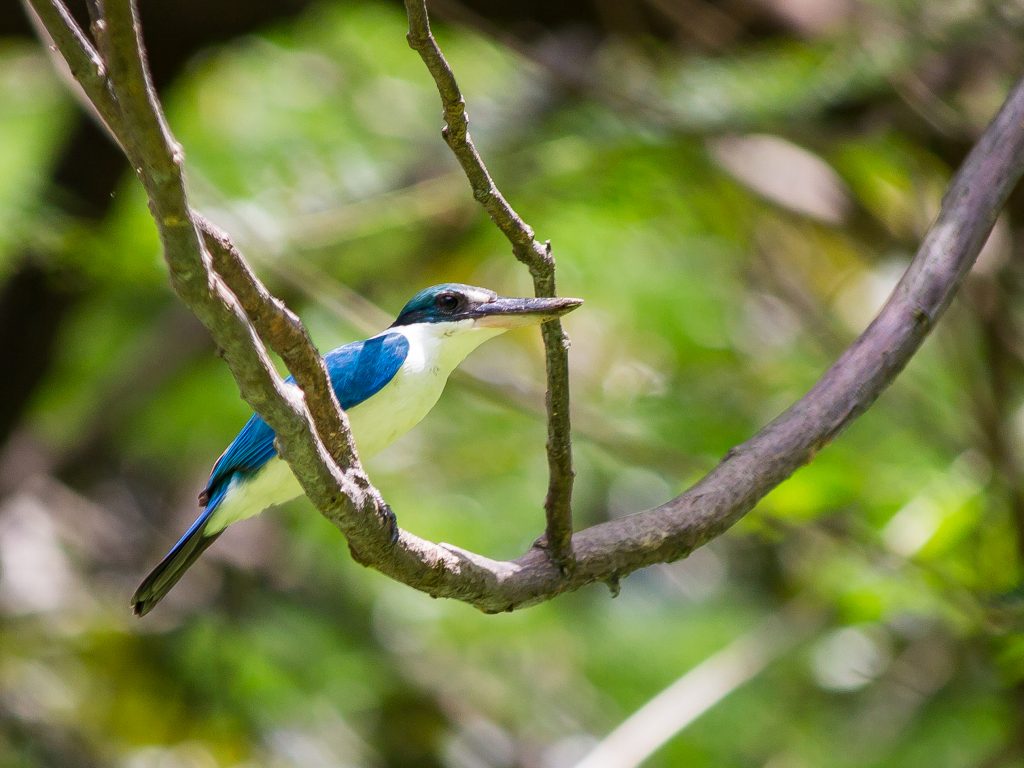 A collared kingfisher perched on a tree at AS8. (Photo: Mr Athanasius Koh)
A collared kingfisher perched on a tree at AS8. (Photo: Mr Athanasius Koh)
Dressed in beautiful blue feathers and a broad white “collar” around its neck, the collared kingfisher is a vocal bird spotted about campus with its series of harsh “kee-kee” notes, described by some as a maniacal laugh.
The collared kingfisher has also been quite the icon in Singapore’s history, gracing not only stamps but even the now decommissioned $10 note as part of The Bird Series Currency Notes from 1976 to 1984.
Look out for the collared kingfisher’s outstanding blue plumage as it rests atop trees and lamp posts. This sharply dressed celebrity is an easy spot around FASS and NUS Faculty of Engineering.
Red Junglefowl (Gallus gallus)
 Male red junglefowls proudly flaunt their dark green tail feathers and black primary feathers. (Photo: Mr Athanasius Koh)
Male red junglefowls proudly flaunt their dark green tail feathers and black primary feathers. (Photo: Mr Athanasius Koh)
Even if you have never personally caught sight of the resident FASS red junglefowl, you are more than likely to have heard its signature “cock-a-doodle-doo” around the faculty. Often confused for the domestic chicken, the red junglefowl is in fact its wild ancestor.
According to a study led by NUS ornithologist Associate Professor Frank Rheindt, the red junglefowl can be quite easily distinguished from the domestic chicken. Male red junglefowls proudly flaunt their dark green tail feathers and black primary feathers while females have distinguishing grey legs and sport black primary feathers.
While it remains a mystery why it crosses the road, the red junglefowl and its loud presence has certainly captured the attention of students and staff alike.
Plantain Squirrel (Callosciurus notatus)
 A plantain squirrel resting on a tree behind AS4. (Photo: Mr Athanasius Koh)
A plantain squirrel resting on a tree behind AS4. (Photo: Mr Athanasius Koh)
Scurrying and leaping from tree to tree, the plantain squirrel is an adorable sight if you are lucky to observe one at rest or enjoying its meal. This active animal is one of the most common mammals in Singapore and can be identified by distinctive black and white stripes on the sides of its body and its long bushy tail.
These physical features might have you thinking what a beautiful squirrel it is, and you are not alone! In fact, Callosciurus, the plantain squirrel’s taxonomic group, translates to “beautiful squirrel”.
Blink and you just might miss this nimble creature, but the plantain squirrel can be commonly found on the trees around NUS such as at the NUS Faculty of Science. Listen out for the rustling of leaves and you just might come face-to-face with this lovable rodent.
Rose-Ringed Parakeet (Psittacula krameri)
 A rose-ringed parakeet perches on a branch after breakfast along the AS6-AS8 walkway. (Photo: Mr Athanasius Koh)
A rose-ringed parakeet perches on a branch after breakfast along the AS6-AS8 walkway. (Photo: Mr Athanasius Koh)
Often moving in flocks and squawking in unison, the rose-ringed parakeet is a loud presence in NUS. Sporting a bright green plumage, orange beak and blue-tipped tail, males also have an added pink collar around their neck in their third year.
The rose-ringed parakeet was introduced to our green spaces as escaped pets. Native to the Indian subcontinent and northern Southeast Asia, it is a resilient bird that has thrived even in locations as far as Europe!
A bird that you might hear before you see, the rose-ringed parakeet has been spotted on sunny mornings at FASS’ Lovers’ Park and along the walkway between Blocks AS6 and AS8 grabbing its breakfast.
Yellow-vented Bulbul (Pycnonotus goiavier)
 The Yellow-vented Bulbul is easily distinguishable from its black eye-mask, olive-brown back and yellow undertail (Photo: Mr Athanasius Koh)
The Yellow-vented Bulbul is easily distinguishable from its black eye-mask, olive-brown back and yellow undertail (Photo: Mr Athanasius Koh)
One of the most common birds in Singapore’s many green spaces besides the mynah, the yellow-vented bulbul is an easy spot with its black eye-mask, olive-brown back and wings and most strikingly, yellow undertail.
An unfussy fellow, the yellow-vented bulbul has been observed to feed on a variety of small fruits and insects. In addition, it can sometimes be seen carrying strips of man-made waste like plastic bags and tissue paper to be used as nesting material. You might have heard its distinct chirps before, without knowing that it was the yellow-vented bulbul, but now you can keep an eye out for them too! Spot them in shrubs and trees around campus, such as the patch of greenery right outside NUS Press at Block AS3.
Changeable Lizard (Calotes versicolor)
 Adult male changeable lizards develop an orange-coloured head and black patches over their cheeks during the mating season (Photo: Mr Athanasius Koh)
Adult male changeable lizards develop an orange-coloured head and black patches over their cheeks during the mating season (Photo: Mr Athanasius Koh)
Often mistaken for the chameleon, the changeable lizard definitely is not one at all, but that does not stop it from changing its colours when it needs to! Usually brownish to greenish yellow with faint stripes along its body, adult males develop an orange-coloured head and black patches over their cheeks during the mating season.
As common as this rapid reptile is, you might be surprised to know that it is not native to Singapore. It is believed that it was accidentally introduced in the 1980s and has since populated in numbers, aggressively displacing the native green crested lizard (Bronchocela cristatella).
While the changeable lizard is somewhat adept at camouflaging, its timid nature means that you are more likely to find it scurrying away the moment there is a slightest disturbance, rustling up the grass. They can be seen all around campus such as at the FASS Fragrant Plant Garden or outside The Deck.
Oriental Pied Hornbill (Anthracoceros albirostris)
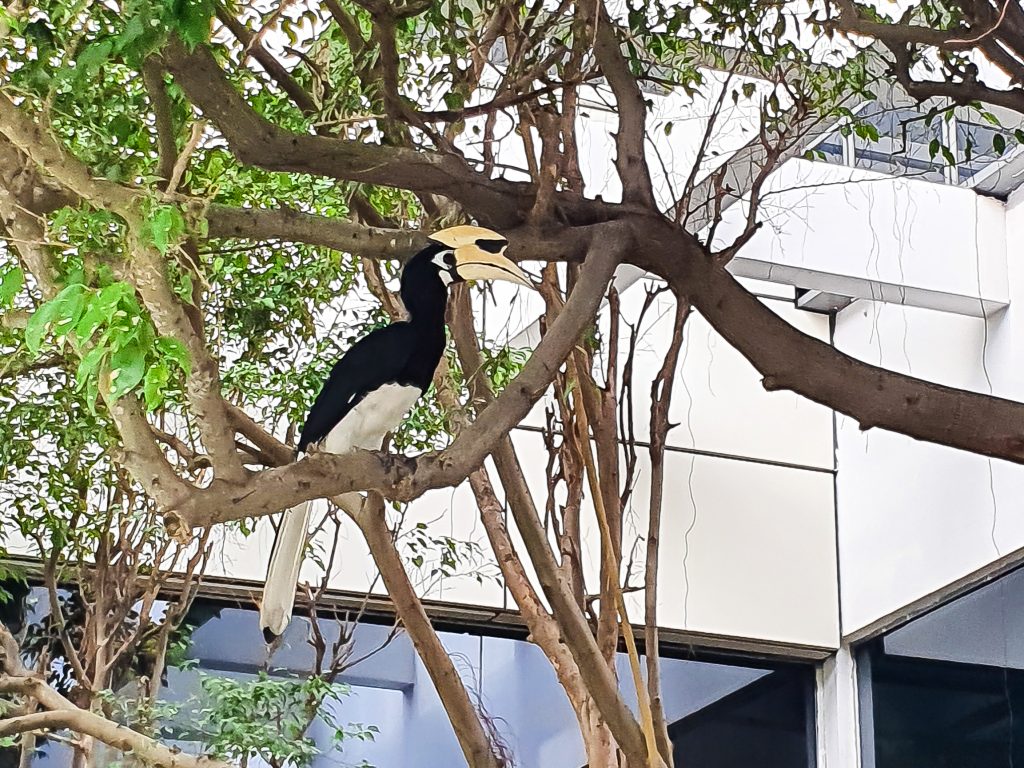 An oriental pied hornbill perches on a tree outside of AS7, Shaw Foundation Building. (Photo: Mr Athanasius Koh)
An oriental pied hornbill perches on a tree outside of AS7, Shaw Foundation Building. (Photo: Mr Athanasius Koh)
The oriental pied hornbill has certainly made an impactful comeback to Singapore’s shores. Once thought to be locally extinct, the large bird can be identified by its casque atop its beak as well as its black and white plumage.
Along with other “celebrity wildlife” like the otters in Singapore, the oriental pied hornbills’ return to the mainland can be largely attributed to conservation efforts by the National Parks Board, Wildlife Reserves Singapore and the local research community. These efforts include providing sufficient mature trees for hornbills that favour nesting in tree holes.
Spotted across a number of locations in Singapore, NUS is no exception. It has been spotted in University Town and around FASS Block AS1 as well as the trees outside AS7, Shaw Foundation Building.
Now that you have met some of the interesting wildlife that have called NUS their home, be sure to keep an eye out for our neighbours in nature between classes! Do appreciate them from a safe distance and refrain from feeding them.
This story first appeared on NUSnews on 17 June 2021.
NUS CHS Case Competition: Solutions for Tomorrow
IN BRIEF | 1 min read
- The NUS College of Humanities and Sciences has launched the Case Competition Series. Register your interest now!
 The NUS College of Humanities and Sciences has launched the Case Competition Series, which seeks to encourage undergraduate and post graduate students to apply their curriculum learning to tackle complex real-world challenges that require interdisciplinary approaches to their solution. The students, who are expected to work in teams comprising members from across different disciplines, will be presented with a complex problem (to be shared at the start of the competition in late July), and given four weeks to build their cases in consultation with participating industry and Faculty advisers before their presentation for the first round of judging. Scan the QR code below or just click here to register your interest as team leader for this competition now. More details will be released to participants next month.
The NUS College of Humanities and Sciences has launched the Case Competition Series, which seeks to encourage undergraduate and post graduate students to apply their curriculum learning to tackle complex real-world challenges that require interdisciplinary approaches to their solution. The students, who are expected to work in teams comprising members from across different disciplines, will be presented with a complex problem (to be shared at the start of the competition in late July), and given four weeks to build their cases in consultation with participating industry and Faculty advisers before their presentation for the first round of judging. Scan the QR code below or just click here to register your interest as team leader for this competition now. More details will be released to participants next month.
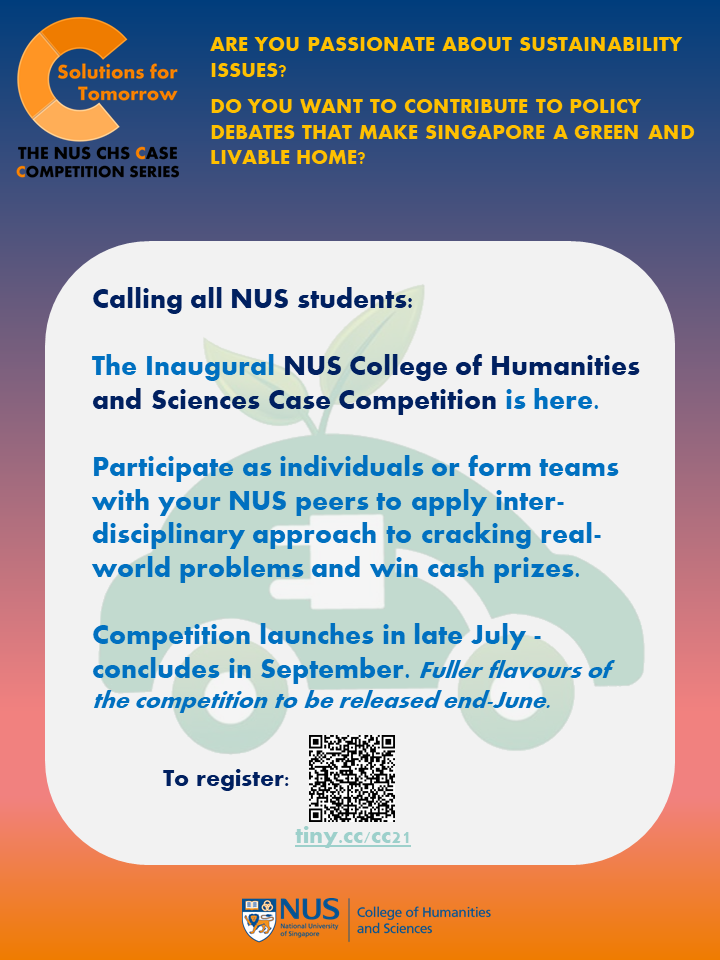
Honouring five outstanding alumni from Arts and Social Sciences
IN BRIEF | 3 min read
- Five exceptional NUS Faculty of Arts and Social Sciences (FASS) alumni from diverse backgrounds were lauded at the annual FASS Distinguished Arts and Social Sciences Alumni Awards 2020 in a simple presentation ceremony on 30 April at Swissotel The Stamford.
 (From left to right): FASS alumni Mr Yatiman Yusof, Mr Niam Chiang Meng, Ms Lim Sau Hoong, Mr Ravi Menon and Dr Liang Wern Fook have made singular contributions to the areas of the arts, education, media, finance, policy and community development.
(From left to right): FASS alumni Mr Yatiman Yusof, Mr Niam Chiang Meng, Ms Lim Sau Hoong, Mr Ravi Menon and Dr Liang Wern Fook have made singular contributions to the areas of the arts, education, media, finance, policy and community development.
Five exceptional NUS Faculty of Arts and Social Sciences (FASS) alumni from diverse backgrounds were lauded at the annual FASS Distinguished Arts and Social Sciences Alumni Awards 2020 in a simple presentation ceremony on 30 April at Swissotel The Stamford.
All have left their distinct mark in the wide-ranging fields that they serve. They are namely:
- Mr Yatiman Yusof (Geography and Malay Studies, ’72), Non-Resident High Commissioner of Singapore to Kenya
- Mr Niam Chiang Meng (Economics, ’83), Chairman of the Maritime and Port Authority of Singapore (MPA)
- Ms Lim Sau Hoong (Chinese Studies, ’83), Founder, Former CEO and Executive Creative Director of advertising agency 10AM Communications
- Mr Ravi Menon (Economics, ’87), Managing Director of the Monetary Authority of Singapore (MAS)
- Dr Liang Wern Fook (Chinese Studies, ’89 and Master of Arts, ’92), Writer, musician and educator
Congratulating the award recipients, FASS Dean Professor Robbie Goh said, “Ms Lim Sau Hoong, Dr Liang Wern Fook, Mr Ravi Menon, Mr Niam Chiang Meng and Mr Yatiman Yusof, have made singular contributions to the arts, education, media, finance, policy and community development. Not only do their wide-ranging achievements bring pride to the FASS family, but I believe that it also attests to the disciplinary range, intellectual curiosity and critical thinking that are the hallmarks of the FASS educational experience.”
This disciplinary diversity, Prof Goh elaborated, would soon be enhanced by FASS’ partnership with the NUS Faculty of Science in the NUS College of Humanities and Sciences (CHS) where students would be able to choose any major that is offered by both faculties. He added that this would be a major boost to FASS students’ educational experience as “the CHS common curriculum will prepare students for a disruptive world – by giving them a compulsory grounding in essential skills such as writing and communication, data literacy, digital literacy, design thinking and AI.”
Our alumni and their contributions
 Present at the ceremony were (clockwise from top left): FASS Dean Prof Robbie Goh; Mr Menon; Dr Liang; Mr Bernard Toh, Director of NUS Alumni Relations; Mr Niam; Ms Lim; Mr Yatiman; and NUS President Prof Tan Eng Chye.
Present at the ceremony were (clockwise from top left): FASS Dean Prof Robbie Goh; Mr Menon; Dr Liang; Mr Bernard Toh, Director of NUS Alumni Relations; Mr Niam; Ms Lim; Mr Yatiman; and NUS President Prof Tan Eng Chye.
A teacher and a journalist early on in his career, Mr Yatiman served key government appointments including as a Member of Parliament and Senior Parliamentary Secretary of the Ministry of Foreign Affairs and the then-Ministry of Information and the Arts, before his retirement in 2006. In addition to being Singapore’s non-resident envoy to Kenya, Mr Yatiman is a Board Member of the Singapore Press Holdings Foundation and the Chairman of the Malay Language Council of Advisors.
Contributing extensively to the public sector too was Mr Niam who served in the Ministries of Finance, Trade and Industry, Health, Law, and Information, Communications and the Arts – including Permanent Secretary appointments in several of these Ministries. He also served at the National Population and Talent Division, and the National Climate Change Secretariat. Aside from his current MPA chairmanship, Mr Niam is also the Chairman of Gardens by the Bay Pte Ltd and MediaCorp Pte Ltd.
A heavyweight in the media, marketing, and advertising industry, Ms Lim’s creative leadership of 10AM Communications has garnered over 300 prestigious global awards including The One Show, the Clio Awards, and the Communication Arts. Identified for her unique creative talent, Ms Lim was Visual Advisor to the Planning Committee for the 2008 Beijing Olympics’ Opening Ceremony and headed the Shanghai World Expo 2010 Singapore Pavilion Advisory Panel. In 2007, Ms Lim was awarded the President’s Design Award and was named Designer of The Year for her extensive contributions to media, marketing and culture in Singapore.
Prior to his appointment at MAS, Mr Menon served as Permanent Secretary at the Ministry of Trade and Industry, and Deputy Secretary at the Ministry of Finance. A recipient of the Singapore Government’s Meritorious Service Medal and Public Administration (Gold) Medal, he has served on boards in the public, private, and people sectors. He is currently Chairman of the Institute of Banking and Finance, and serves on the Board of Trustees of the Singapore Indian Development Association.
A singer-songwriter, poet and academic in Chinese literature and language, Dr Liang is a respected cultural figure and pioneer of Xinyao – a movement of locally composed Mandarin pop songs from the 1980s. To date, Dr Liang is the only artist who has received the National Arts Council’s Young Artist Award (Literature) and the prestigious Cultural Medallion (Music) across different art genres. He was also honoured recently with the Singapore Chinese Cultural Contribution Award for his outstanding contribution to the promotion, enrichment and development of Chinese Singaporean culture. His canon of work includes over 15 publications of literature, more than 200 songs, and two Mandarin musicals – a number of his most important works were written and composed during his university days.
On receiving the awards
Also present at the event was NUS President Professor Tan Eng Chye who presented the awards to the five alumni. Invited guests were also treated to videos of the award recipients who shared about their university days in FASS and their career highlights.
Recalling the moment he received news of the award, Mr Yatiman humbly shared, “To be frank, I’m quite surprised when I was told about it. And I thought there are hundreds, if not thousands of people who are more suitable to receive this award. I’m just a small worker in the community, not doing much in my lifetime. I think there are many others. So, for those who’ve been working hard for the good of the community, I take this award as recognition of their effort too.”
Mr Niam recalled some of his best memories were during university days where he learnt a lot about networking and life skills. It was also where he found his life partner. He said, “It is a privilege to be given this award. I would like to thank NUS and the organising committee for bestowing this honour on me and the other recipients…it means a great deal.”
 Taking the form of a rising star, the alumni award represents the inspiration these individuals bring to society through their brilliant contributions towards the Faculty, University and Singapore.
Taking the form of a rising star, the alumni award represents the inspiration these individuals bring to society through their brilliant contributions towards the Faculty, University and Singapore.
Established in 2015, the Awards recognise individuals for their distinguished scholarship and outstanding service to the Faculty, the University and Singapore. These outstanding recipients have made significant impact in various fields locally and internationally, which has contributed to the betterment and promotion of the arts and social sciences.
Previous recipients of the Awards include luminaries such as former President Mr S R Nathan, Emeritus Senior Minister and former Prime Minister Mr Goh Chok Tong, former United Nations Under-Secretary General Dr Noeleen Heyzer; Permanent Member of the Presidential Council for Minority Rights Mr Abdullah Tarmugi; and Executive Chairman of Banyan Tree Holdings Limited Mr Ho Kwon Ping.
Click here for more details on this year’s award recipients.
This story first appeared on NUSnews on 6 May 2021.
Singapore through the years: A digital cartographic record
IN BRIEF | 3 min read
- Professor Taylor and Associate Professor Feng Chen-Chieh, along with their department colleagues at NUS Geography, created Historical Maps of Singapore, an online resource hosted by NUS Libraries that provides a series of maps of different scales dating from 1846 to 2010.
 A plan of Singapore town and the adjoining districts produced by John Turnbull Thomson, a Government Surveyor, and published by J.M. Richardson in London in 1846.
A plan of Singapore town and the adjoining districts produced by John Turnbull Thomson, a Government Surveyor, and published by J.M. Richardson in London in 1846.
From quiet colonial backwater to thriving city-state, Singapore has undergone rapid transformation over the last 200 years or so.
If you are interested in finding out how the Central Business District has developed since the 1828 Jackson Plan or have a general interest in the country’s ever-changing landscape, do check out Historical Maps of Singapore, an online resource created by NUS Geography and hosted by NUS Libraries.
Historical Maps of Singapore provides a series of maps of different scales dating from 1846 to 2010. The maps have been carefully converted to a digital format and georeferenced to facilitate cross-comparison.
The work was funded through a Strategic Initiative award from NUS, and both the Singapore Land Authority and Ministry of Defence kindly provided permission for the maps to be made available online.
NUS Geography faculty members who worked on the project included the Head of Department Professor David Taylor, as well as Associate Professor Feng Chen-Chieh.
“Maps are extremely important resources, and not only for geographers. Maps are time-stamped windows not only on the ever-changing landscapes they represent in reduced form but also on the minds and values of the map-makers and those who they thought might be interested in the results of their endeavours,” said Prof Taylor.
“For example, the 1873 map shows the locations of 29 police stations, but only one hospital ~ was crime really a much greater concern than health in late 19th century Singapore? Making the maps available in digital form opens them to a wider audience and to new forms of analysis.”
 (From left to right) The changing landscape of the Telok Ayer Basin from 1860 to 1993.
(From left to right) The changing landscape of the Telok Ayer Basin from 1860 to 1993.
The online resource is being used in teaching by NUS Geography, and has proved particularly valuable during the COVID-19 pandemic when teaching was moved largely online.
The digitised maps have also been used in research. For example, geographers have used the maps as a basis for plotting changes in Singapore’s coastline and the extent to which coastal habitats such as mangrove forests have been lost, while researchers at NUS Chinese Studies have plotted changes in the locations of Chinese temples and kampungs – and in some cases their disappearances.
The Historical Maps of Singapore web-based resource has been made as straightforward as possible to use. Once on the website, users may select the maps that they are interested in and zoom in and out, revealing higher or lower levels of detail. They can also arrange several maps on top of one another as layers, and search for common features on the different maps. Layer swipes can also be done to compare different maps.
Clicking on the metadata, one can also view a description of the map, provenance and citation. These maps can be exported and viewed in Google Earth, QGIS or ArcGIS as layers. These features provide researchers and students from a range of disciplines with the analytical and visualisation tools needed to carry out more detailed studies of the digitised maps.
 Users may swipe to compare the maps over different years.
Users may swipe to compare the maps over different years.
Prof Taylor added, “The popularity of the Historical Maps of Singapore web-based resource has not surprised me. Singapore has changed so much in a relatively short period of time.
“Maps are one way of capturing and evaluating those changes. But they are capable of providing much more than a simple record of change. I hope that we are able to add to the current collection of digitised maps and associated resources in the coming years as we move increasingly into an era where geospatial information underpins so much of what we do and who we are”.
This story first appeared on NUSnews on 22 April 2021.
#DiscoverFASS@CHS 2021 | Sign Up for Masterclasses, Learn All About Our Majors
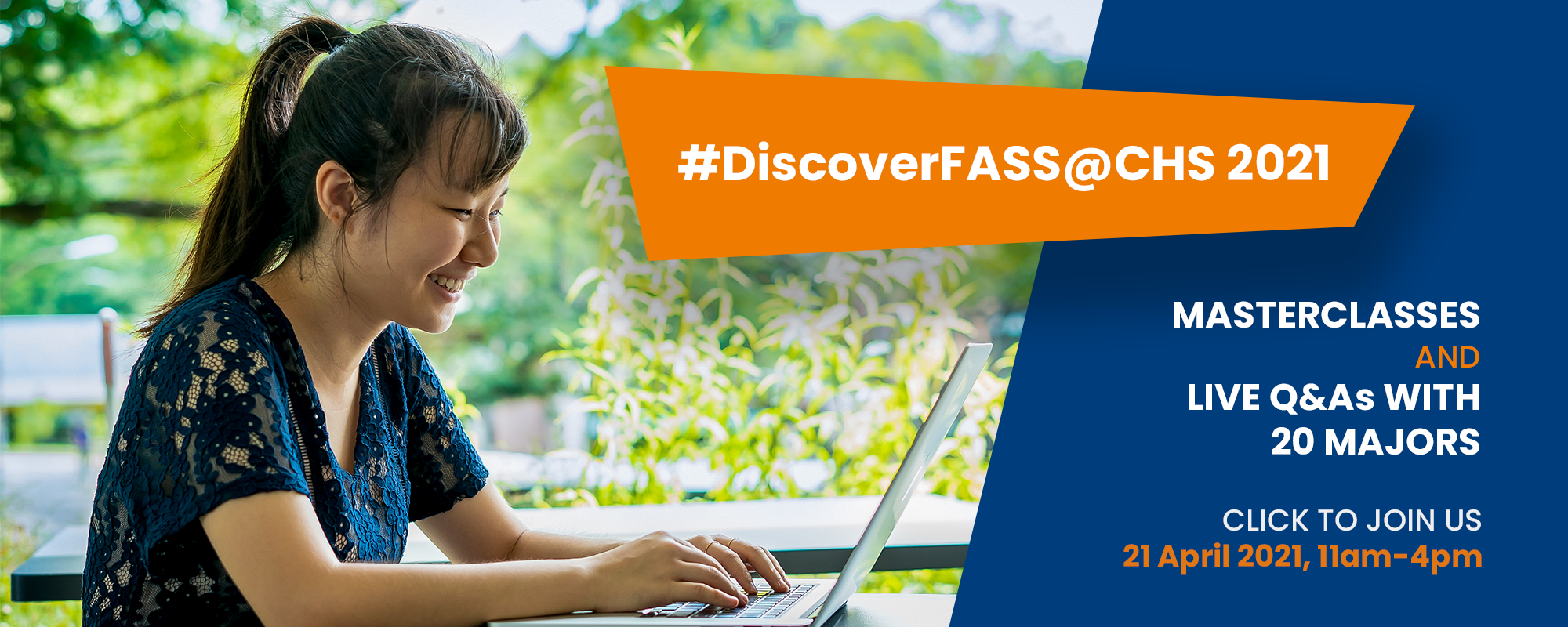
As part of the #DiscoverFASS@CHS campaign leading up to our Open House in May this year, we are holding 'live' Masterclasses presented by three of our award-winning Faculty members, and our Departments are hosting 'live' Q&A sessions for prospective students. These are opportunities not to be missed if you wish to know all you need to know about classes here and the myriad programmes available to you if you are a part of the FASS community. Masterclasses by Award-Winning Faculty
Experience lessons led by our dynamic faculty members.  Roasted Fetuses and Corpse Magic: An Introduction to Supernaturalism in Southeast Asia
Roasted Fetuses and Corpse Magic: An Introduction to Supernaturalism in Southeast Asia
Presented by Associate Professor Irving Johnson, Department of Southeast Asian Studies
The class aims to foreground the fascinating world of beliefs in supernaturalism that pervade Southeast Asian lives. Many of us enjoy telling and listening to creepy stories, watching horror movies on Netflix or dabbling in the esoteric. In this masterclass, we will look at some of the beliefs that structure constructions of the supernatural in modern Southeast Asia. The class revolves around a series of interrelated questions that seek to discover commonalities in popular belief systems and their prominence in the region, linking supernaturalism to larger issues of power, gender and politics.  Evidence and Promise Making
Evidence and Promise Making
Presented by Assistant Professor Zachary Barnett, Department of Philosophy
Promise-making is an important part of life. We make promises to our friends, families, and significant others, and they make promises to us. We will look at a puzzle that arises when we think about "promising against the odds": How should I feel about making a promise, if I know that most of the people in my exact situation end up breaking that promise? For example, suppose that I promise to quit smoking cigarettes. At the same time, I know that most people who sincerely promise to quit smoking do not actually succeed on their first attempt. Should I believe that I will be the exception to the rule? If not, am I justified in making the promise in the first place? And if I do make the promise, should my friends and family believe me? These questions arise in many different contexts, ranging from the superficial to the serious, involving addiction or relationships. 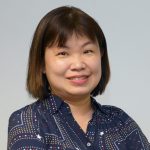 Making Sense of Self-Awareness and What That May Mean
Making Sense of Self-Awareness and What That May Mean
Presented by Dr Peace Wong Yuh Ju, Department of Social Work
In this talk, Dr Wong will attempt to broaden our understanding about ‘self’ and what that may mean to us. It is not uncommon for students in wanting to gain greater self-awareness with the attempt to learn more about one’s beliefs/feelings in relation to the observed world around us. Yet, how do we deepen our understanding of ‘self’, given that we are both familiar with who we are, and yet at times finding ourselves baffled by our reactions, and wondered why we respond in a certain manner? We will briefly discuss the various influences that may impact our values and beliefs, as well as consider what knowing your ‘self’ may mean to you.
To register for Masterclasses, click here.
Live Q&As with our Departments
Meet key Faculty and student representatives of every FASS Department and major programme in their respective Zoom meeting rooms and ask them specific questions about the requirements, content and value of the programmes they offer.
Department of Chinese Studies
The Chinese Studies Department provides training in diverse areas of Chinese Studies and Chinese Language, with the aim of preparing students for employment in a wide range of sectors. Graduates are offered career opportunities as professionals in the educational and business sectors, academia, the translation service industry and the mass media.
Join the Department's #DiscoverFASS@CHS 2021 'Live' Q&A session on 21 April (2-4 pm) here.
In the meantime, visit the College of Humanities Programmes page for more details on what this Department offers.
Department of Communications and New Media
Communications and New Media (CNM) at the National University of Singapore is the only Department in Southeast Asia that offers media studies, interactive media design, cultural studies, and communication management with a focus on new media.
Join the Department's #DiscoverFASS@CHS 2021 'Live' Q&A session on 21 April (2-4 pm) here.
In the meantime, visit the College of Humanities Programmes page for more details on the programmes offered by this Department.
Department of Economics
The Department of Economics has an established reputation as one of the largest and leading departments of Economics in the Asia-Pacific region. Faculty members’ research areas span a wide range of economic fields, with strength in the core areas of microeconomics, macroeconomics and econometrics, as well as in particular fields such as game theory and industrial organization, labor economics, education, financial economics, and growth theory and development with special reference to Asia.
The Department's #DiscoverFASS@CHS 2021 'Live' Q&A session on 21 April (2-4 pm) here. This session includes discussion of the Data Science and Economics Cross-Disciplinary Programme (DSE-XDP).
In the meantime, visit the College of Humanities Programmes page for more details on the programmes offered by this Department.
Department of English Language, Literature and Theatre Studies
The Department of English Language, Literature and Theatre Studies houses three undergraduate majors and three graduate programmes. The English Language major offers an education in linguistics, the study of human language. The undergraduate programme in English Literature is designed to provide a broad foundation in reading and analysing texts of all kinds. And, the Theatre Studies curriculum delivers education in all areas of theatre and performance history, production and interpretation.
The Department's #DiscoverFASS@CHS 2021 'Live' Q&A session on 21 April (2-4 pm) here.
In the meantime, visit the College of Humanities Programmes page for more details on the programmes offered by this Department.
Department of Geography
Modules in the Department of Geography are organized along four areas of enquiry: environmental processes and change; global political economy; society and culture; and regional specializations (with a focus on Asia). The Department also offers a Field Studies module in which students travel to countries in the region such as Thailand and Malaysia where they conduct field work and collect research material over a 3-5 week period. Home-stays and visits to local universities and key sites of interest are part of the overseas learning experience it delivers.
The Department's #DiscoverFASS@CHS 2021 'Live' Q&A session on 21 April (2-4 pm) here. This session includes discussion of the Bachelor of Environmental Studies Programme (BES-XDP).
In the meantime, visit the College of Humanities Programmes page for more details on the programmes offered by this Department.
Department of History
The Department of History offers training at undergraduate and graduate levels, and its teaching and research expertise lies primarily in the history of Southeast and East Asia, but there is strong selection of module offerings in European, American, and military history, as well as the history of art, business, religion, science and technology.
The Department's #DiscoverFASS@CHS 2021 'Live' Q&A session on 21 April (2-4 pm) here.
In the meantime, visit the College of Humanities Programmes page for more details on the programmes offered by this Department.
Department of Japanese Studies
Founded in 1981, the Department of Japanese Studies is one of the largest area studies departments devoted to the study of Japan in the Asia-Pacific region, and offers BA, MA and PhD degrees in Japanese Studies taught by specialists with qualifications from leading universities around the world.
The Department's #DiscoverFASS@CHS 2021 'Live' Q&A session on 21 April (2-4 pm) here.
In the meantime, visit the College of Humanities Programmes page for more details on the programmes offered by this Department.
Department of Malay Studies
The Department of Malay Studies actively engages in research on a wide range of issues concerning the Malay world from a multi-disciplinary perspective, promotes exchanges with centres of Malay studies worldwide, and encourages the development of new and alternative approaches to the understanding of Malay history, economy, politics, society and culture.
The Department's #DiscoverFASS@CHS 2021 'Live' Q&A session on 21 April (2-4 pm) here.
In the meantime, visit the College of Humanities Programmes page for more details on the programmes offered by this Department.
Department of Philosophy
The Department of Philosophy is one of Asia’s leading centres for philosophical education and research. It is the top English-language philosophy program in Asia, and the inaugural Asian member of the Australasian Association of Philosophy. The faculty members have a broad range of interests spanning diverse philosophical traditions, offer a philosophical education spanning diverse philosophical traditions.
The Department's #DiscoverFASS@CHS 2021 'Live' Q&A session on 21 April (2-4 pm) here. This session will also include discussion of the Philosophy, Politics, and Economics Cross-Disciplinary Programme (PPE-XDP).
In the meantime, visit the College of Humanities Programmes page for more details on the programmes offered by this Department.
Department of Political Science
The Department of Political Science offers modules in comparative politics, international relations, political theory, and public administration. It also houses the Global Studies Programme, a new, multidisciplinary field of inquiry that examines the processes and effects of globalisation across political, economic, social and cultural domains around the world.
The Department's #DiscoverFASS@CHS 2021 'Live' Q&A session on 21 April (2-4 pm) here. This session includes discussion of the Global Studies Programme.
In the meantime, visit the College of Humanities Programmes page for more details on the programmes offered by this Department.
Department of Psychology
The Psychology programme at NUS aims to equip students with knowledge in the key areas of psychology (such as human biological processes, developmental processes, social processes, cognitive processes, mental health and adjustment of individuals) as well as an understanding of the applications of psychology. It also develops skills for undertaking studies of behaviour, including statistical skills and the use of computers for data analyses.
The Department's #DiscoverFASS@CHS 2021 'Live' Q&A session on 21 April (2-4 pm) here.
In the meantime, visit the College of Humanities Programmes page for more details on the programmes offered by this Department.
Department of Social Work
The main objective of the undergraduate General and Honours degree programme offered by the Department of Social Work is to equip its graduates for entry into the social work profession at the direct-service level. Students are exposed to social service visits, skills laboratory training, fieldwork placements and module projects, among other applied learning methods.
Go to this Department's #DiscoverFASS@CHS 2021 'Live' Q&A session on 21 April (2-4 pm) here.
In the meantime, visit the College of Humanities Programmes page for more details on the programmes offered by this Department.
Department of Sociology
The Department of Sociology is a diverse, dynamic and innovative research and teaching unit with strong expertise in research on Southeast Asia, East Asia and South Asia as well as on Singapore society. One of the largest Sociology departments in the world, it offers comprehensive undergraduate, honours and graduate programmes, led by a group of dedicated and creative researchers and educators.
The Department's #DiscoverFASS@CHS 2021 'Live' Q&A session on 21 April (2-4 pm) here.
In the meantime, visit the College of Humanities Programmes page for more details on the programmes offered by this Department.
South Asian Studies Programme
South Asian Studies, as offered by the South Asian Studies Programme (SASP), focuses on the region comprising India, Pakistan, Bangladesh, Sri Lanka, Nepal, Bhutan and the Maldives. At the undergraduate level, students are offered a range of modules in economics, religious and cultural studies, history, international relations, philosophy, politics and gender studies. The aim is to provide graduates of the programme with a broad understanding of the region from different points of view - knowledge that will be useful in dealing with this changing region in the 21st century.
The Department's #DiscoverFASS@CHS 2021 'Live' Q&A session on 21 April (2-4 pm) here.
In the meantime, visit the College of Humanities Programmes page for more details on the programmes offered by this Department.
Department of Southeast Asian Studies
The Department of Southeast Asian Studies is located in the Asian Studies Division of the Faculty of Arts and Social Sciences, and offers distinctive programmes for anyone interested in studying Southeast Asia, from the undergraduate to the PhD level.
The Department's #DiscoverFASS@CHS 2021 'Live' Q&A session on 21 April (2-4 pm) here.
In the meantime, visit the College of Humanities Programmes page for more details on the programmes offered by this Department.
Centre for Language Studies
The Centre for Language Studies was established in 2001 to serve the foreign language needs of the Faculty of Arts and Social Sciences and has today over 80 full-time and part-time faculty members. It teaches thirteen different languages - Arabic, Bahasa Indonesia, Chinese, French, German, Hindi, Japanese, Korean, Malay, Spanish, Tamil, Thai and Vietnamese - to app. over 3,300 students per semester and thus helps them acquire a very valuable economic and social resource in today's world of growing globalisation and internationalisation.
The Department's #DiscoverFASS@CHS 2021 'Live' Q&A session on 21 April (2-4 pm) here.
In the meantime, visit the College of Humanities Programmes page for more details on the programmes offered by this Department.
Lost Opportunities for Asia's Lockdown Generation
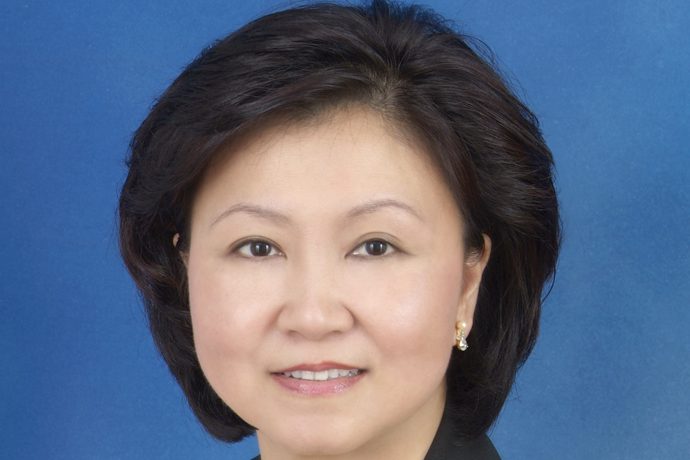
Professor Jean Yeung (NUS Centre for Family and Population Research (CFPR) and Department of Sociology) discusses ways the pandemic is making the impact of economic recession on young people much worse compared to other age groups in a piece in Bloomberg. She warns that the impact of this crisis may strain relations with older generations and put young people’s mental health at risk. Prof Yeung also speaks about women being forced into unpaid labour as they fall out of the workforce.
Read the article here. Listen to the podcast here.
GRADUATE STUDENTS' TEACHING AWARD - SEMESTER 1 AY2019/20
 Congratulations to Ms Radhika Mathrani Chakraborty for winning the Graduate Students' Teaching Award!
Congratulations to Ms Radhika Mathrani Chakraborty for winning the Graduate Students' Teaching Award!
You have done us proud!
NATIONAL DAY AWARDS 2020
The Department is proud to announce the following achievements:
THE PUBLIC SERVICE MEDAL
(PINGAT BAKTI MASYARAKAT)A/P Ganapathy Narayanan THE EFFICIENCY MEDAL
(PINGAT BERKEBOLEHAN)
Ms Jane Ong







